As I mentioned in my “TNG-era Uniform Paradigm” post, William Ware Theiss disregarded Robert Fletcher’s expanded range of movie-era division colors, and instead returned to the three division colors he’d used in The Original Series – albeit with the “gold” and “red” colors switched.
For simplicity, I will be referring to these colors as “red,” “gold,” and “teal,” even though these labels aren’t accurate descriptions of the actual fabric colors used.
“Berry,” “wine,” “dark cherry,” “burnt orange,” “brownish mustard,” “dark bluish teal” are all more appropriate descriptions of the fabrics in-person, but I find them unwieldy terms for repeated use in an analysis like this.
Also, the actual fabric colors are noticeably – even shockingly – different in-person than how they usually appeared in the shows and movies.
Having closely studied (and color-matched) numerous screen-used uniforms and swatches of screen-used uniform fabric from over the entire series, I can unequivocally say that the colors varied radically and evolved considerably over the years.
To avoid redundancy, I will be discussing the evolution of the screen-used TNG-era fabric colors (with side-by-side comparisons) in a future blog post.
I suggest subscribing to my “Costume Guide” e-mail newsletter and following me on social media (if you haven’t already) for updates on this, and other new costuming resources.
Red – Command
“Red” primarily indicated the command division.
That included command of a starbases, not just starships.
This also included “TAC officers” (such as Lieutenant Chang, below left) and those who worked at the Inspector General’s office (such as Lieutenant Commander Remmick, below right), although it’s not clear whether these positions were exclusive to someone wearing “red.”
Red – Pilots
Red – Geordi and Worf
Curiously, Geordi and Worf both wore red during The Next Generation’s first season, but to be honest, I couldn’t for the life of me tell you what either of their actual jobs were at that point.
They were both junior officers, but they didn’t seem to have any particular post, specific job title, etc.; maybe it was a sort of Starfleet internship, where you get to try a bit of everything before deciding what you want to do?
On a couple occasions he actually took command of the ship.
The second time, he led the Enterprise B-team in a crisis, helped himself to the captain’s ready room, separated the ship, and saved the day!
Unsurprisingly in retrospect, he also worked in engineering sometimes, too.
Considering how versatile a young officer he apparently was, it’s no wonder he landed a job on Starfleet’s newly-christened flagship, then went from junior lieutenant to lieutenant commander and chief engineer his first two years there!
Worf’s position aboard the Enterprise was even more ambiguous during the first season.
Whereas Geordi usually flew the ship, Worf mostly just hung out at the back of the bridge. Perhaps we can assume he had an actual assigned station back there, at least sometimes?
He seemed to have a part-time job as Tasha Yar’s sidekick.
… and sometimes he filled in at the ops station.
(I’m sure none of this had anything to do with Michael Dorn being a last-minute addition to the cast …)
He also went on away teams (“landing parties”).
They were apparently also responsible for performing sensor maintenance in this little room.
I guess they just pitched in wherever the senior officers and/or the writers felt they were needed at the time.

As with Geordi and engineering, unsurprising in retrospect was that Worf occasionally filled in at security/tactical, even before Tasha’s untimely death.
And of course, he officially replaced her there afterward.
Redshirts!
Of course, if you’ve watched The Original Series, you’re probably familiar with “the curse of the redshirt.”
Although the red and gold division colors were swapped from TOS to TNG, the lingering effects of the aforementioned curse still loomed over the “redshirts” of the new era …
Main character “redshirts” seldom died (at least, not permanently – this is science fiction, after all); the worst a show lead might have to deal with was a debilitating headache.
They might also get smacked in the face with an errant snowball, or a hot drink spilled on them – but nothing earth-shattering.
Even protected by three pips, Commander Riker was attacked, cocooned, held hostage, consumed by Armus, assaulted by a Starfleet imposter, and forced to relieve traumatic memories as his only chance at survival!
Lieutenant (junior-grade) Worf had a rough first season as a “redshirt” too getting zapped, assaulted both by Lore and a Starfleet imposter so badly he was literally knocked unconscious, and even dying once but brought back by the power of the Q.
Geordi’s first season as a “redshirt” wasn’t as rough, but he still was the first to catch the Virus of Humiliation™, beamed down to an alien planet upside-down and subsequently shot, and also violently assaulted by Not Admiral Quinn.
If being a “redshirt” was this hazardous to main characters, then obviously supporting characters and extras never really stood a much of chance.
Unfortunately for the rest of Starfleet, the four rank pips only provided effective protection in combination with “Main Character Powers”; nearly every other Starfleet captain we saw in the series either died horribly, or was missing in action and presumed dead.
To the best of our knowledge, there were only two Starfleet captains who donned the red TNG jumpsuits and didn’t die horribly!
(See part 3 of this costume analysis for even more examples from the later seasons.)
Geordi, Worf, and O’Brien all knew what was up, so they switched from red uniforms to gold ones as fast as they could – and who could blame them?!?
(Being a nameless extra in the pilot, O’Brien naturally beat them to it; he’d probably heard about the other nameless “redshirt” getting frozen by Q and high-tailed it into a new career – one that might lead to a role as a recurring, or even a main character.)
It may have seemed like a good idea at the time, but little did they know …
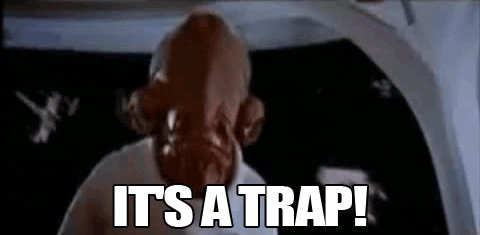
Gold – Engineering
Even though whatever power(s) govern the universe had cursed the “redshirts” to the best of their ability, Starfleet’s tailors seem to have wizened up to the situation and tried to throw the universe a curveball by swapping the red and gold division colors from The Original Series.
Most obviously, in the TNG-era, “gold” represented engineering.
This primarily included the multiple chief engineers the Enterprise D went through over its first season, before Geordi La Forge was promoted to the position in season two.
This also included two notable guest characters: Kosinski and Sonya Gomez.
Naturally, other supporting characters and extras were primarily seen in engineering.
Gold – Operations
Like Geordi and the helm, the ops station was handled by an assortment of other individuals whenever Data was elsewhere.
Bridge Stations Reversed
Curiously, in the pilot episode, the helm and ops stations appear to have been reversed, as evidenced by a “goldshirt” on the right (camera left) and a “redshirt” on the left (camera right):
In the next episode we got our first glimpse at what would become the standard bridge configuration for the remainder of the TNG-era:
But the characters also bounced around over the episode, so who knows?
After the first couple episodes, everyone generally settled into what we now recognize as the standardized bridge stations; the helm and ops stations were usually manned by Geordi and Data, respectively.
The original (reverse) station configuration was recalled in the series finale.
There were exceptions, of course:
My personal “headcanon” is that since the Galaxy-class ships were new, they were still experimenting with the bridge layout, particularly in regard to crew preferences and how they could operate most efficiently.
(This also explains the bridge’s design changes in season two.)
As for the crew members playing “musical chairs” with the duty stations, my interpretation is that Starfleet officers – especially those on the Federation flagship – all have at least basic training in several departments and can competently operate multiple stations.
And as Worf once noted, “[Captain Picard] wants his junior officers to learn, learn, learn.” I can see Captain Picard (and Commander Riker, for that matter) scheduling crew members to at least semi-regularly work duty shifts outside their primary departments – both for better preparedness, and to produce more well-rounded crew members.
I’d also like to think that junior officers were given the opportunity to work on a variety of assignments and duty stations around the ship before committing to a longer-term career path …
… but I digress!
For whatever it’s worth, the helm/ops situation as generally worked out in The Next Generation’s first season appears to have become standard practice for starships around that time, and would remain so on most ships we saw all the way through Nemesis.
(That is, until starships like the Defiant and Voyager came along; the two mirrored bridge stations were replaced by a single larger helm for the pilot, and ops was moved to another area of the bridge.)
Gold – Transporters
“Gold” was also for transporter operators, of whom there were many:
Of course the most notable of these was Chief O’Brien, who became a recurring character in season two.
Gold – Tactical and Security
Of course, the quintessential “goldshirts” were the tactical/security personnel – mostly notably Tasha Yar and Worf.
Several other crew members were seen at the station, though.
Security officers were tasked with keeping watch of the ship’s brig (and those being held there).
It was their responsibility to stand guard as Starfleet’s token effort to secure areas, prisoners, etc. – for all the good it ever did.
It was also their responsibility to charge into any hostile, dangerous situations that might arise.
In particularly serious situations, both Tasha and Worf were usually flanked by a possy of “goldshirts.”
Goldshirts!
By extension, the “goldshirt” claim to fame was to be cannon fodder; with TNG, gold was the new red!
For example, consider poor Geordi, as a “redshirt” he’d made it through the first season relatively unscathed and none the worse for wear, but once he switched to a “goldshirt” his life immediately took a rough turn.
He was assaulted by a powerful android, held hostage who repeatedly shot him at point blank range, and even his own ship tried to kill him!
Of course, Main Character Status didn’t always protect “goldshirts” from biting the dust.
Nameless “goldshirts” were like lightning rods to enemy fire, exploding consoles, and physical harm in general.
When the Pegasus was found, the ship was littered with “goldshirts” …
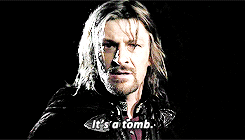
Basically, if you were a “goldshirt” and the worst thing you experienced was spilling a hot drink on yourself and your captain, it was a good day.
Lore may have been brilliant and ruthless, but he did make one critical mistake: he made himself a “goldshirt,” and look what happened to him …
Even though “the curse of the redshirt” was mostly deflected toward the “goldshirts” of the TNG-era, the reality was that both division colors were hazardous.
It’s like some fundamental wiring of the universe was crisscrossed with the color swap, and the universe sometimes couldn’t quite decide who to kill off to prove the situation was serious punish.
For example, one time armed terrorists beamed onto the Enterprise, intending to destroy it with all hands aboard.
Geordi managed to prevent the explosion in time (because he’s awesome), but the first and only two people to be shot in the attack were a “redshirt” and “goldshirt,” respectively.
Passing the baton, Star Trek style!
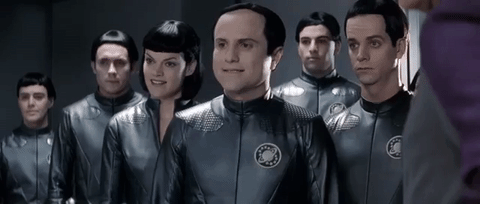
As a final example of the power of this curse, consider the case of Q:
A seemingly omnipotent superbeing intentionally donned both the “redshirt” and the “goldshirt” – an act which, knowing Q, may have sprung from boredom so he wanted to tempt Fate a little.
The next time we saw Q he had been stripped of all his powers and was condemned to a mortal, human existence.
He was forced to seek refuge from those who resented him – appearing vulnerable, humiliated, without even the luxury of clothing to cover his now-mortal form.
He was almost immediately thrown in the brig, where he experienced the terror of “losing consciousness” (falling asleep) for the first time, then later experienced hunger and back pain.
Seeking any form of consolation, Q visited Ten Forward to binge on some comfort food, where he was savagely stabbed in the hand by one of the gentlest, most patient beings in the universe.
Before he’d even shaken it off the first attempt was made on his life, which left an old adversary standing over him gloating about “how the mighty have fallen.”
If left to his own devices, even Q – an omnipotent superbeing – may have been defeated by the combined might of the old “redshirt” and new “goldshirt” curses …
But another member of the Q Continuum stepped in at the last second, saved him, and restored his powers.
Q had meddled with powers perhaps even beyond his own, but he’d nevertheless prevailed – if only just.
After that experience he continued to wear the “red shirt” for nearly all of his subsequent appearances – maybe as his own way of thumbing his nose at the universe, or perhaps as a badge of honor? Or maybe he was just playing it safe by avoiding the “gold shirt.”
Regardless, I think an omnipotent superbeing having barely survived the consequences of wearing the “redshirt” and “goldshirt” attests to the power of the corresponding curse.

Teal – Medical
Although Dr. Pulaski wore her own medical smock variant, Dr. Selar also wore the teal jumpsuit.
By extension, the medical staff all wore teal and were most often seen in sickbay.
Doctors, nurses, medics, and other medical professionals were often also first responders in emergencies.
These three division colors and their departmental associations, as established by William Ware Theiss during The Next Generation’s first season, would remain generally consistent throughout the remainder of the show, as well as the following two spinoff series (Deep Space Nine and Voyager).
Now that we’ve discussed some context for William Ware Theiss’ TNG-era uniform designs, the TNG jumpsuit fabric and fit, and the division colors he established that first season, let’s take a good look at the construction of the jumpsuit itself!

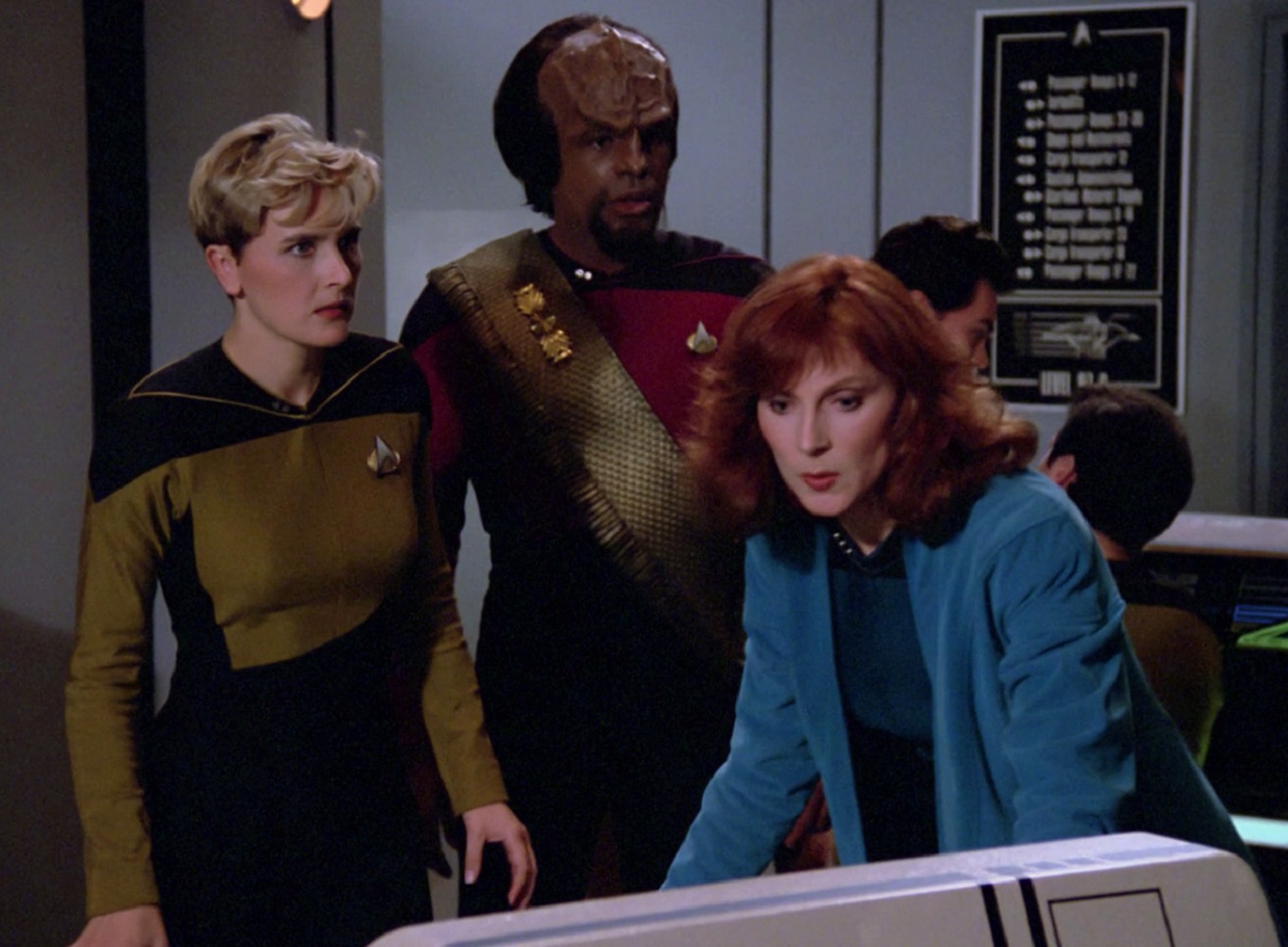
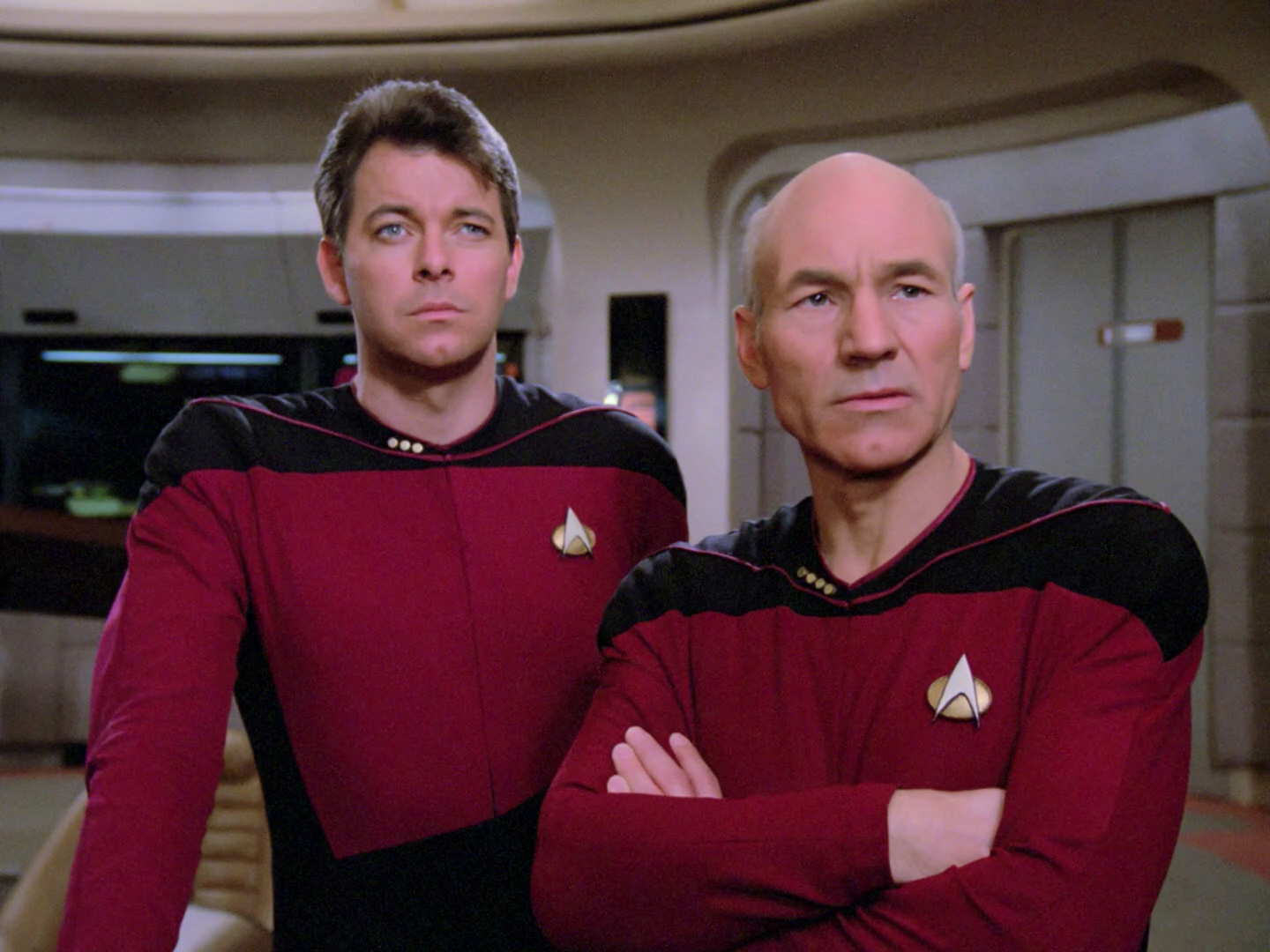
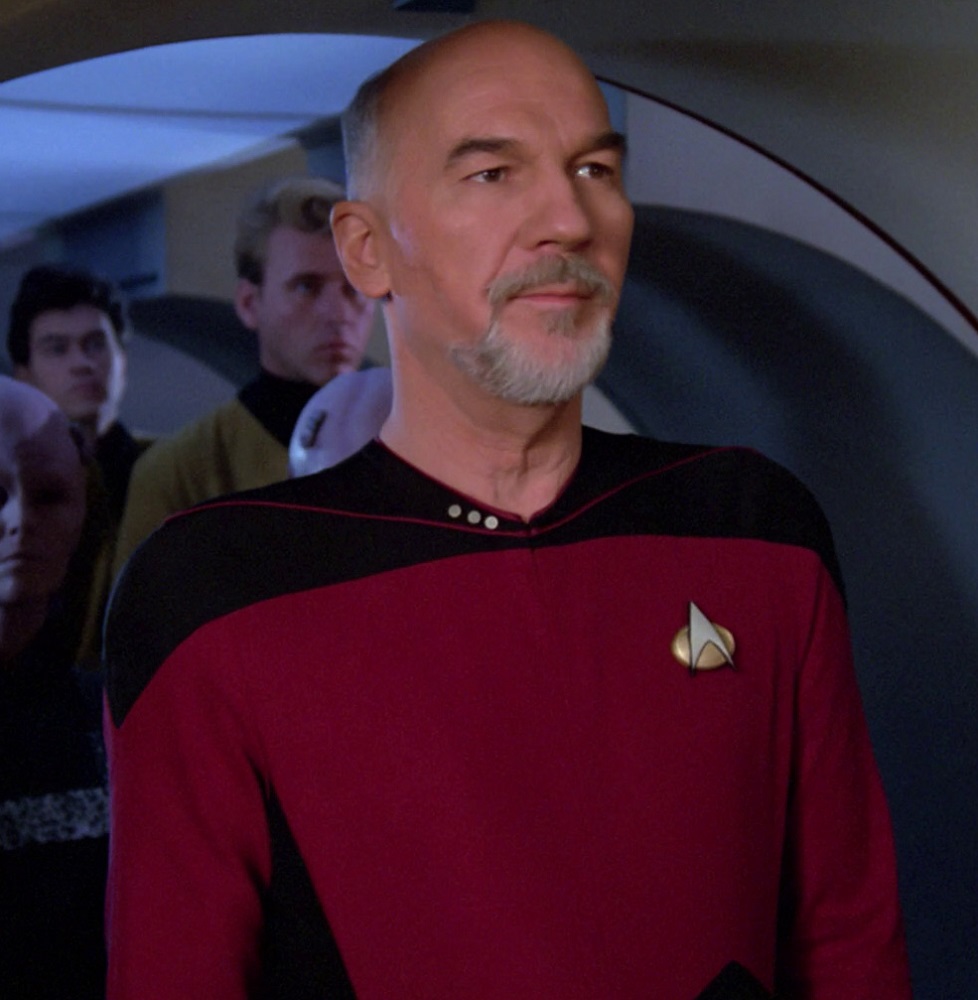
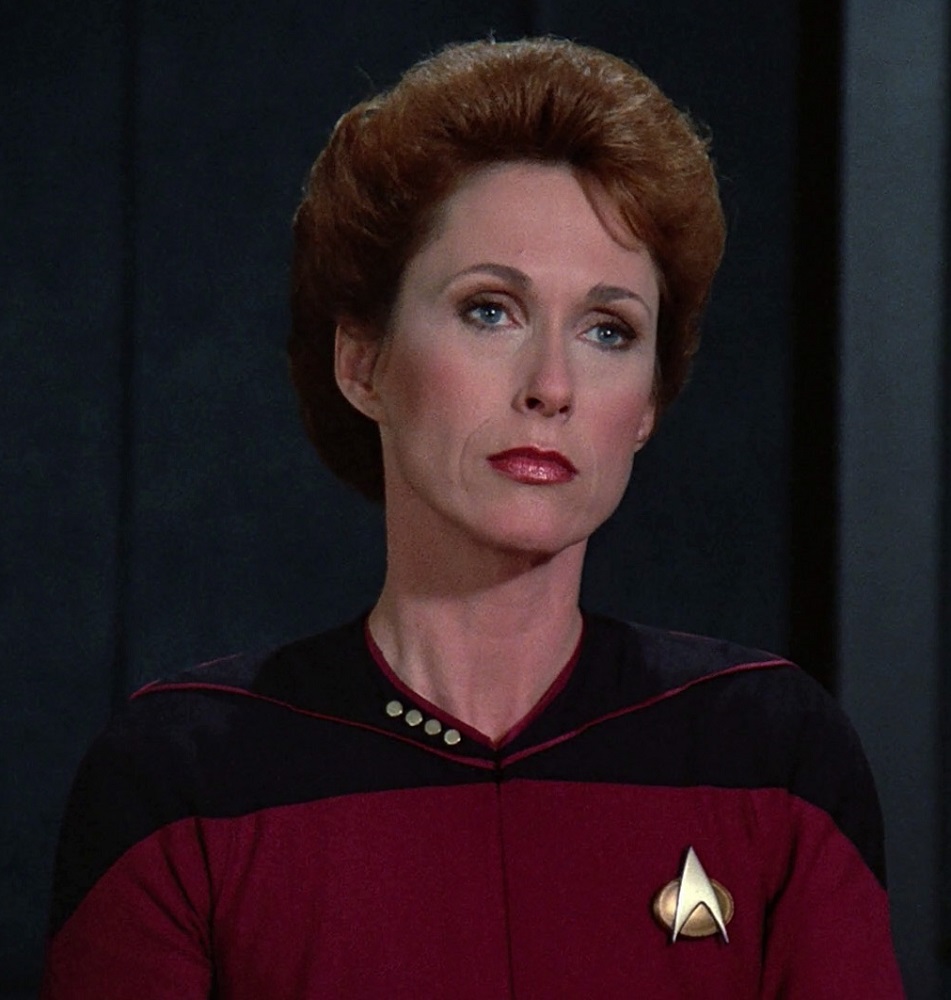
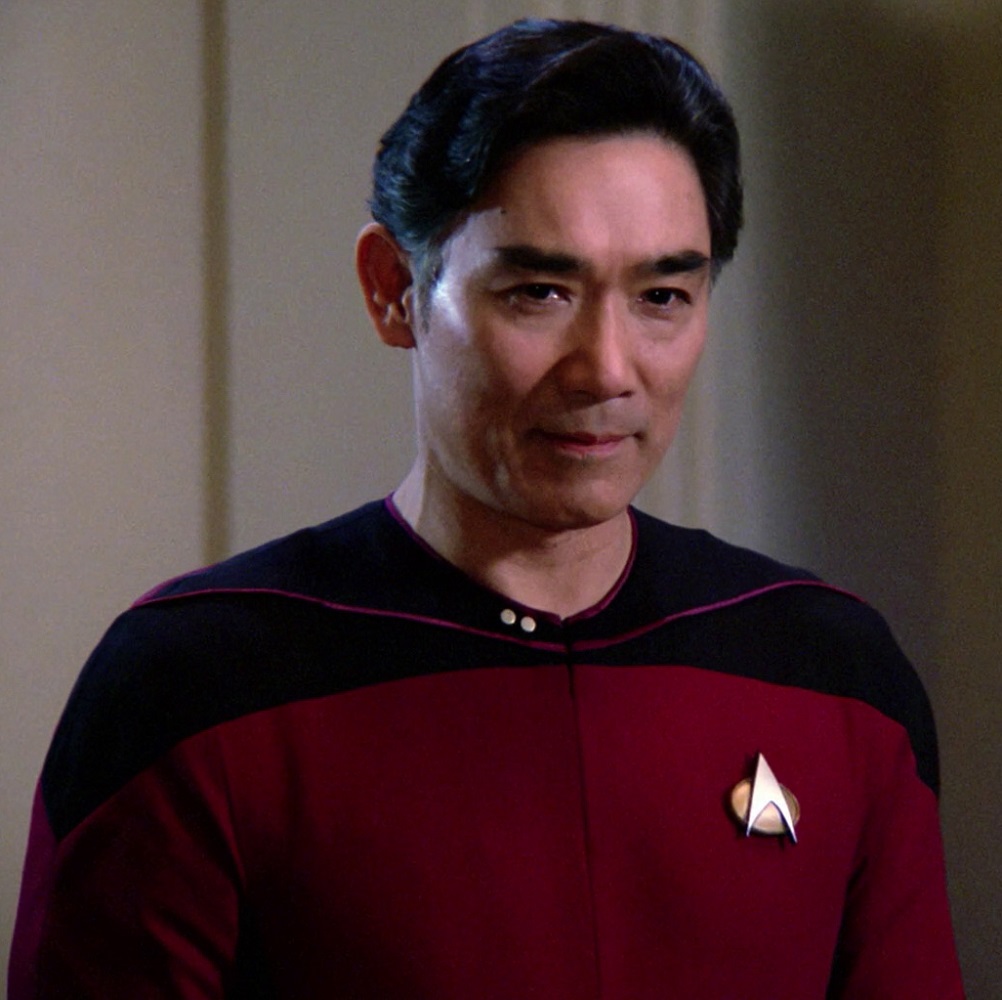
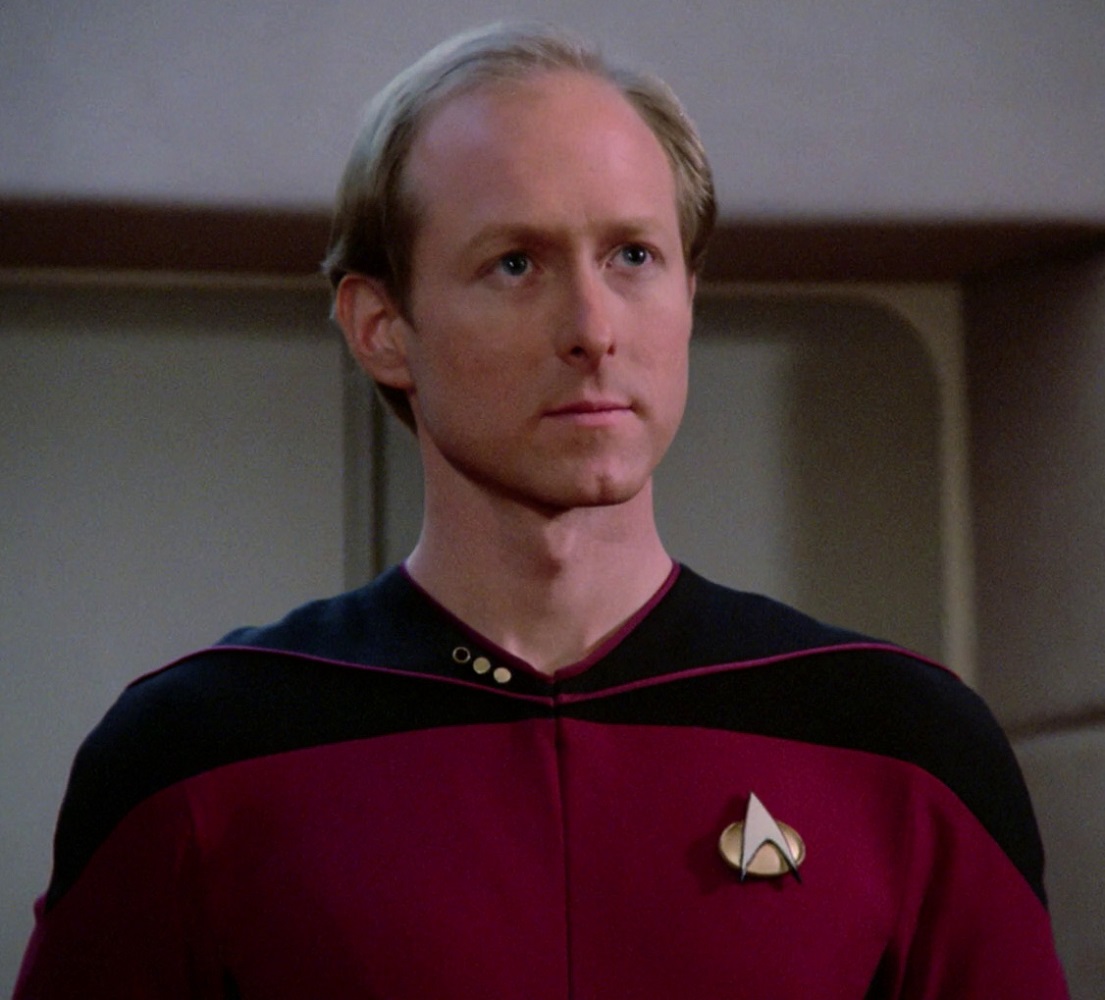
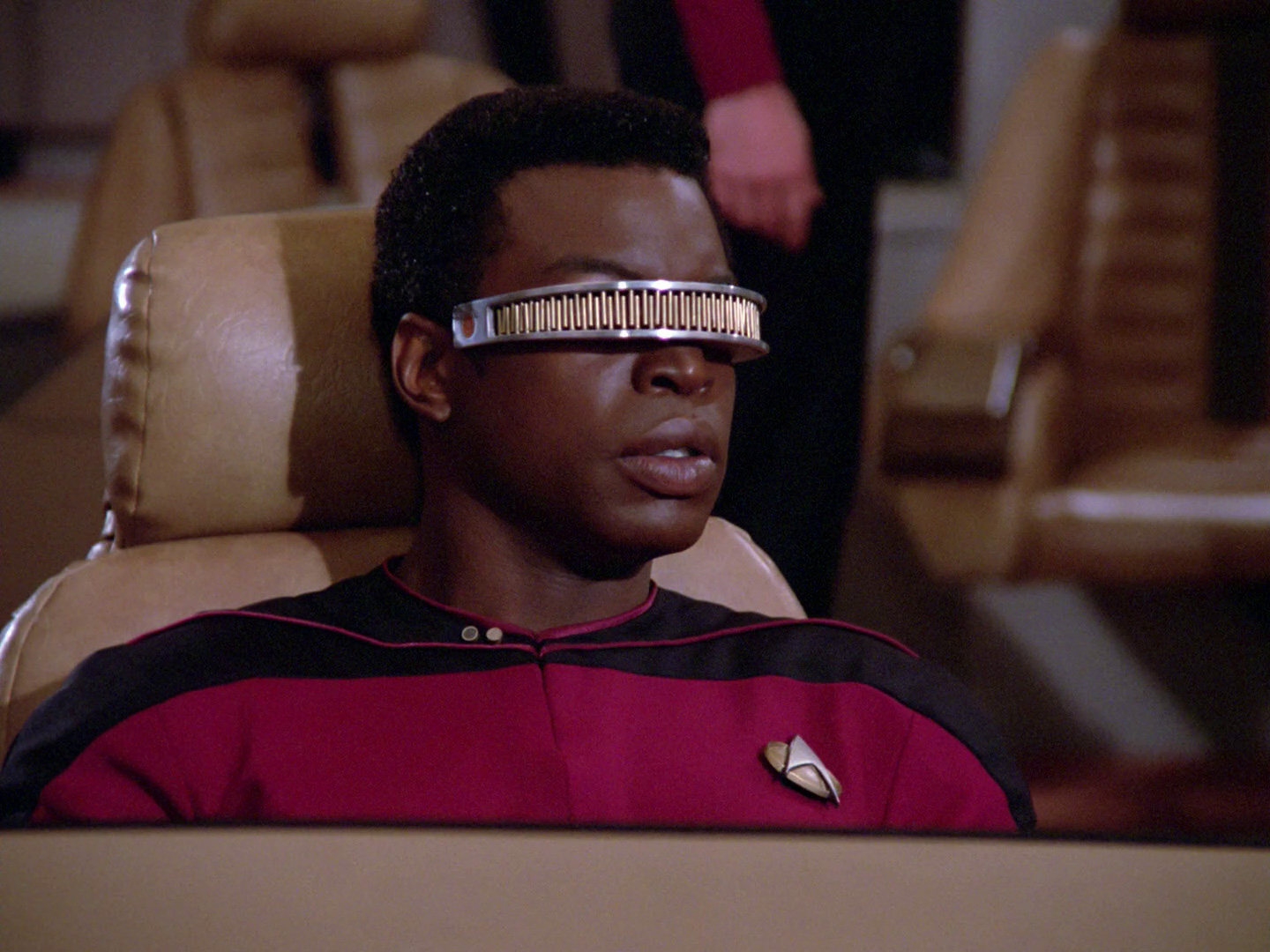
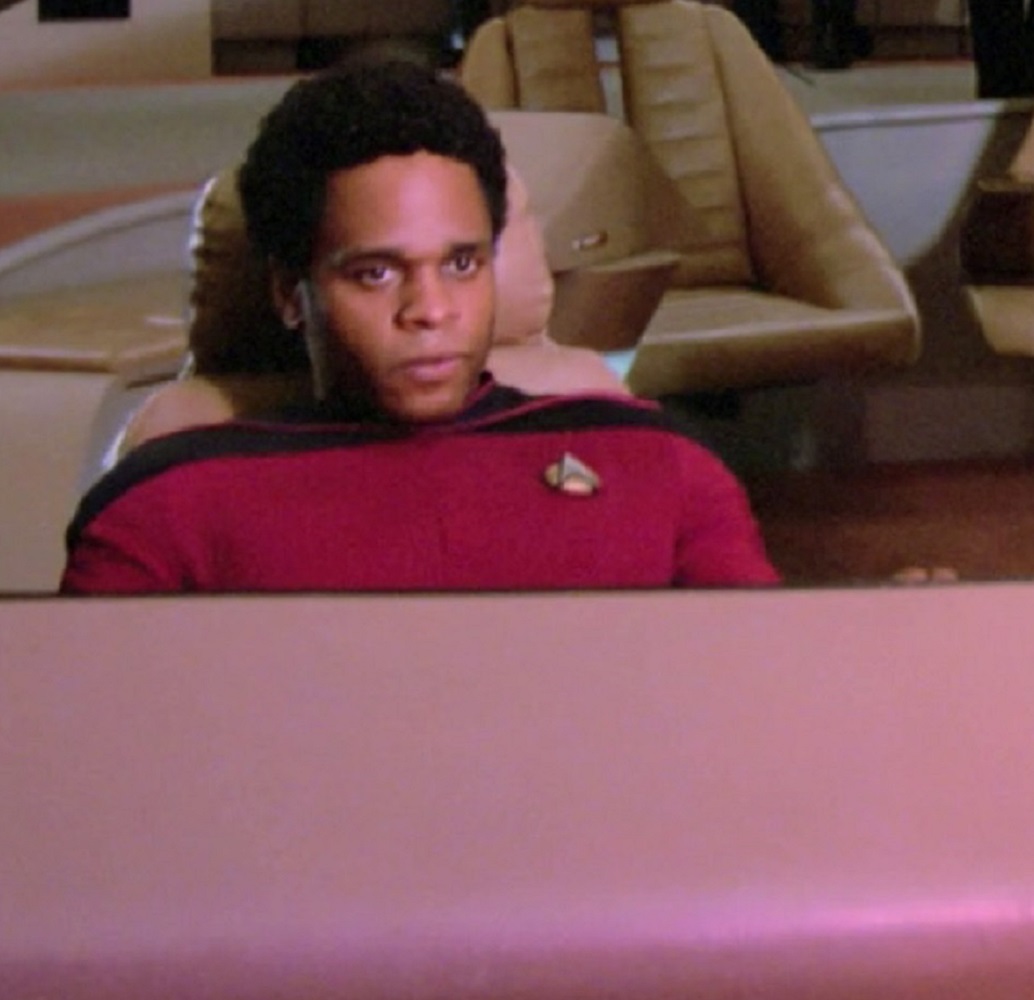
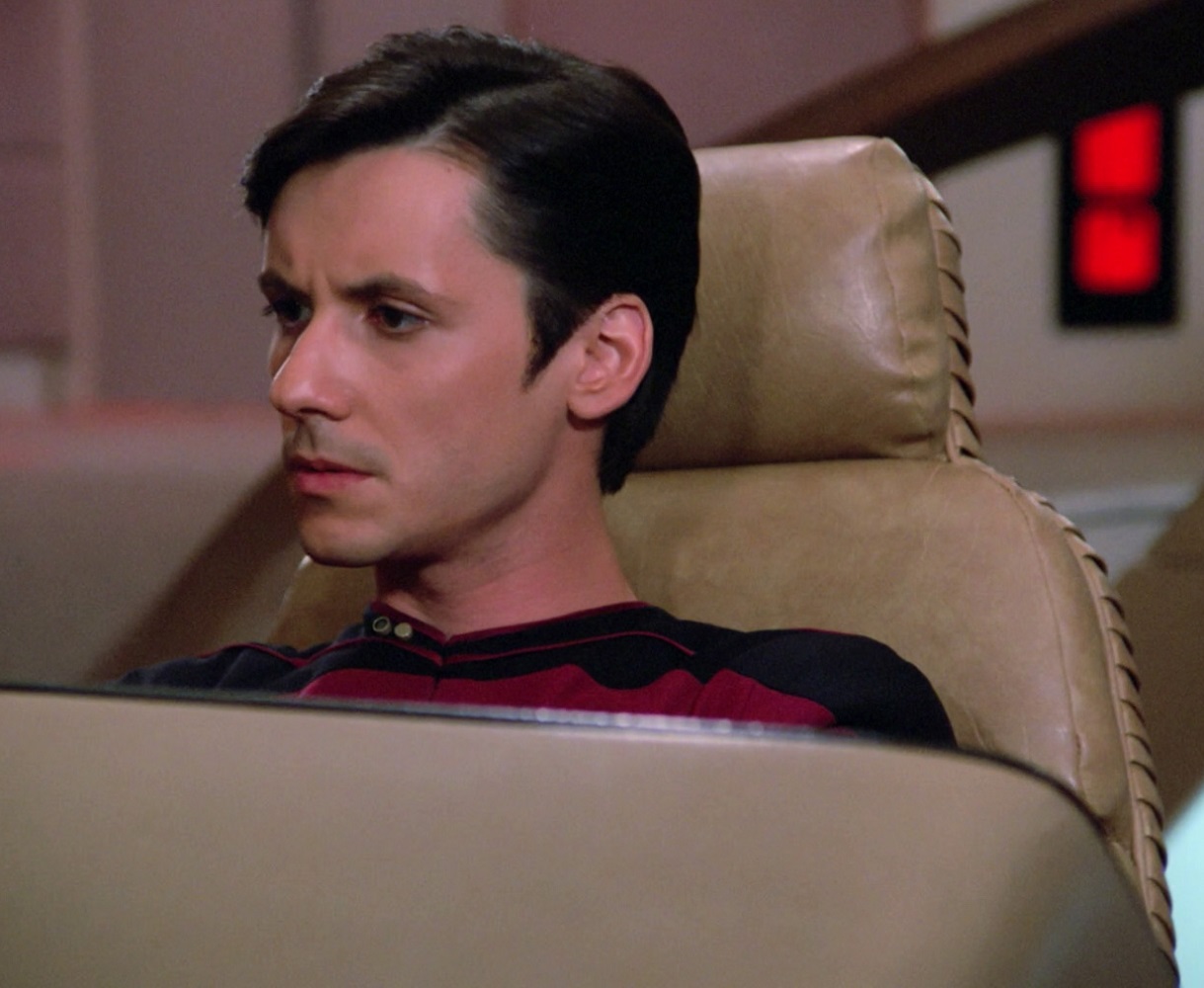
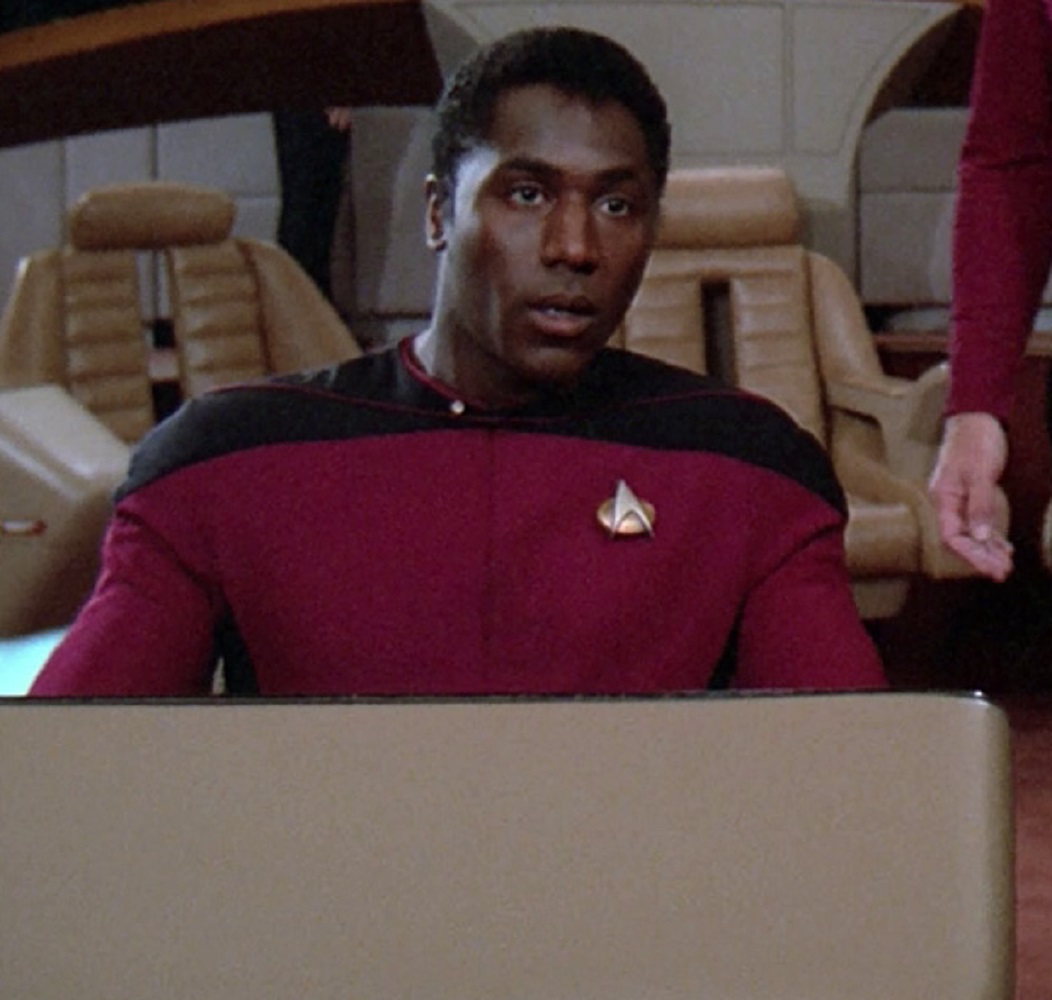
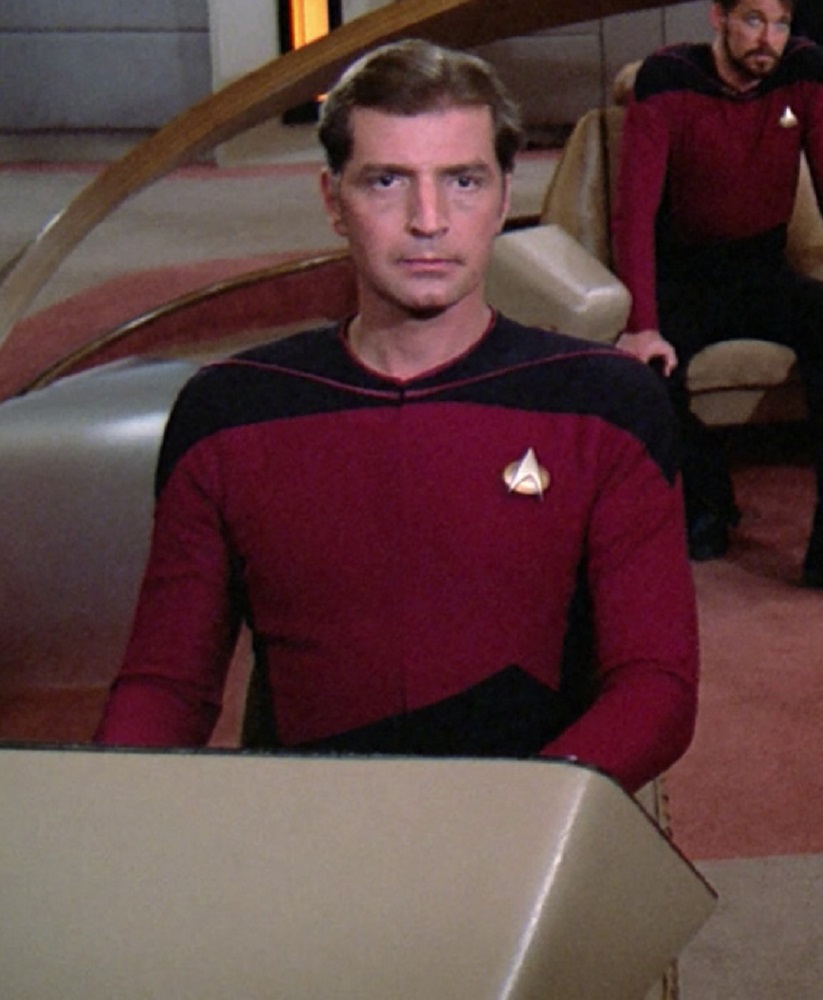
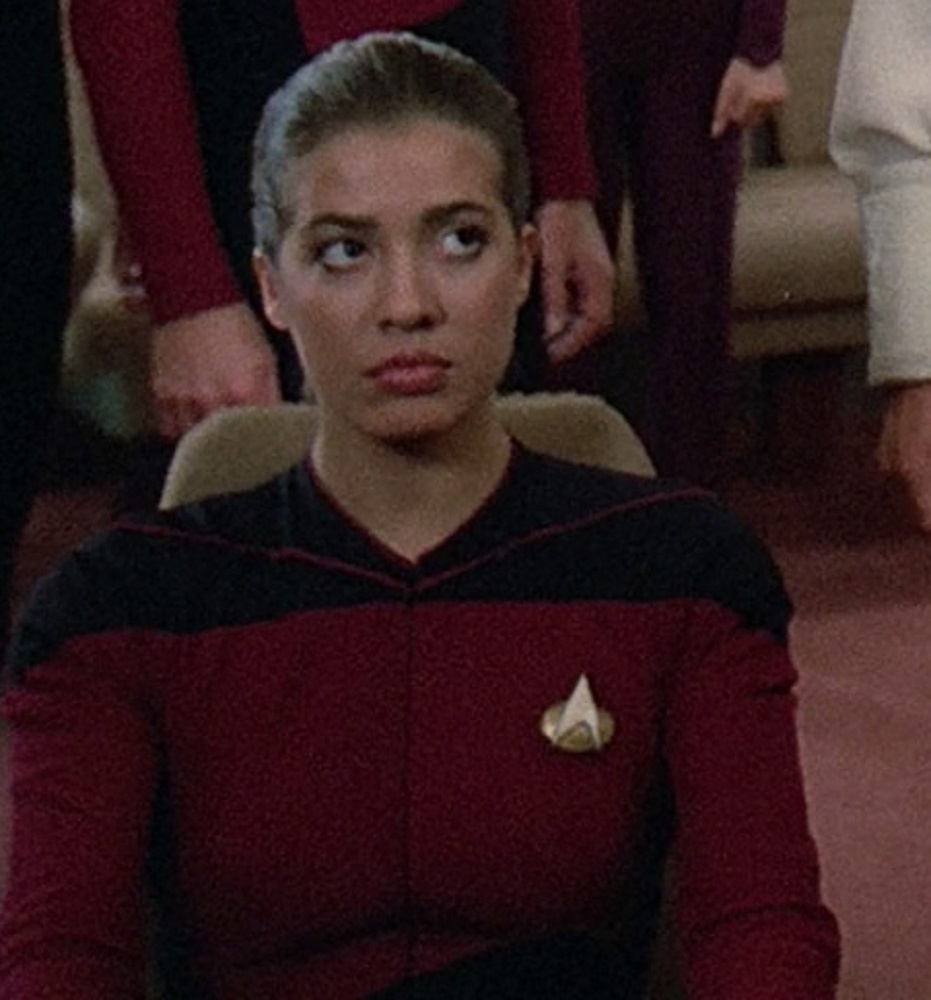
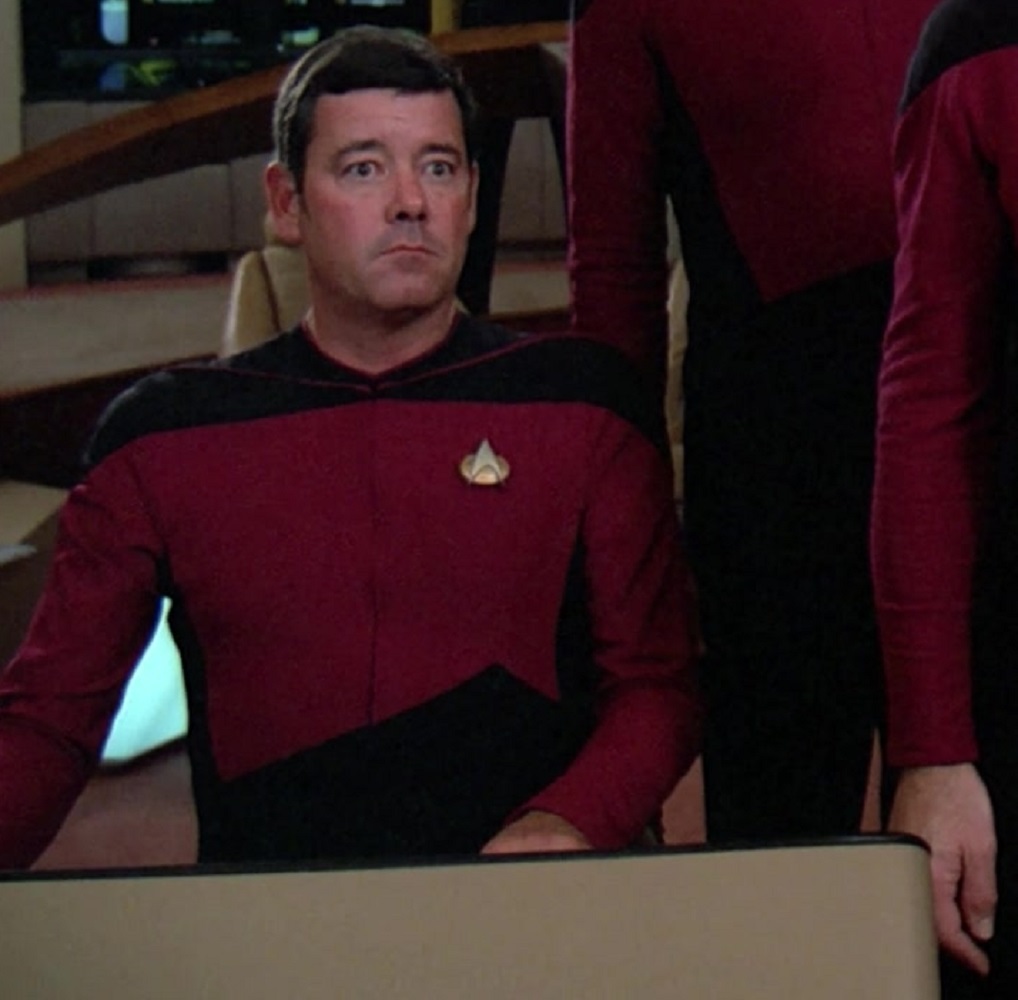
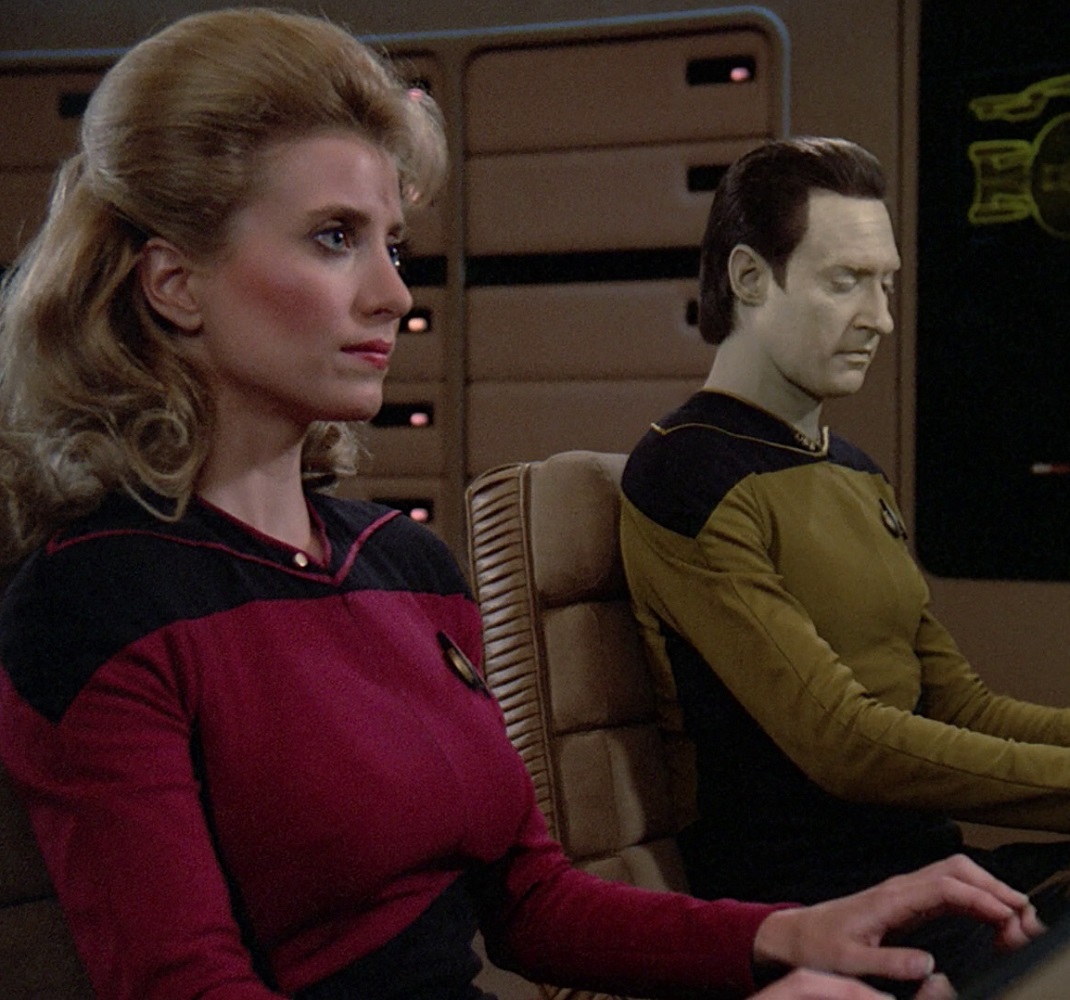
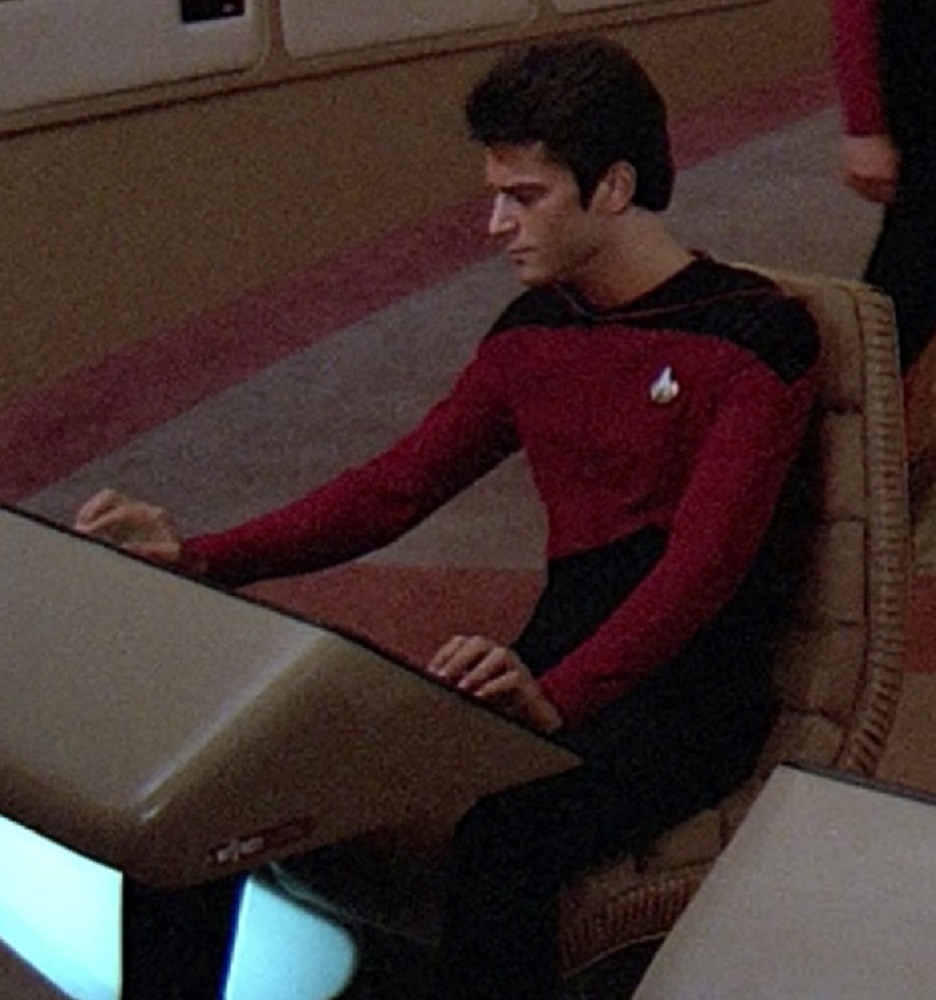
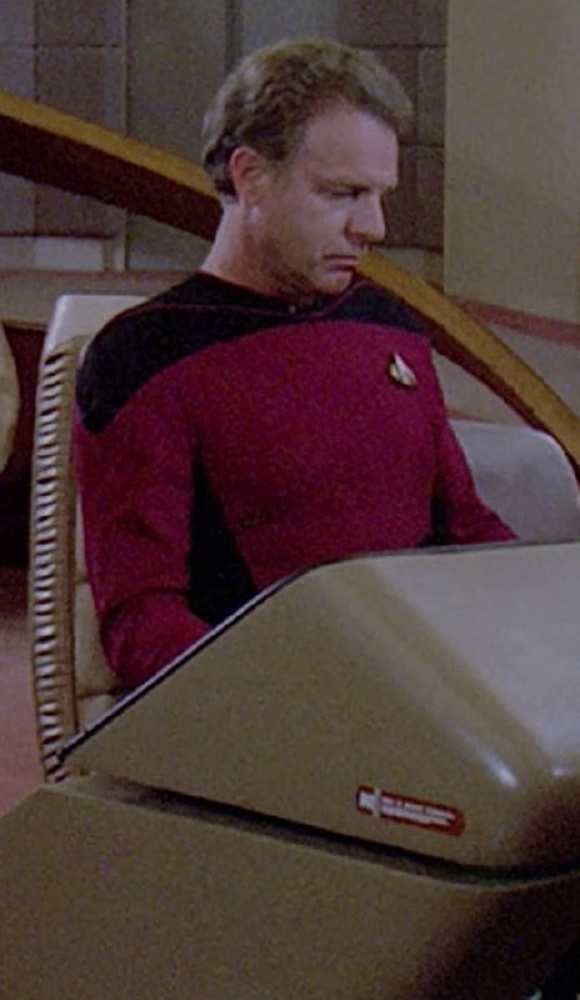
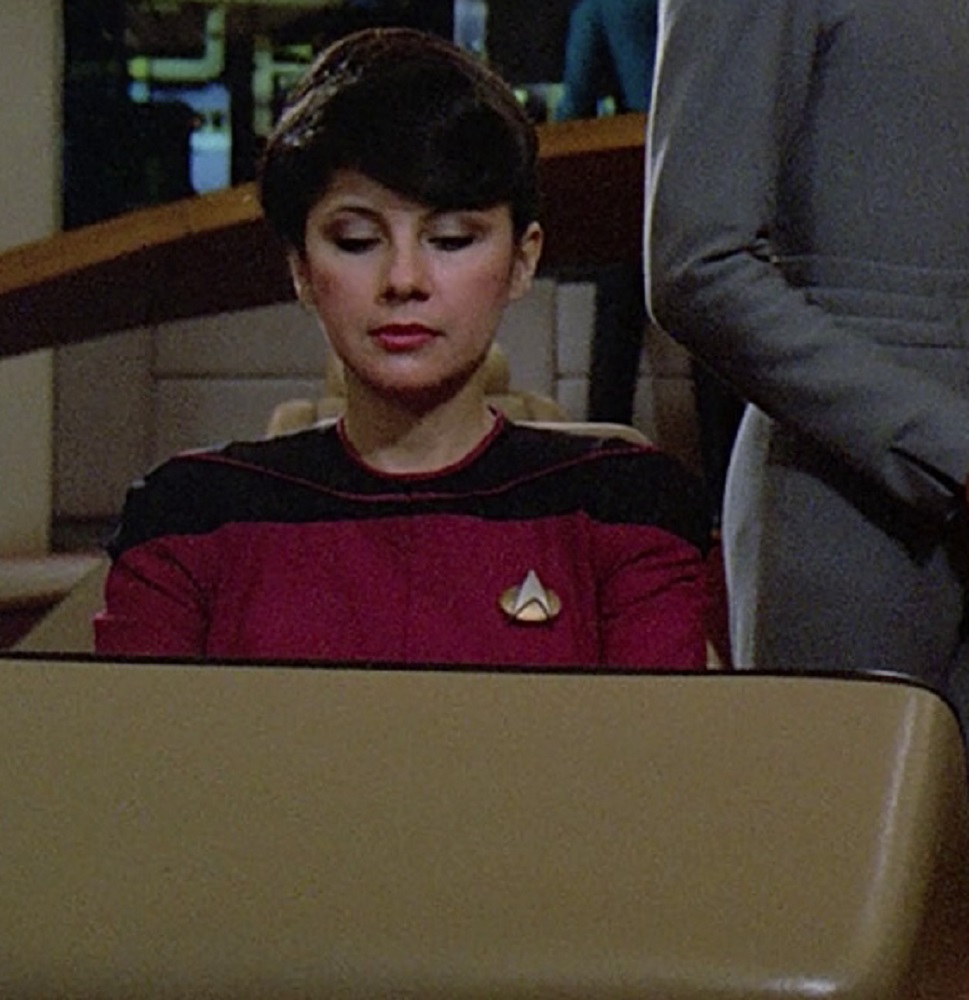
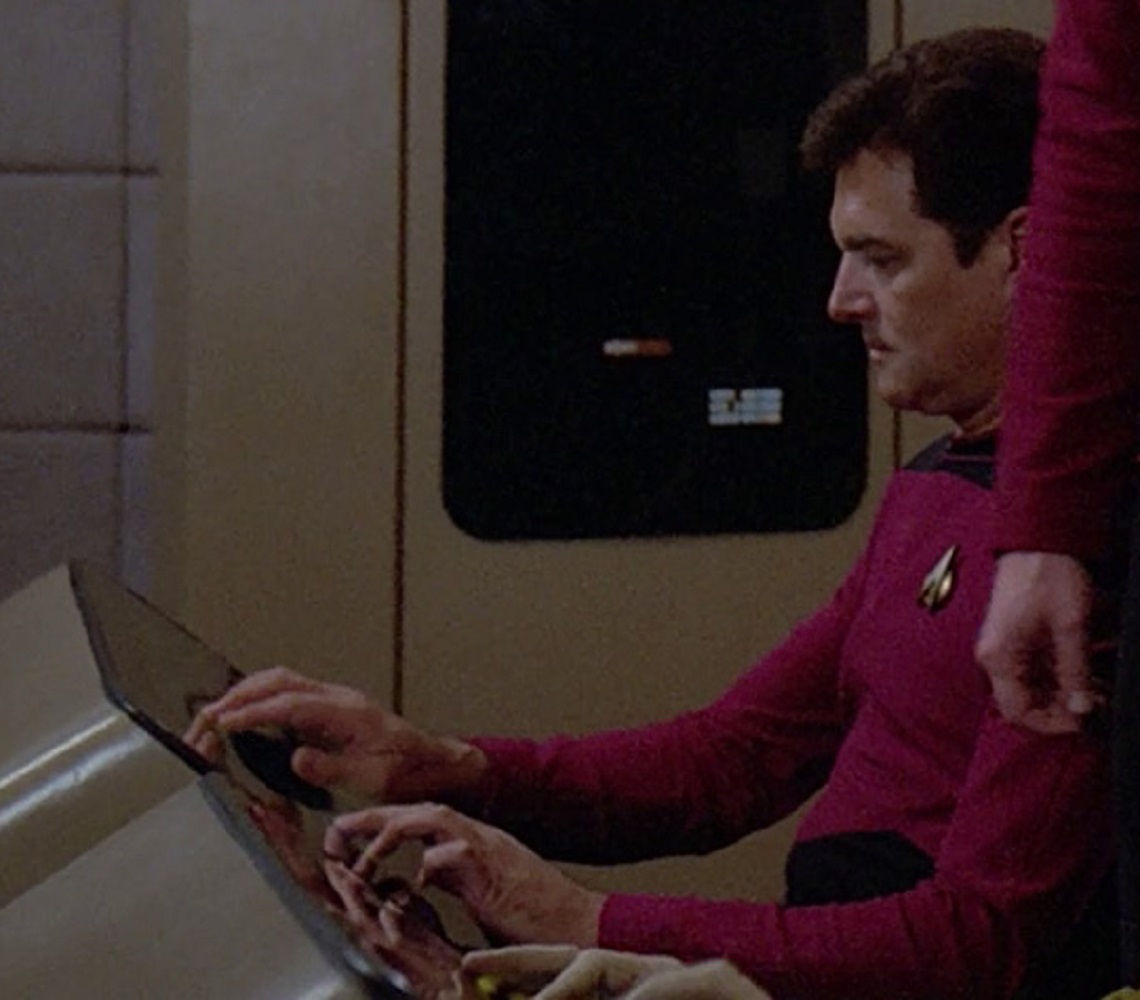
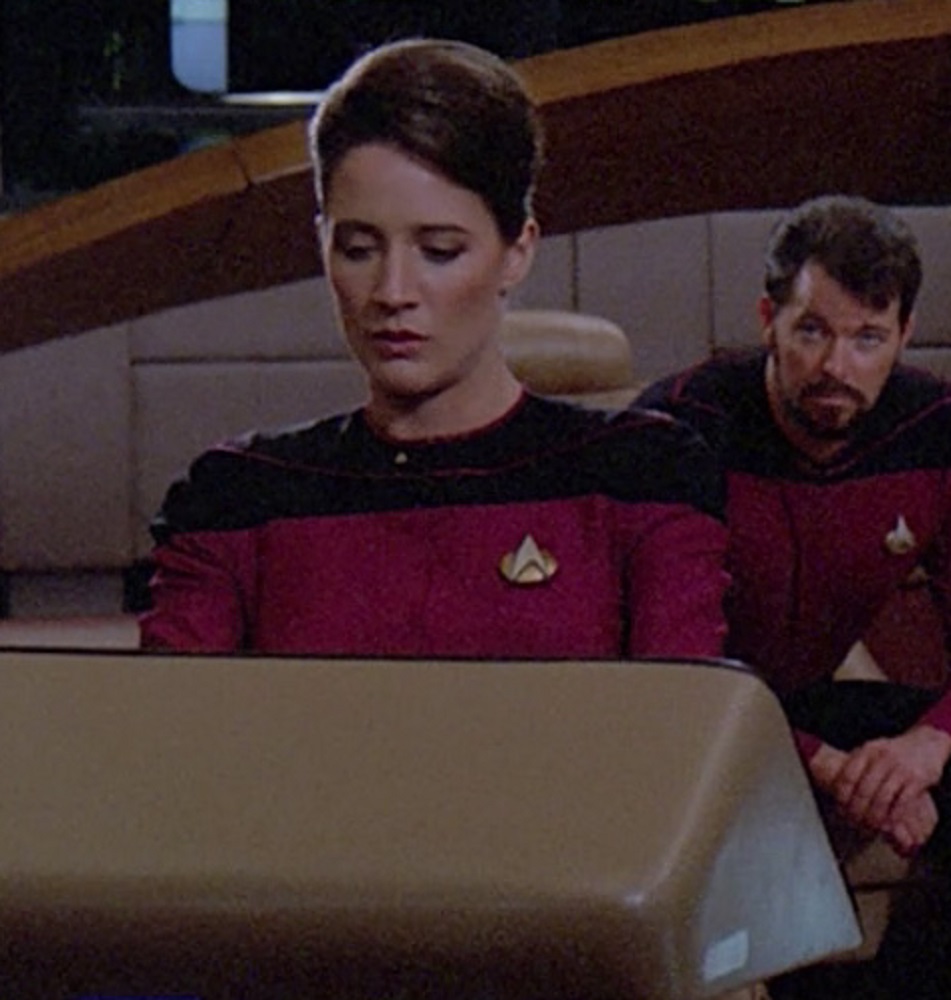
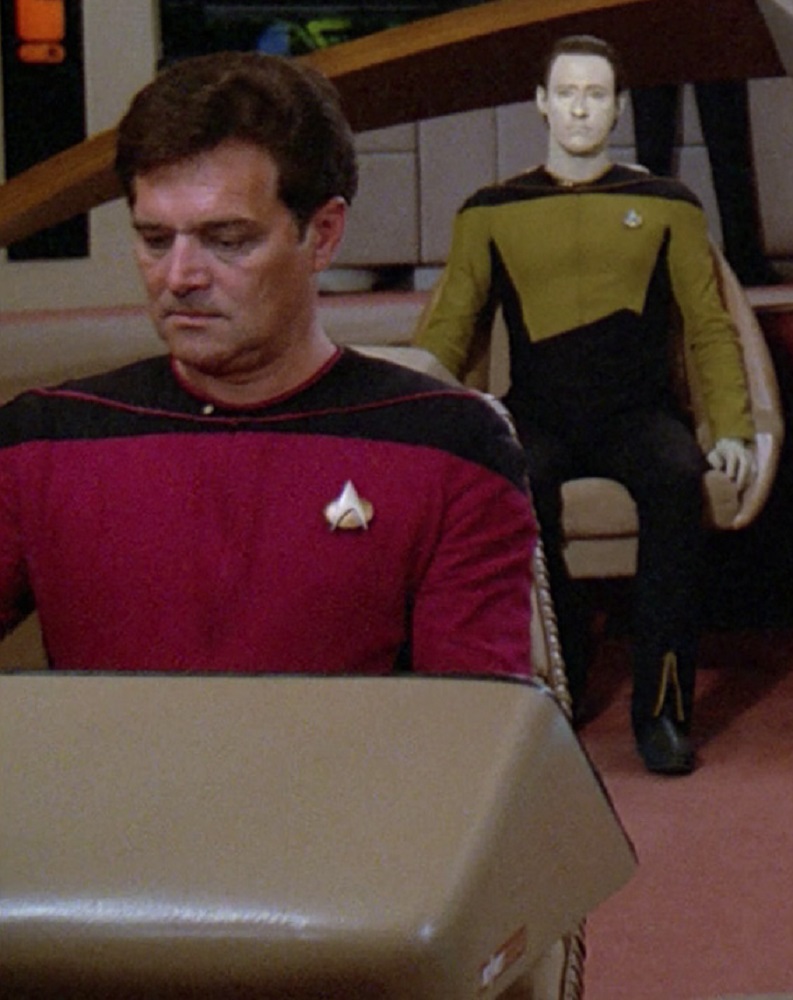
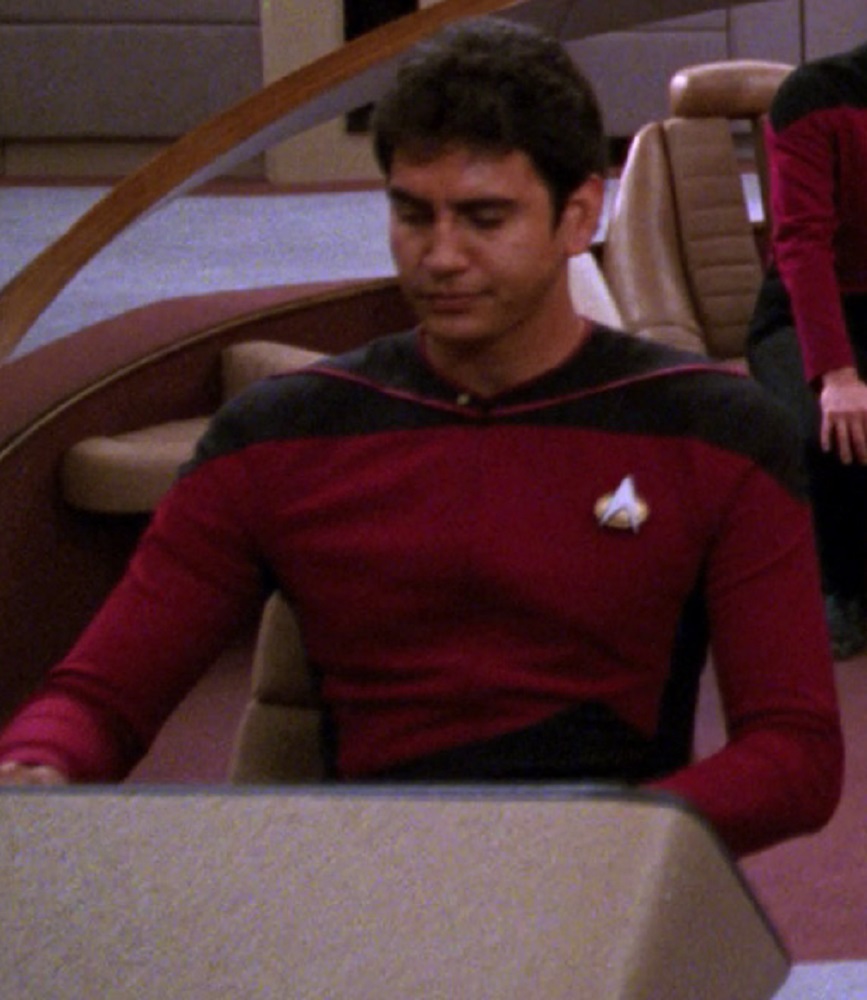
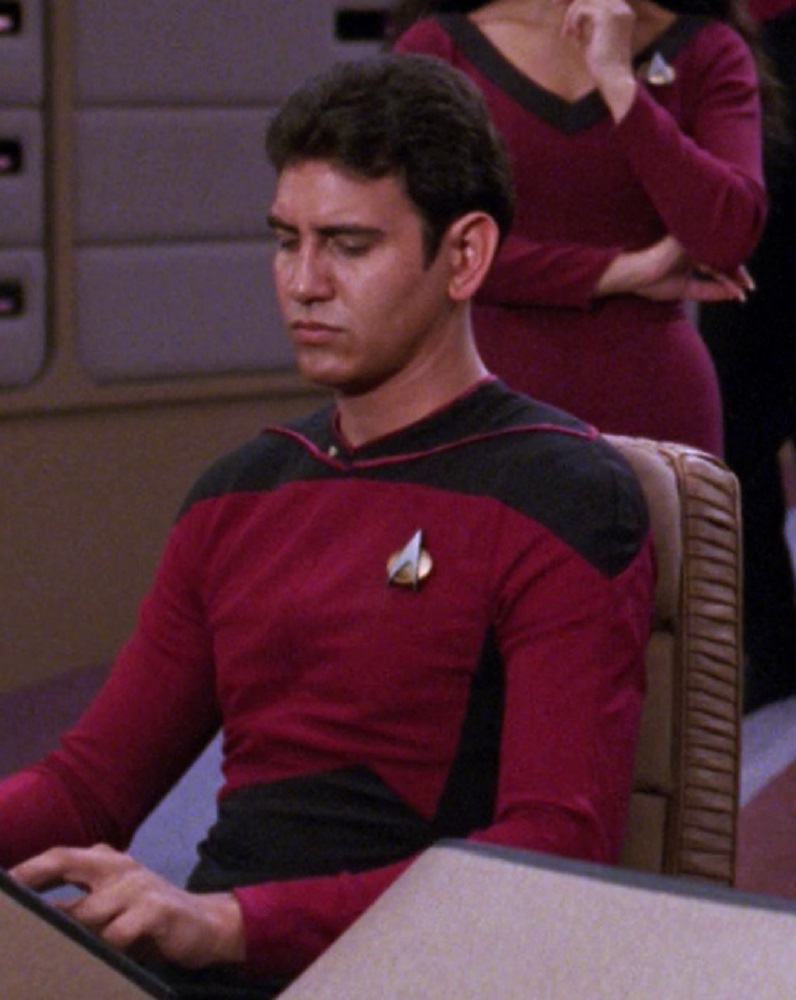
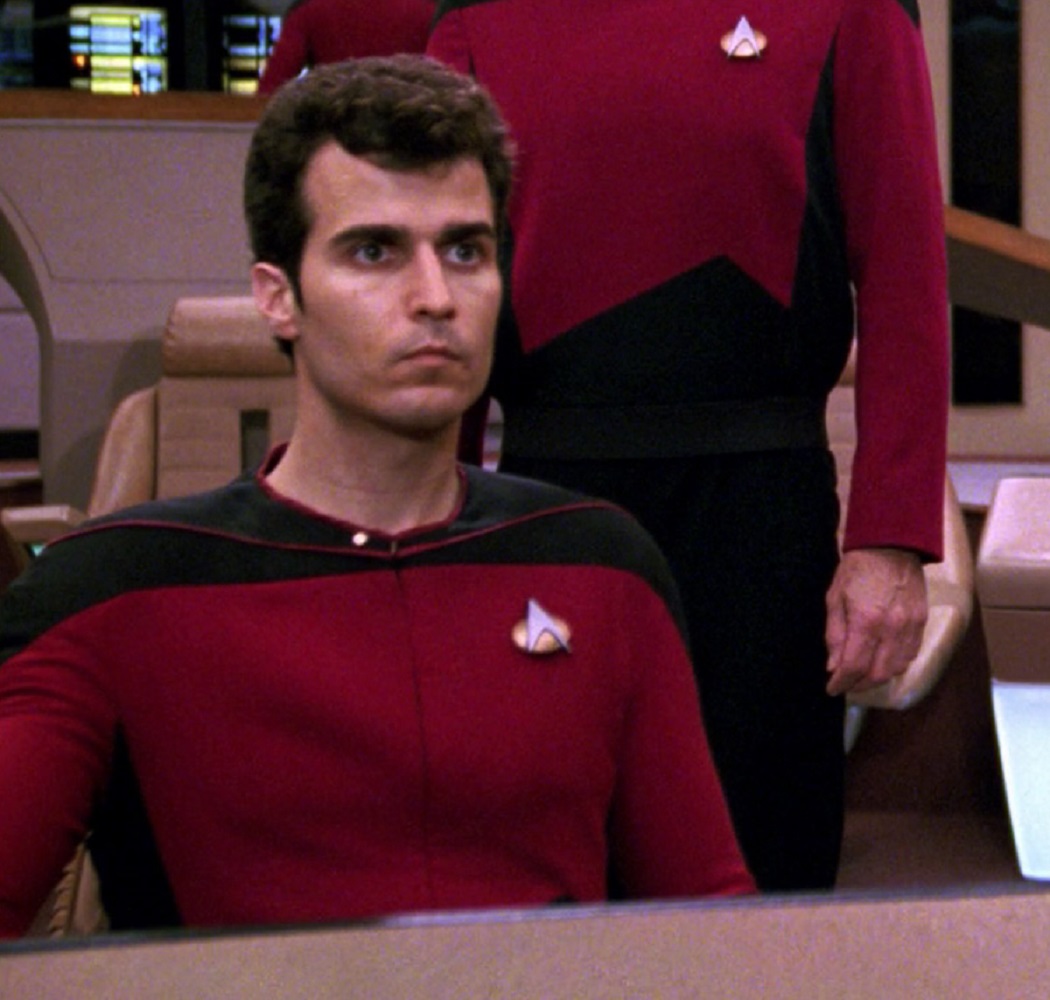
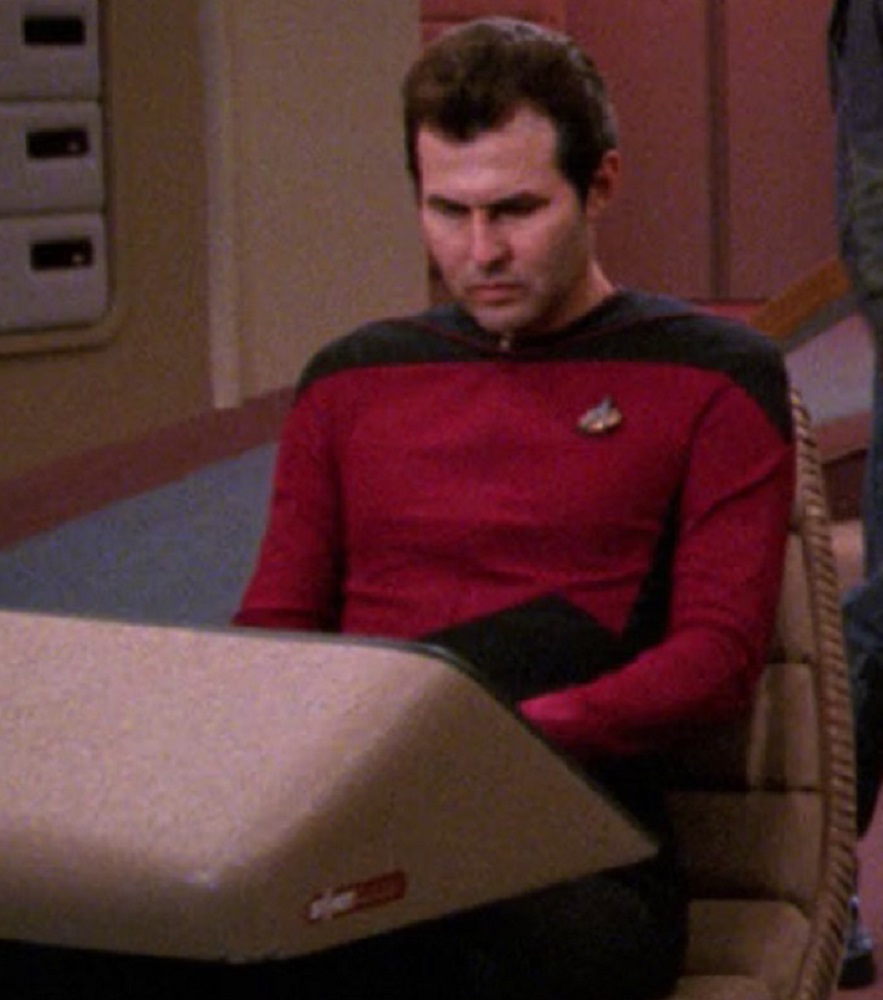
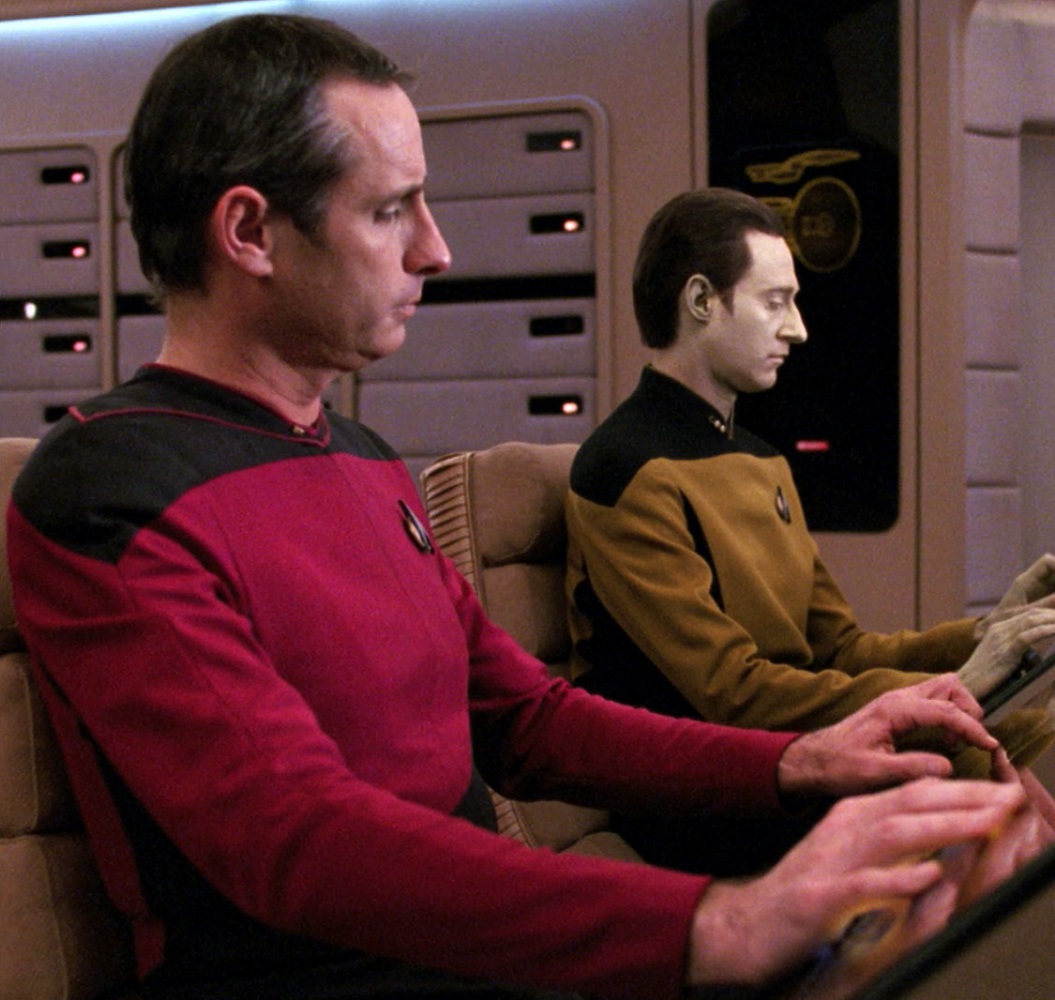
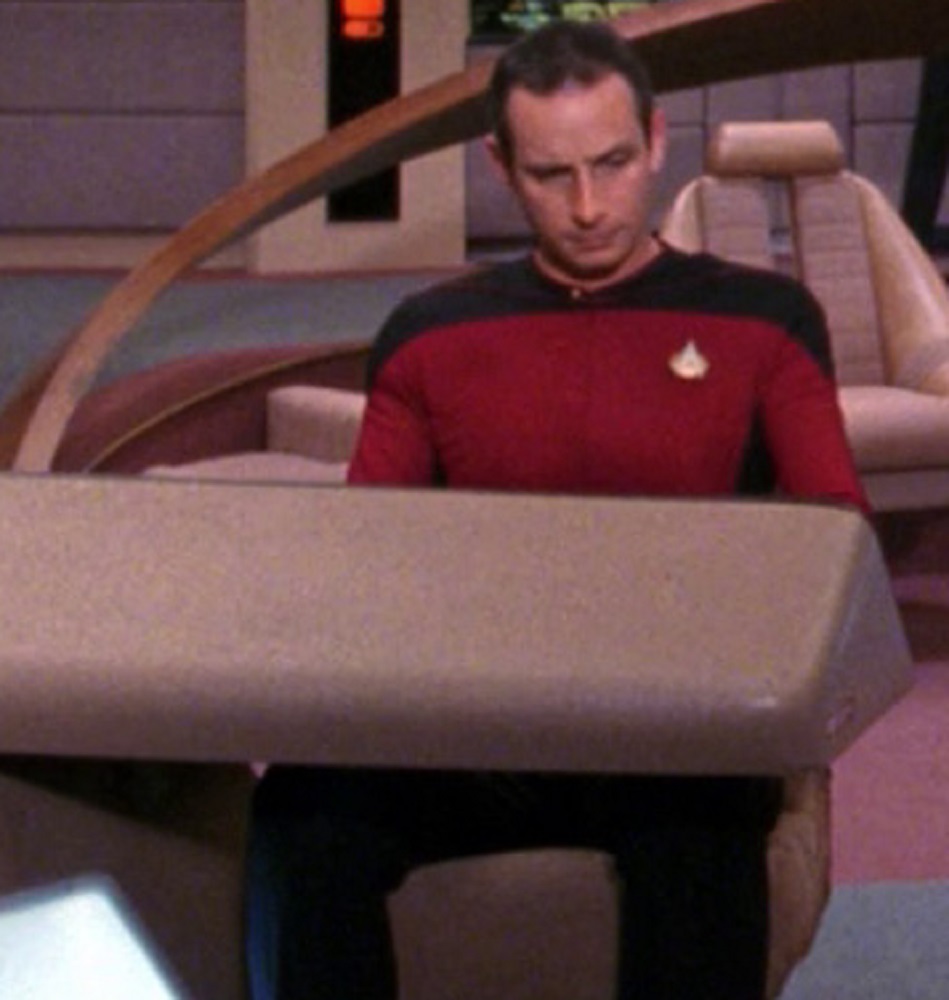
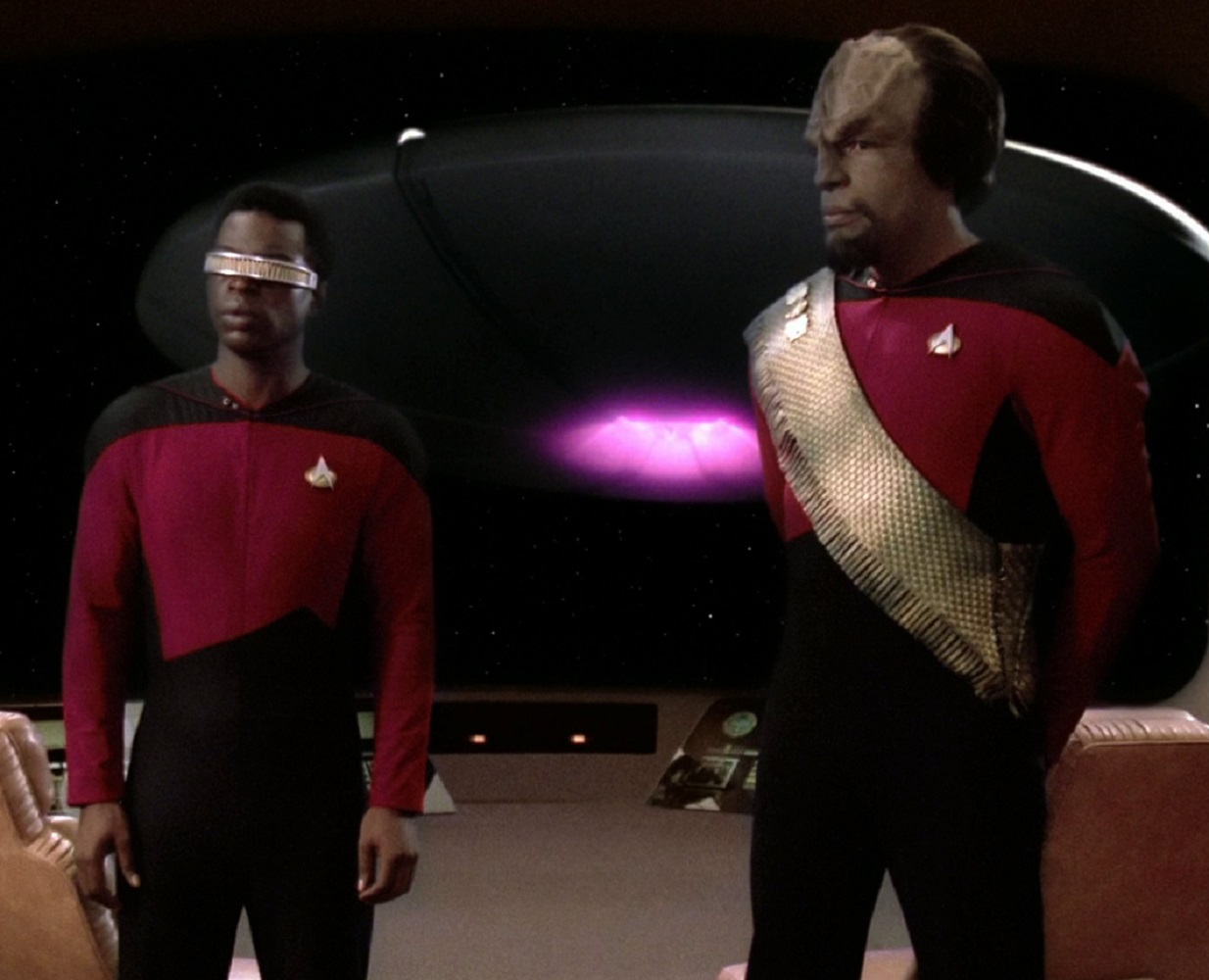
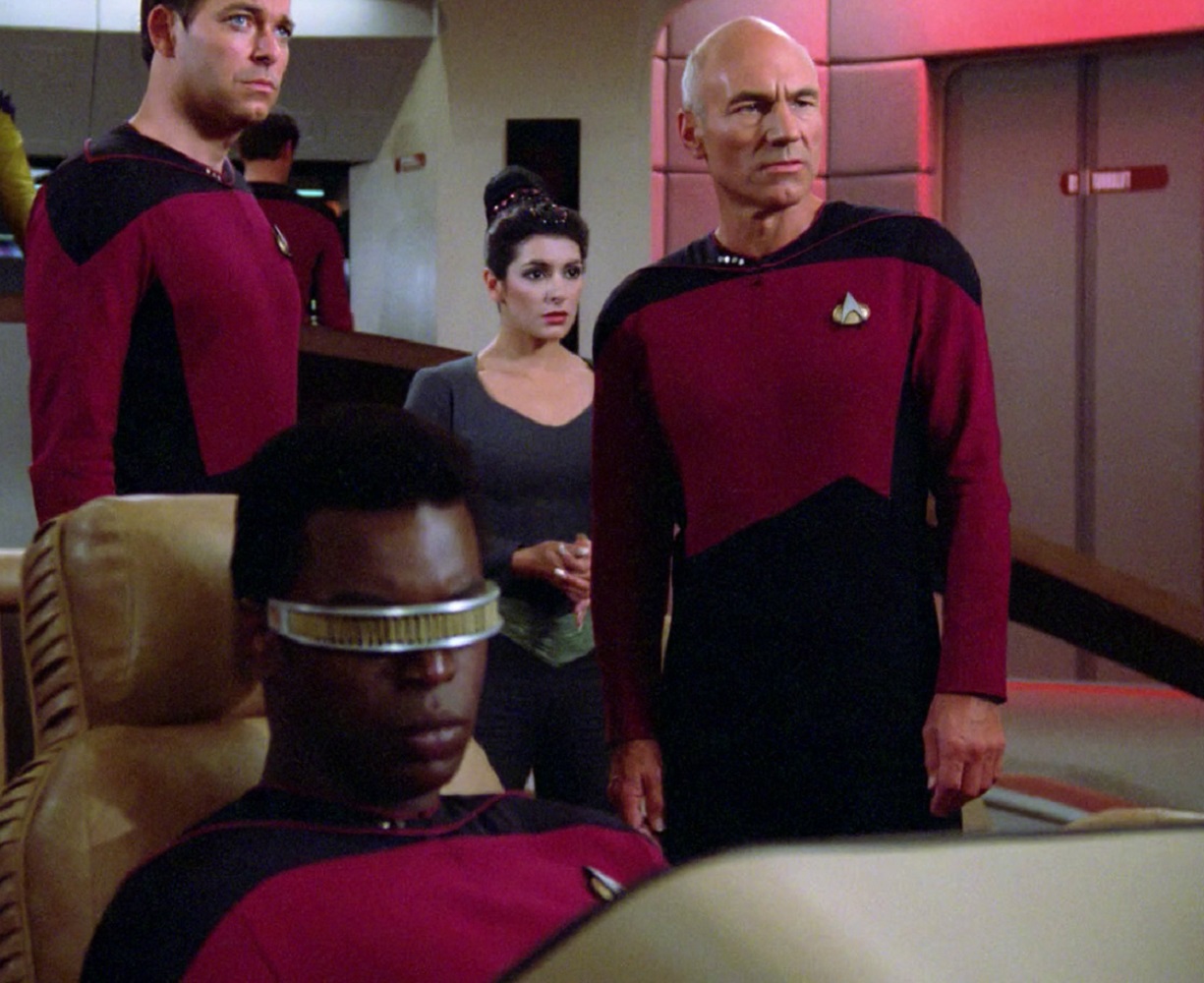
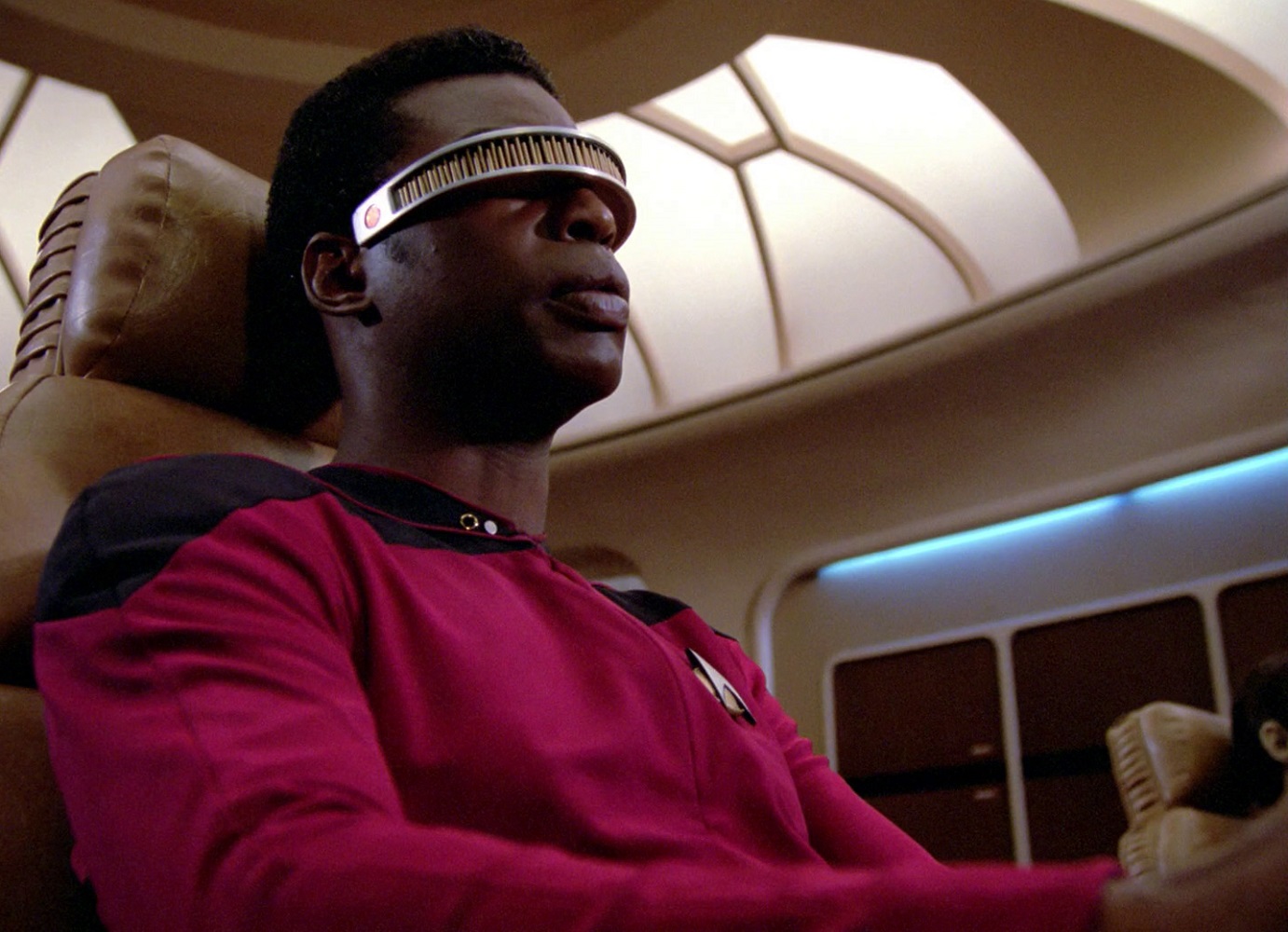
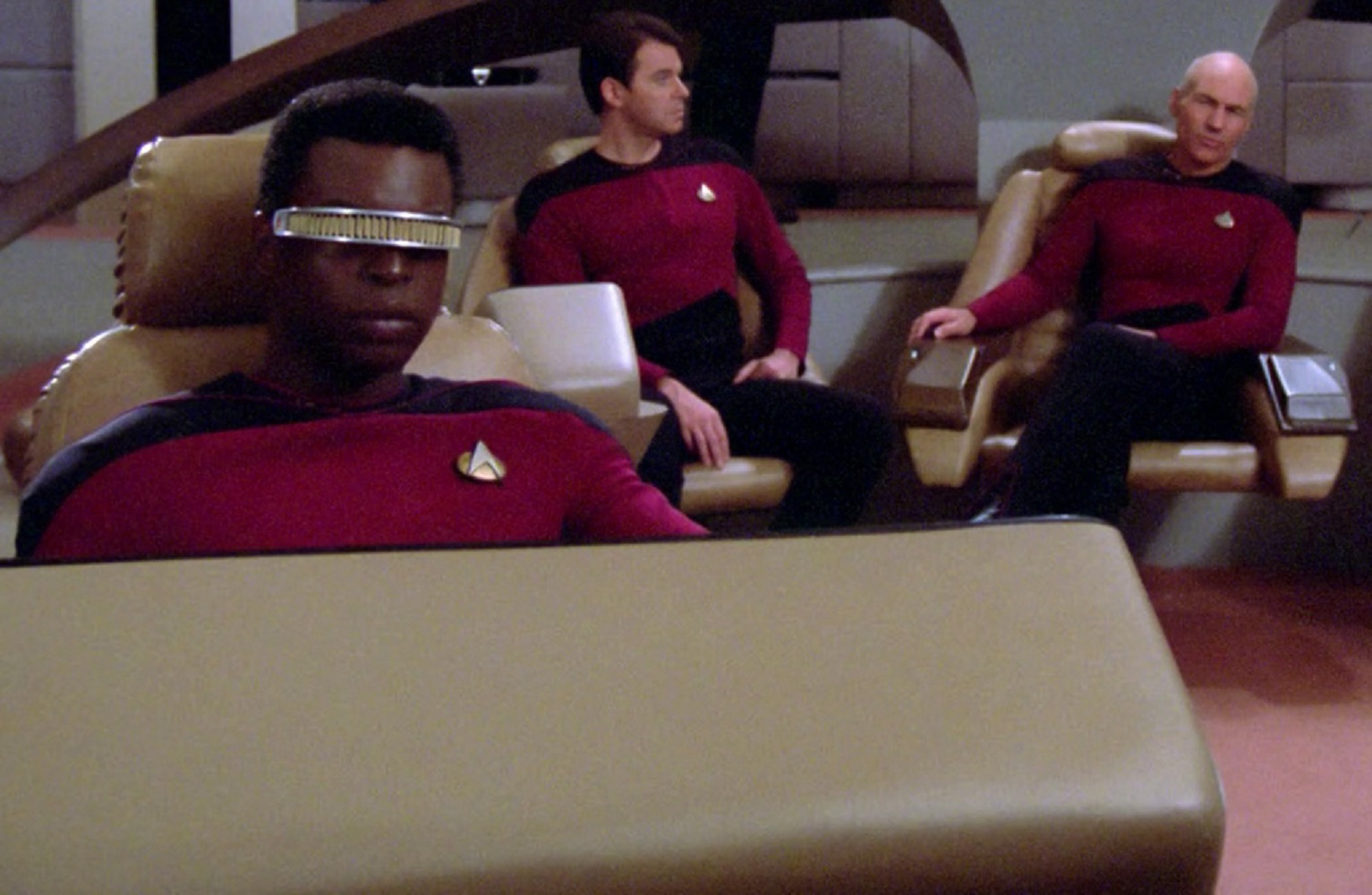
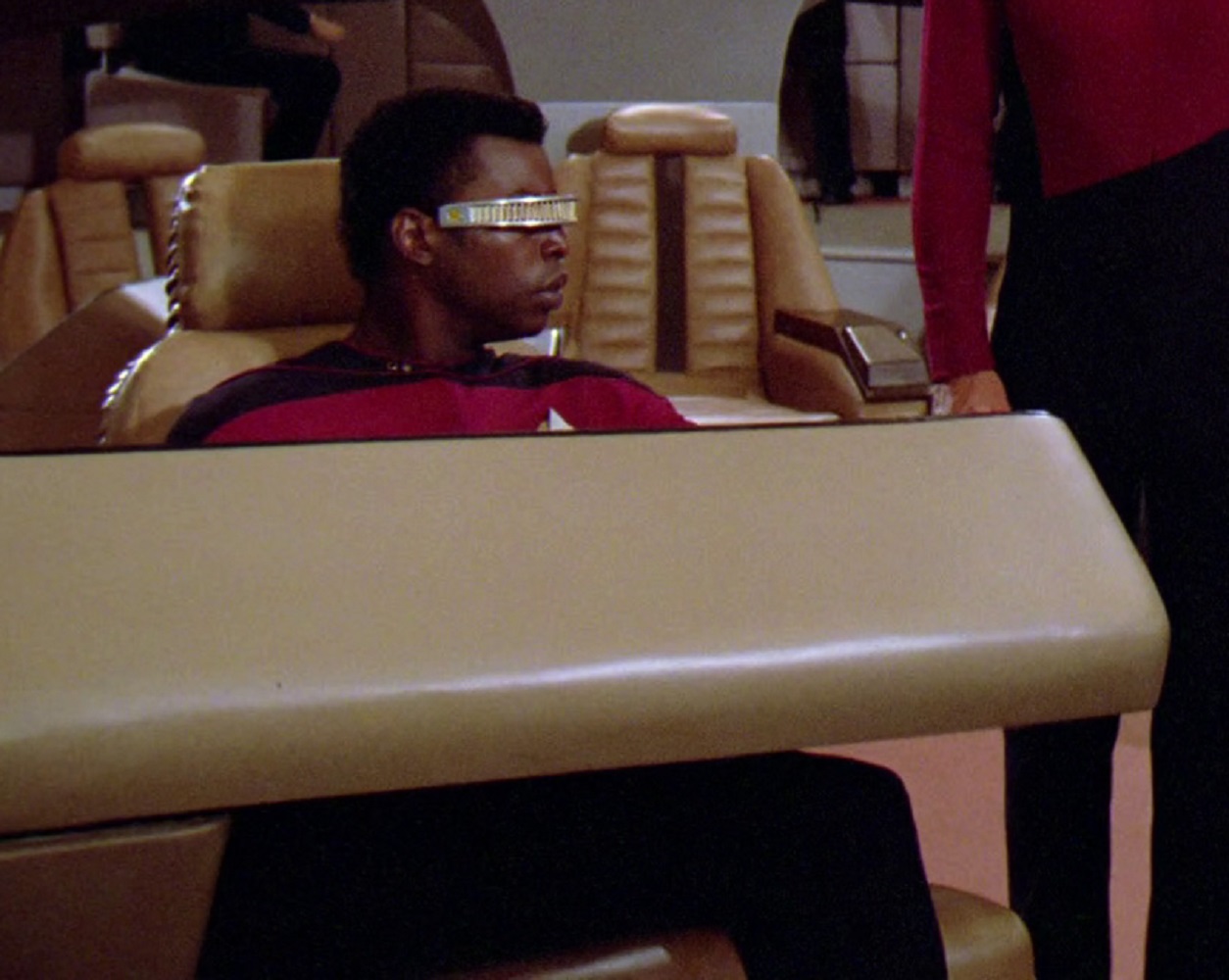
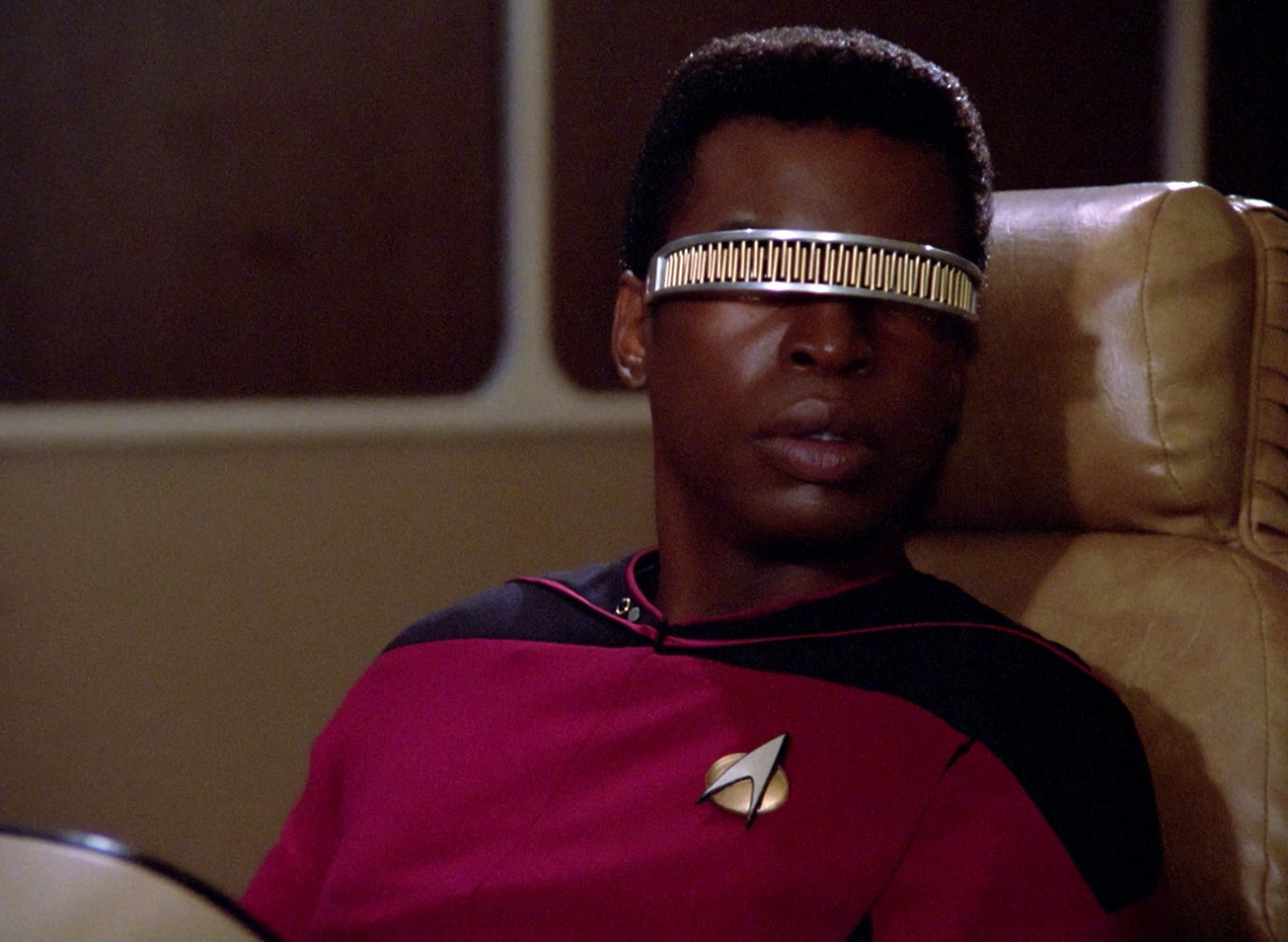
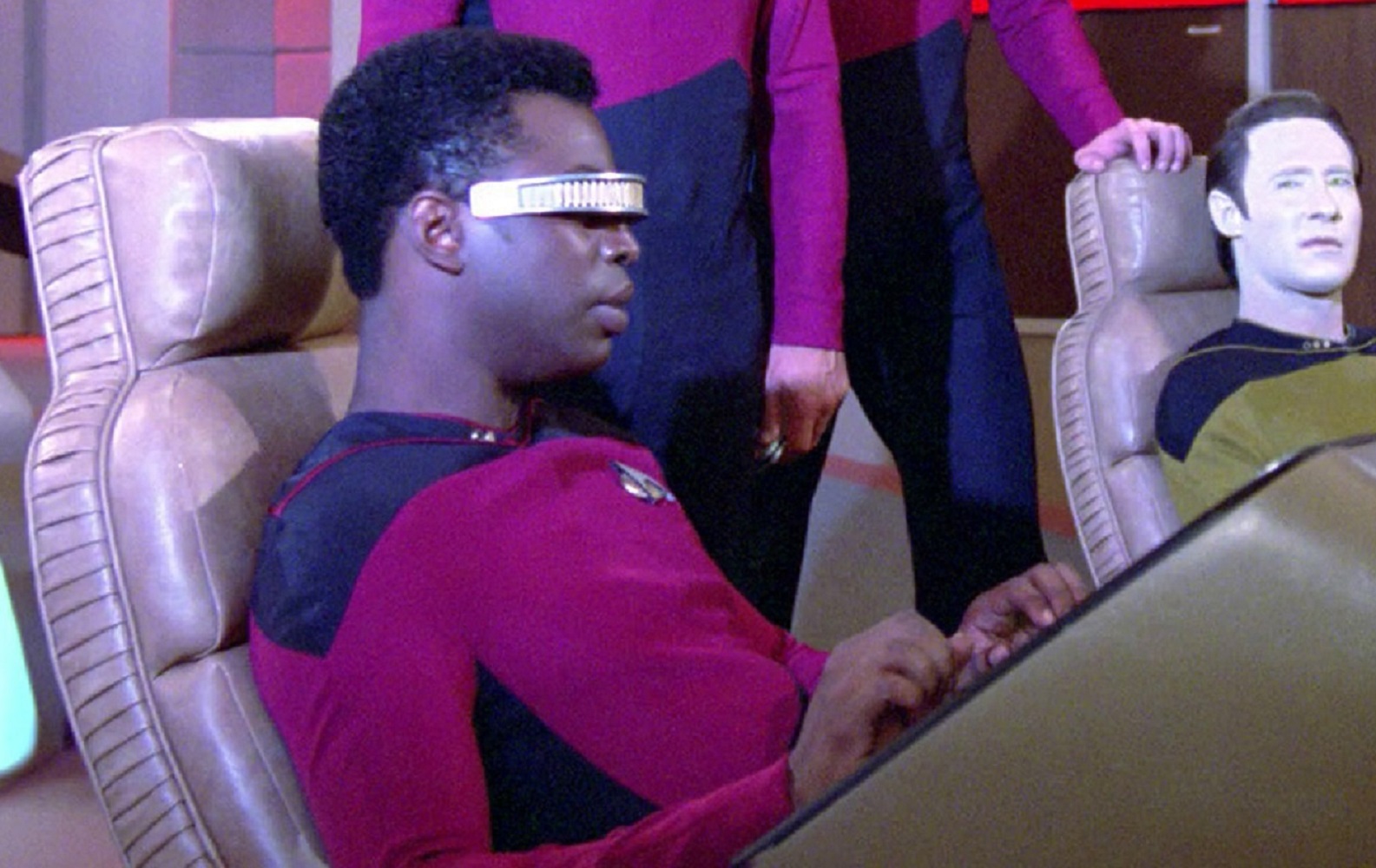
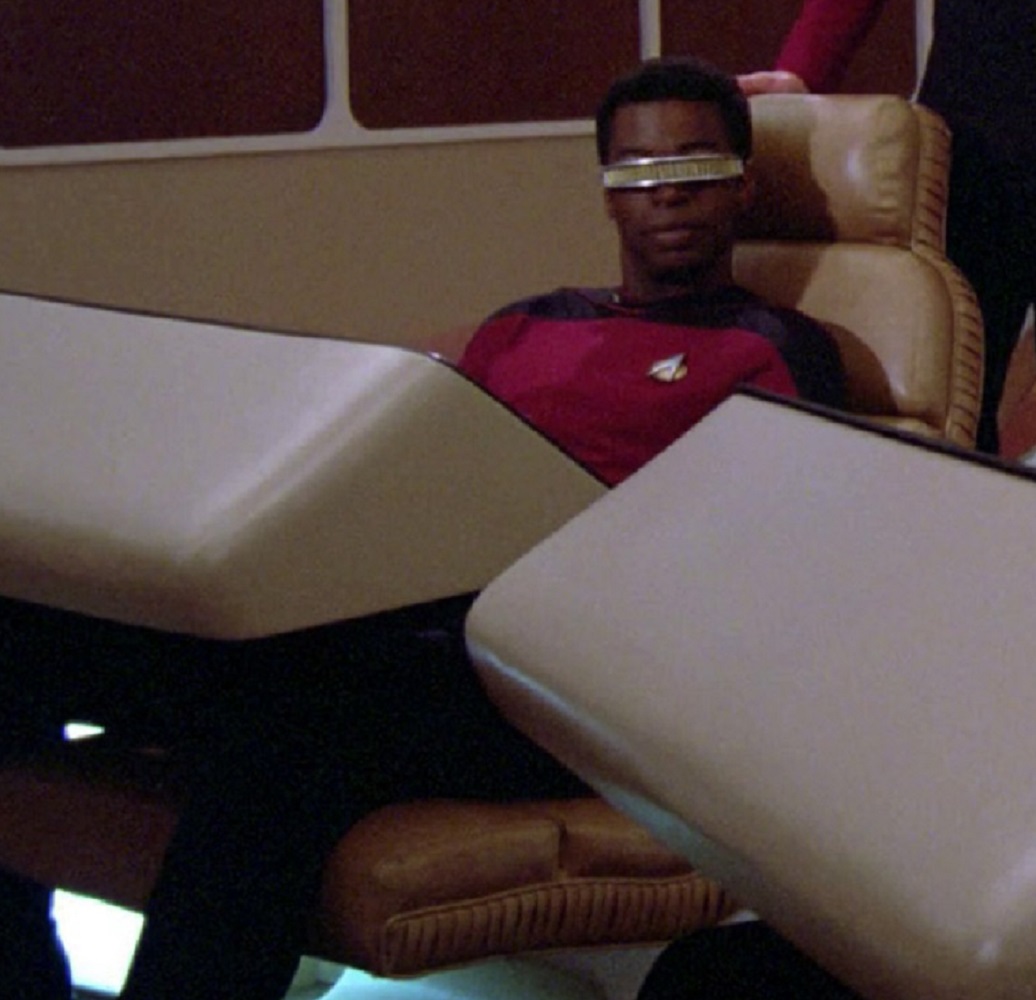
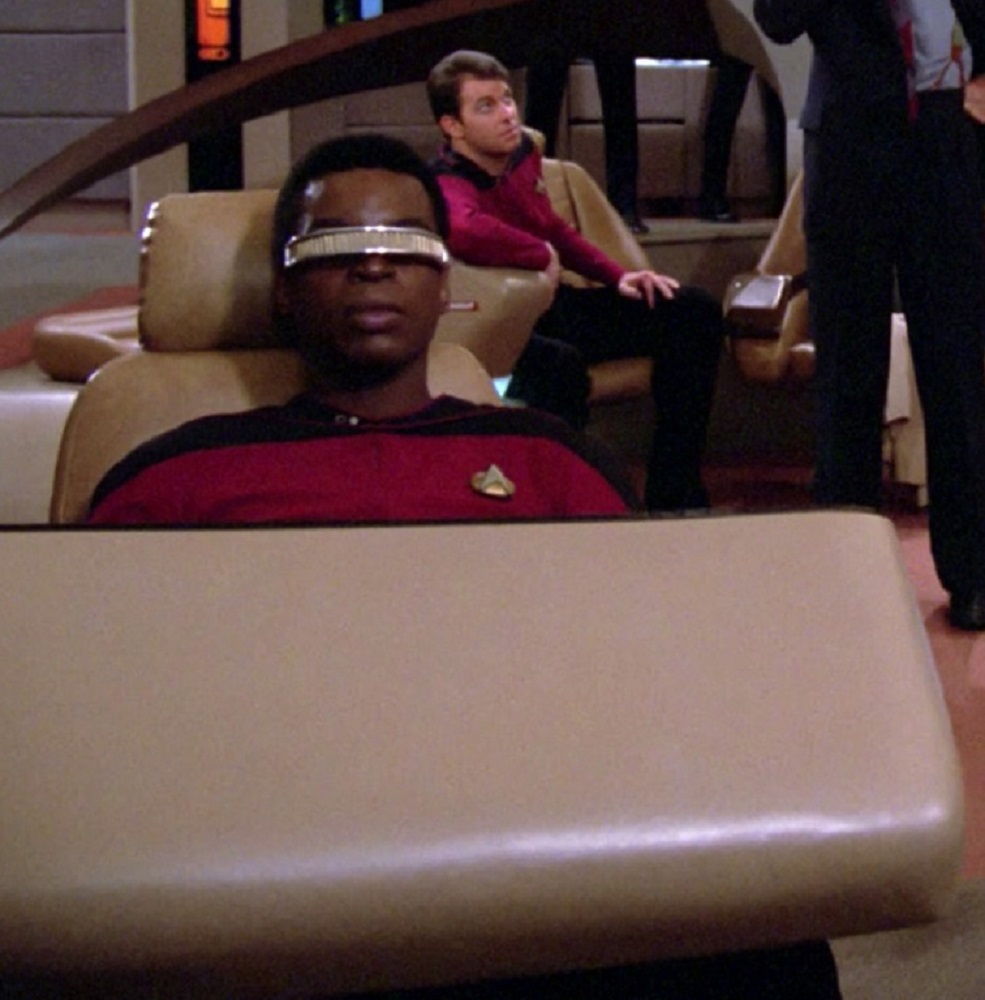
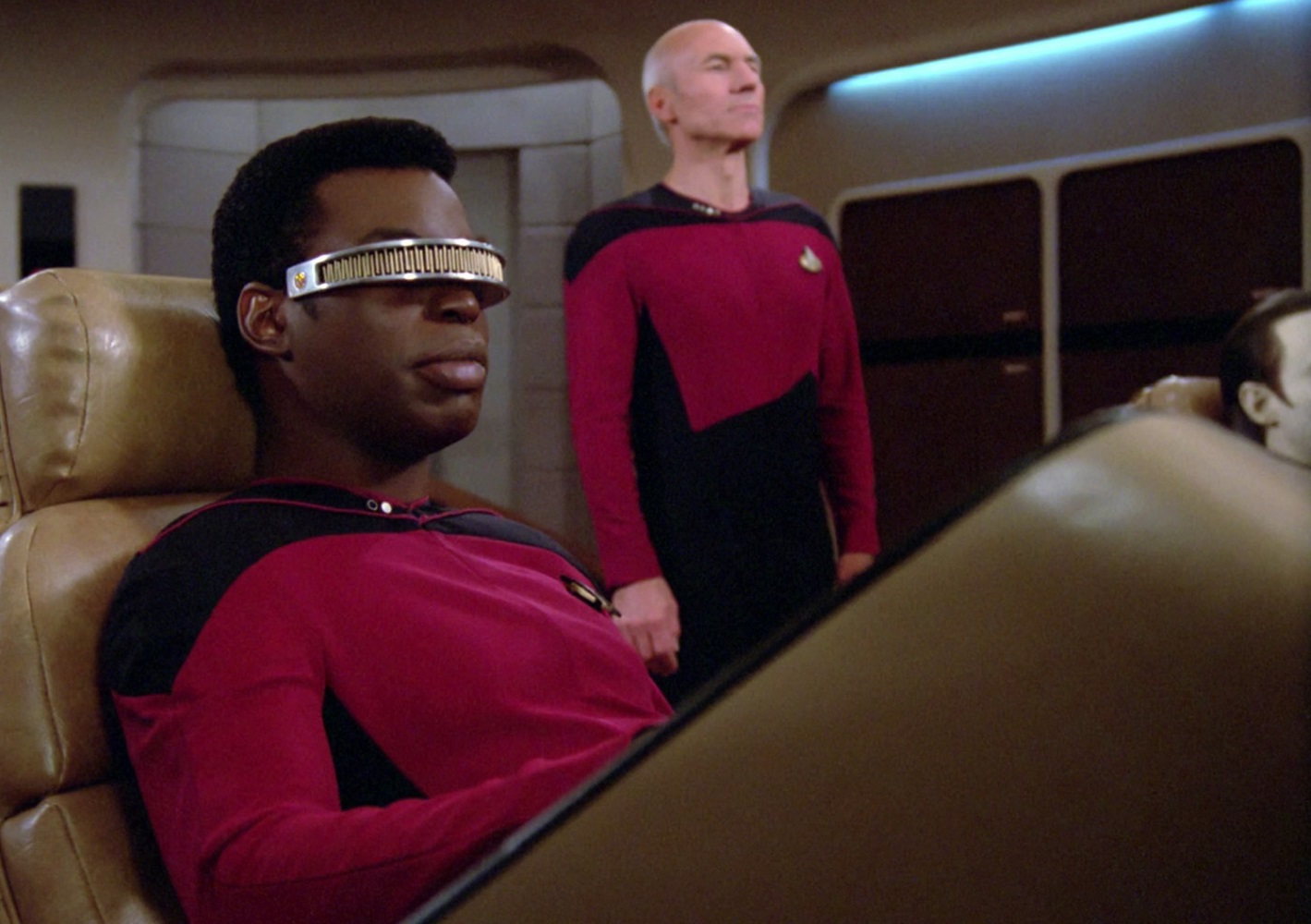
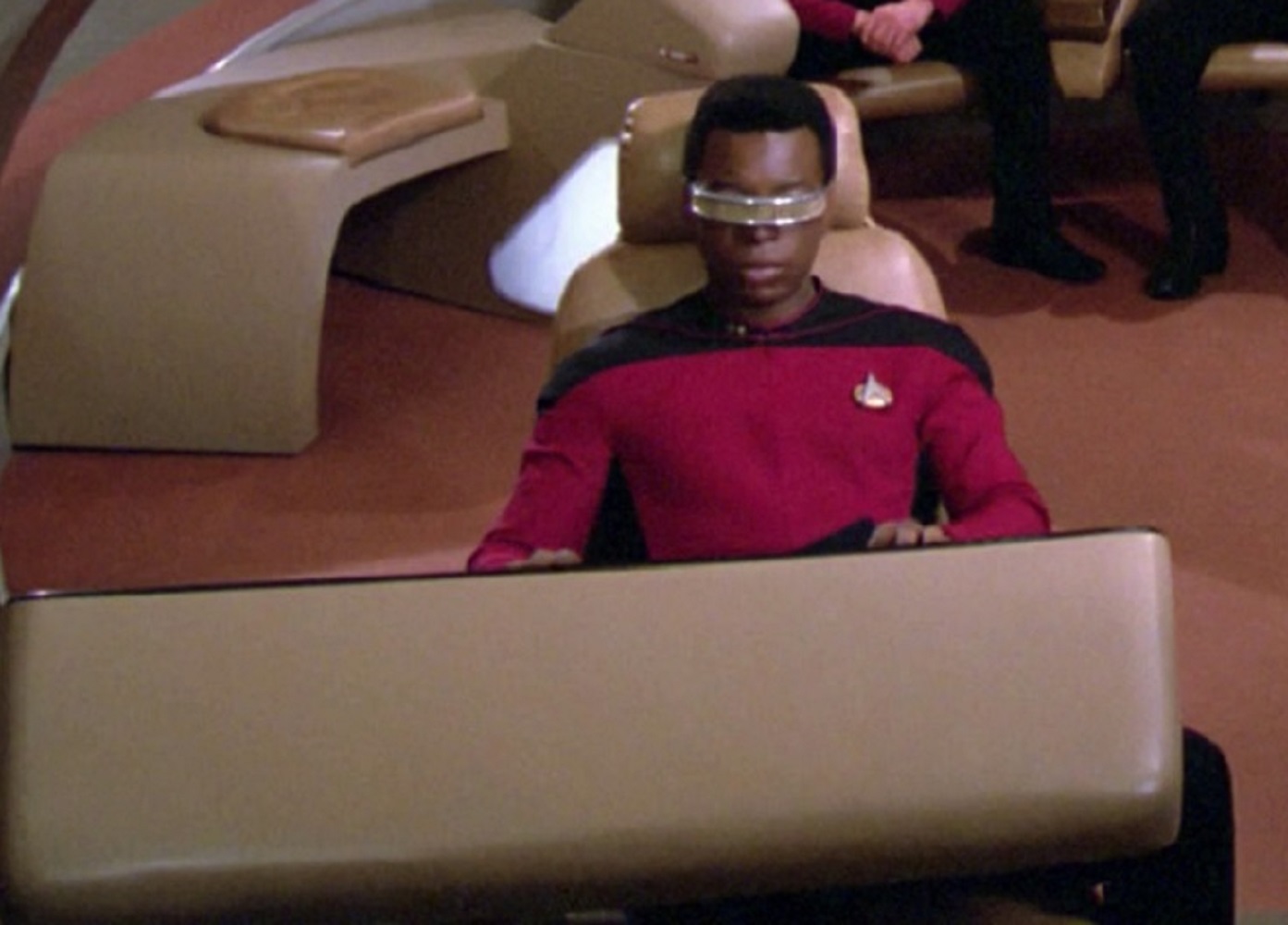
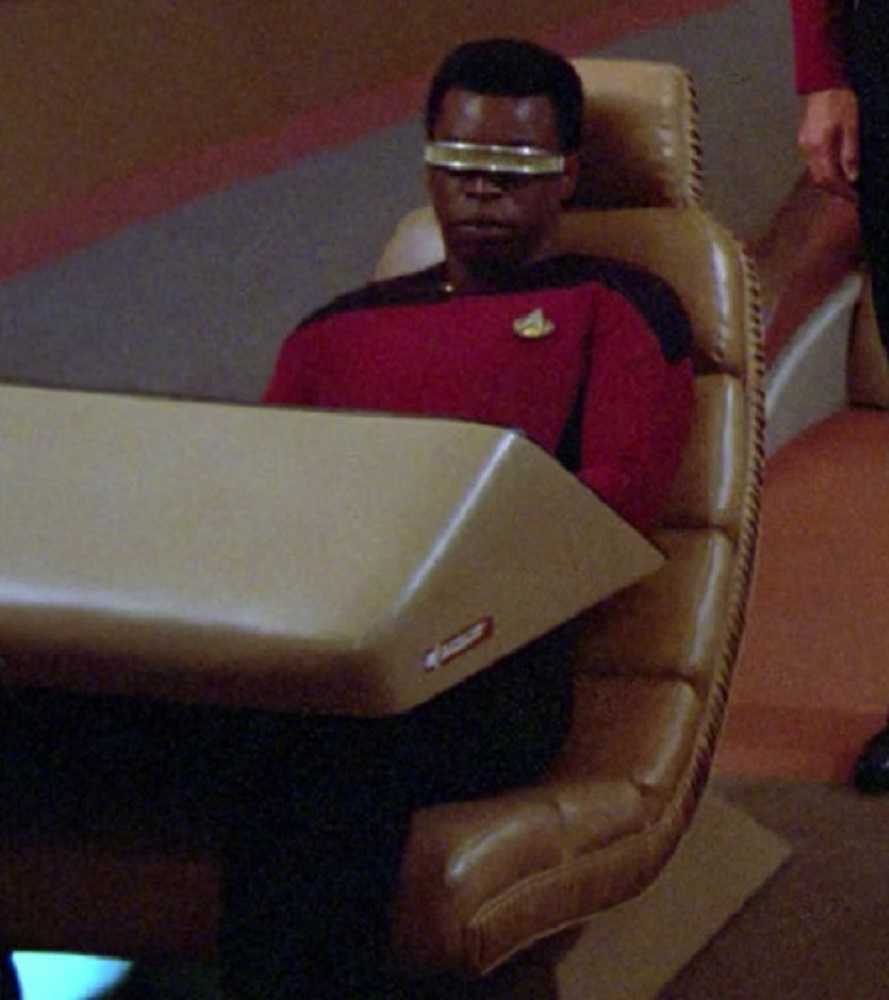
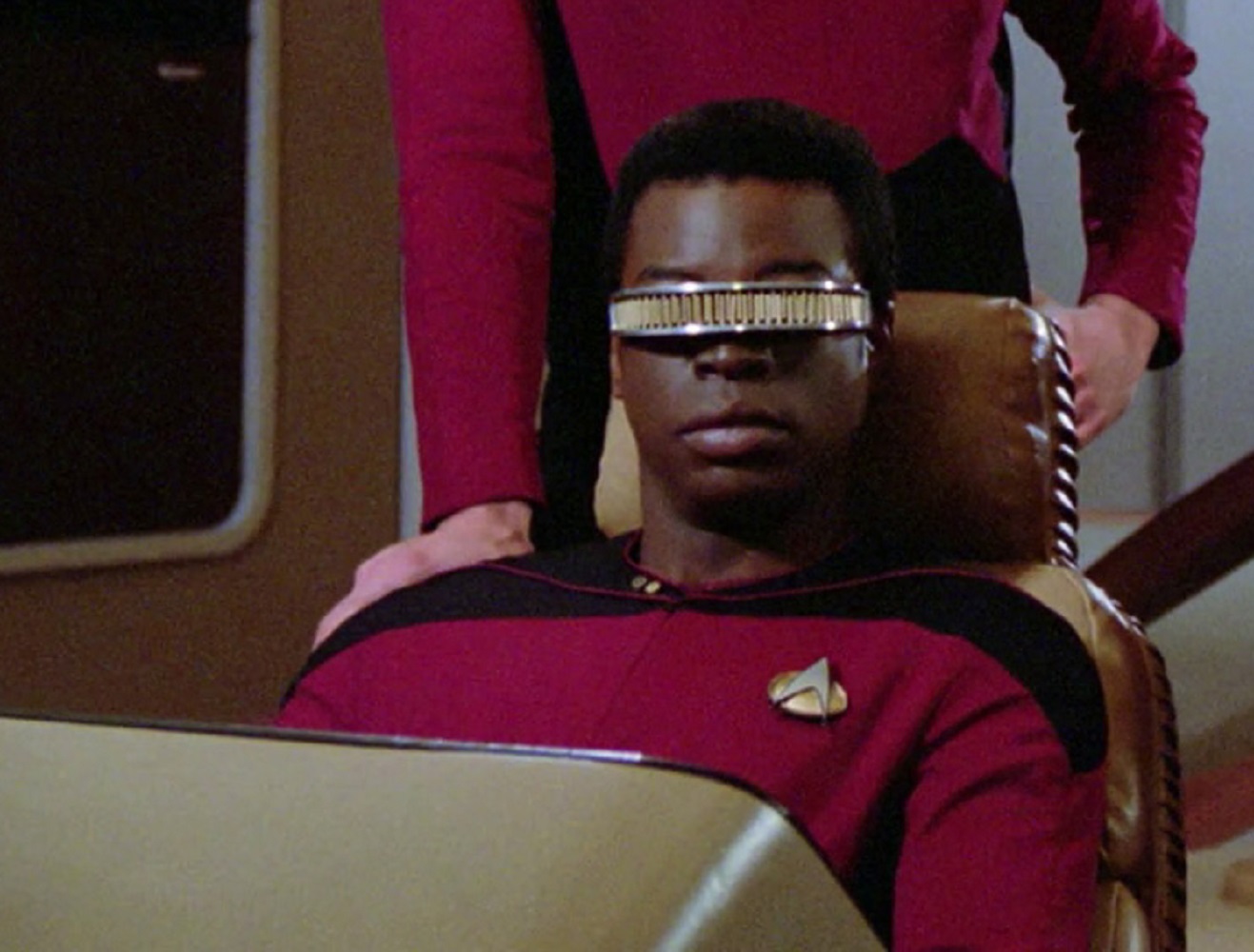
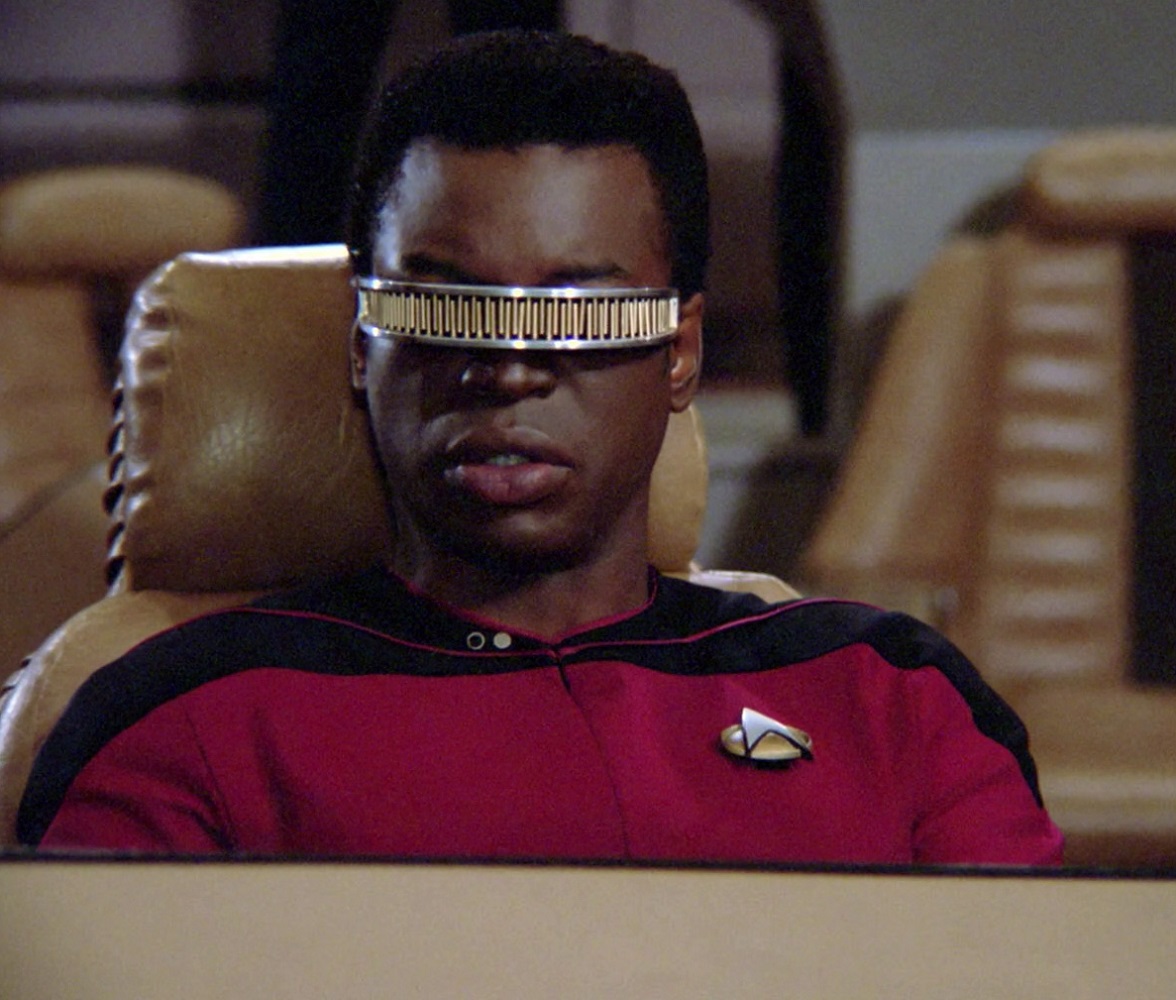
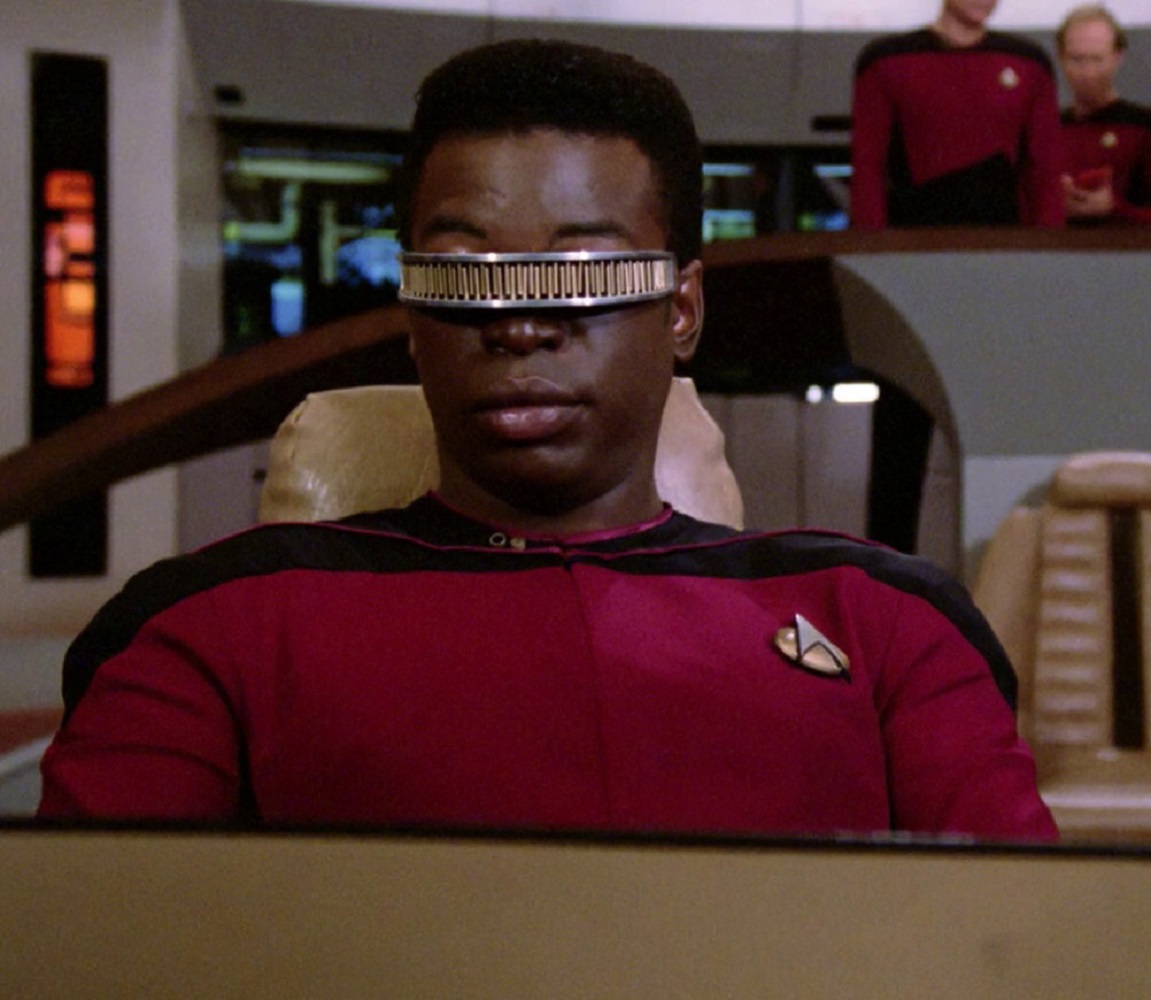
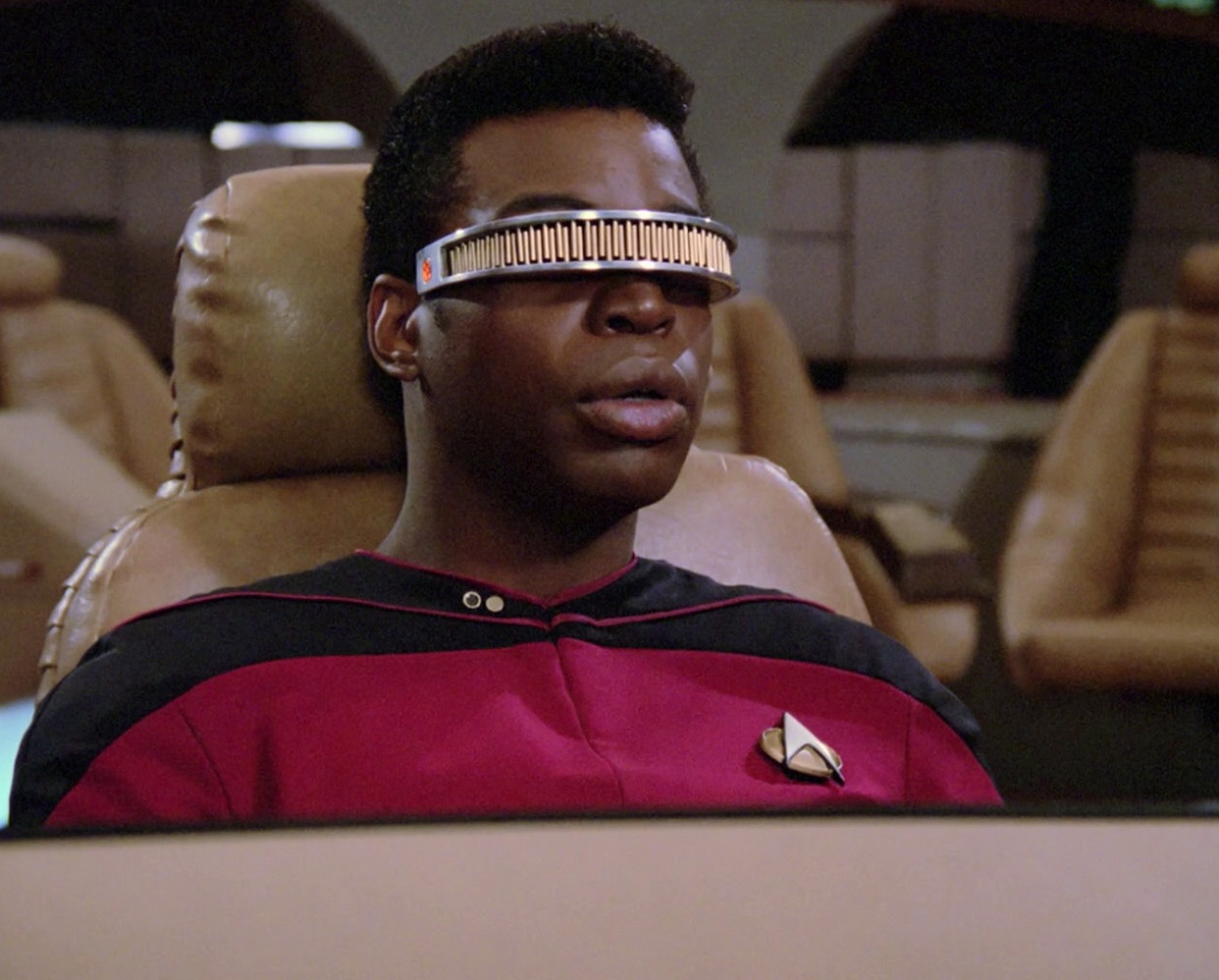
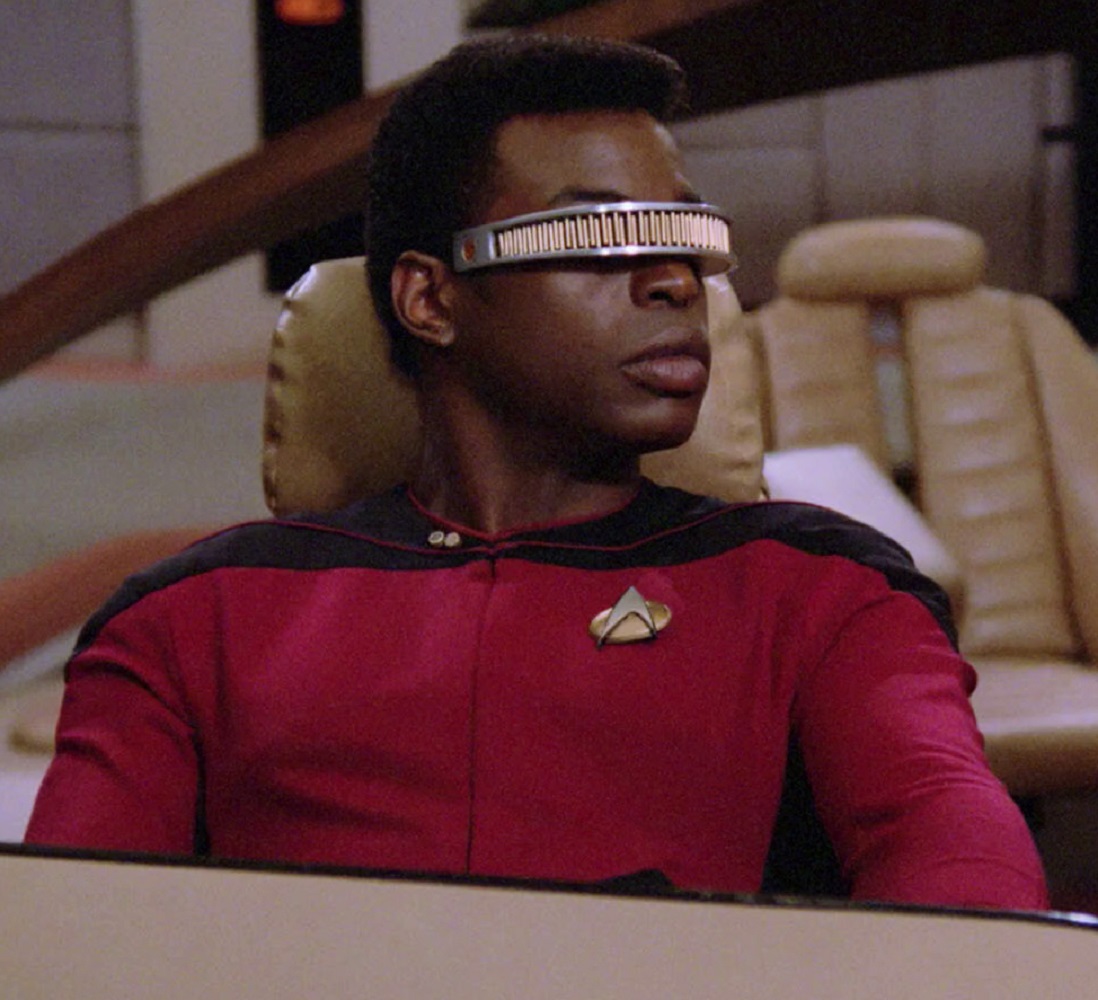
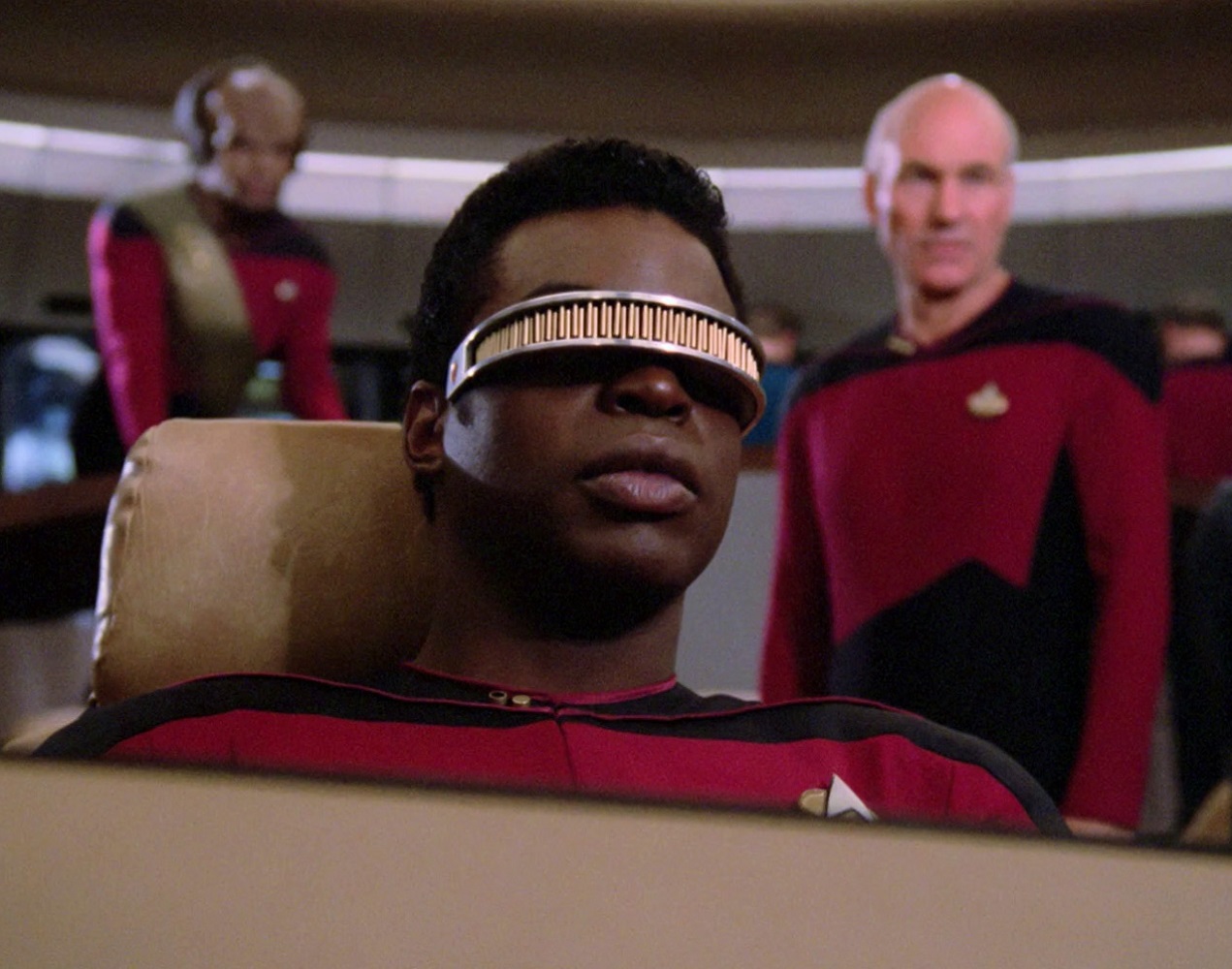
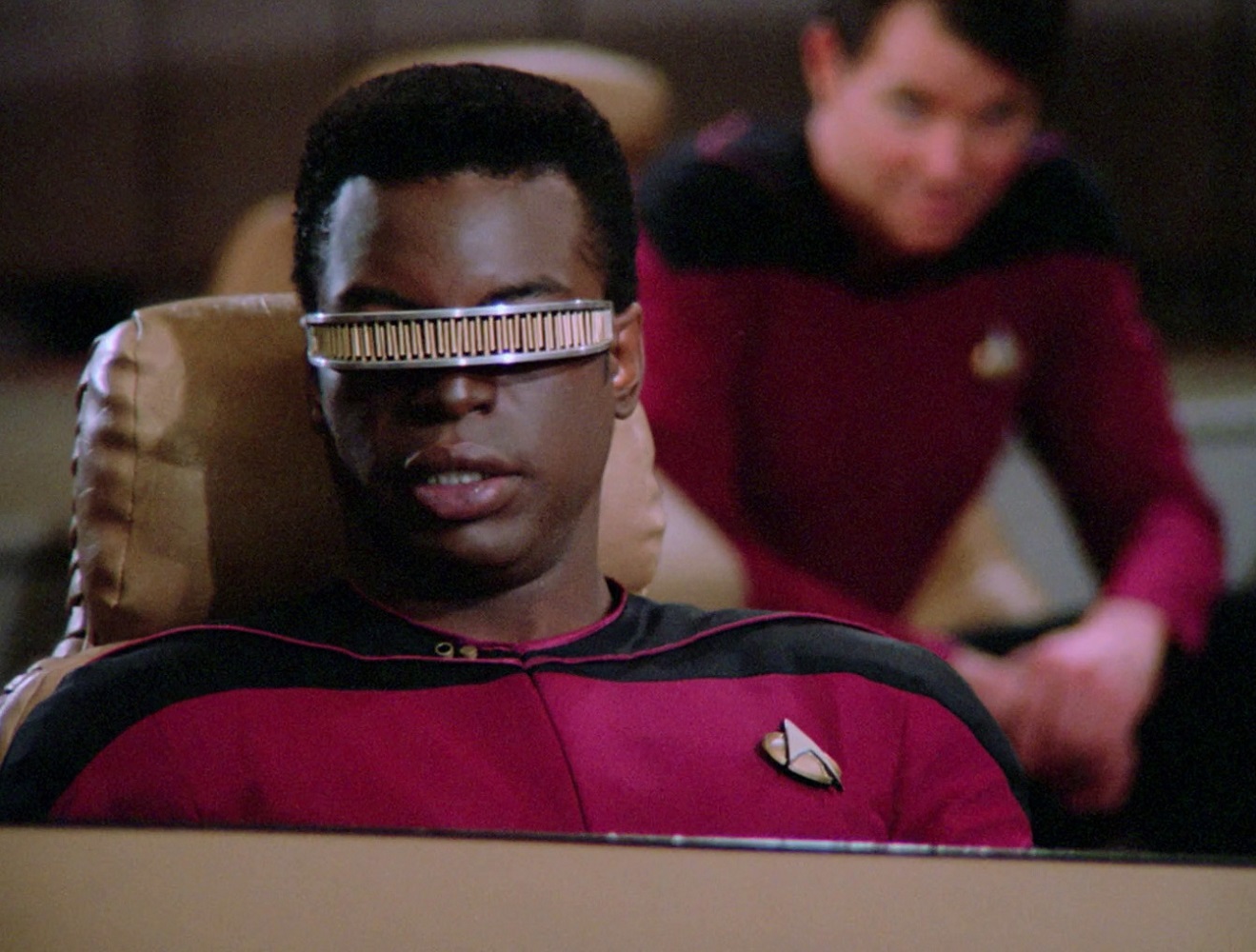
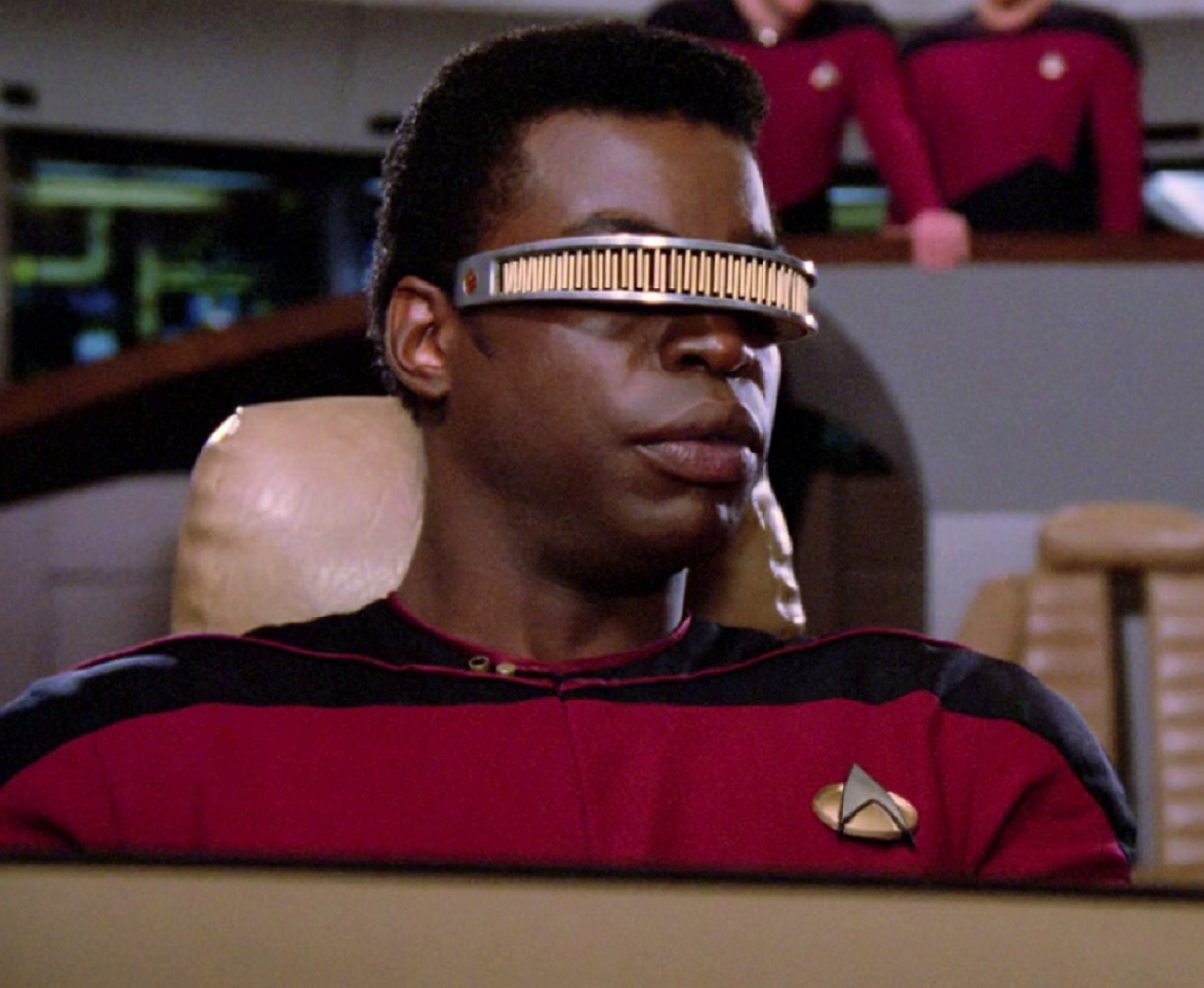
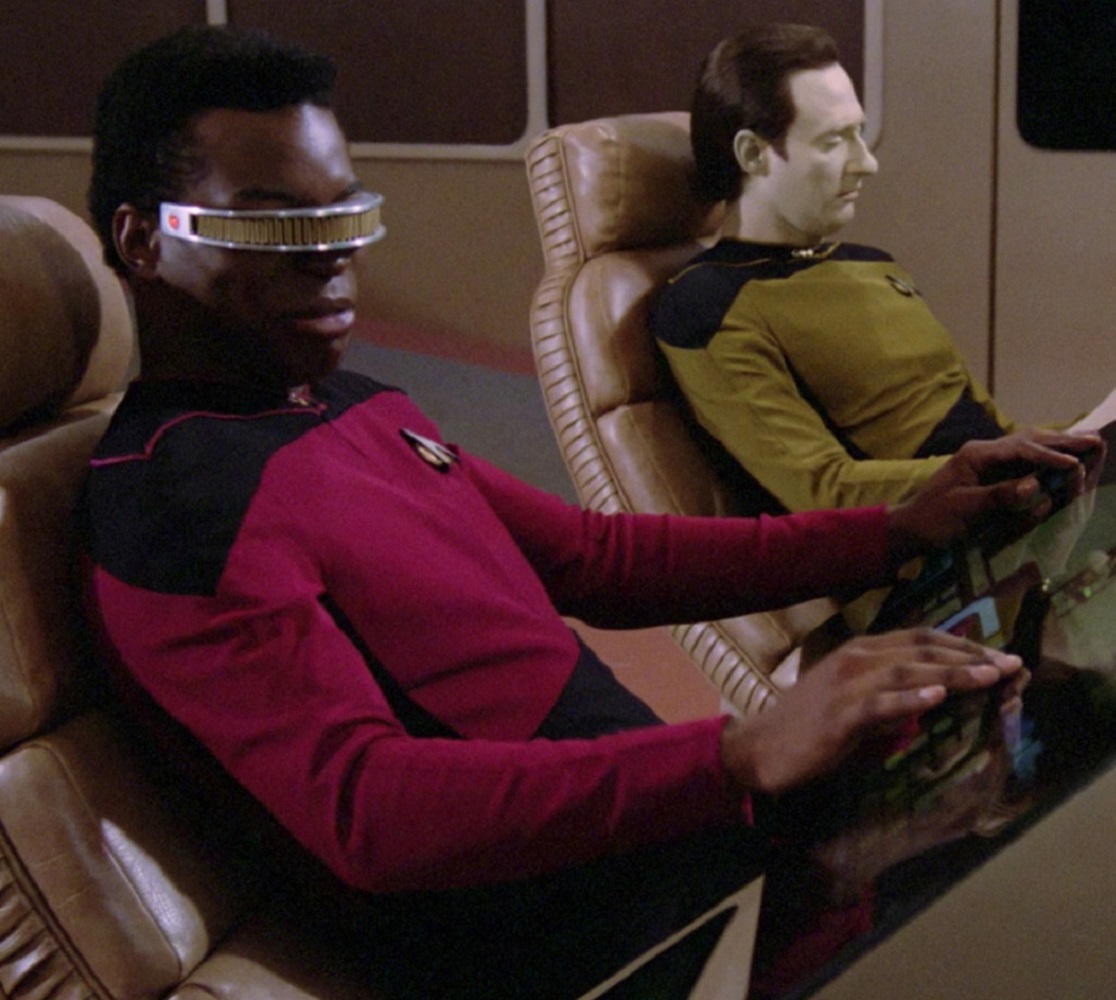
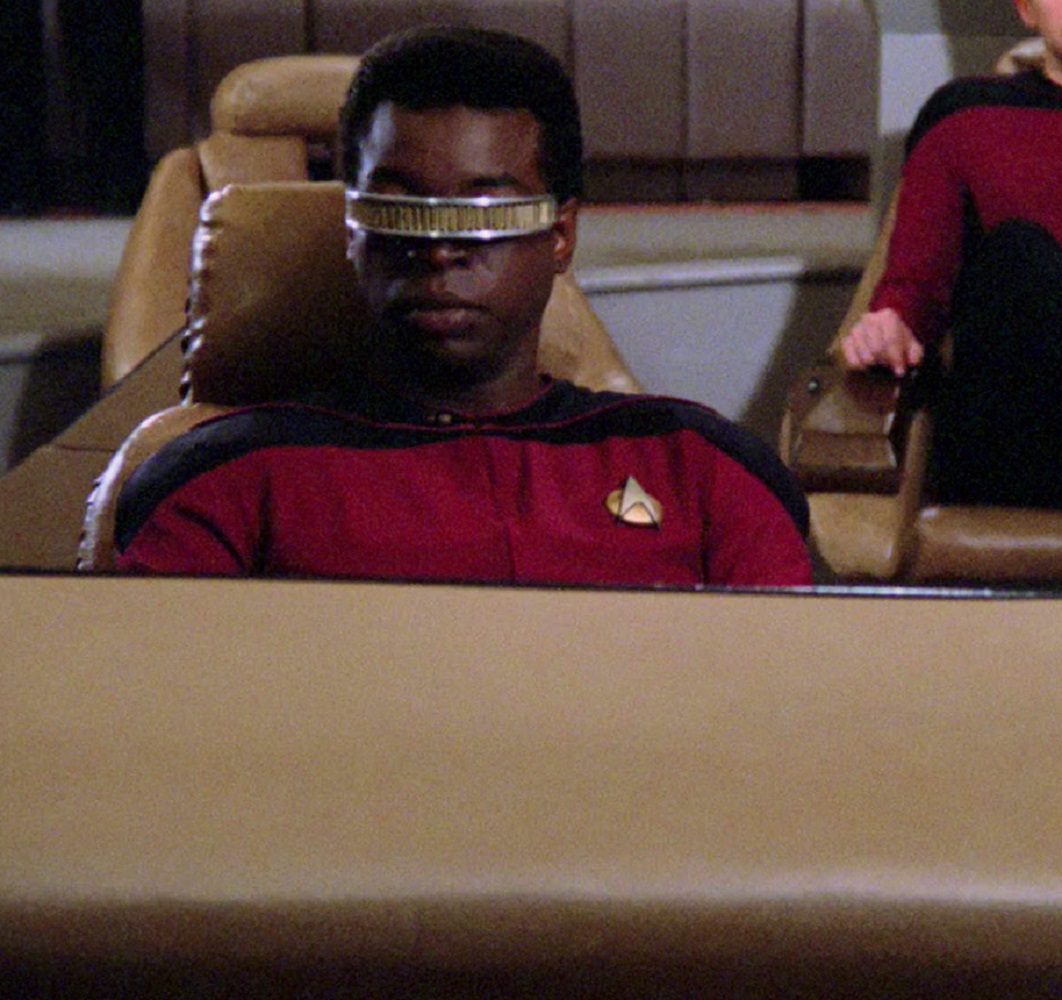
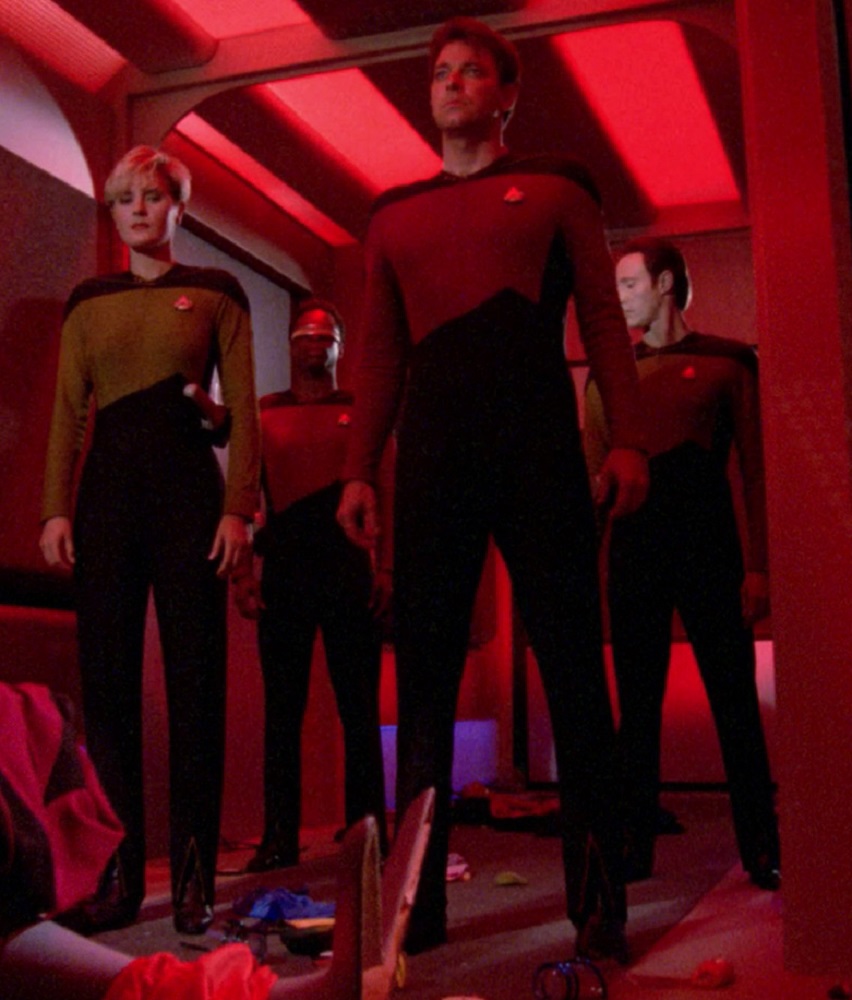
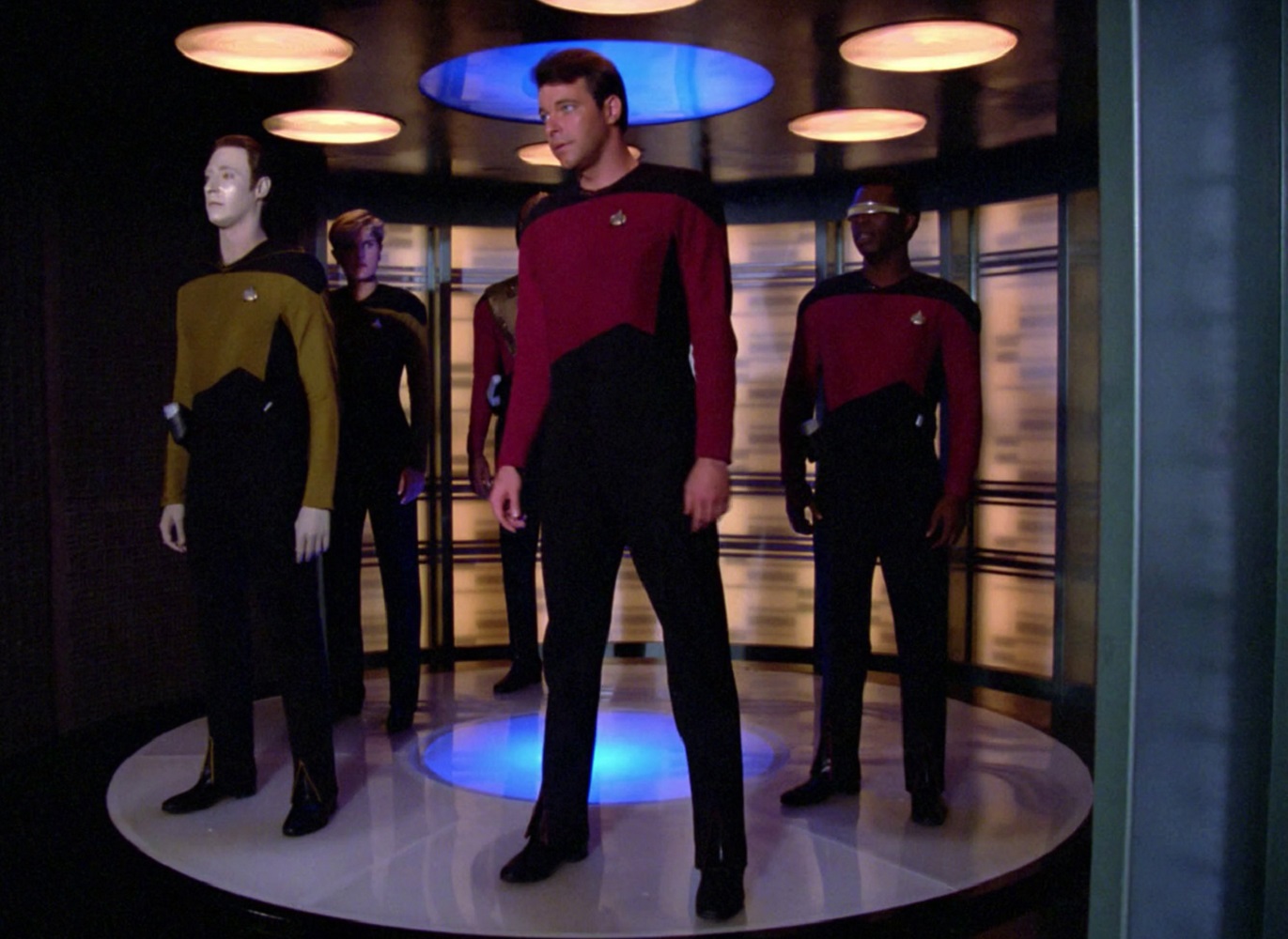
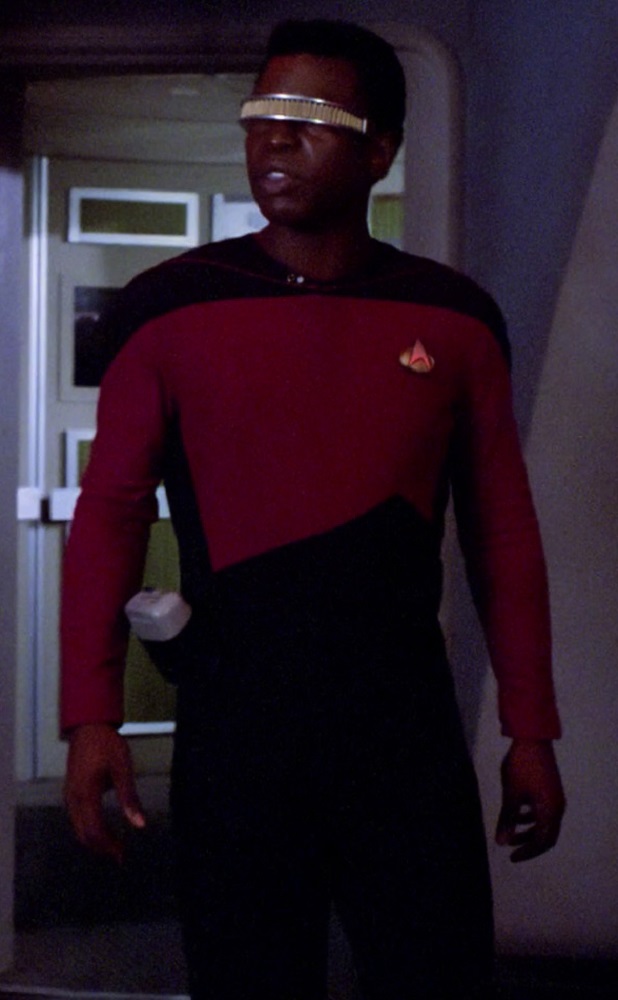
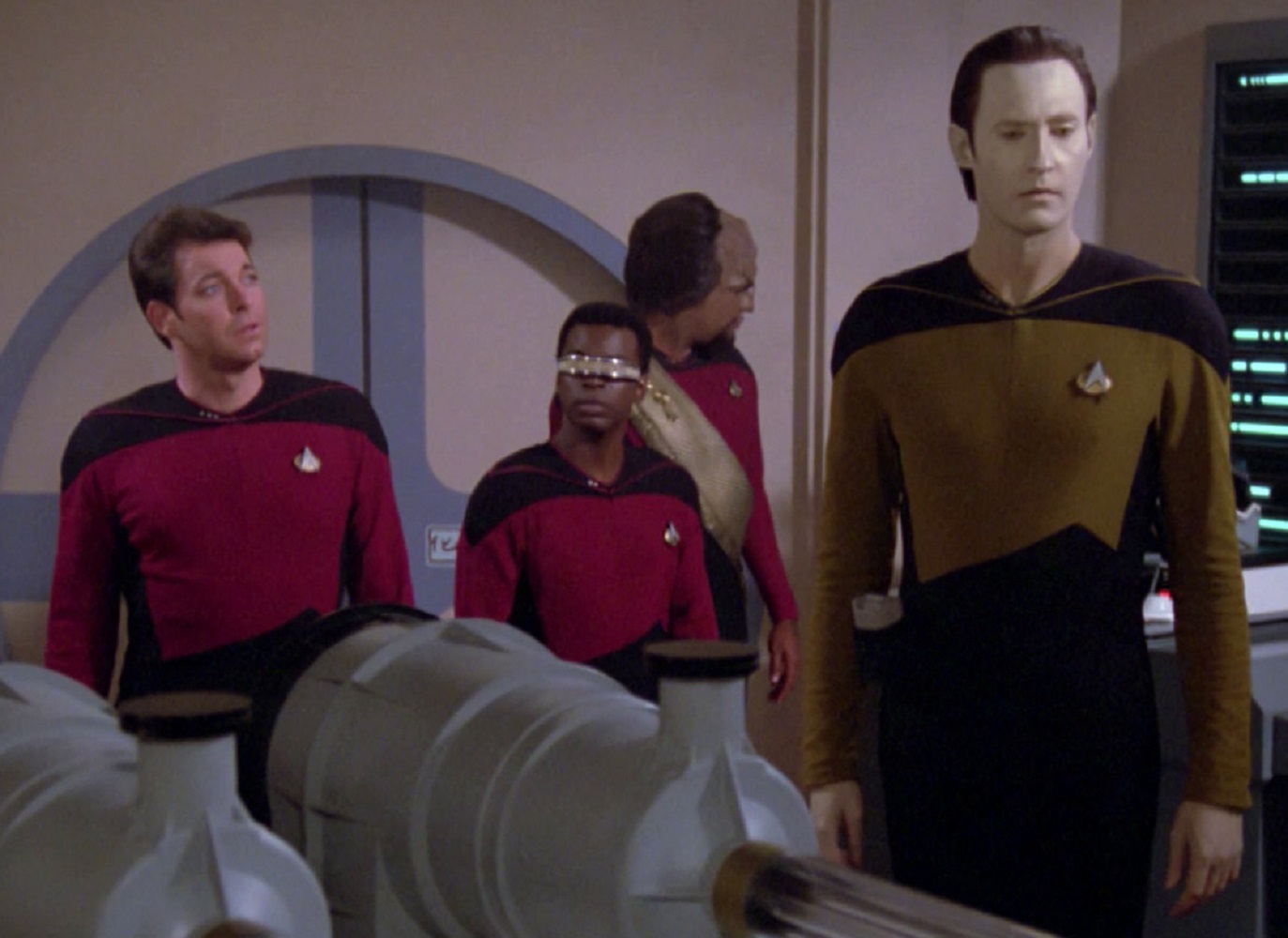
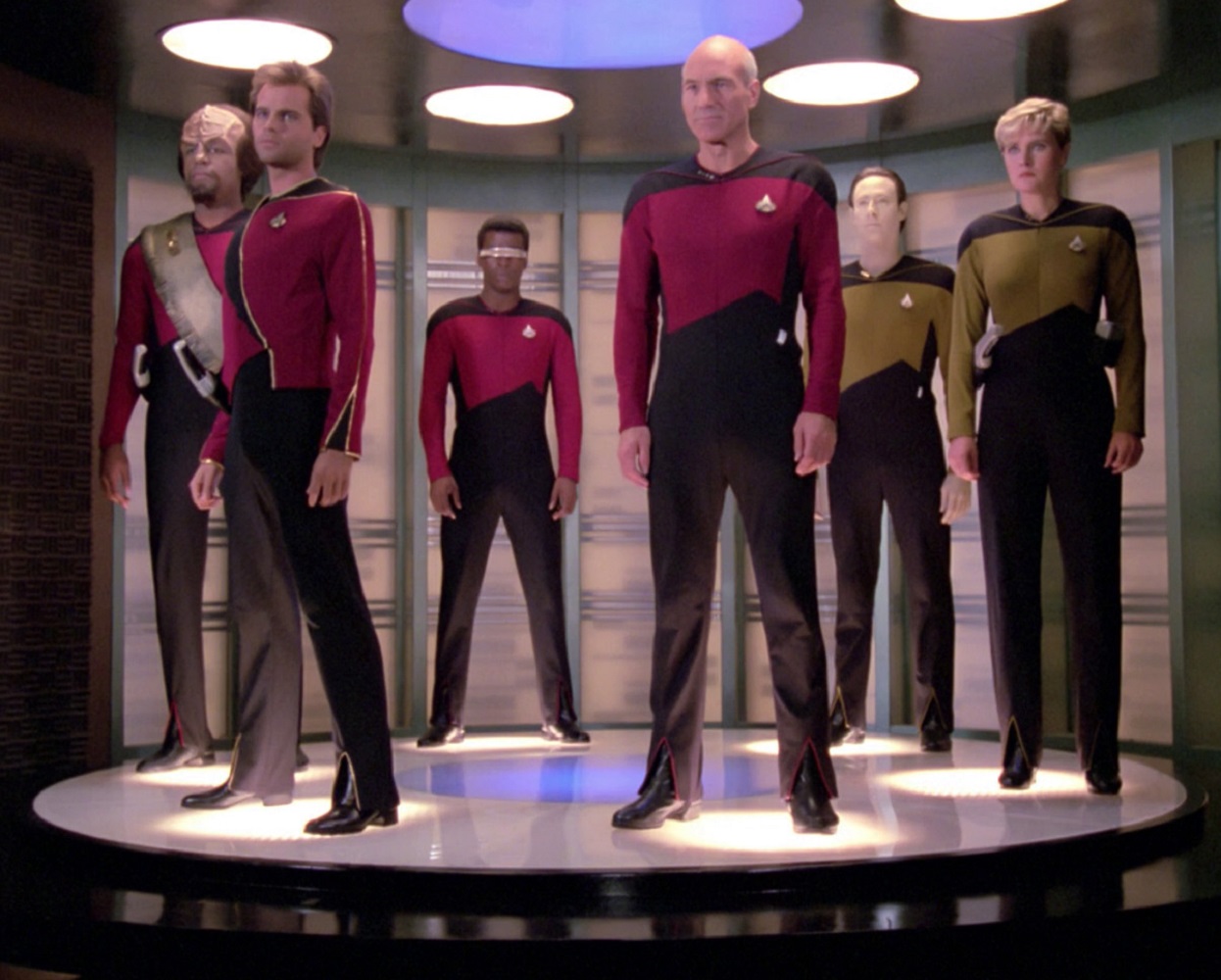
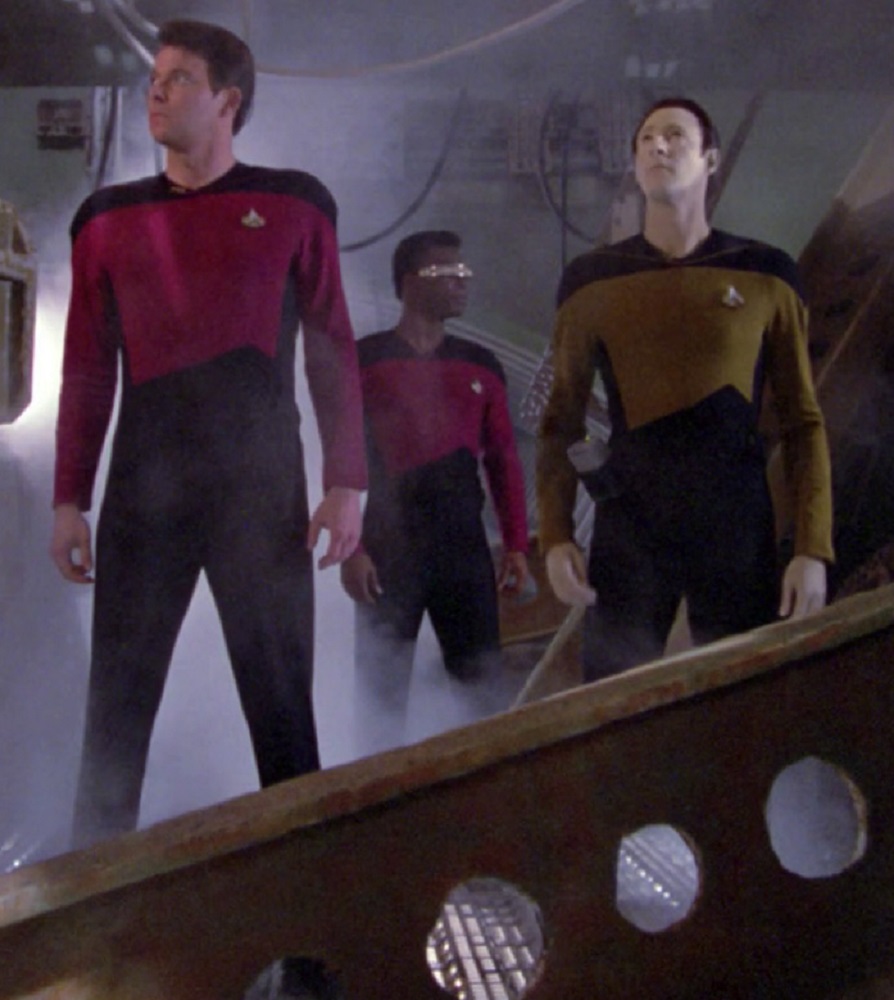
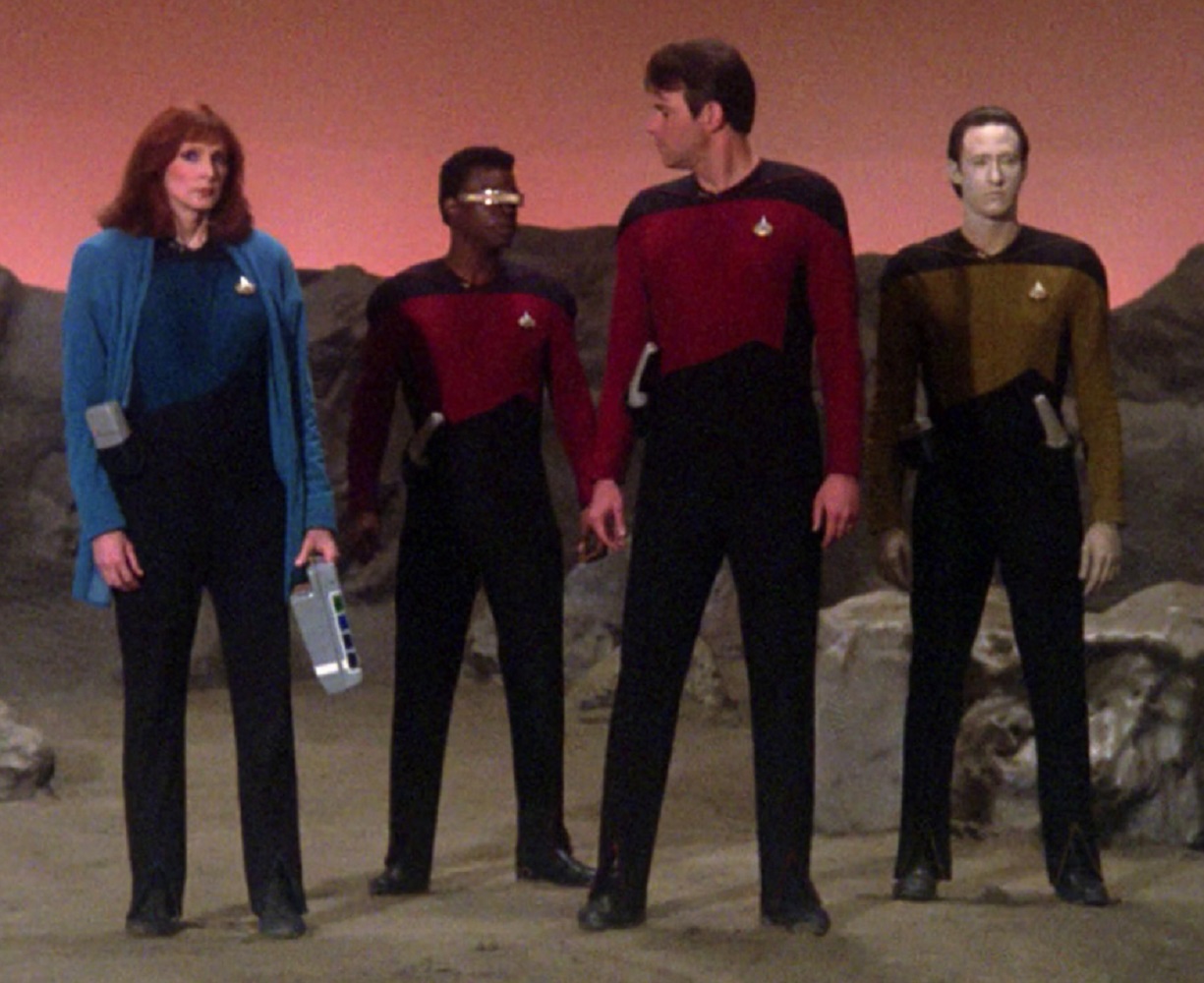
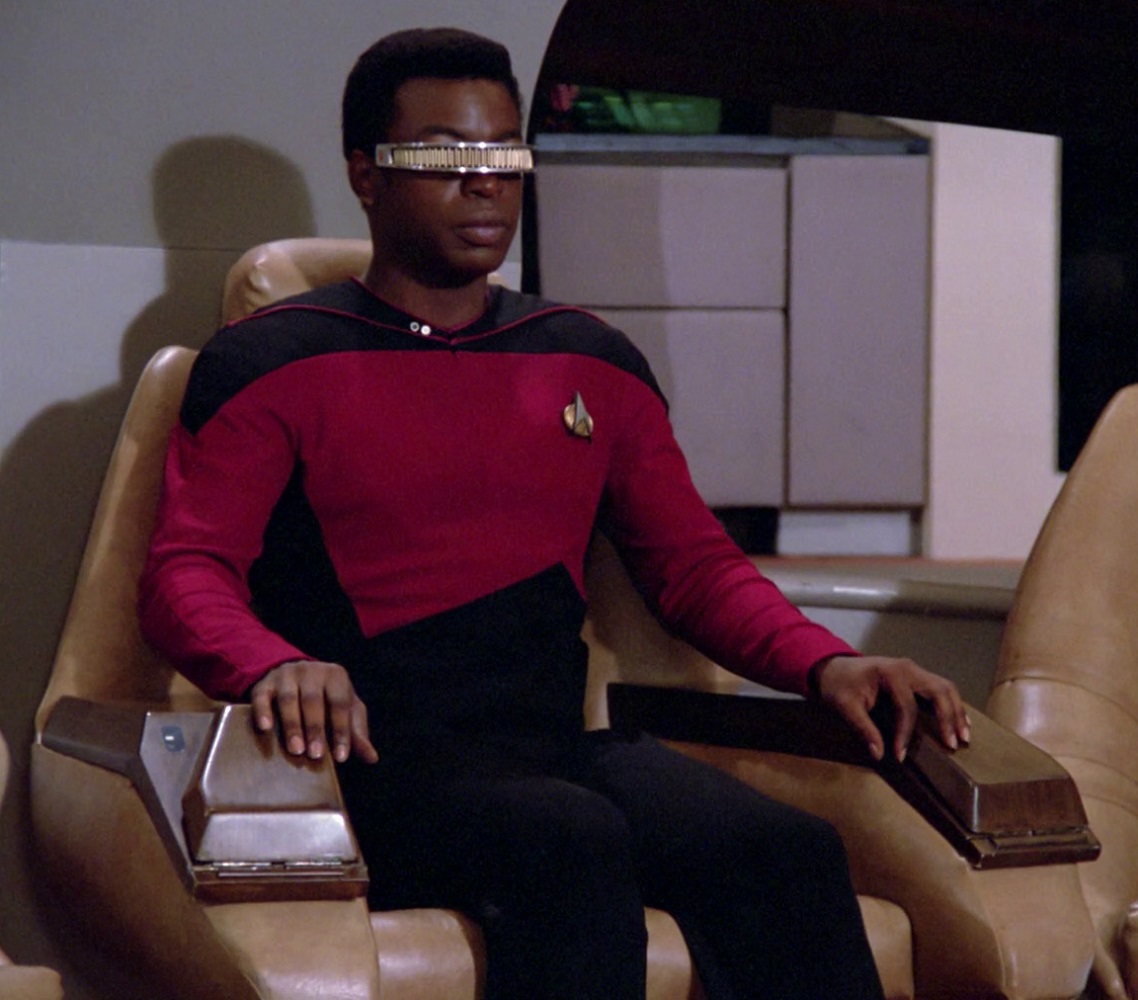
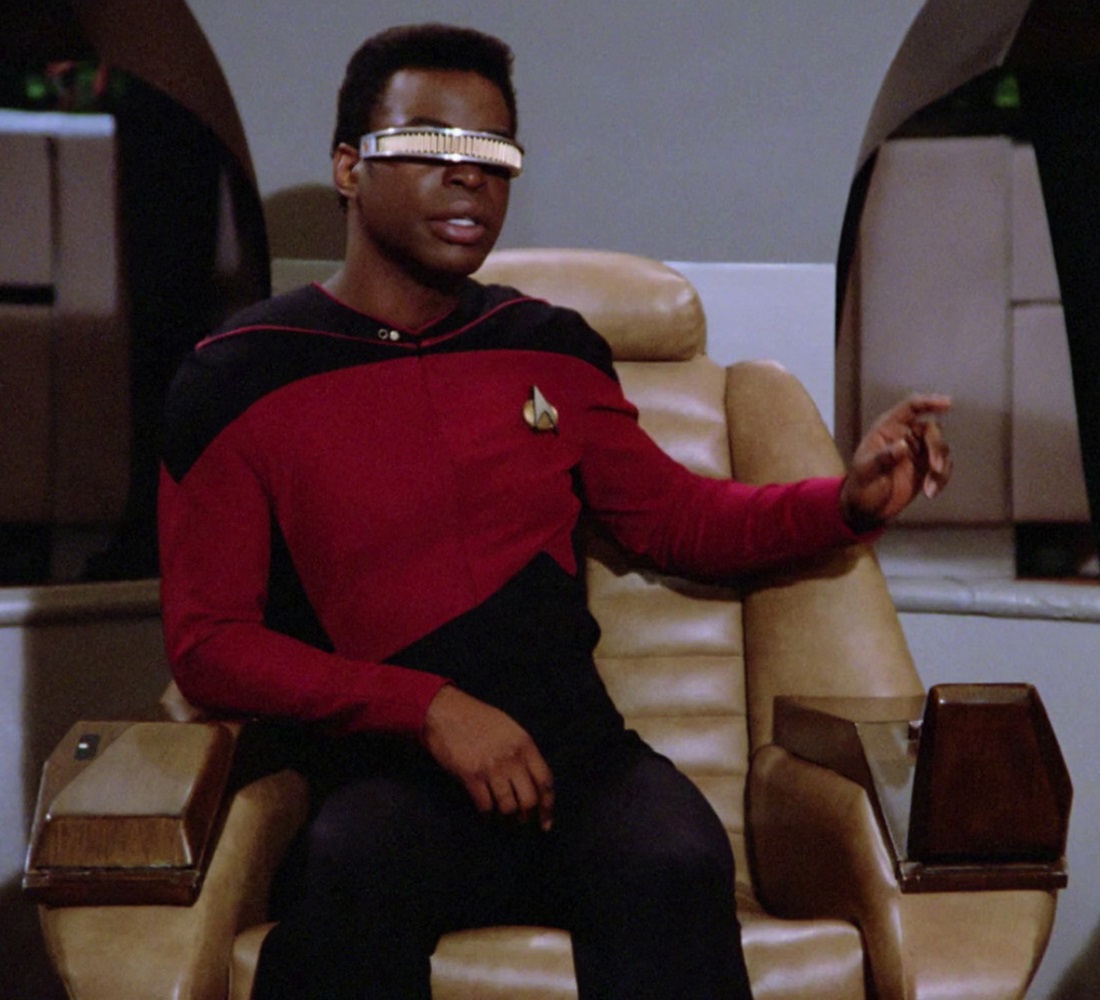

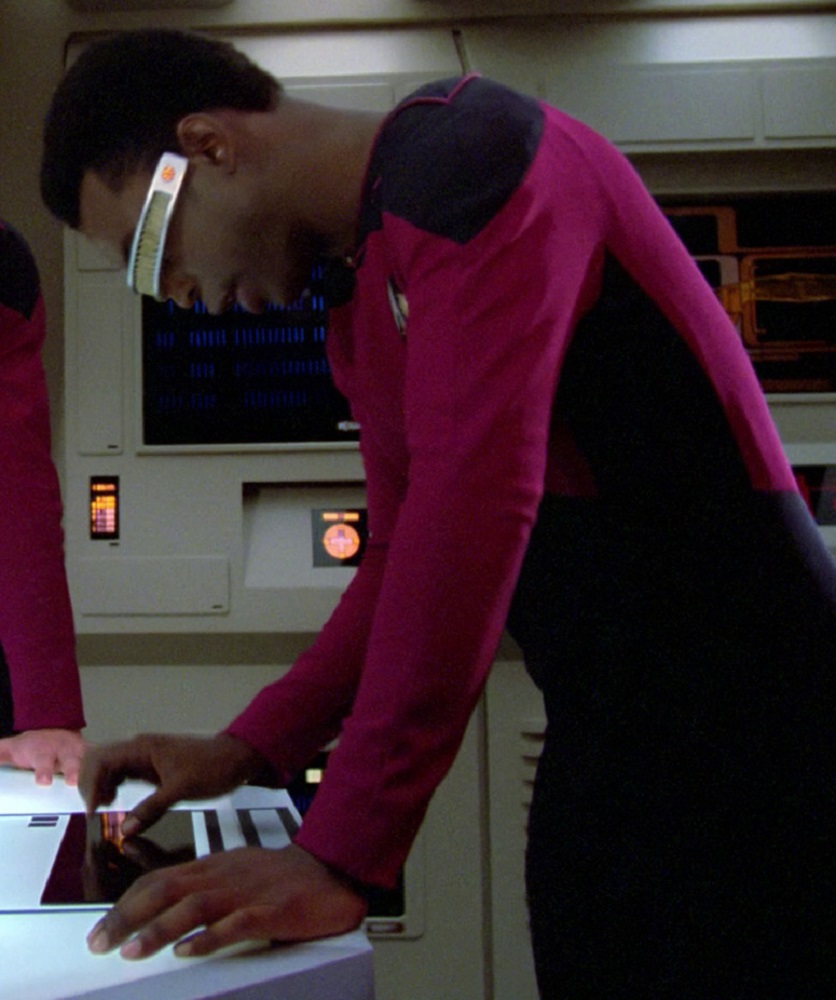
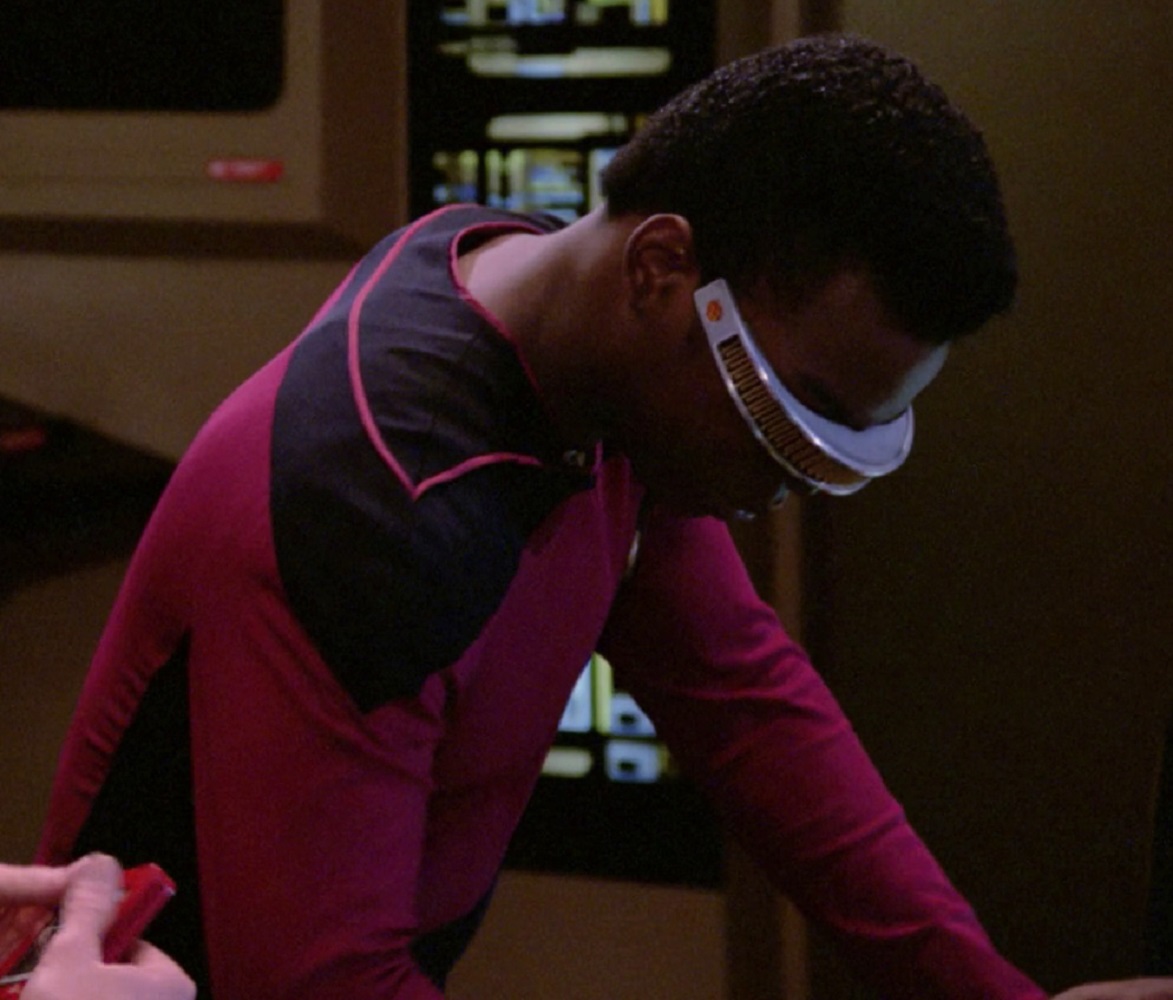
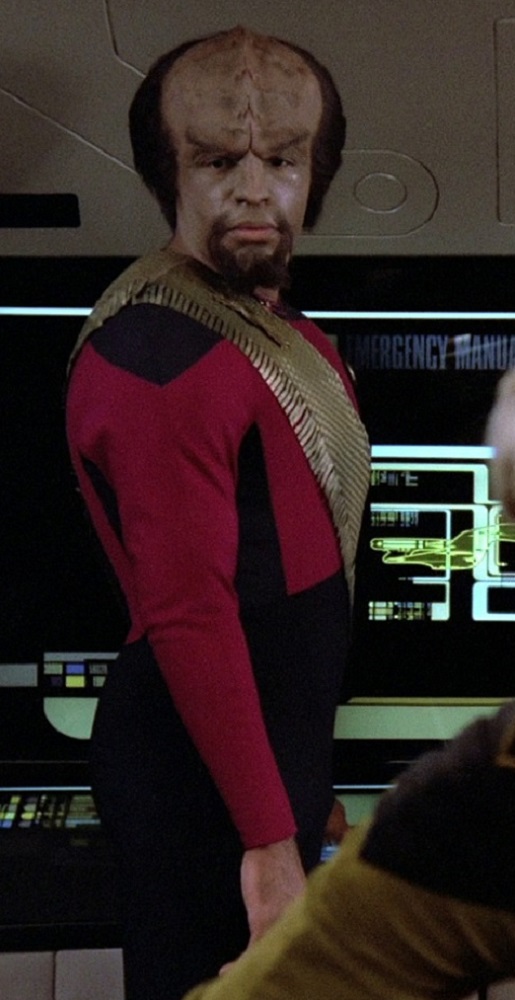
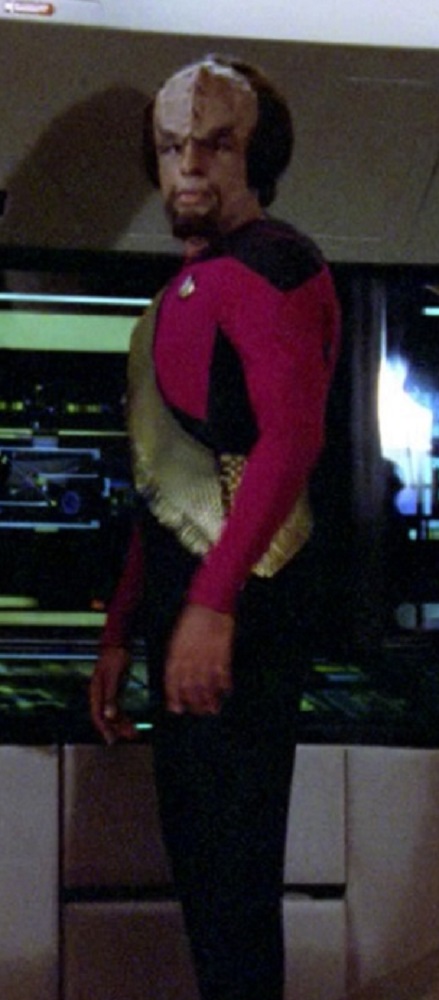
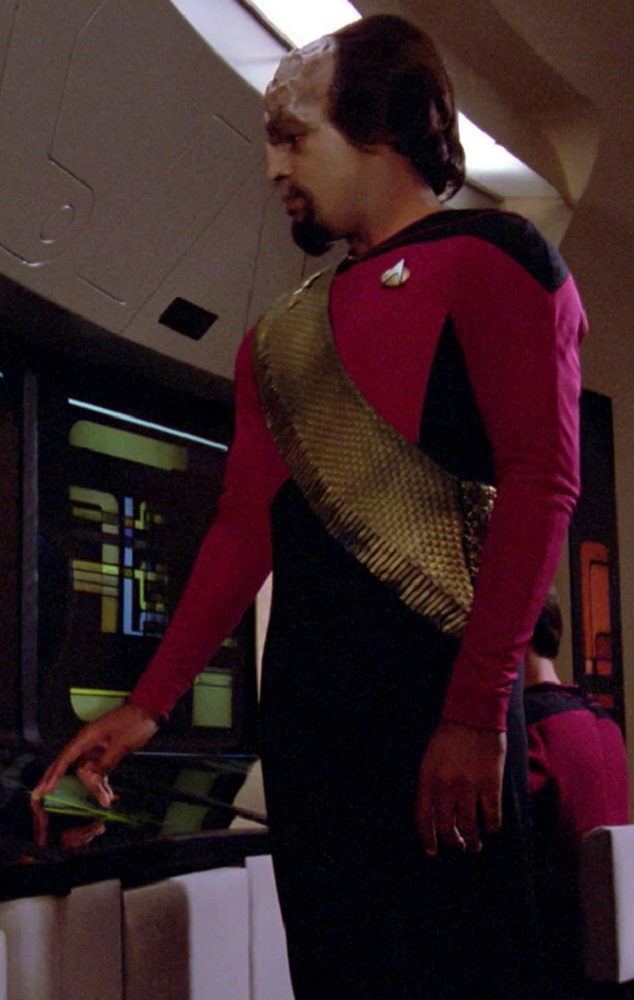
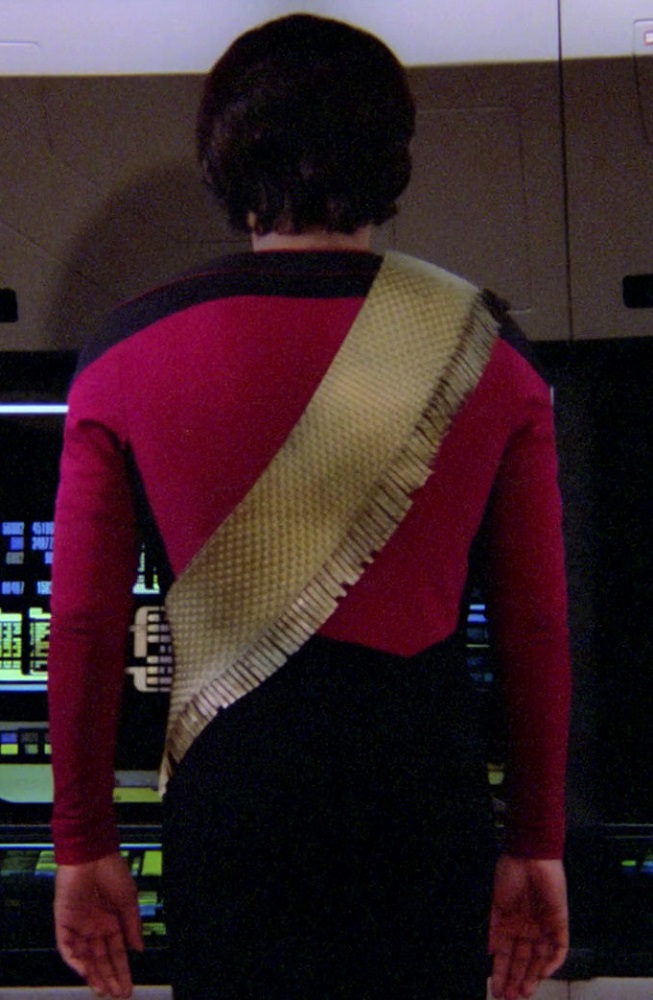
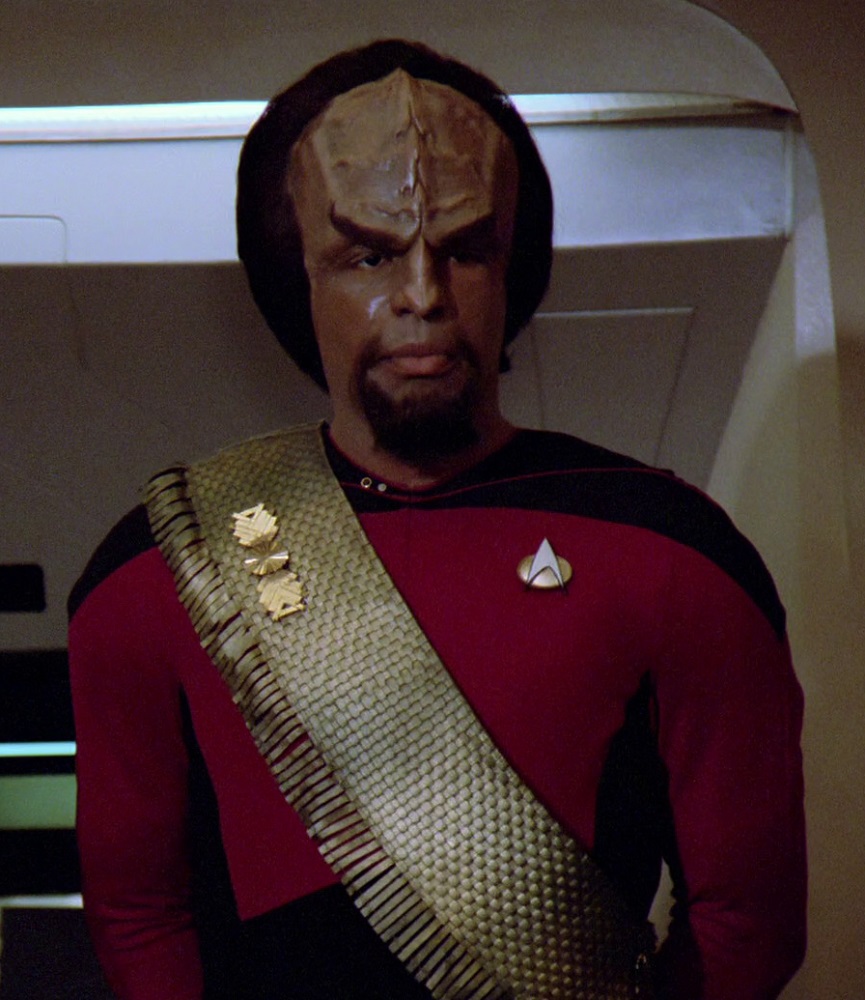
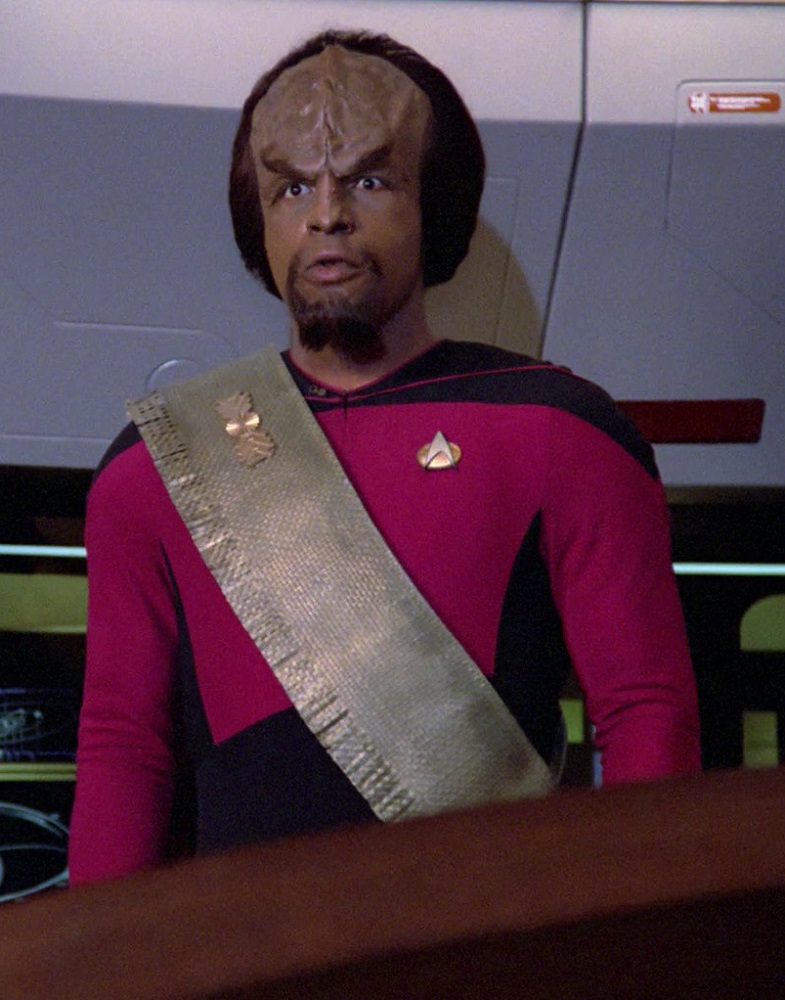
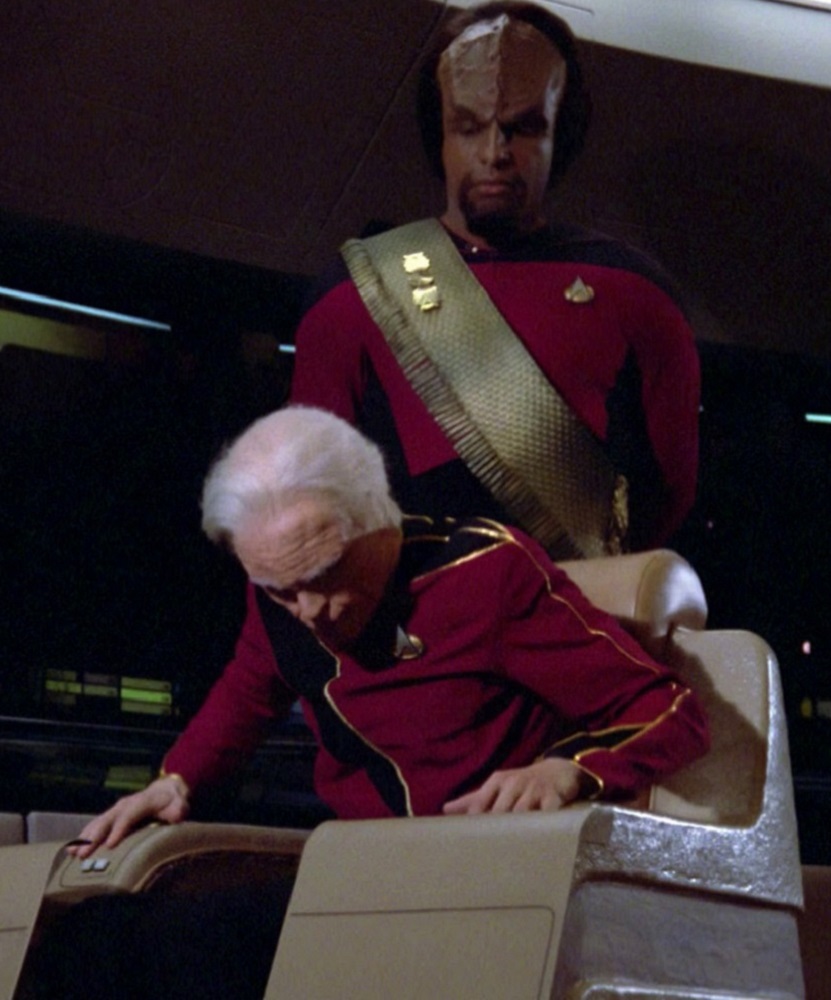
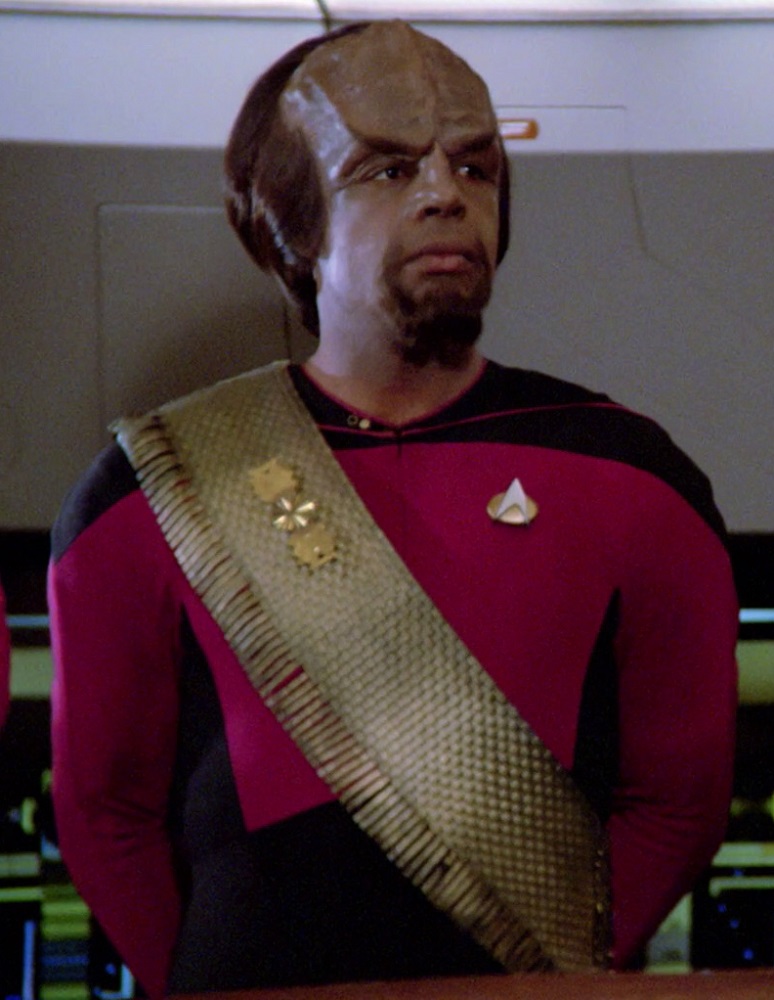
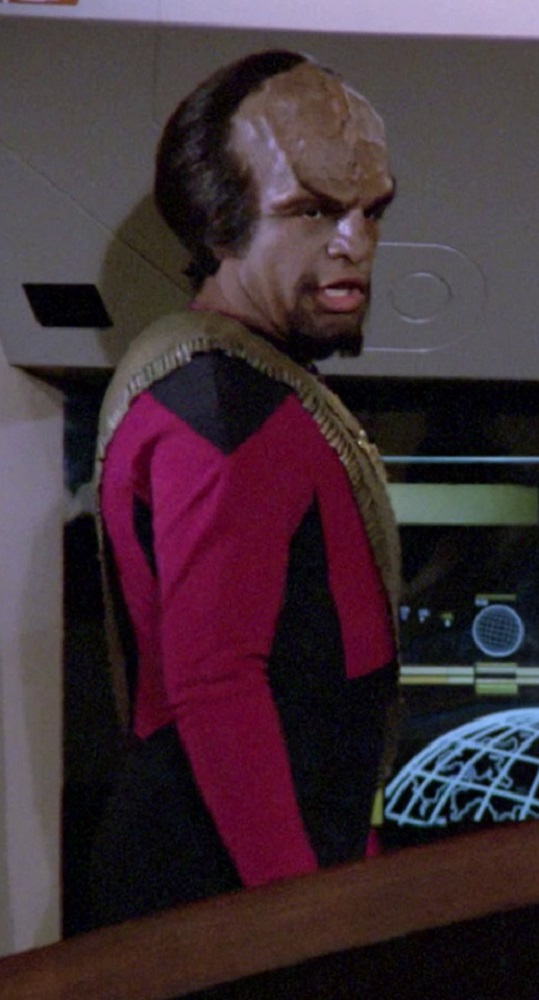
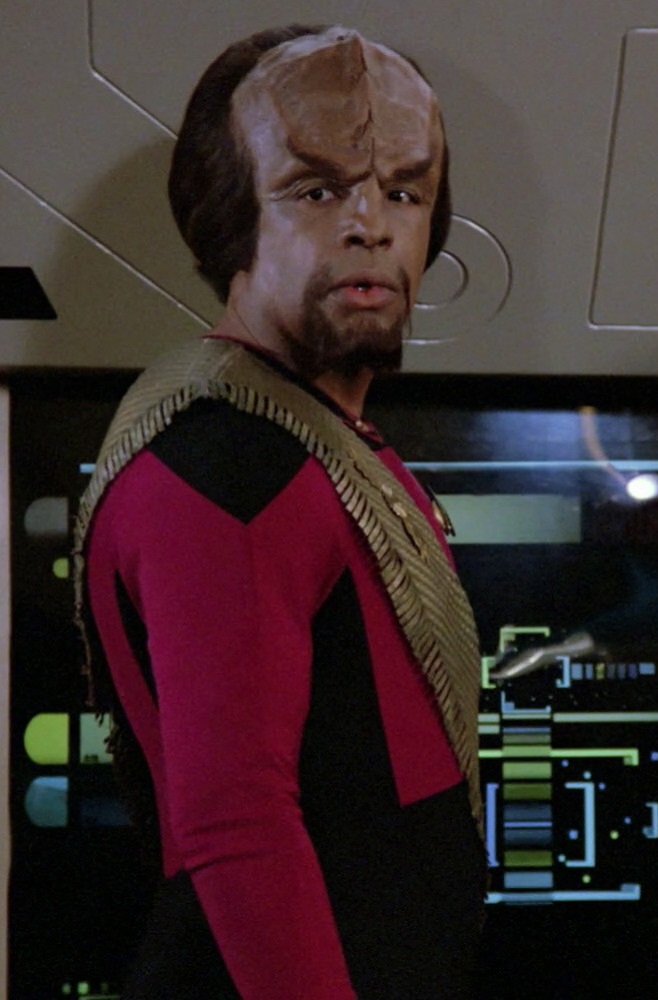
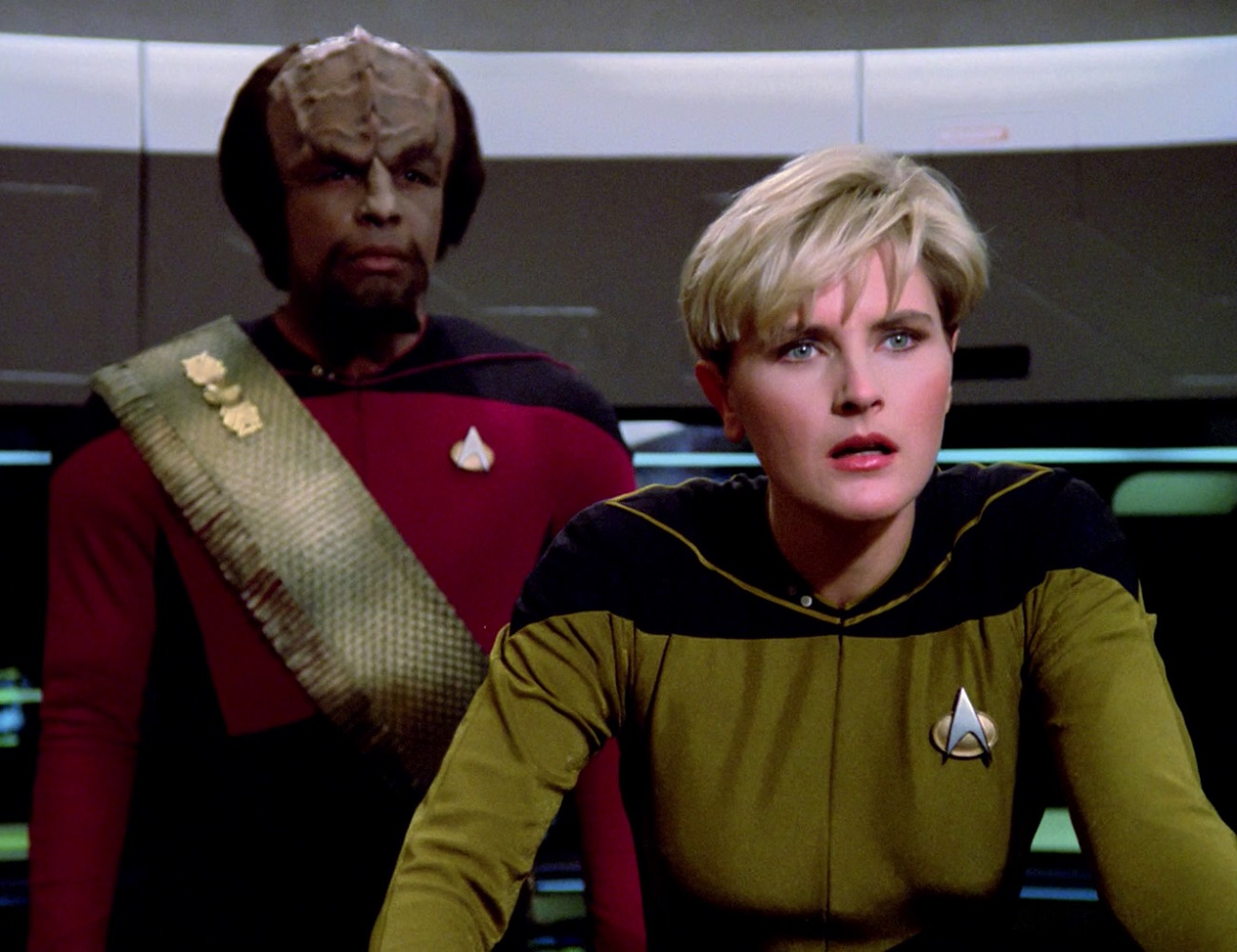
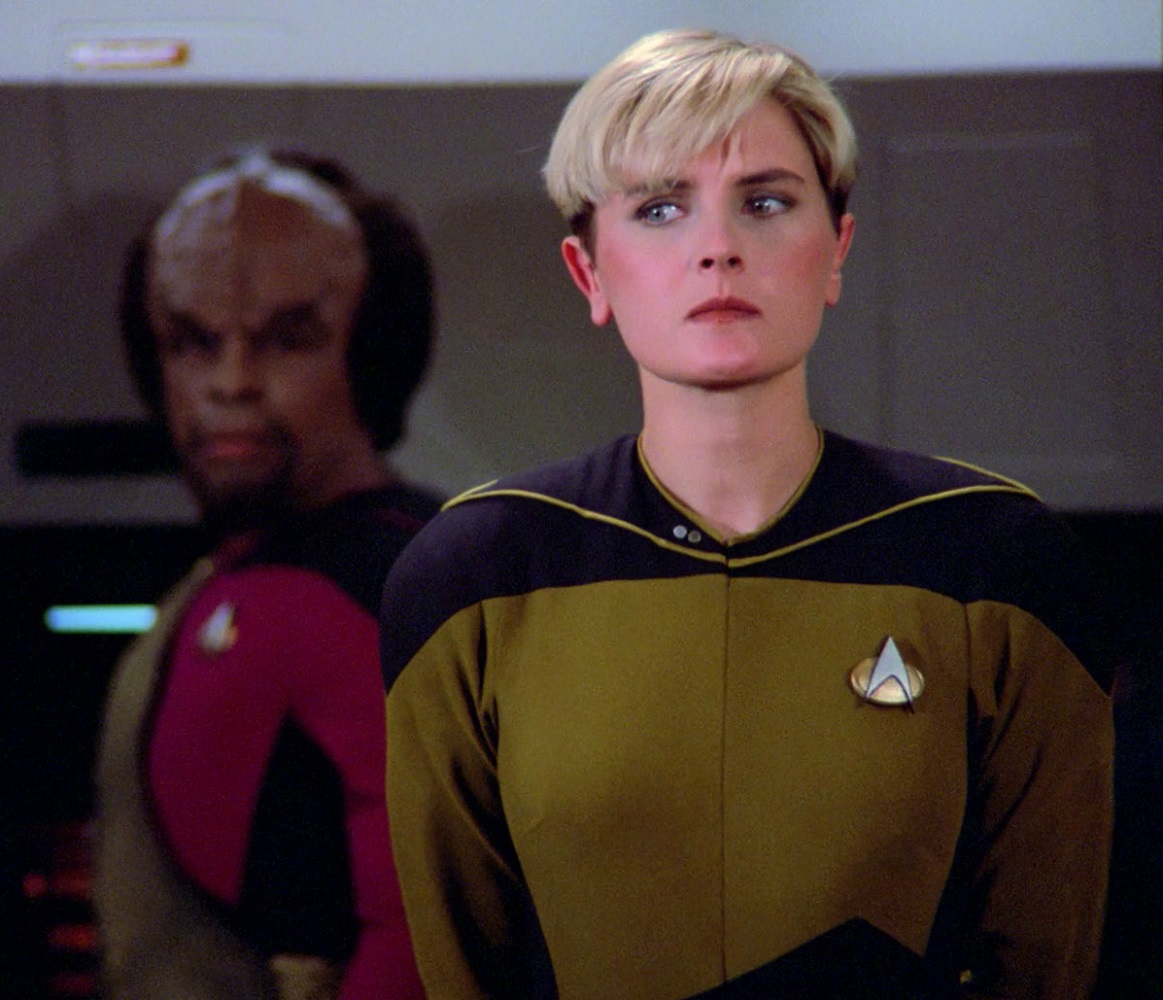
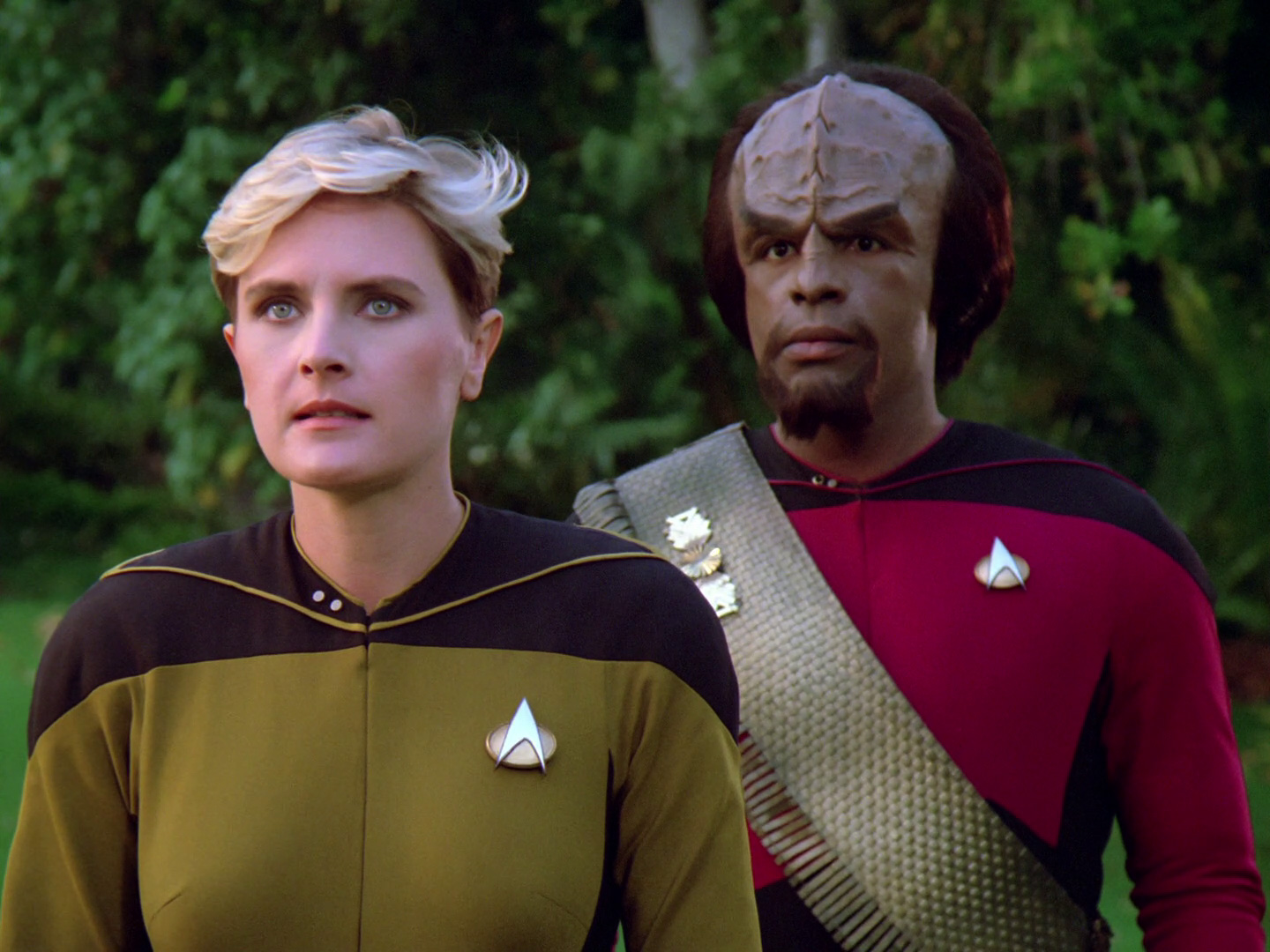
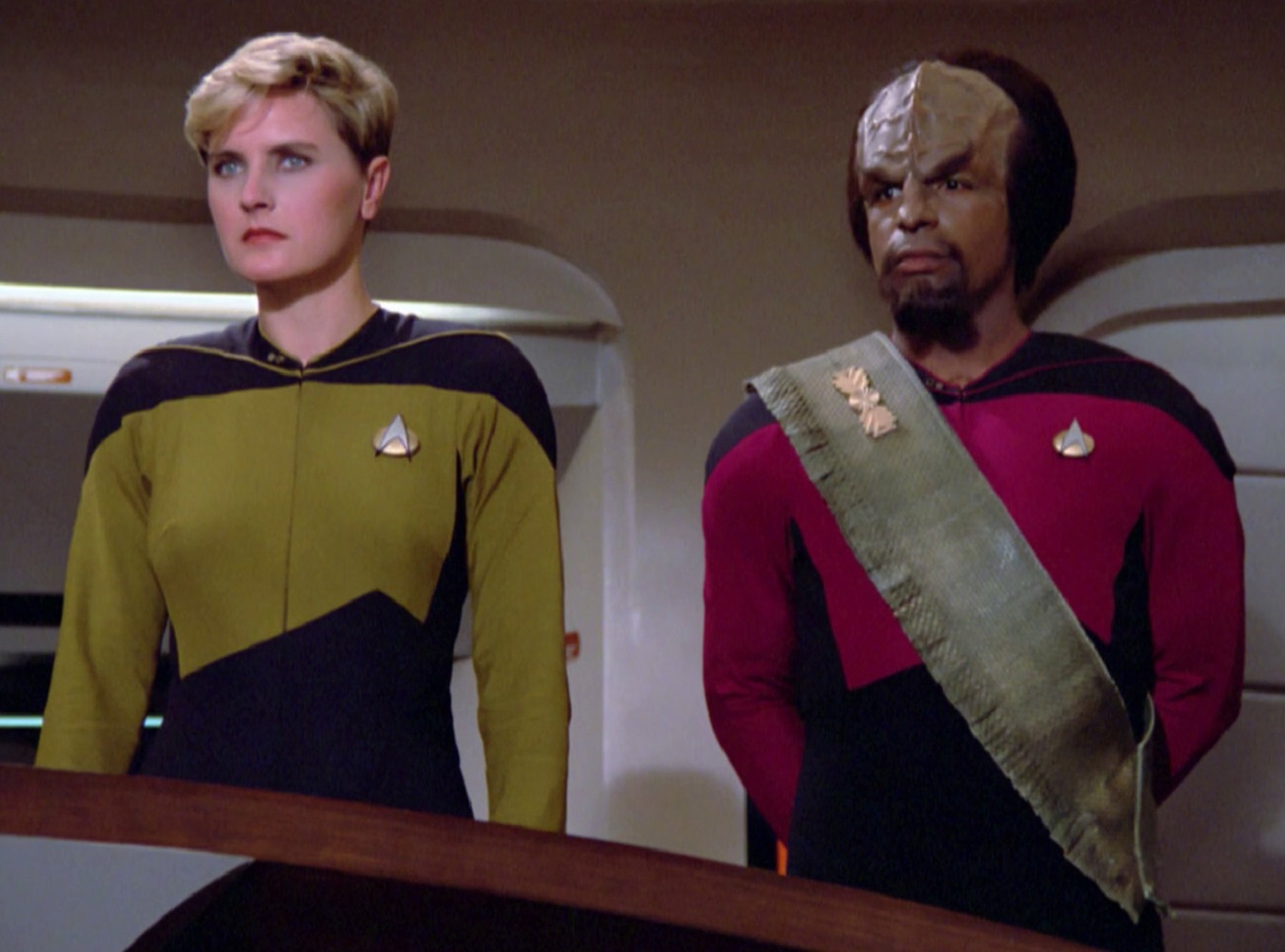
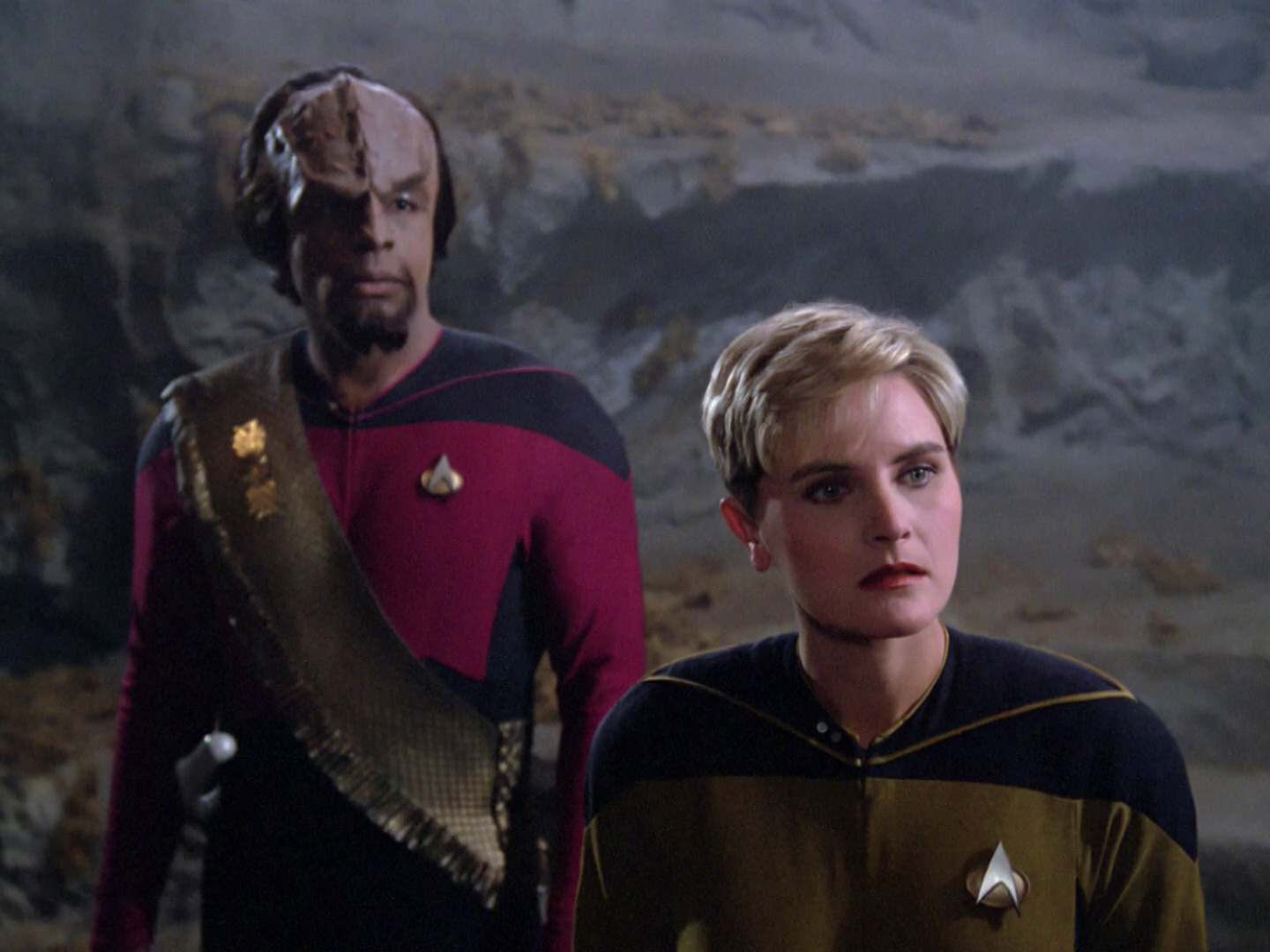
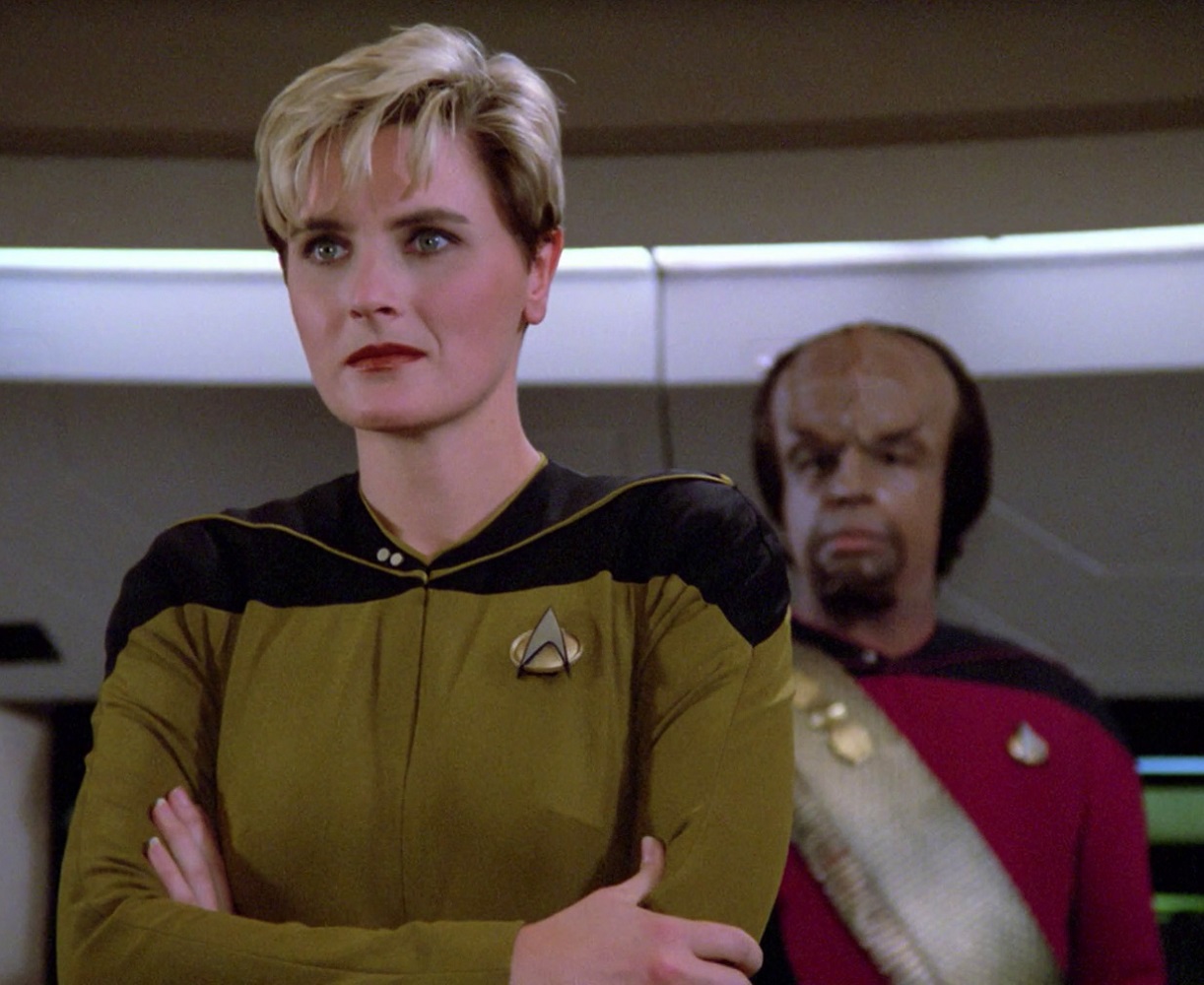
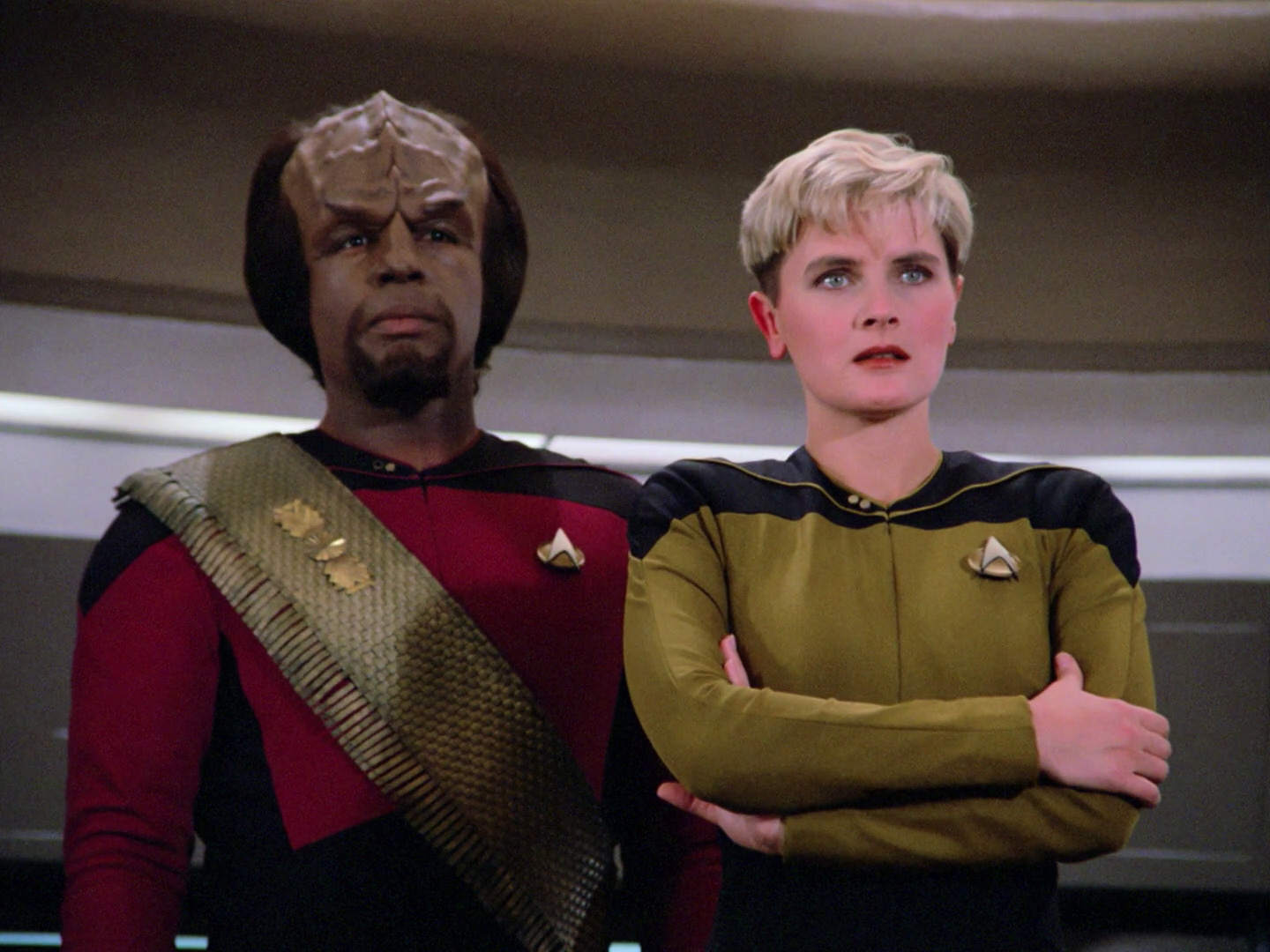
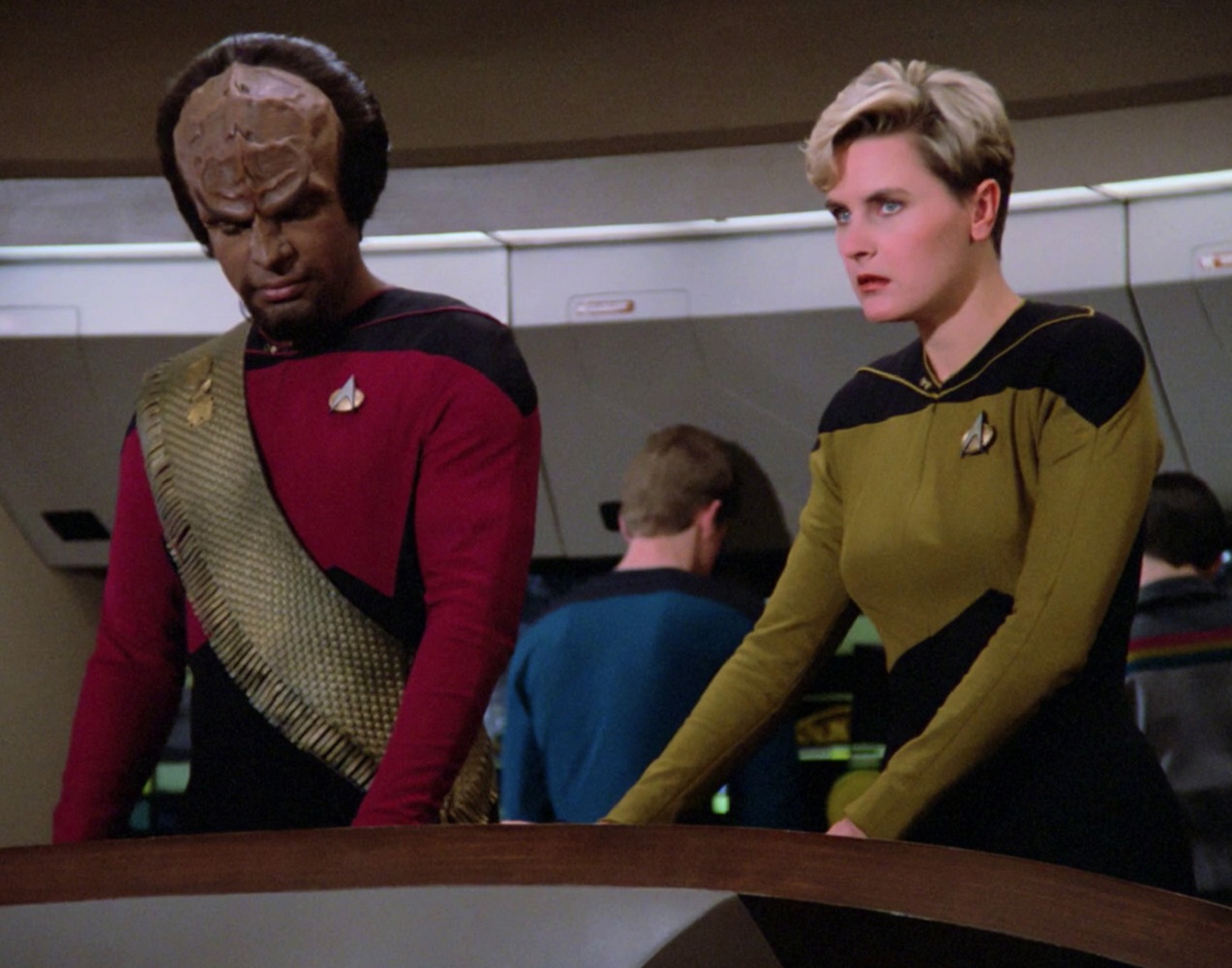
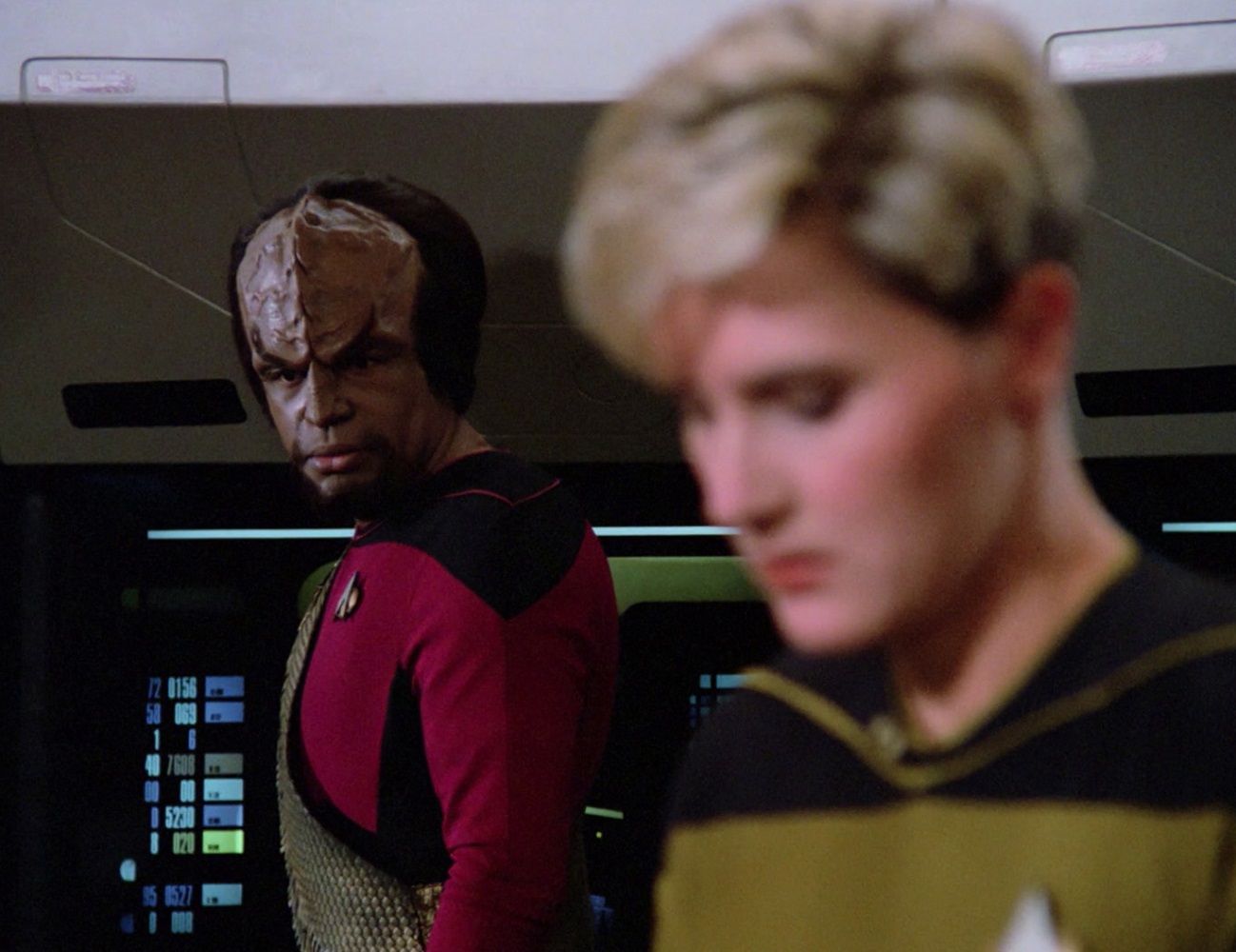
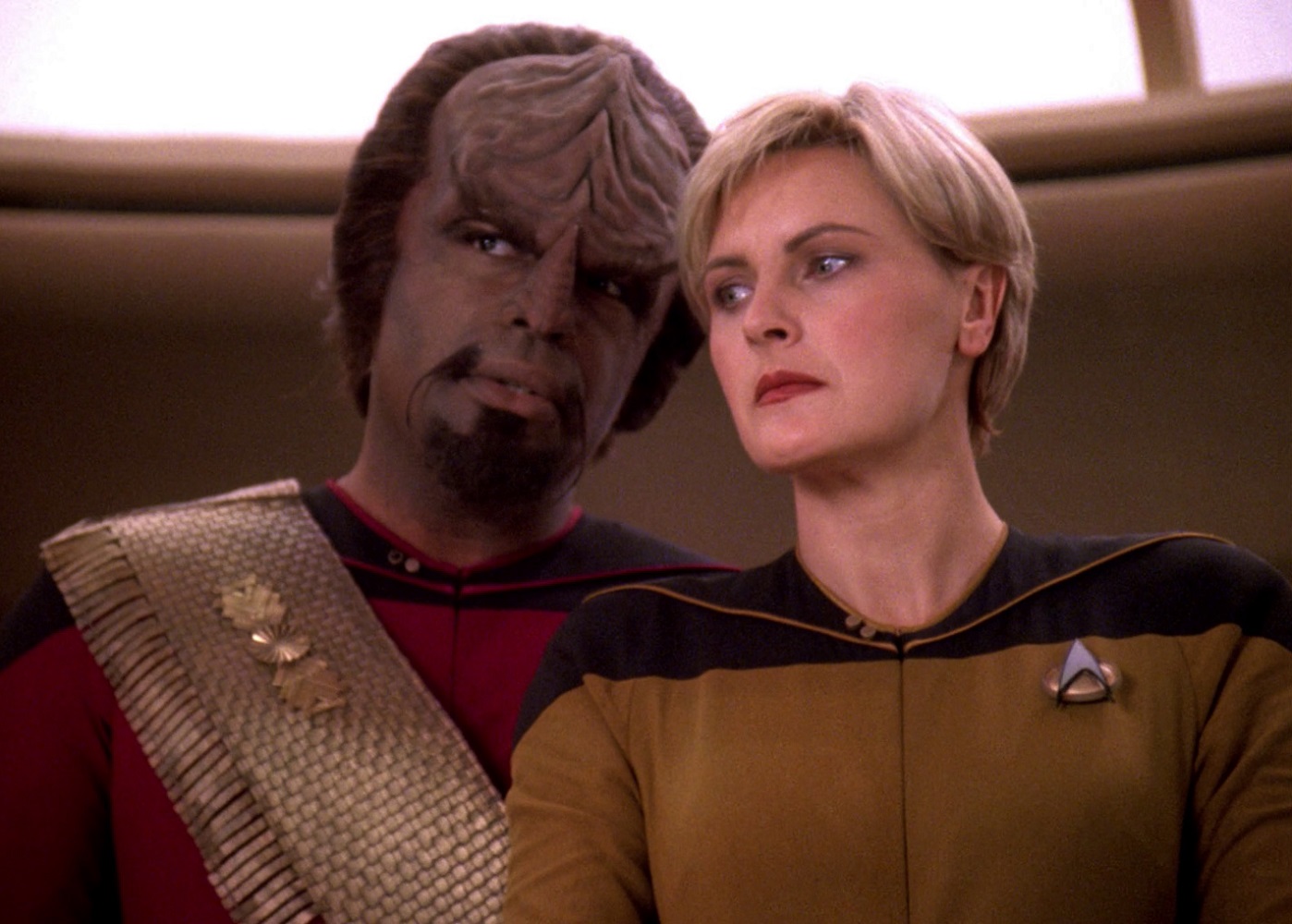
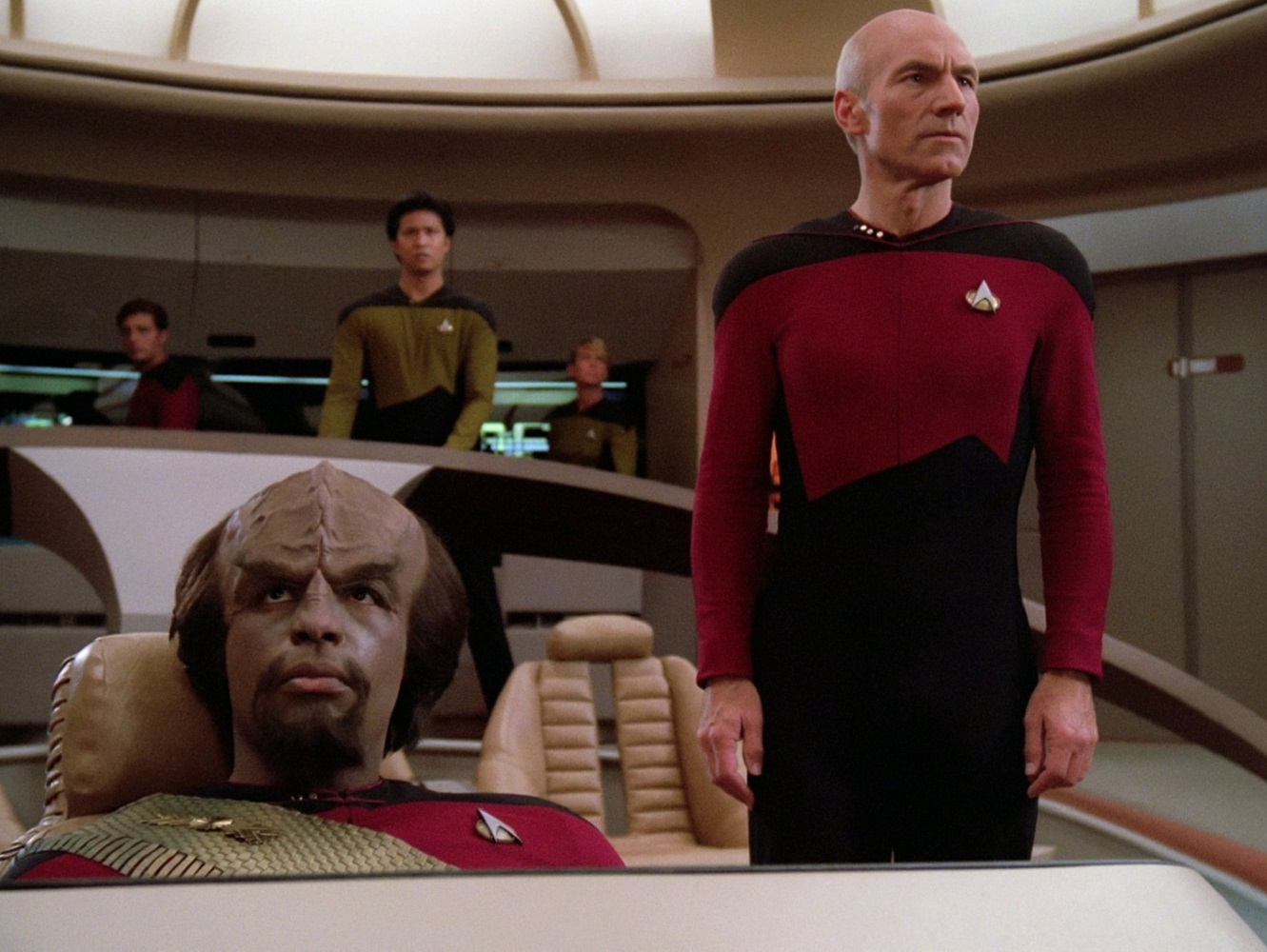
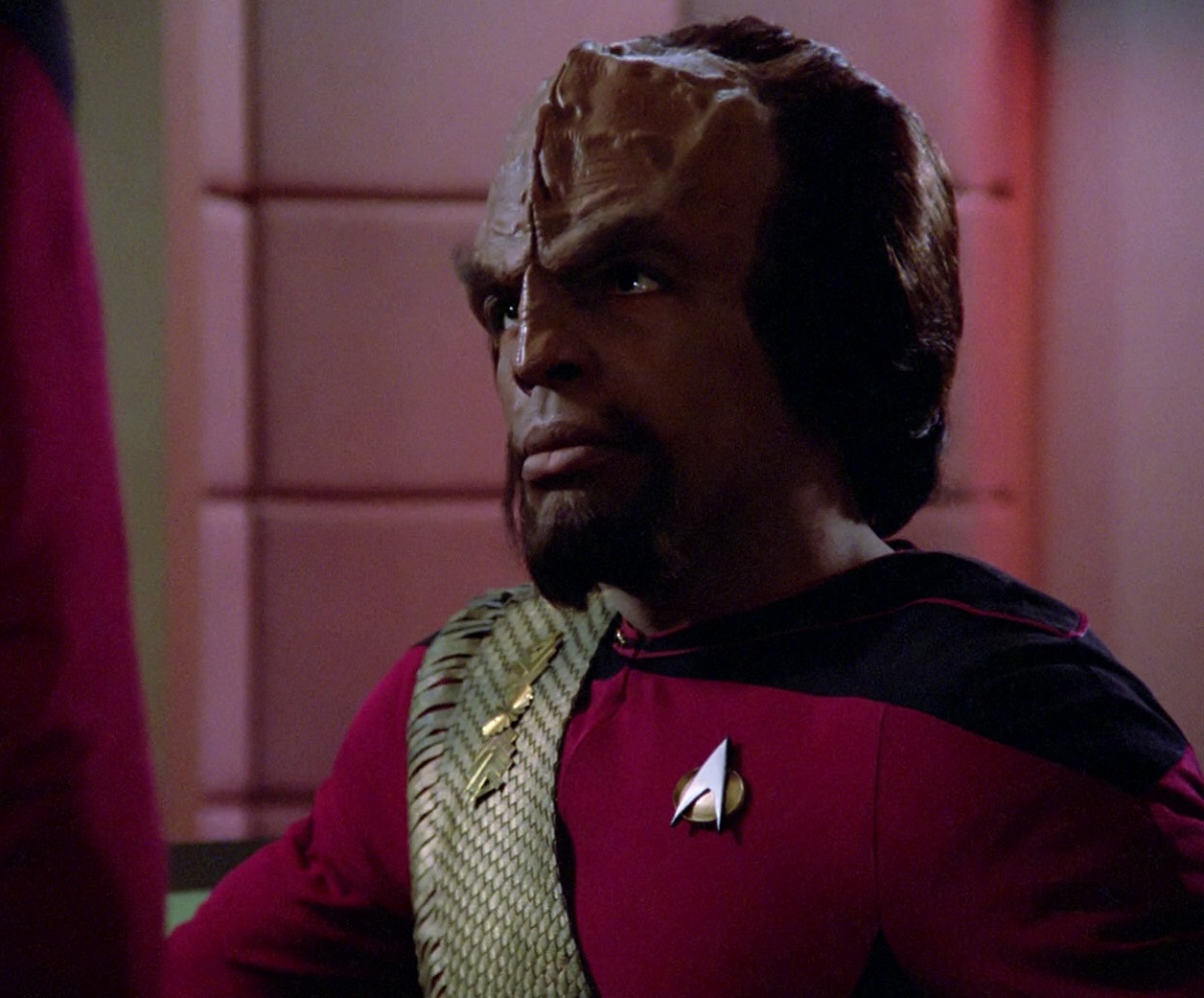
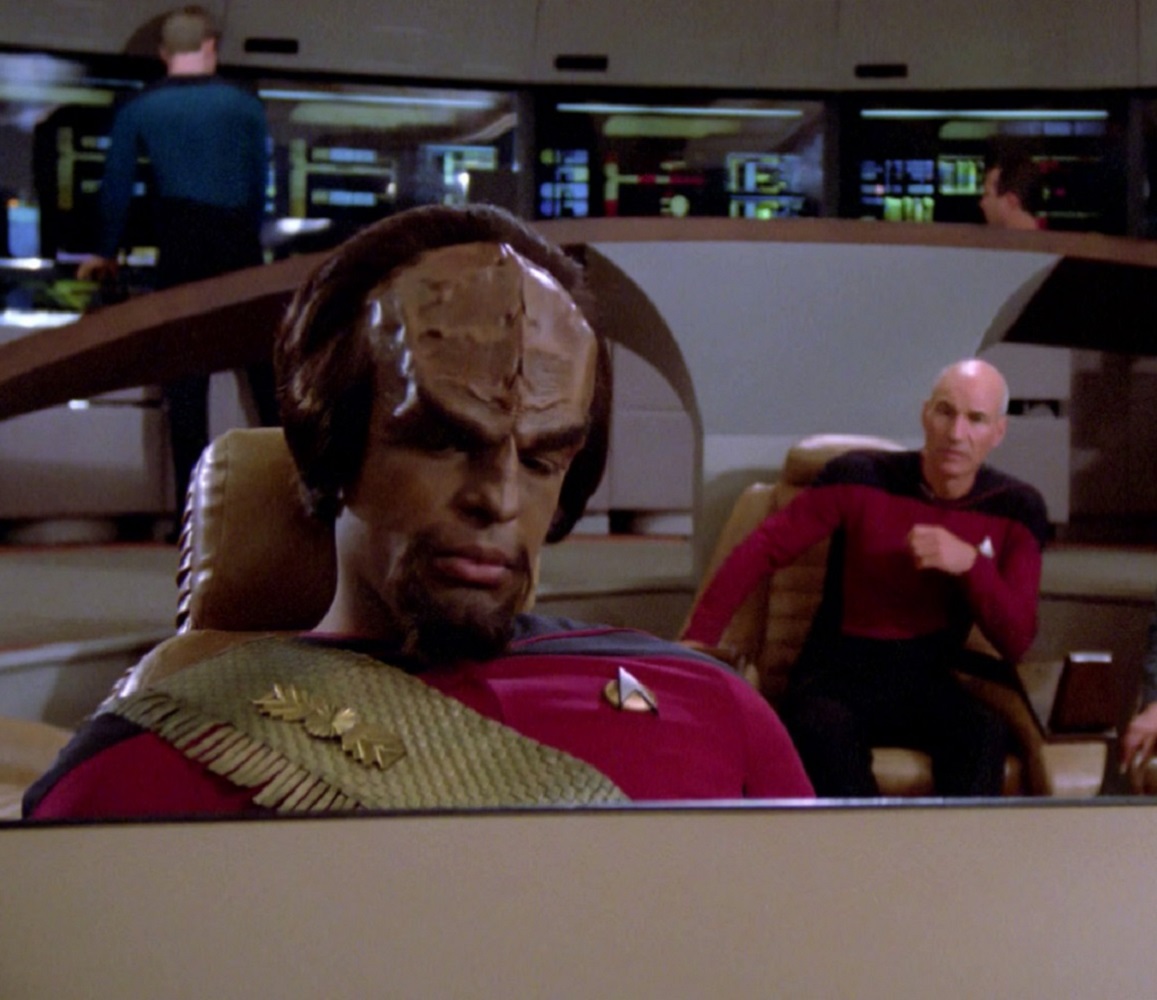
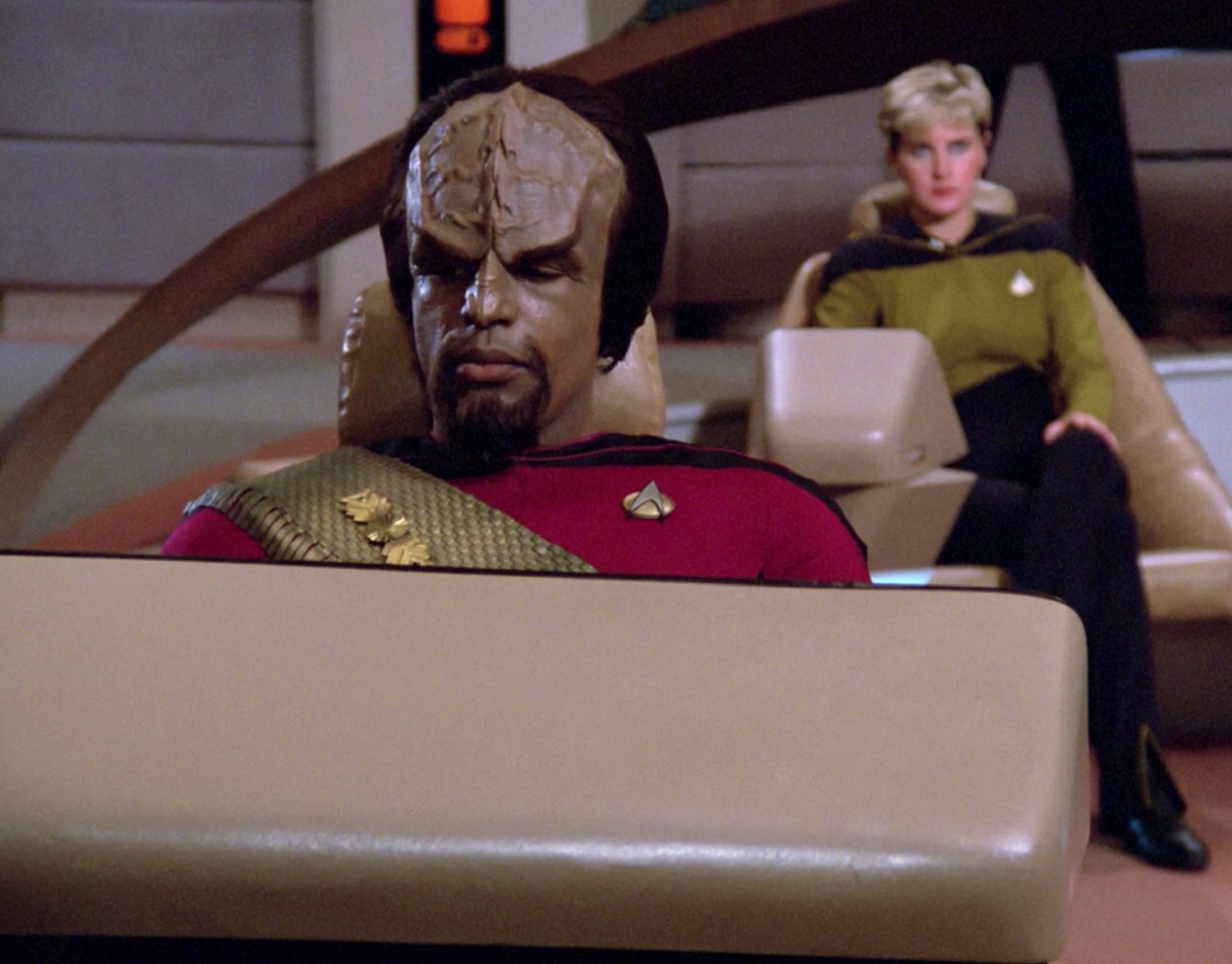
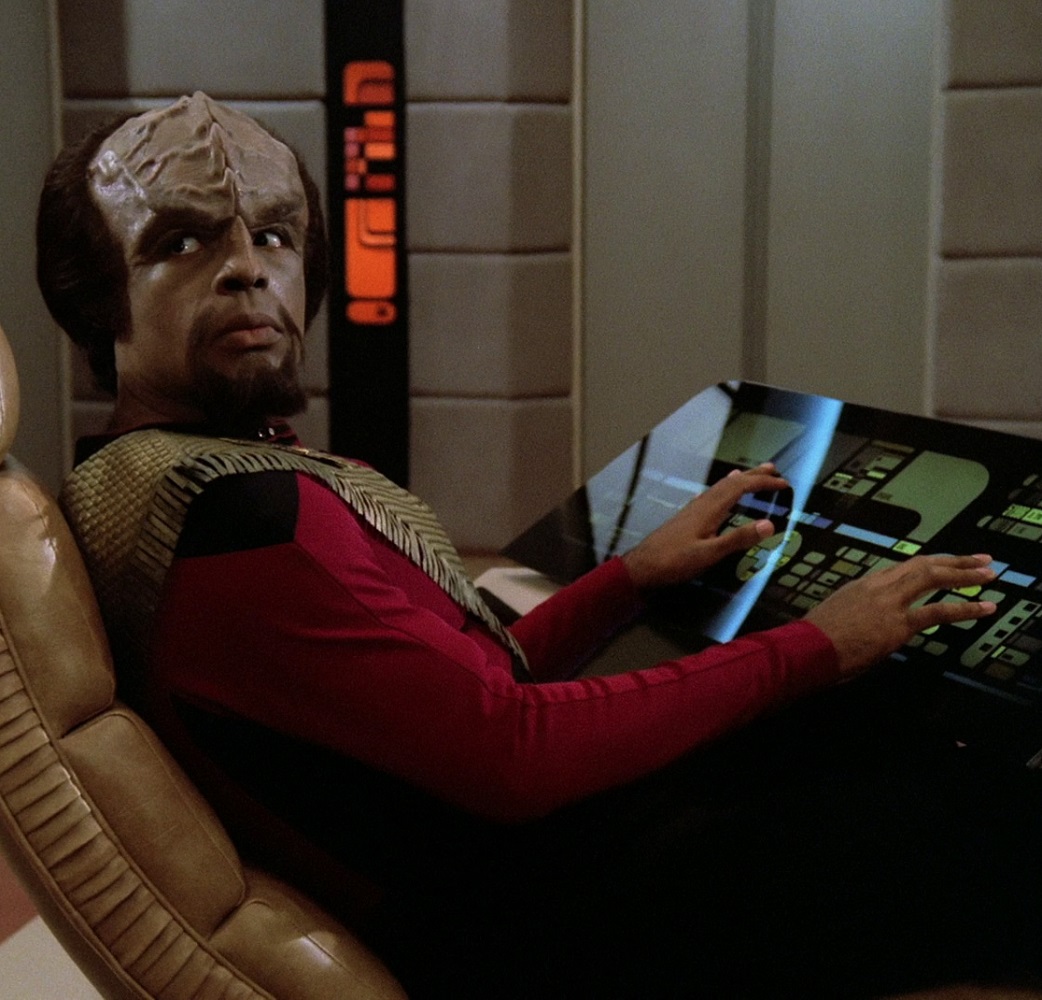
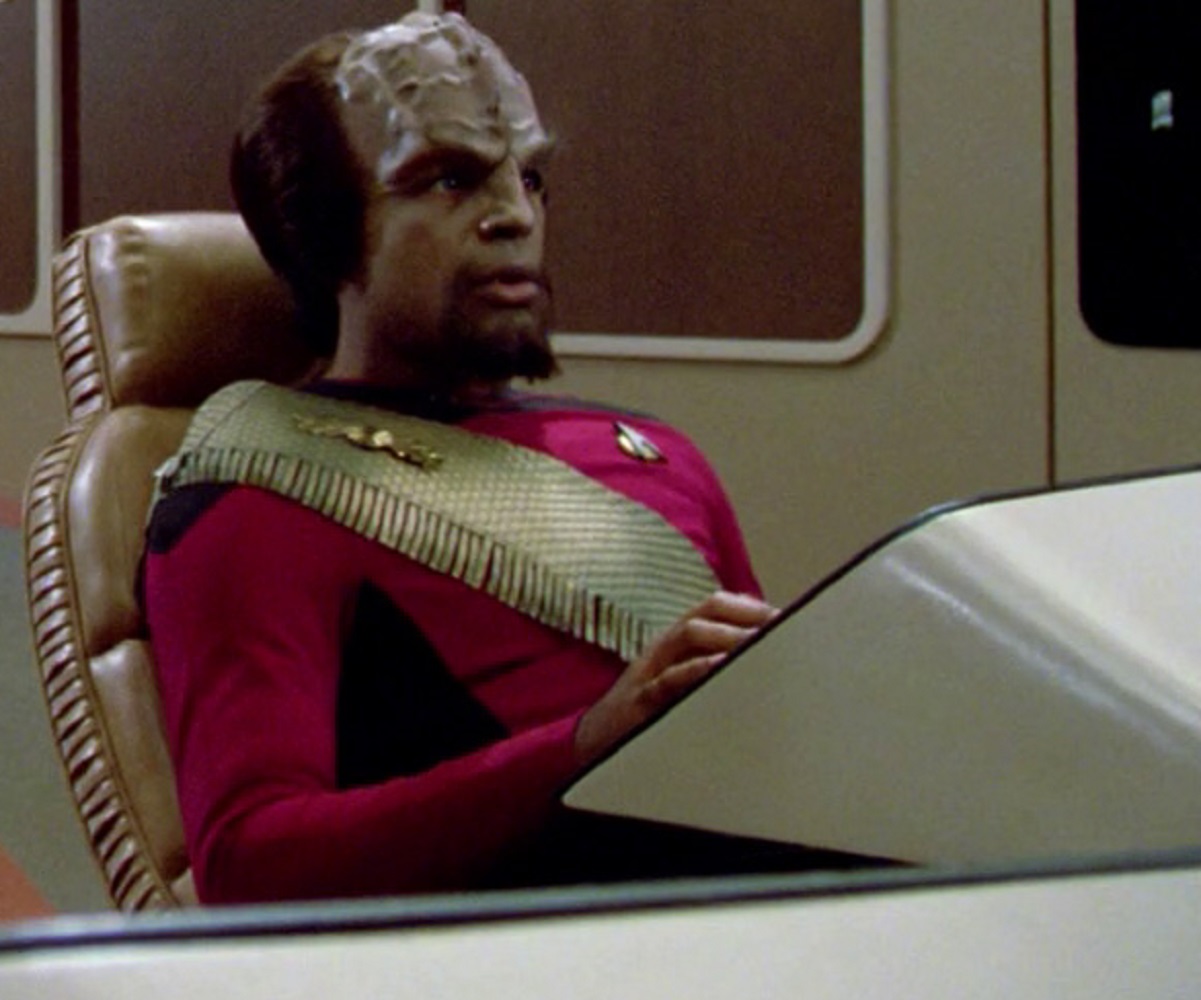
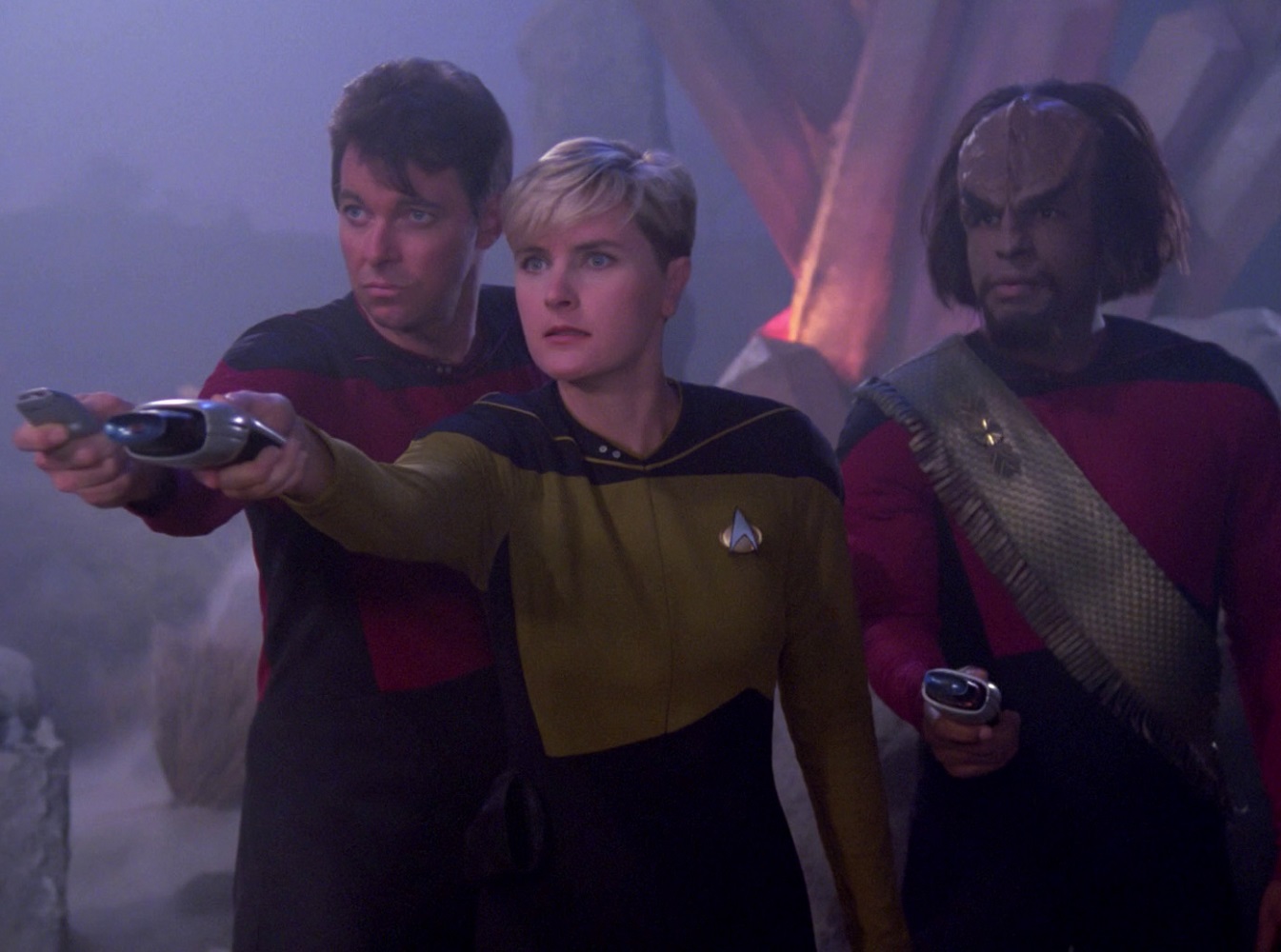
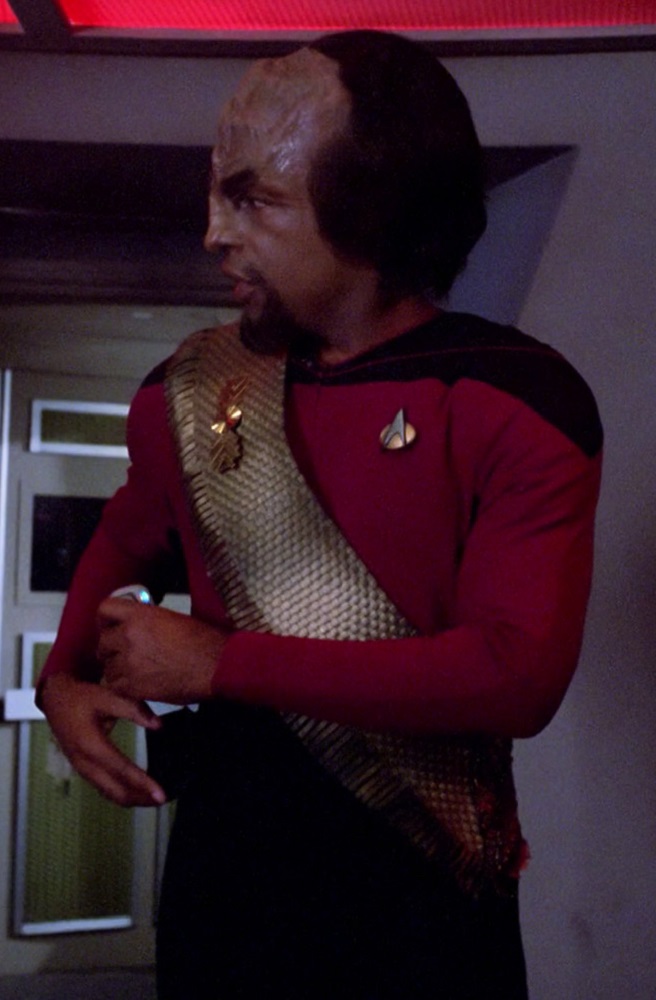
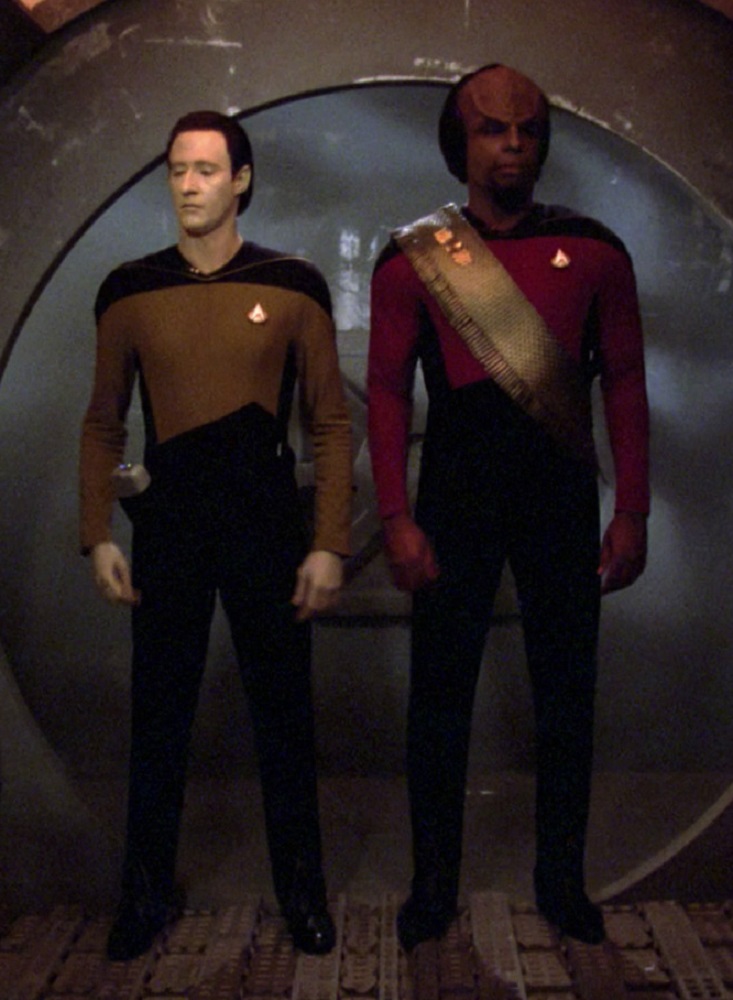
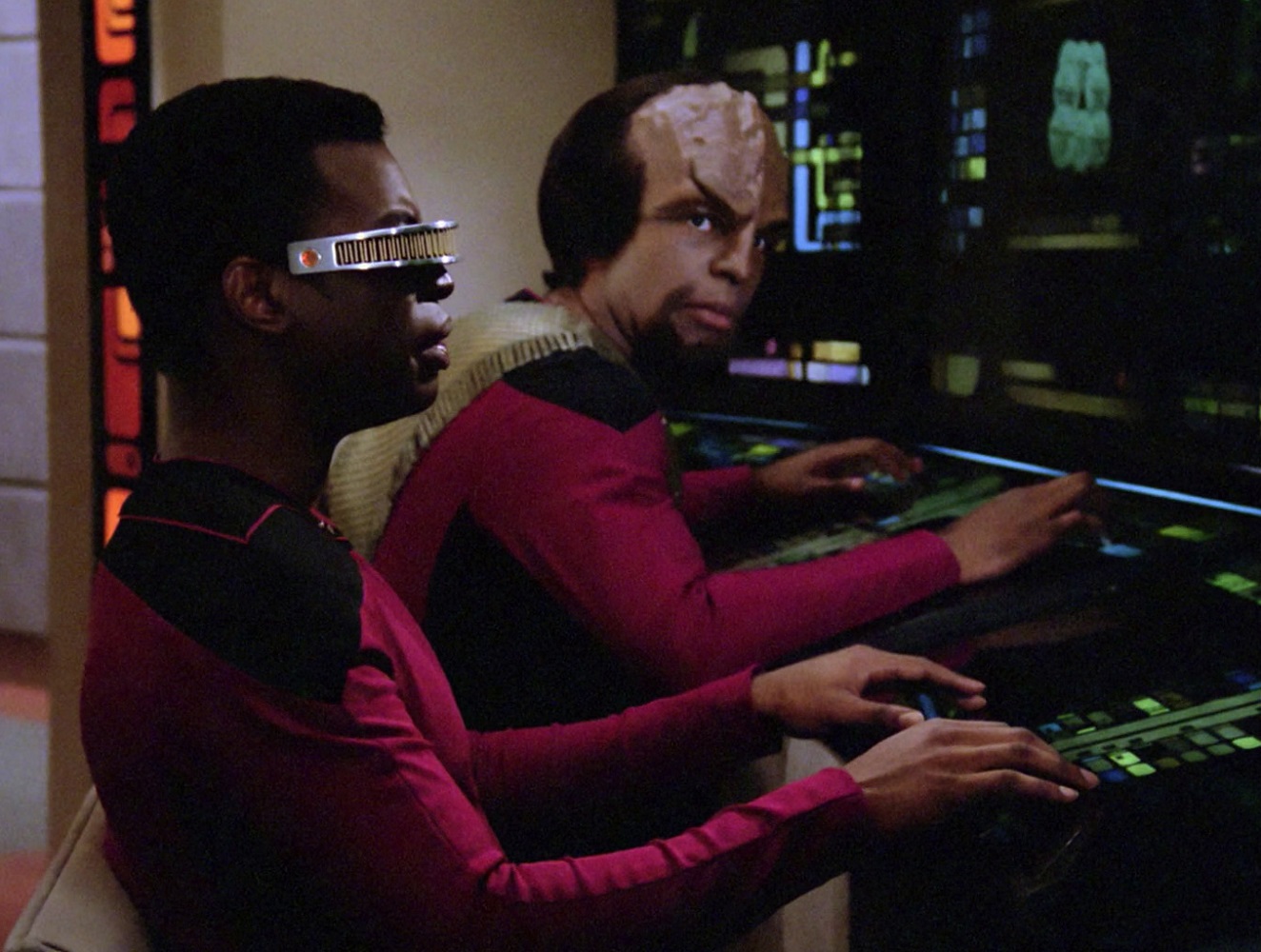
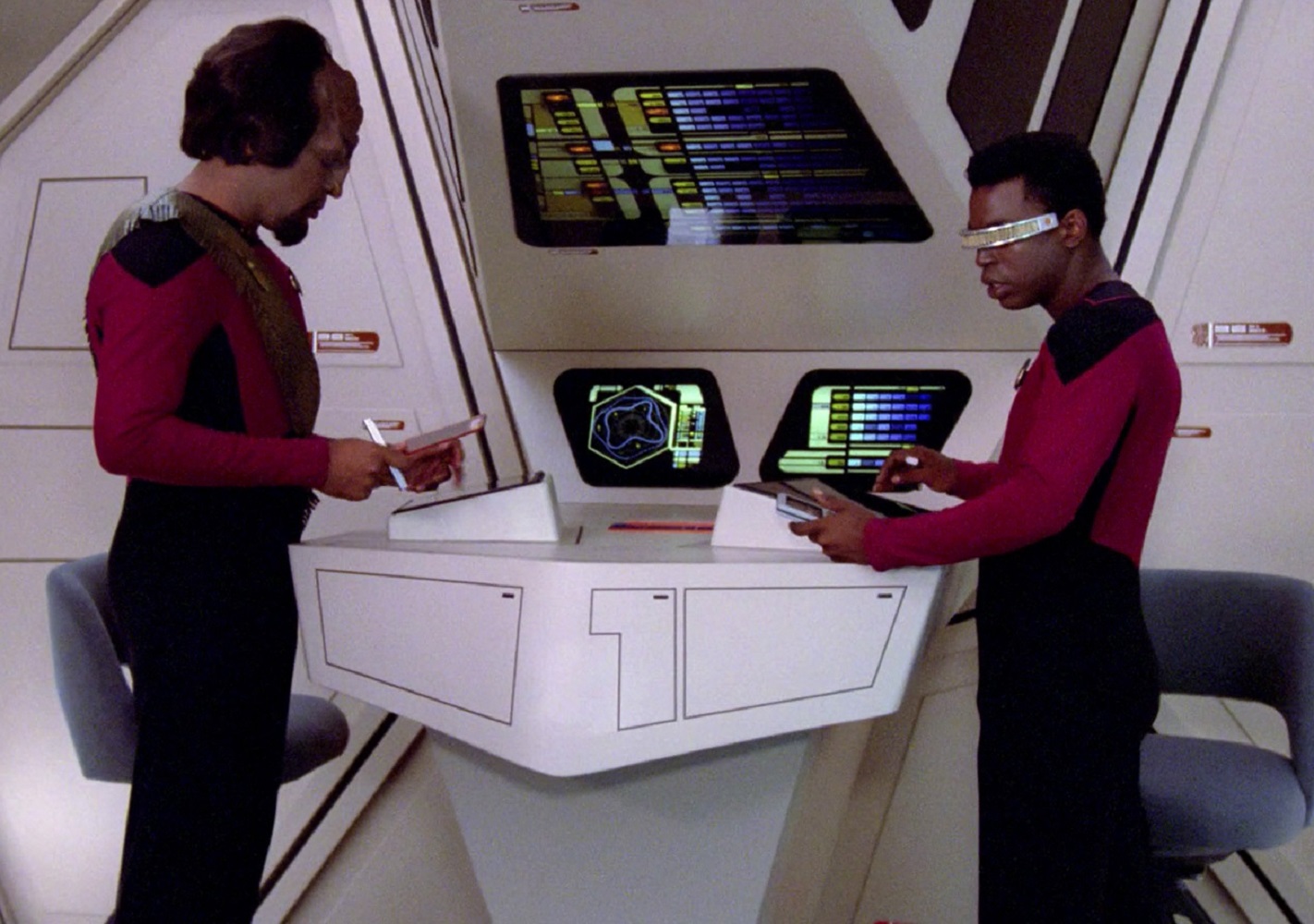
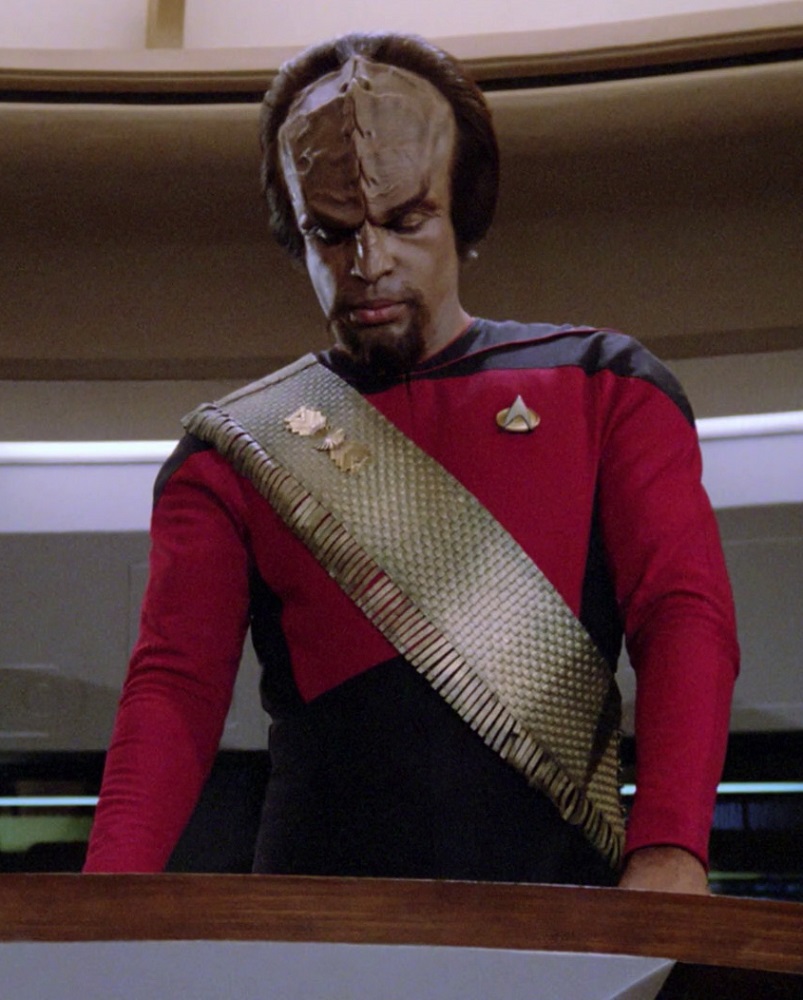
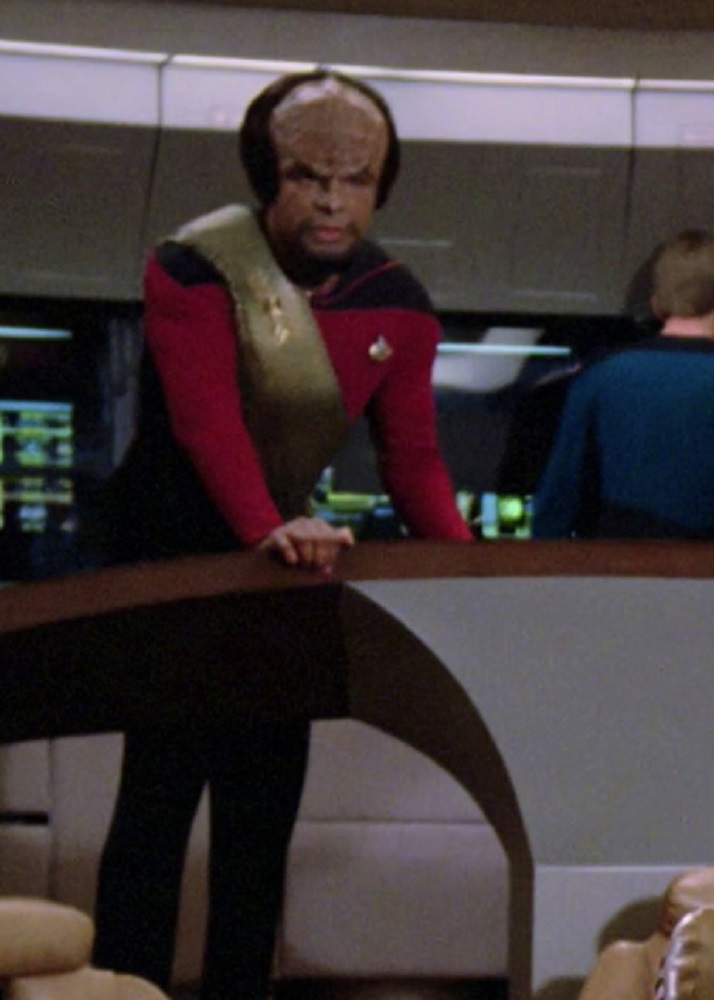
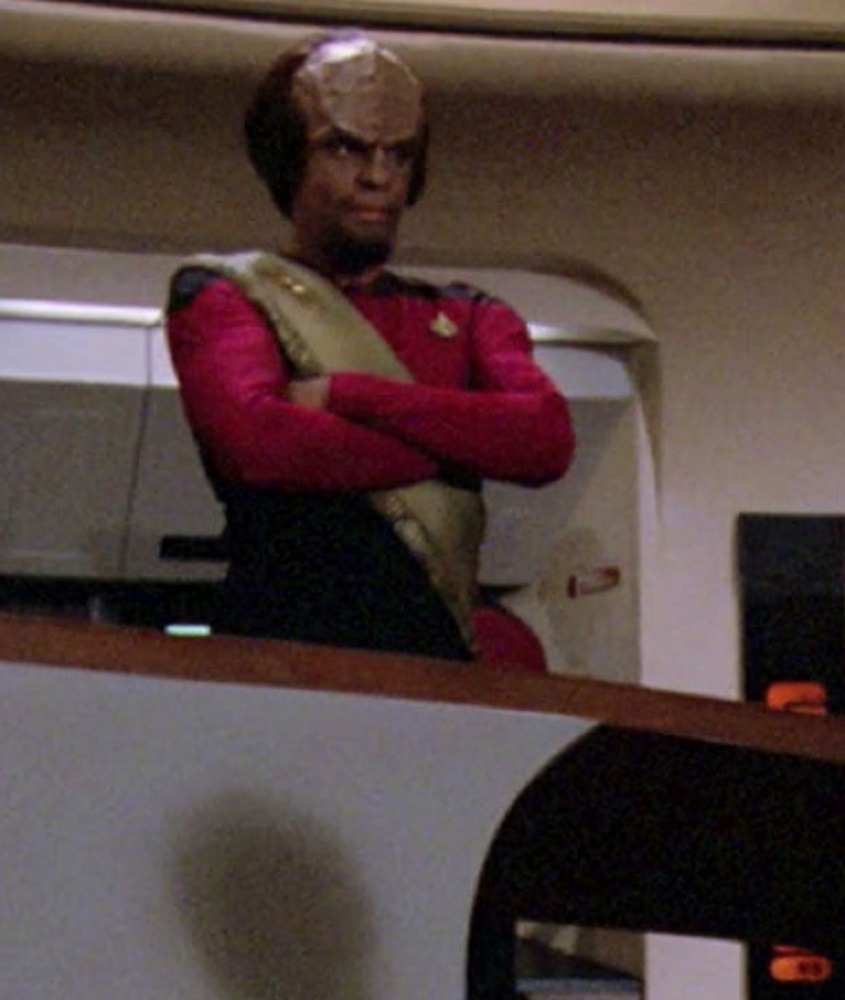
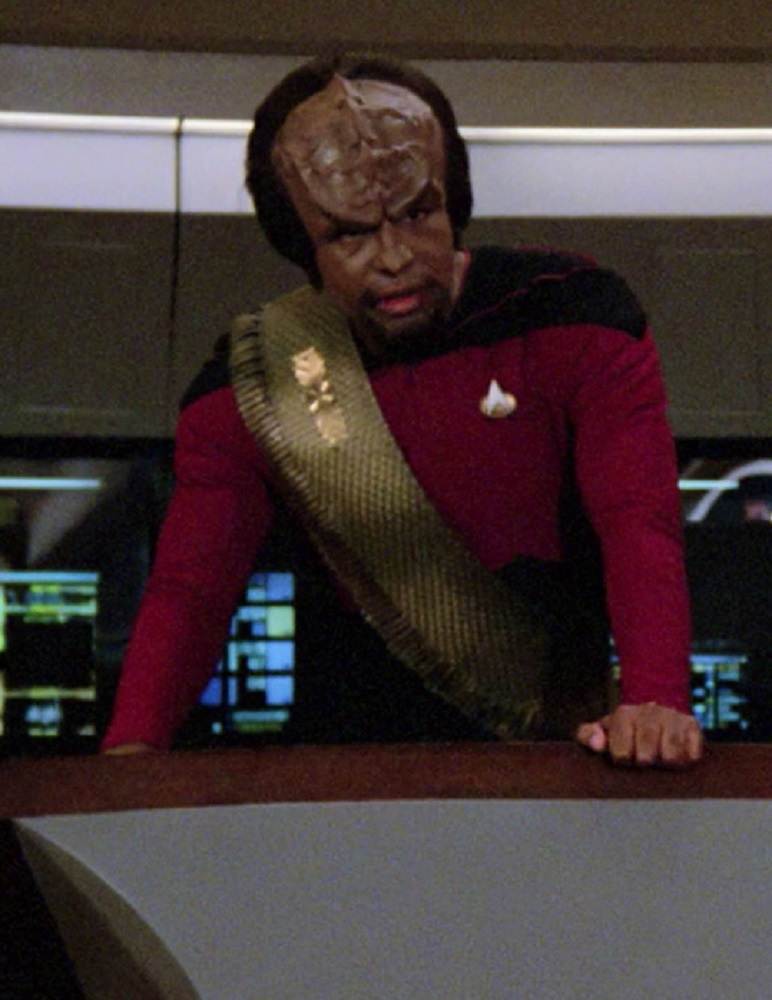
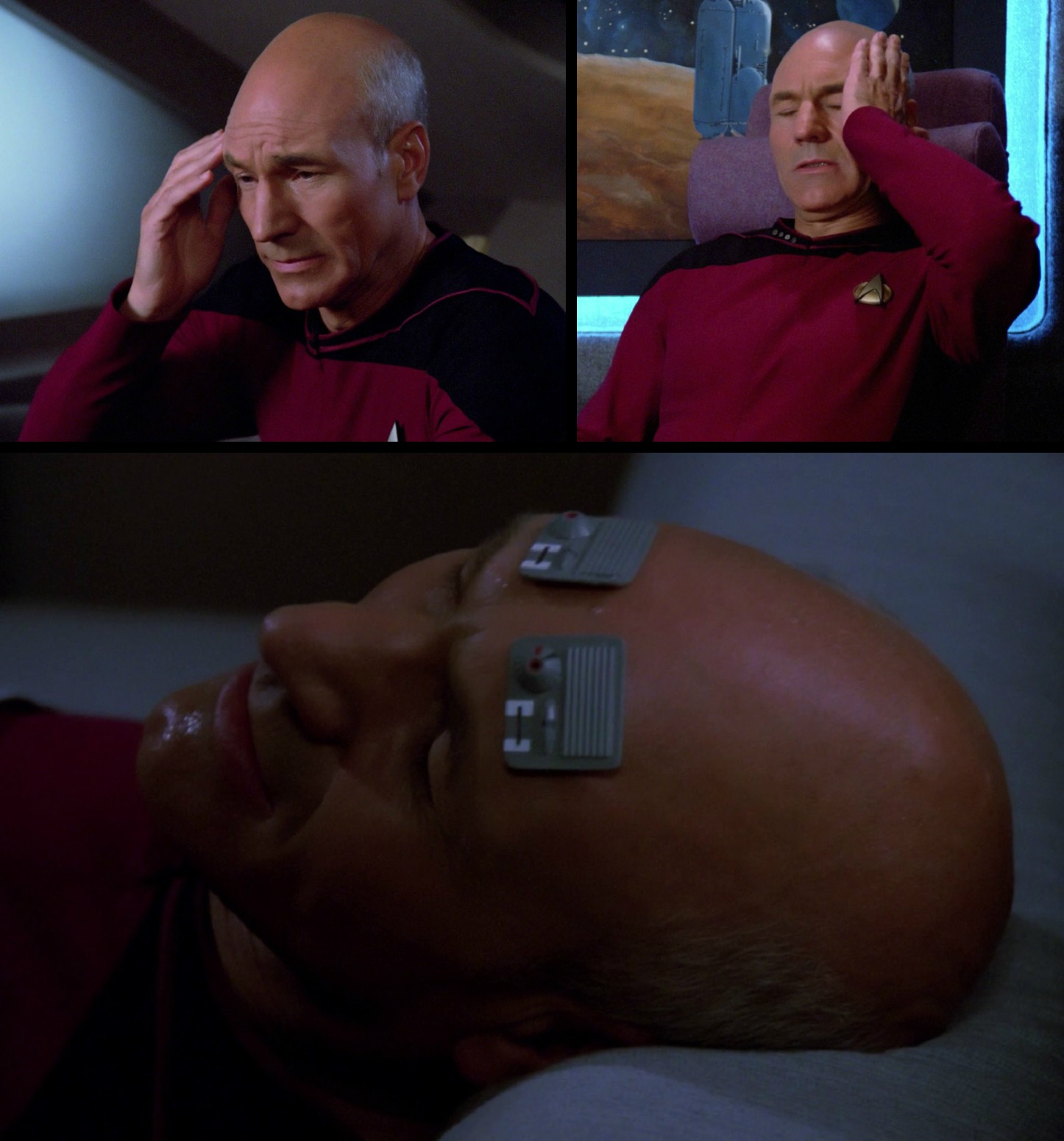
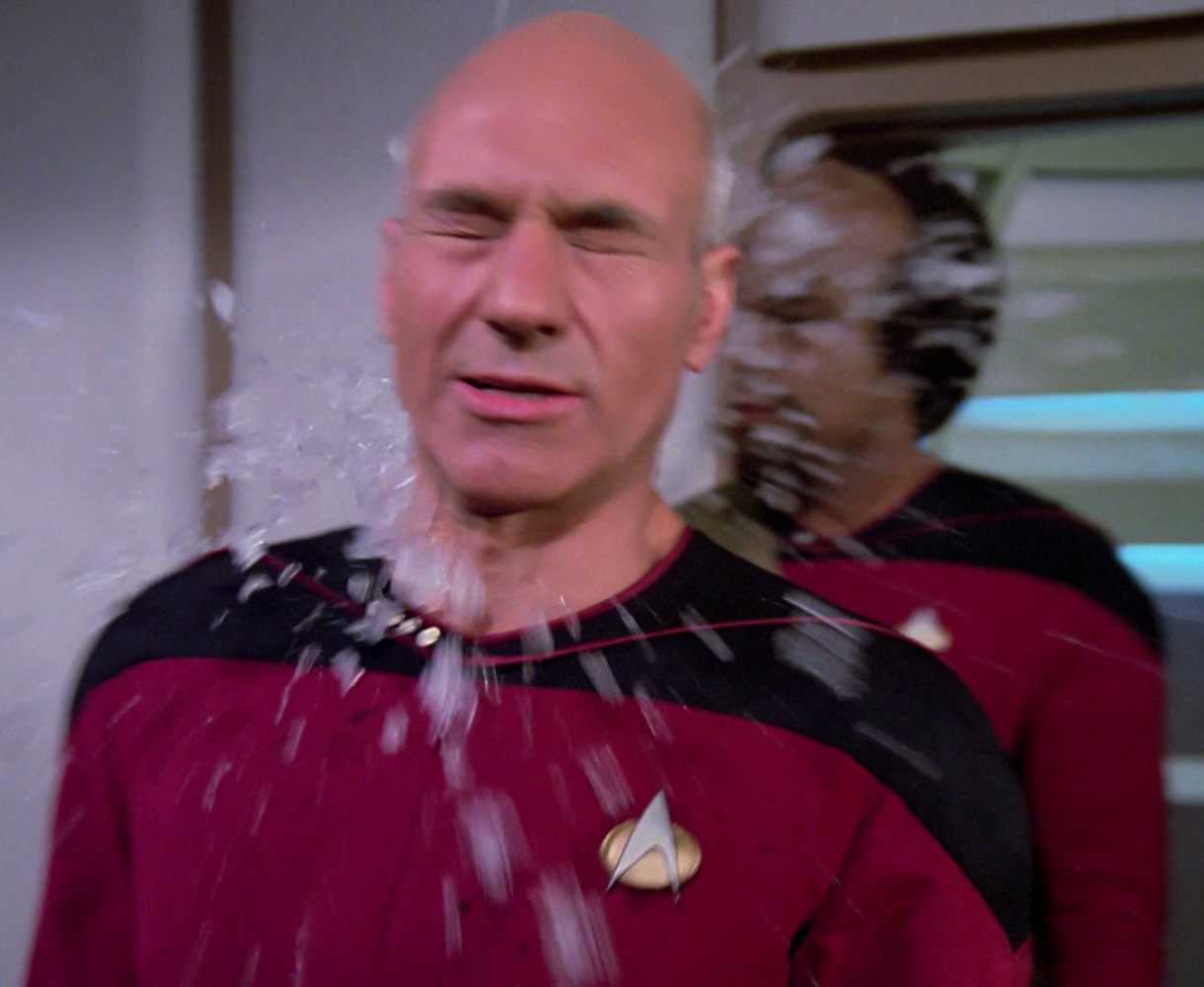
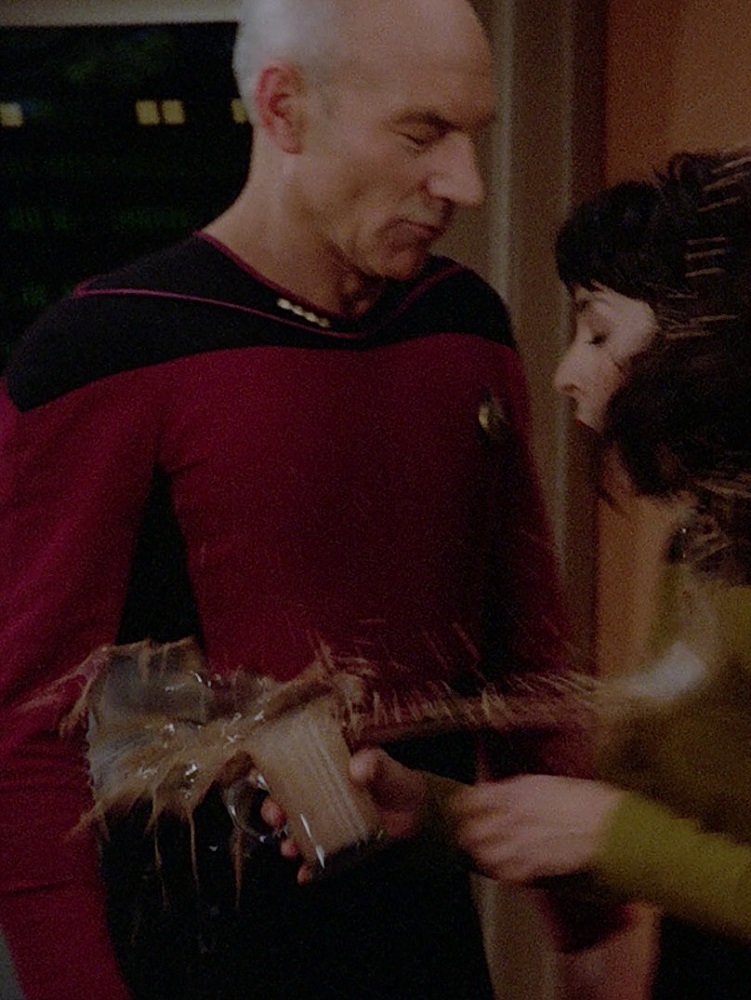
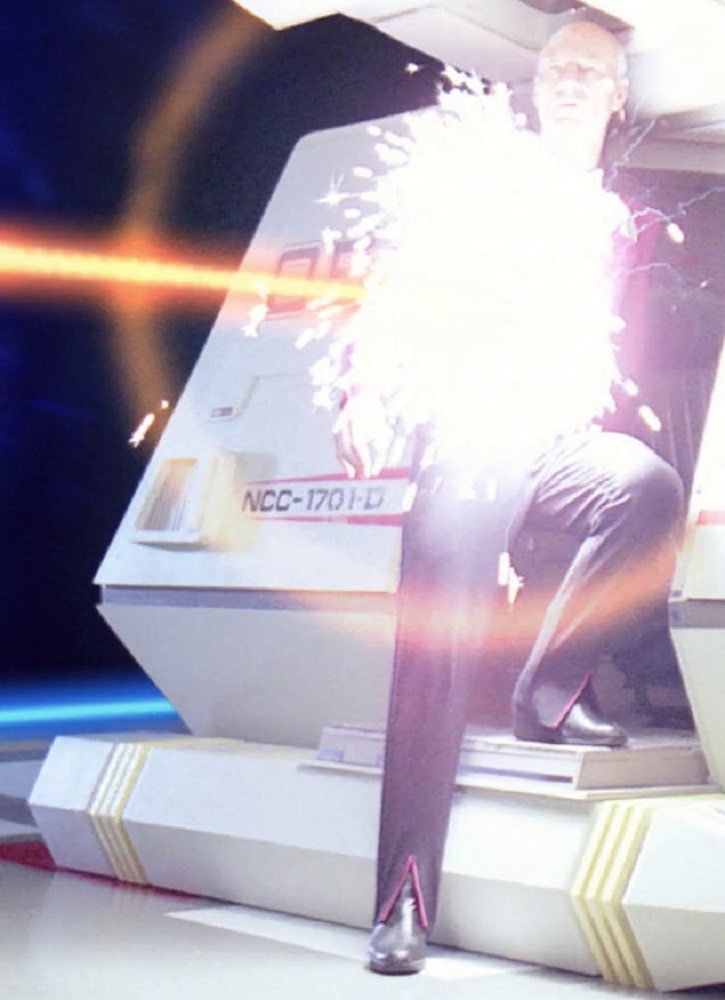
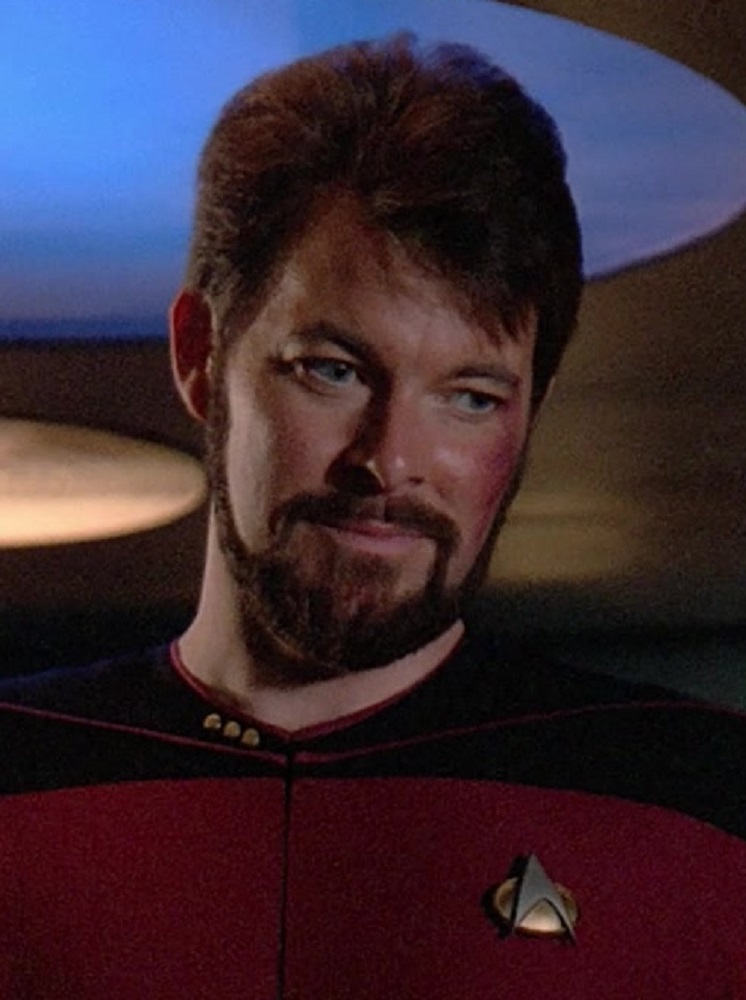
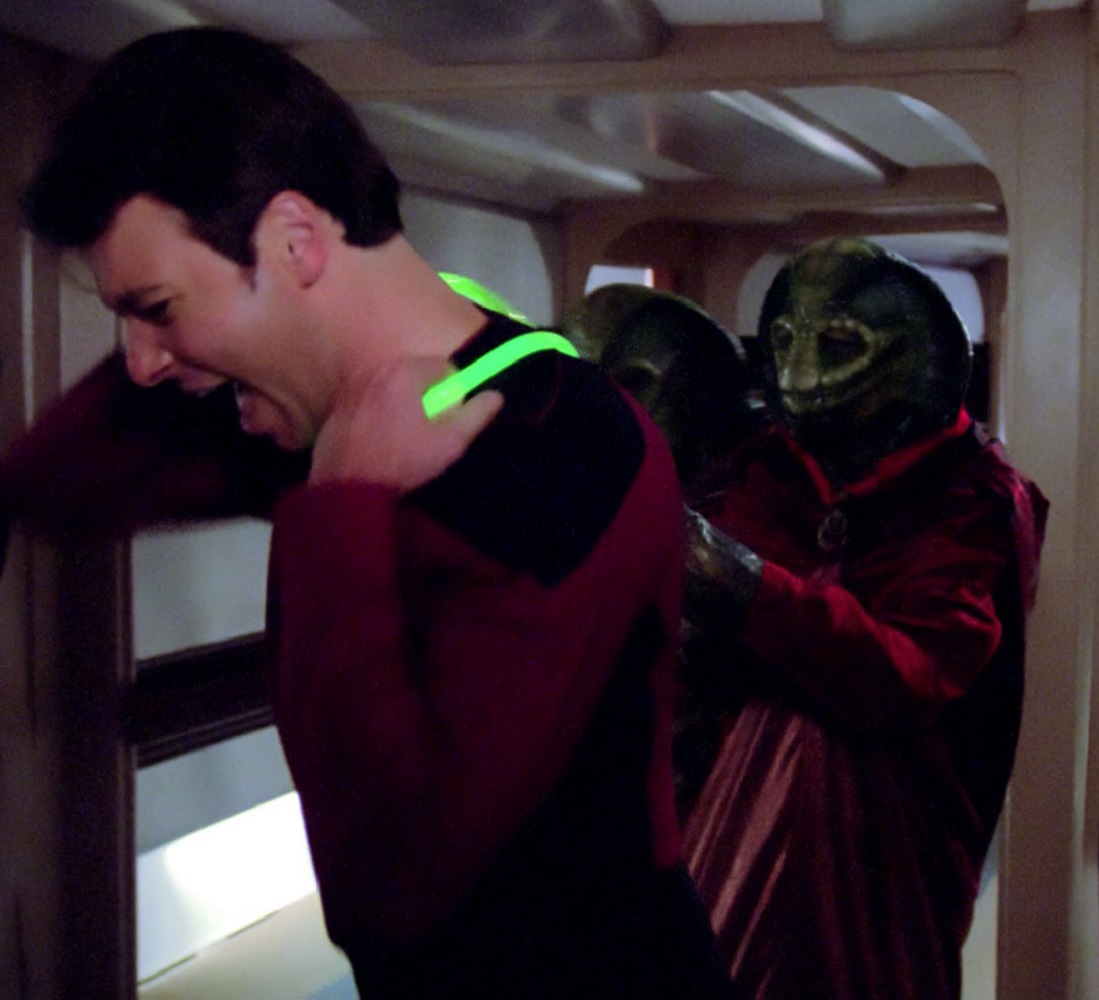
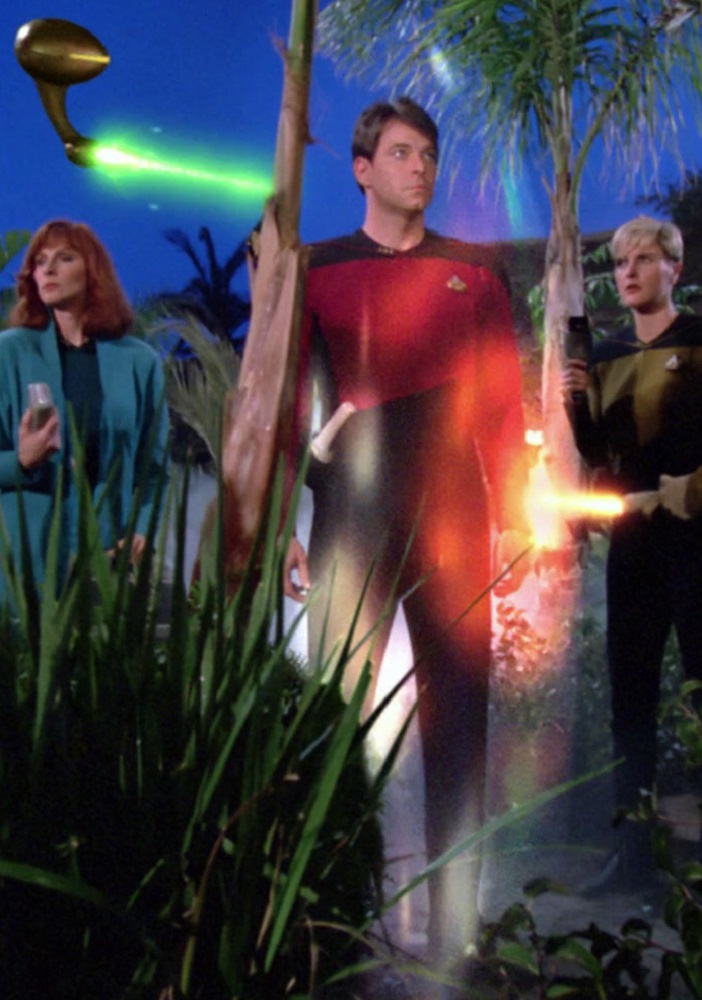
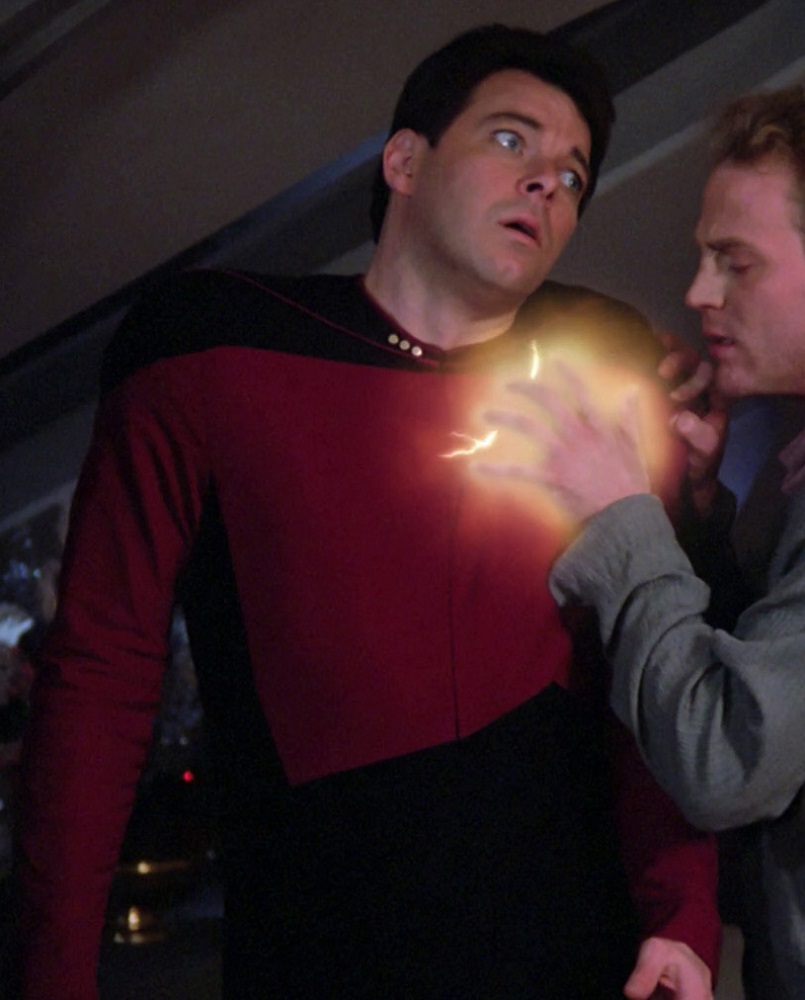
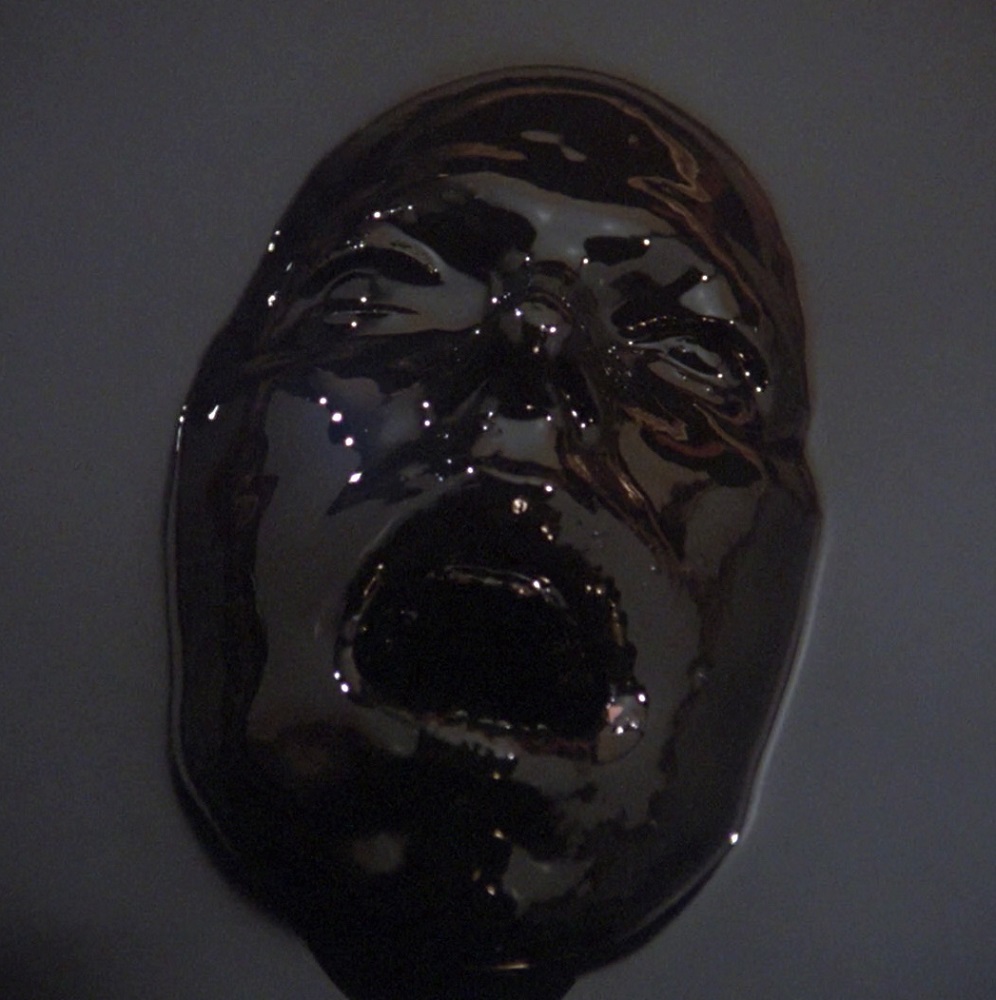
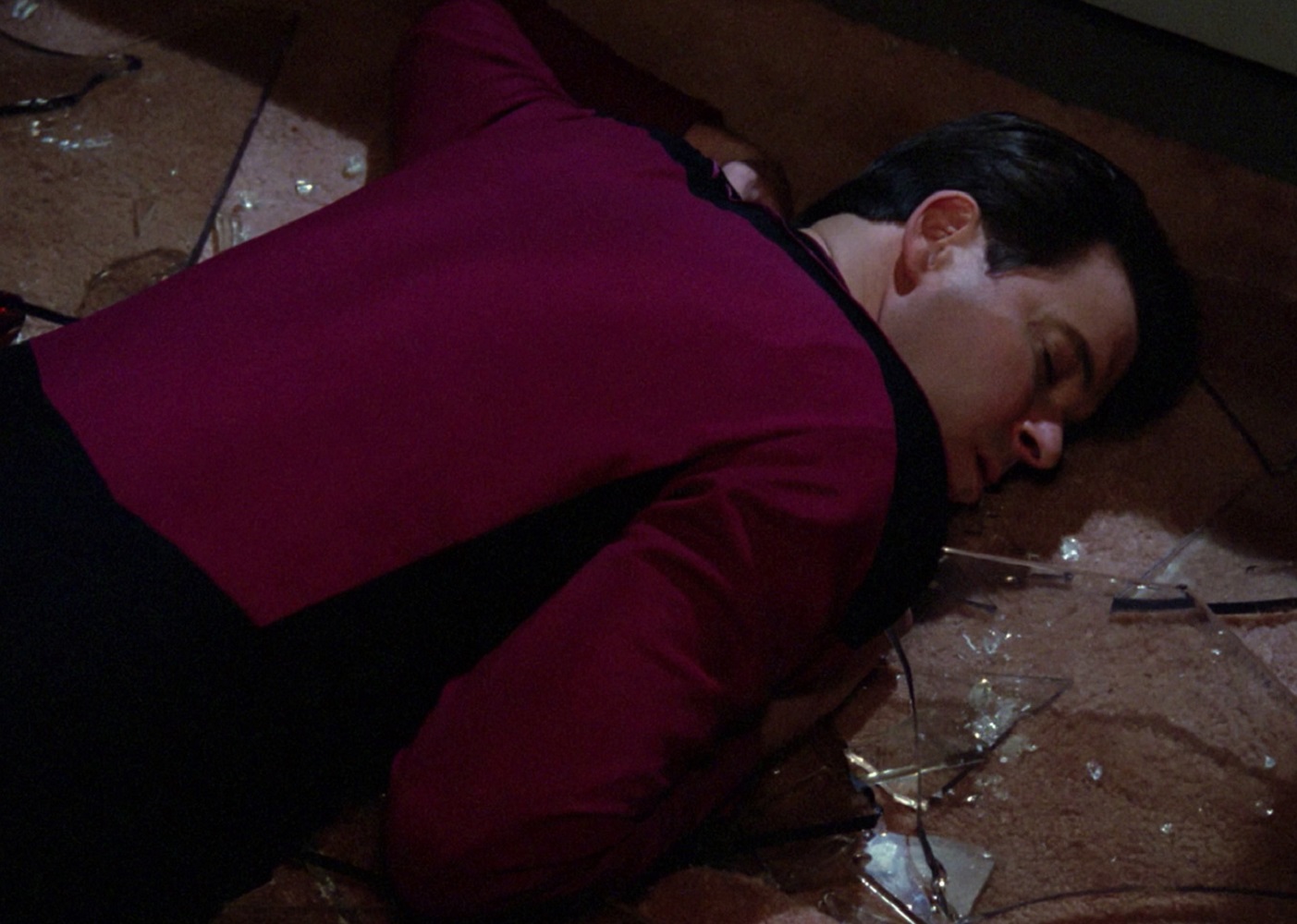
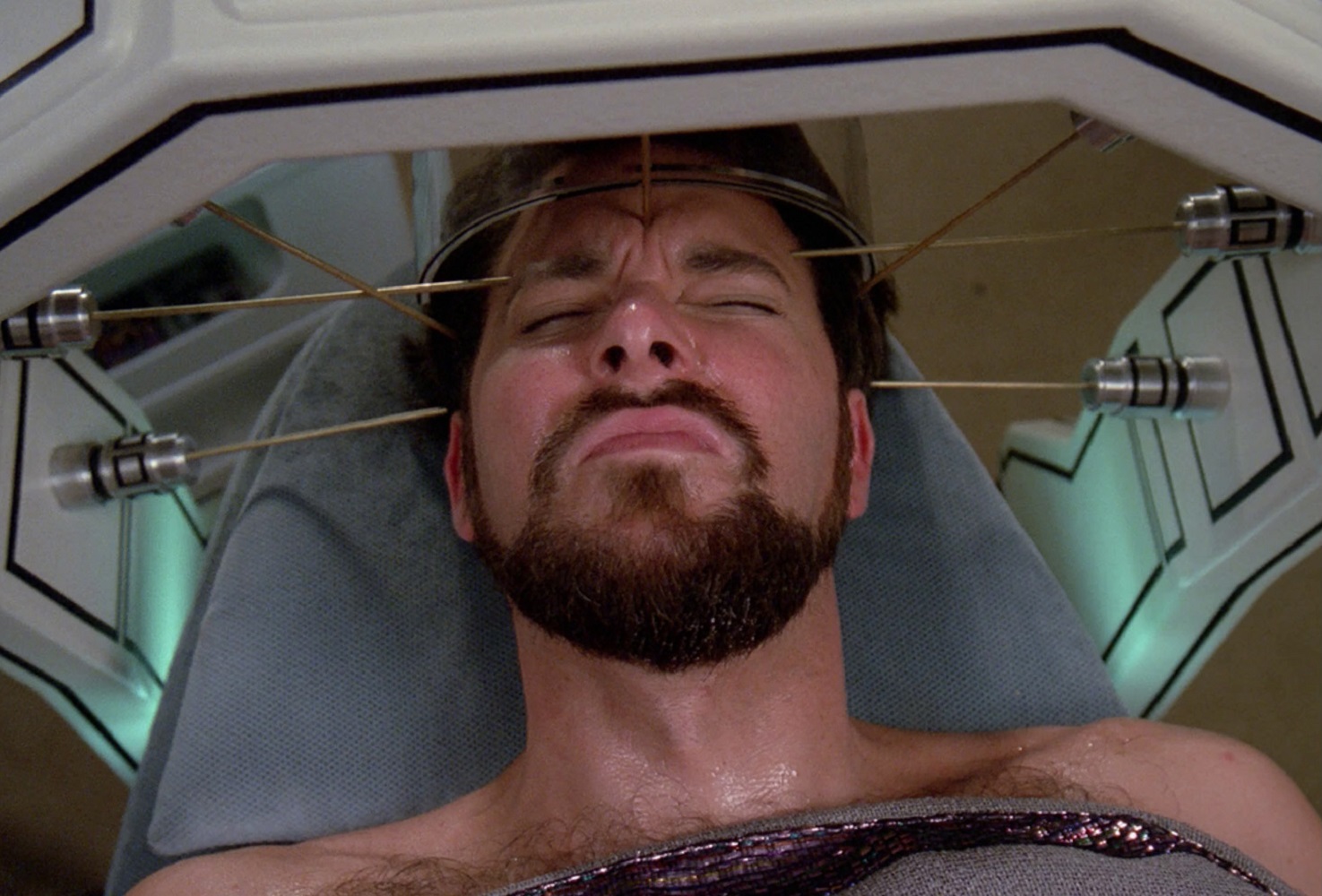
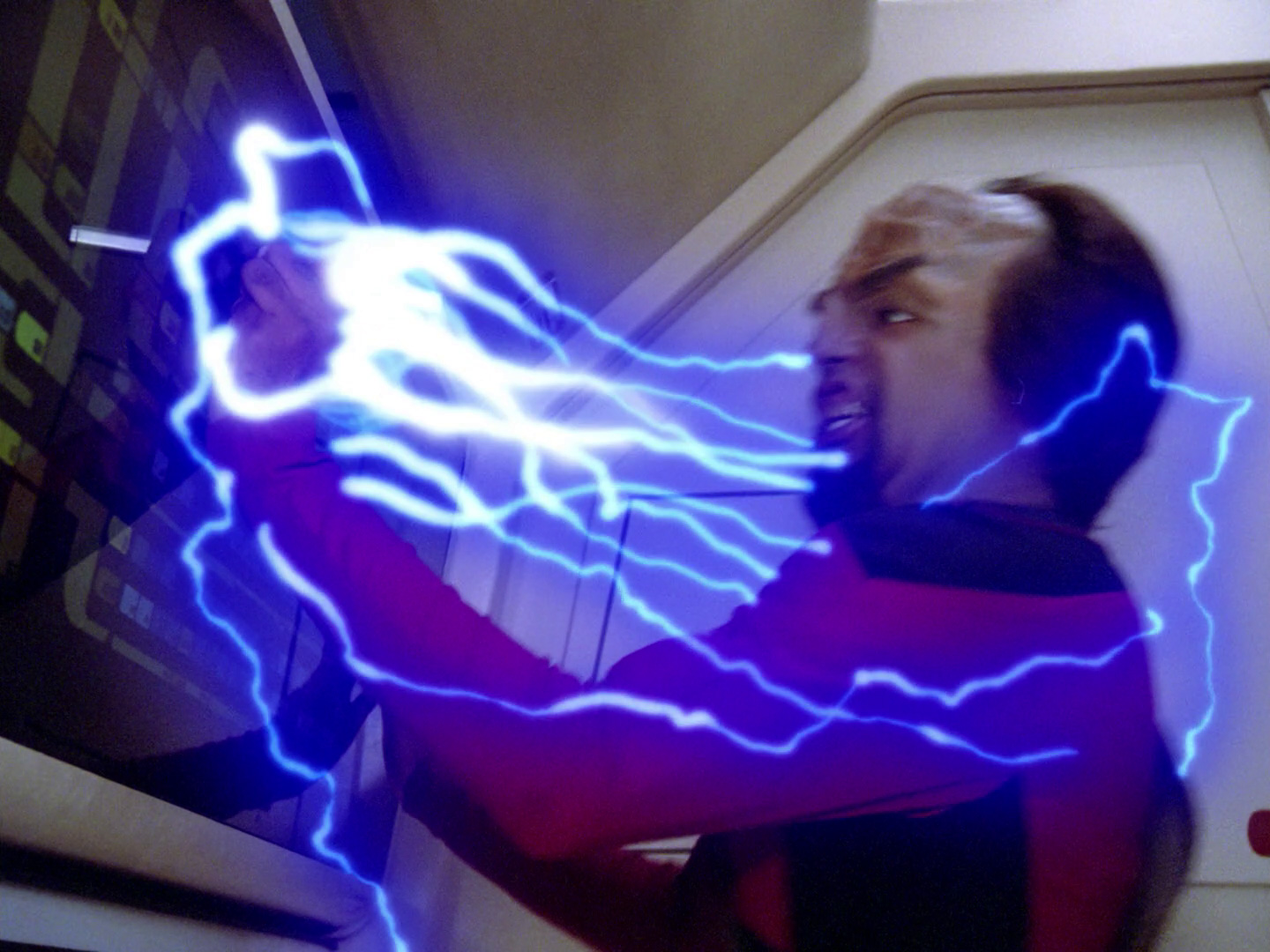
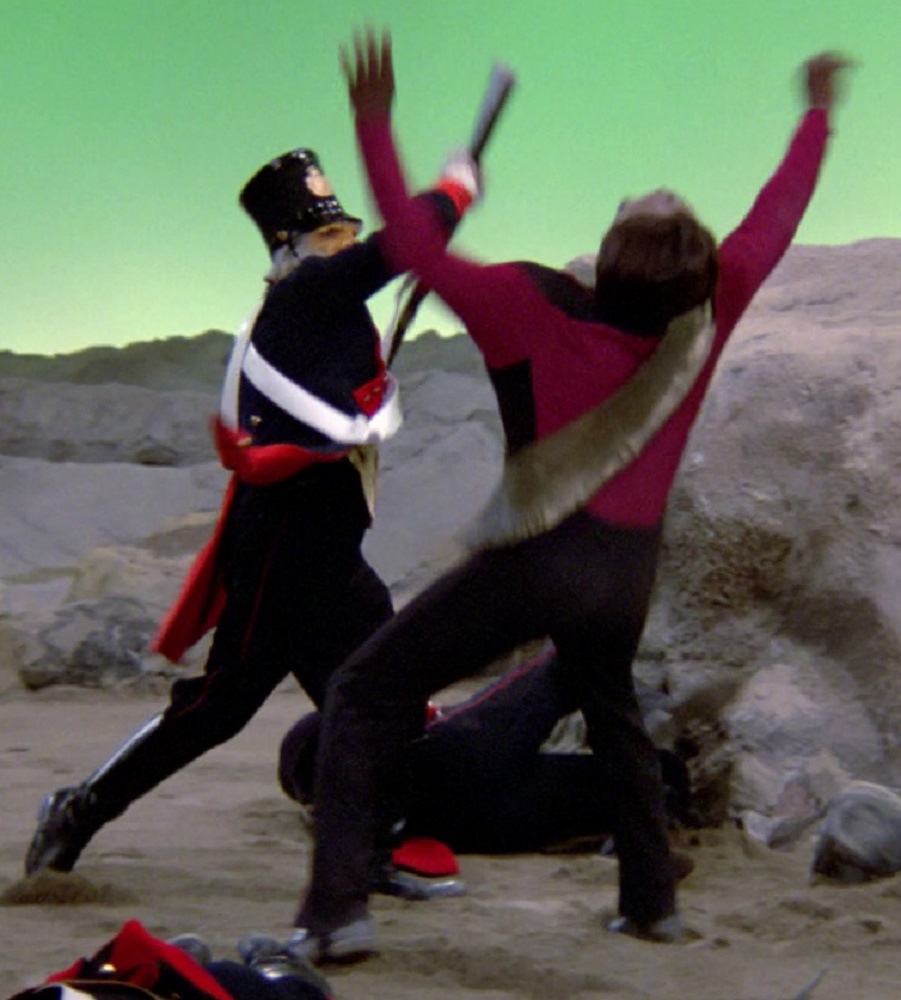
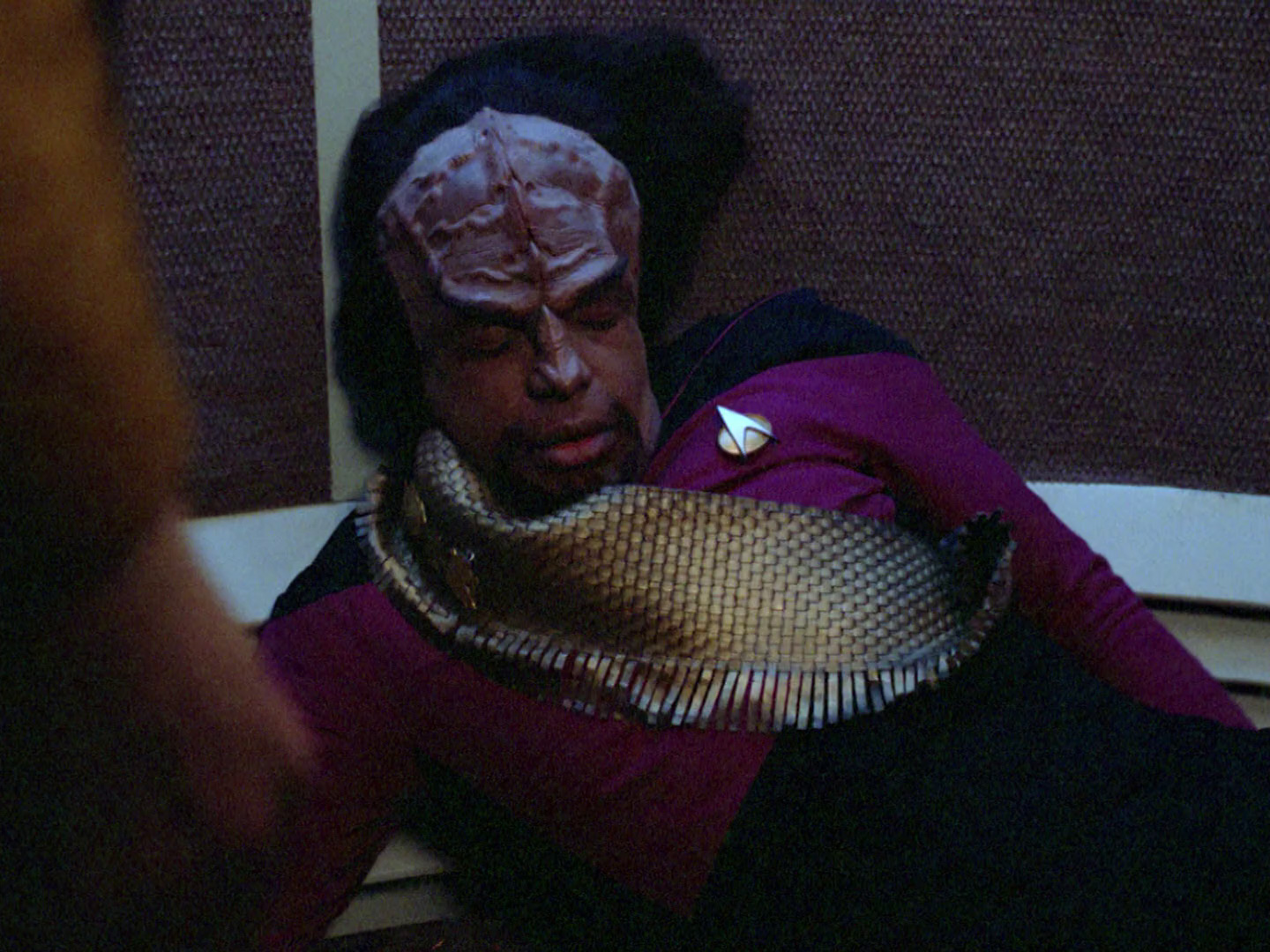
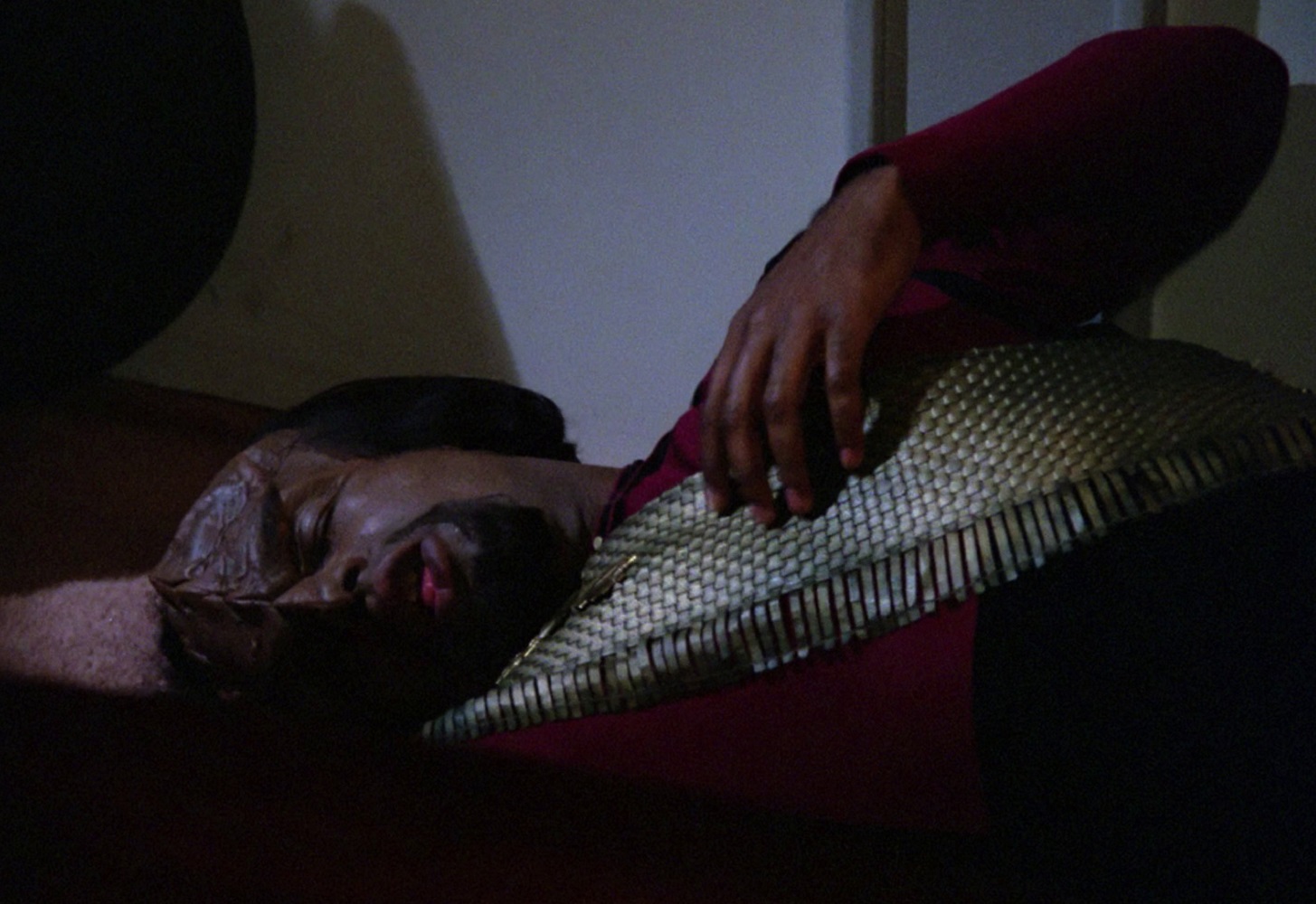
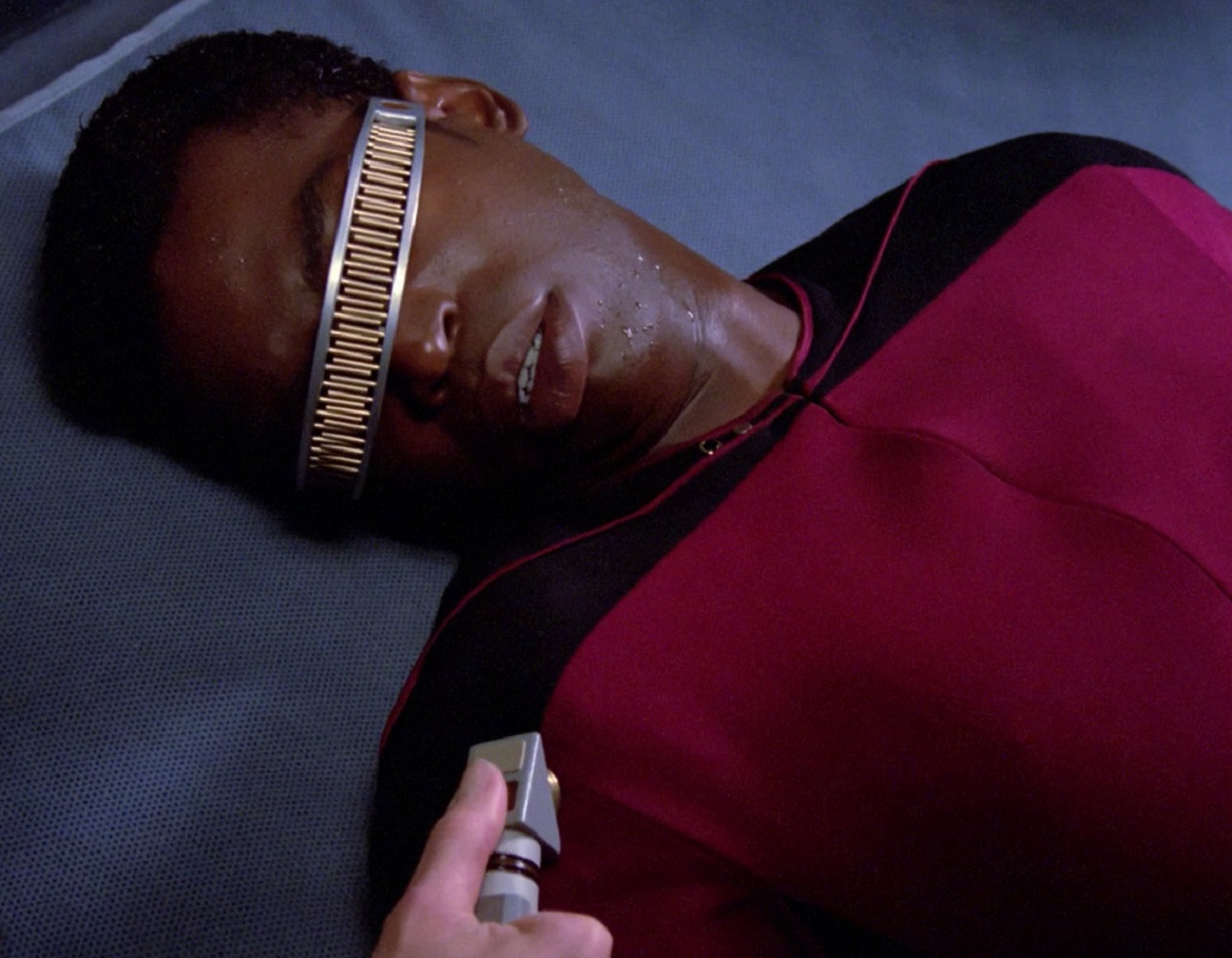
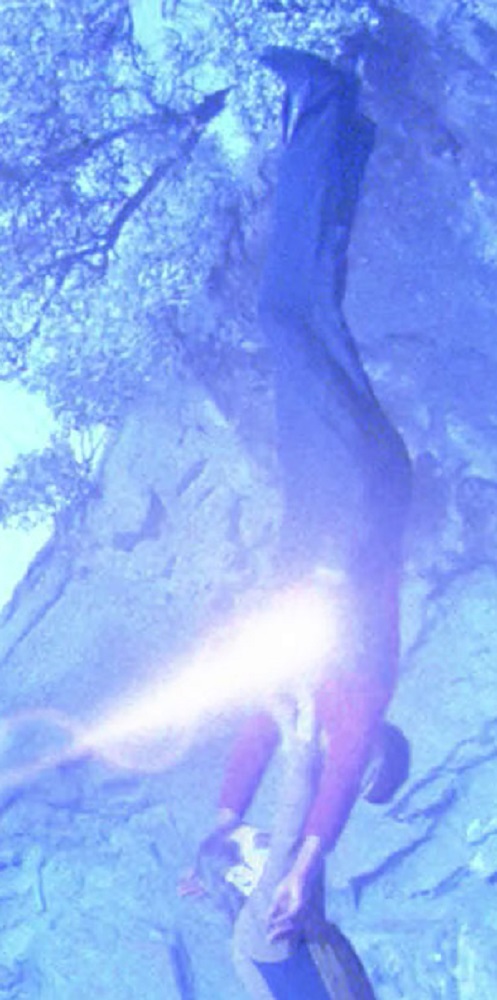
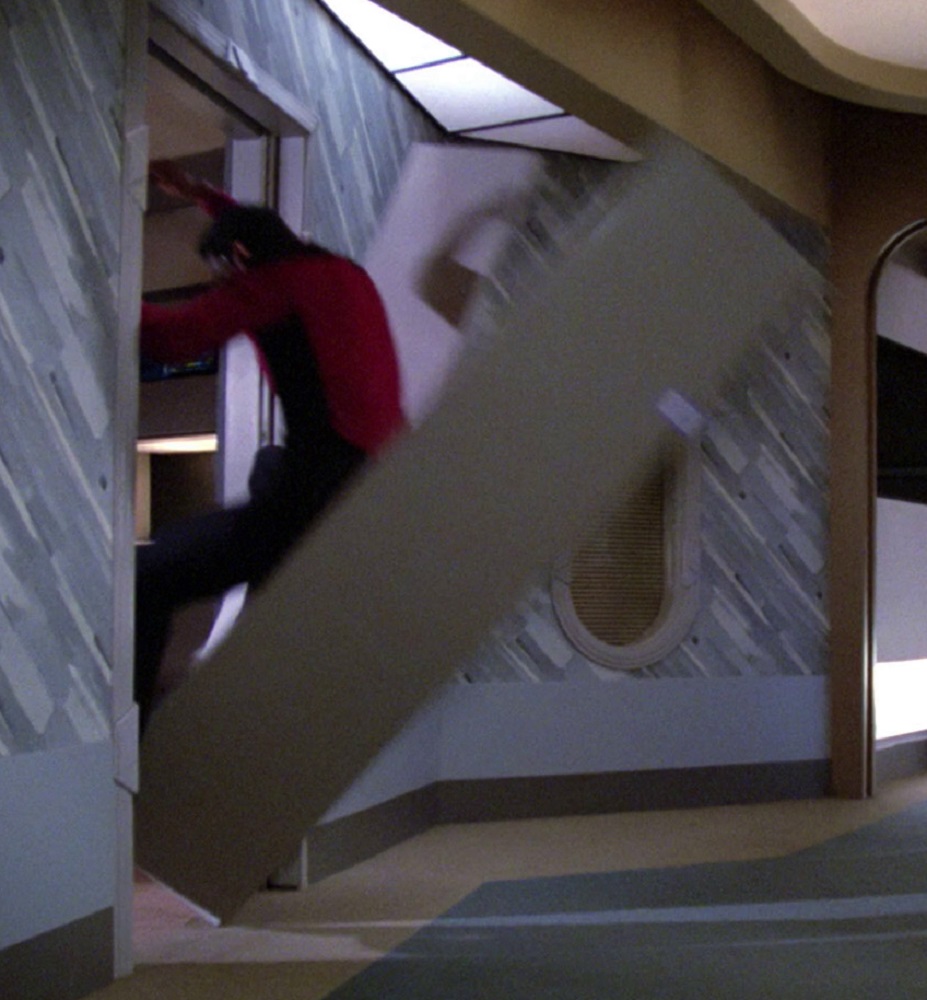
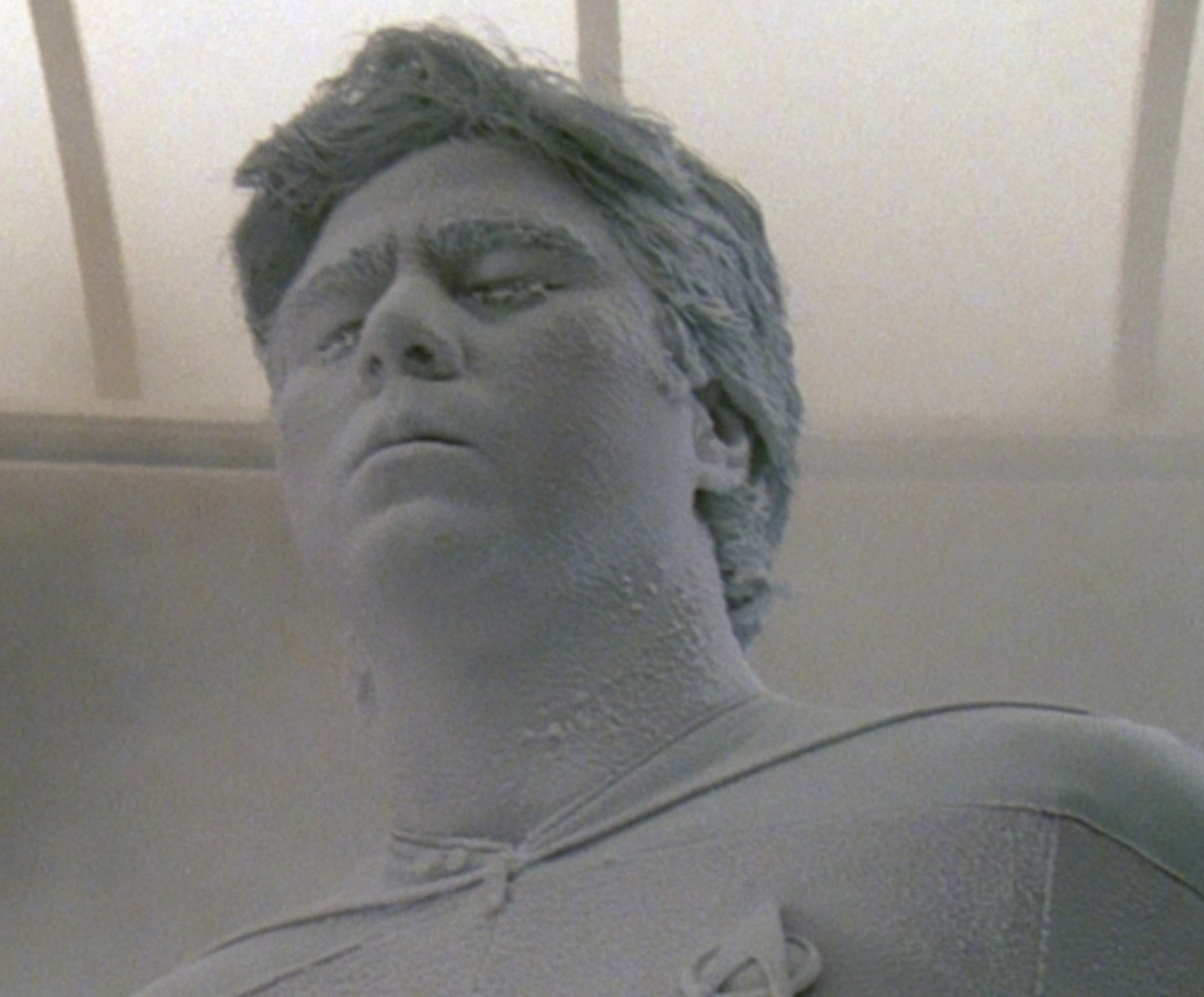
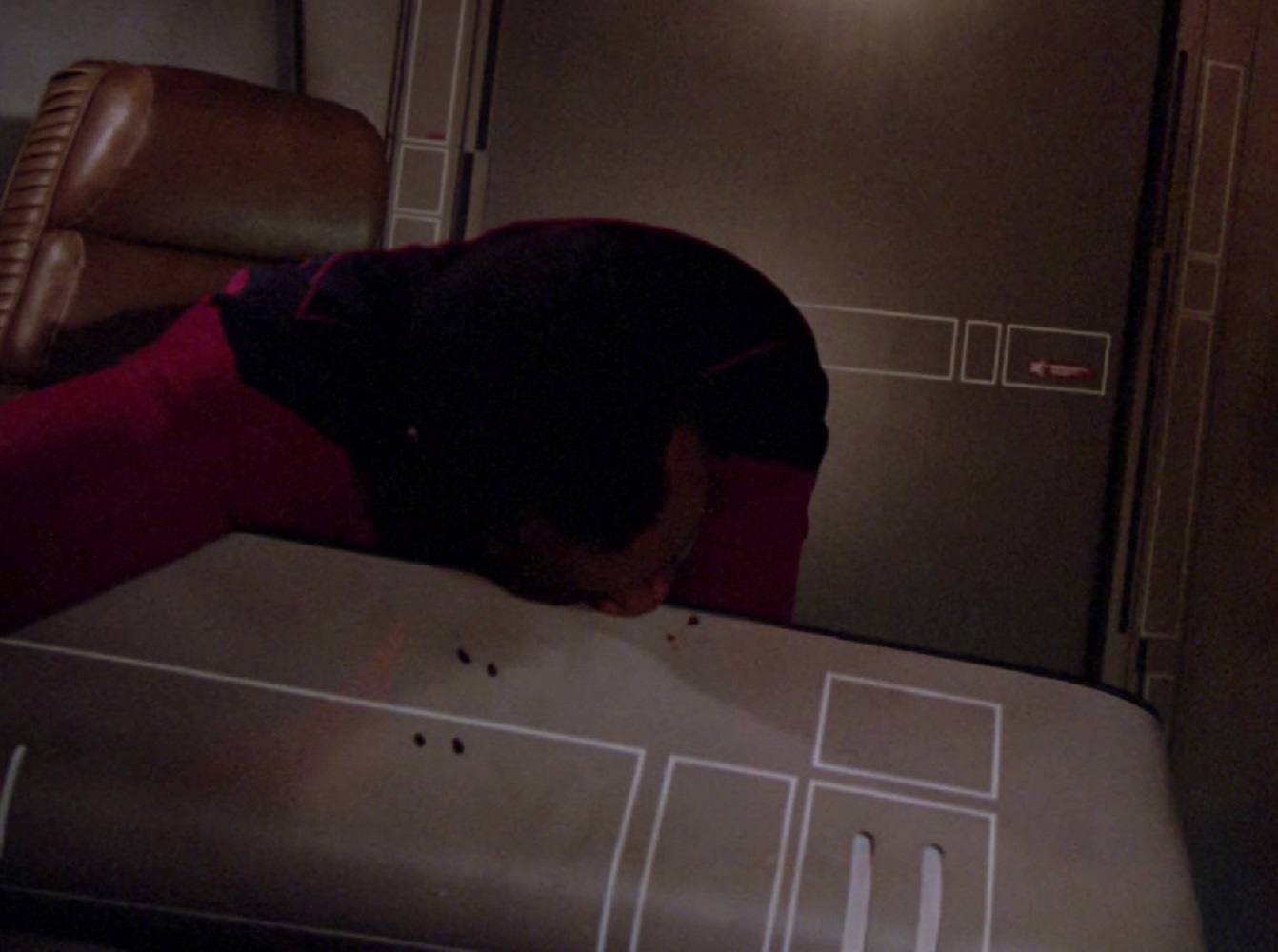
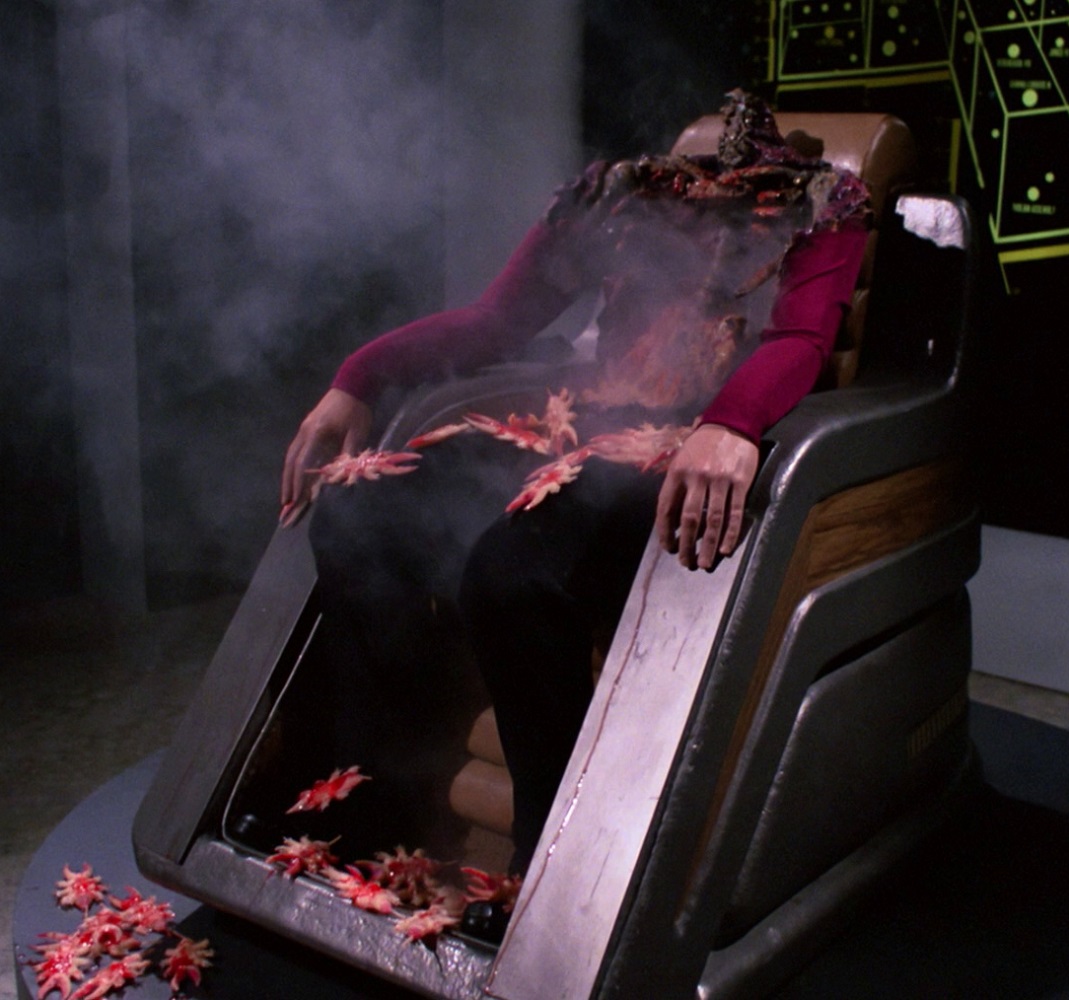
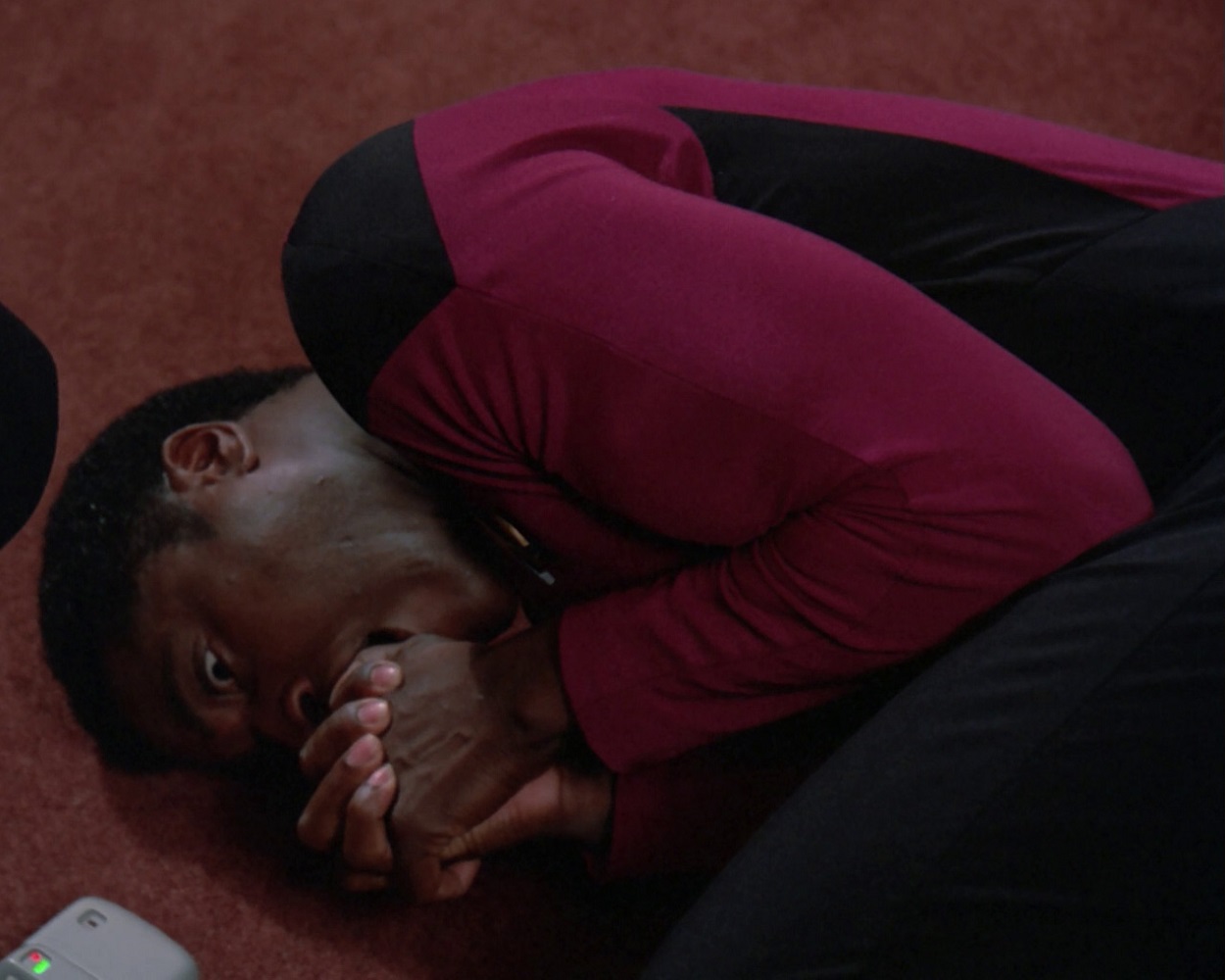
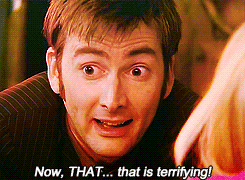
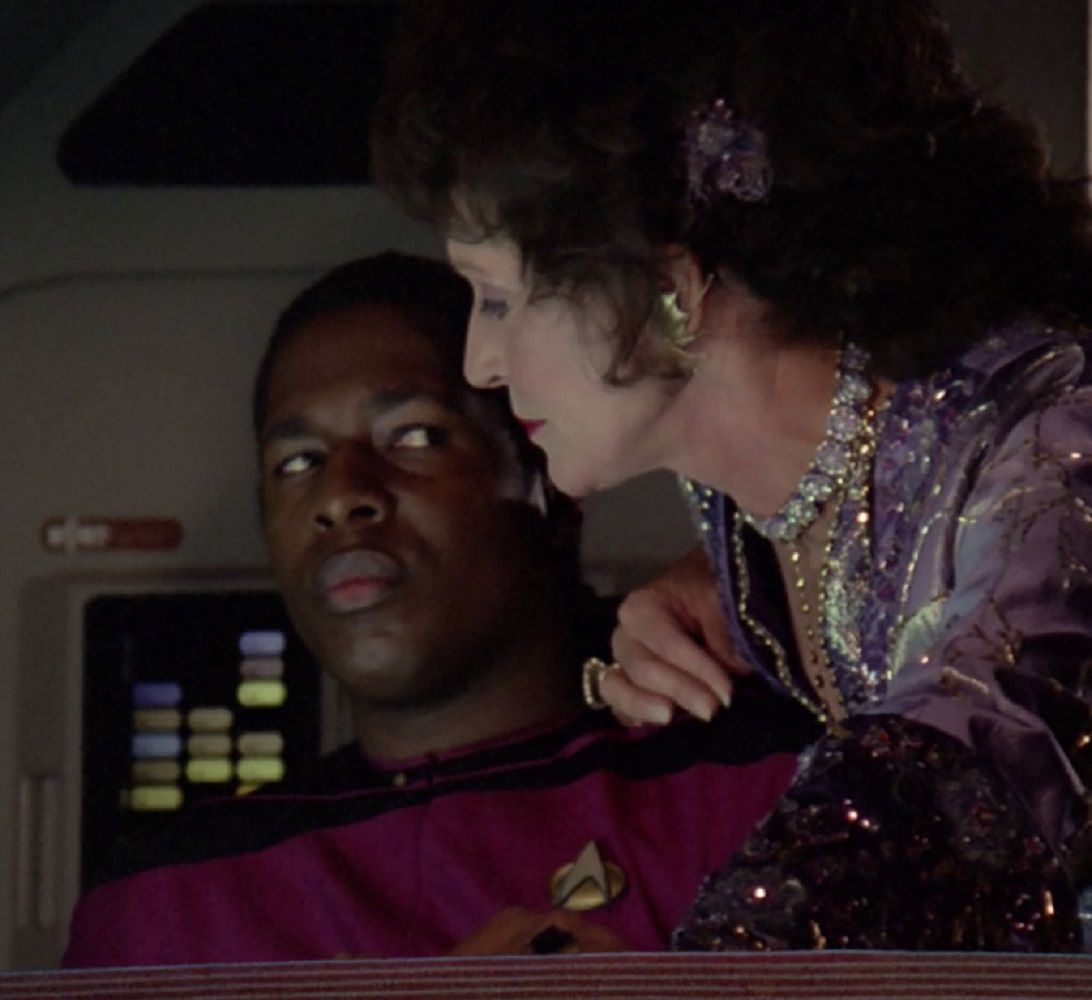
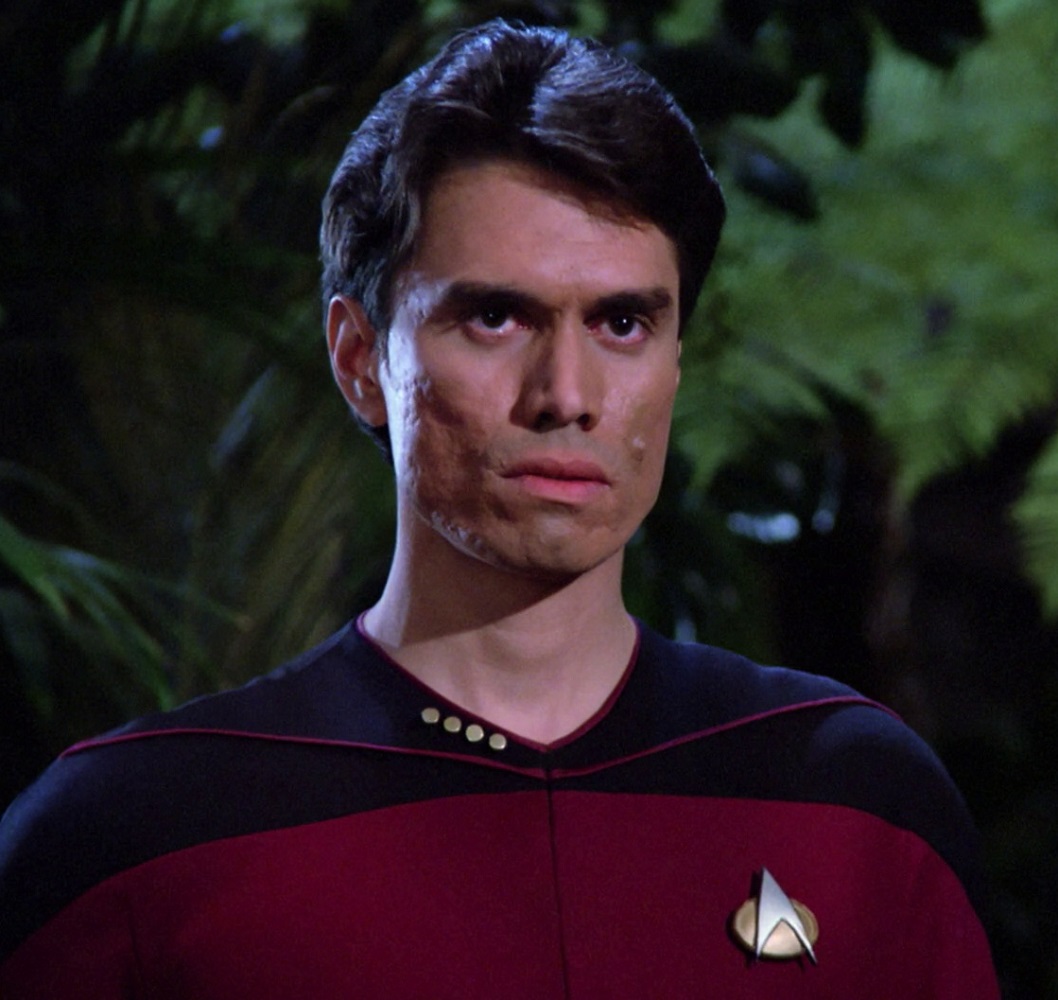
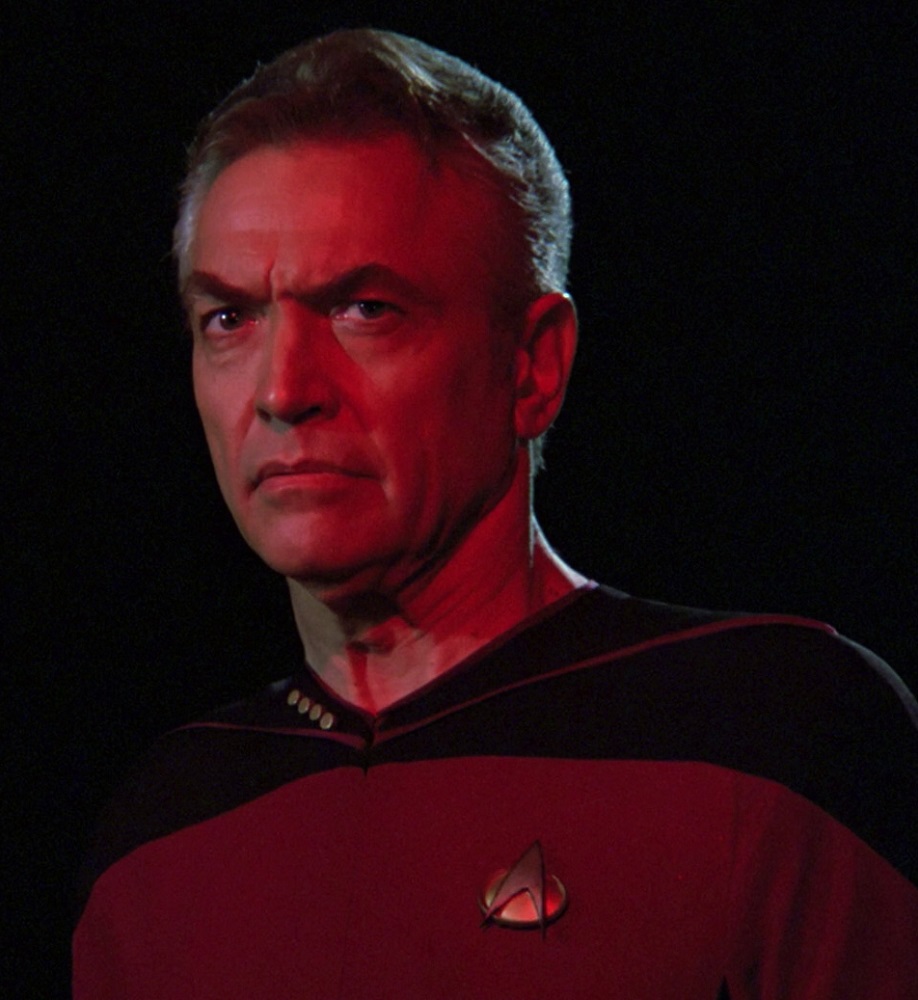
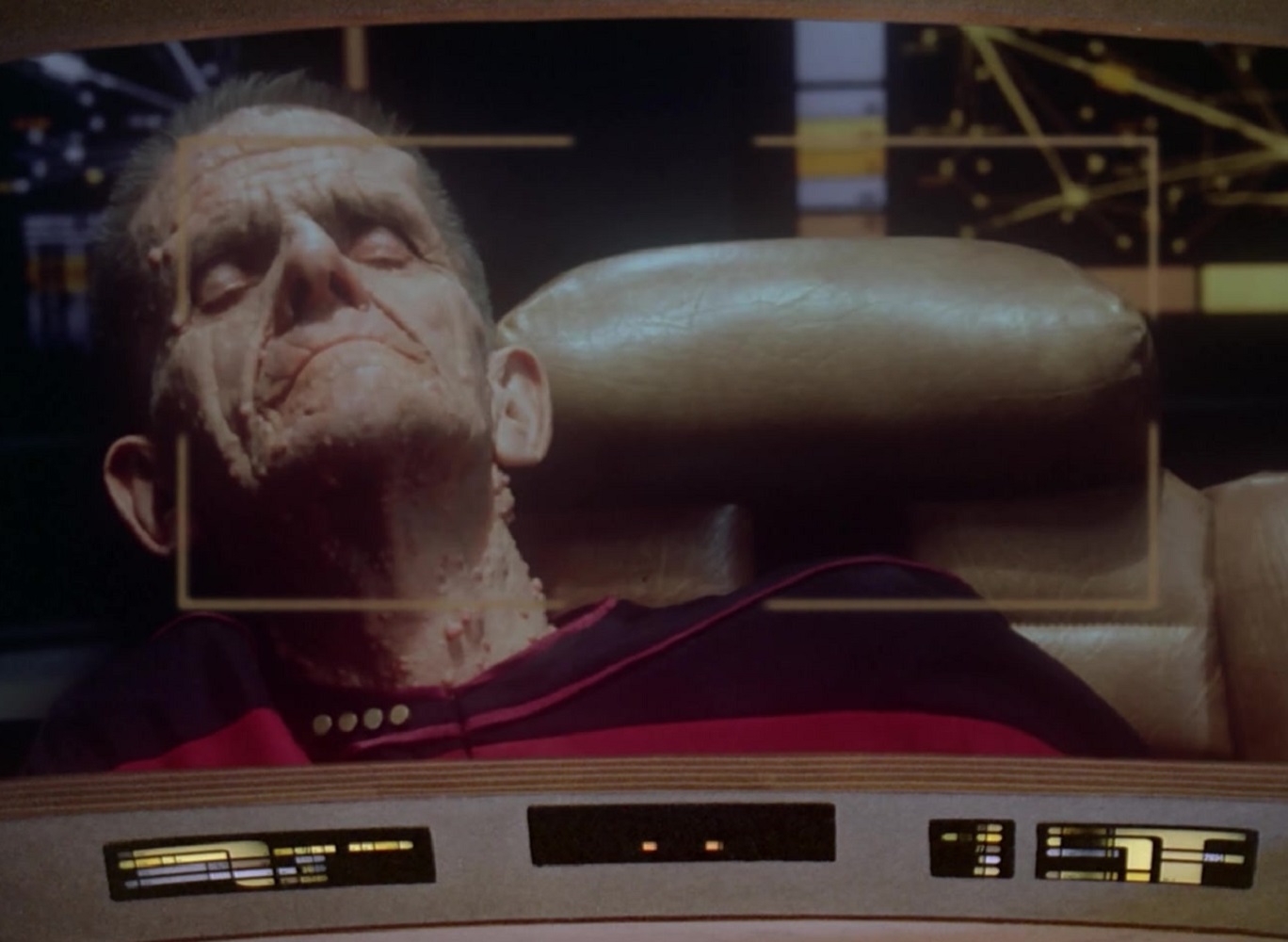
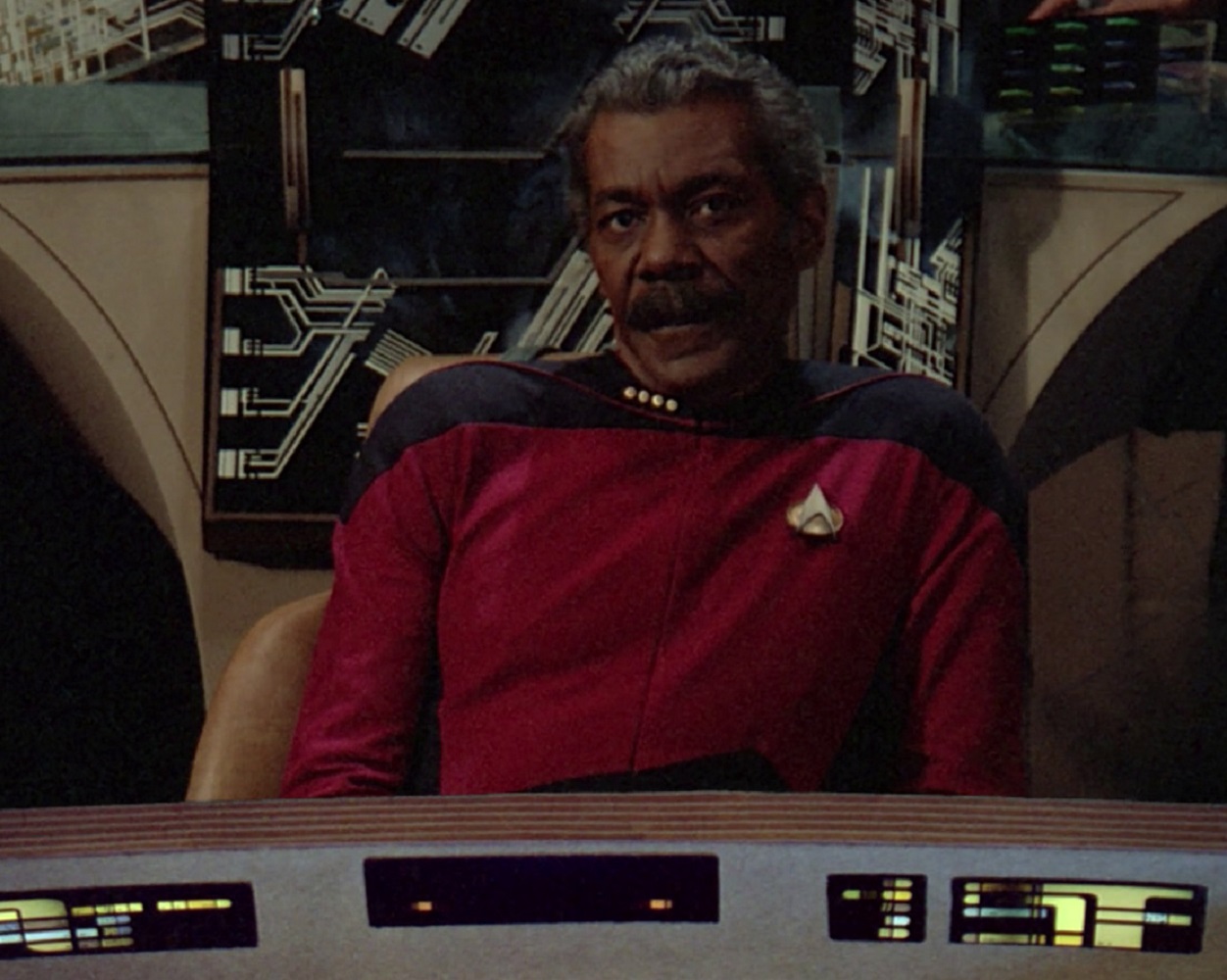
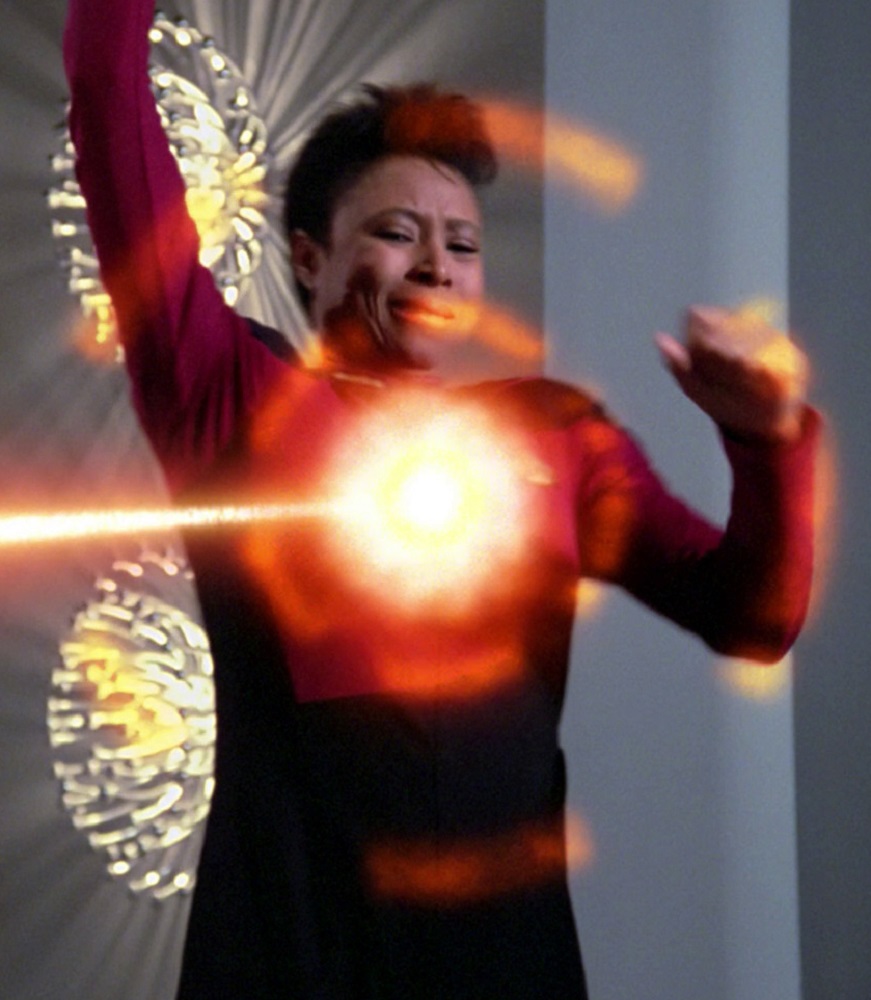
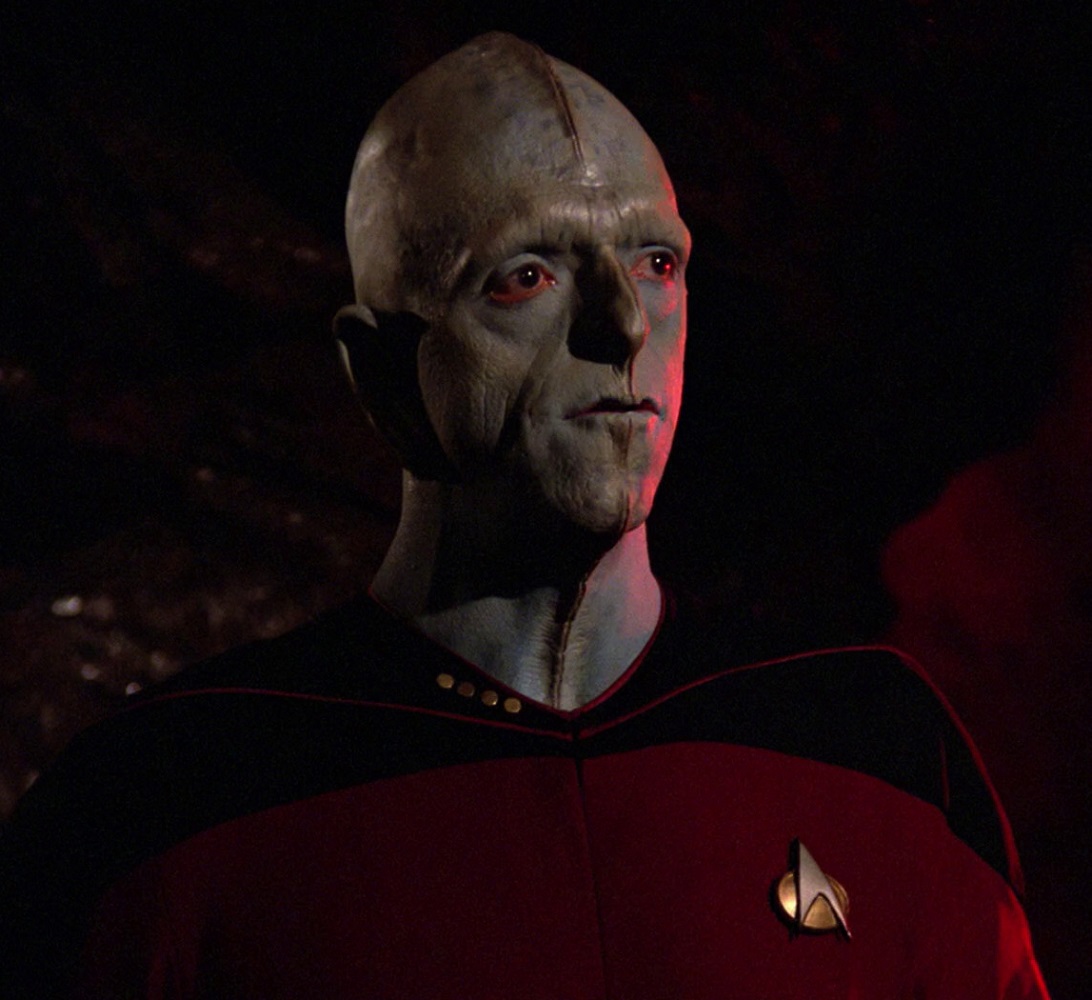
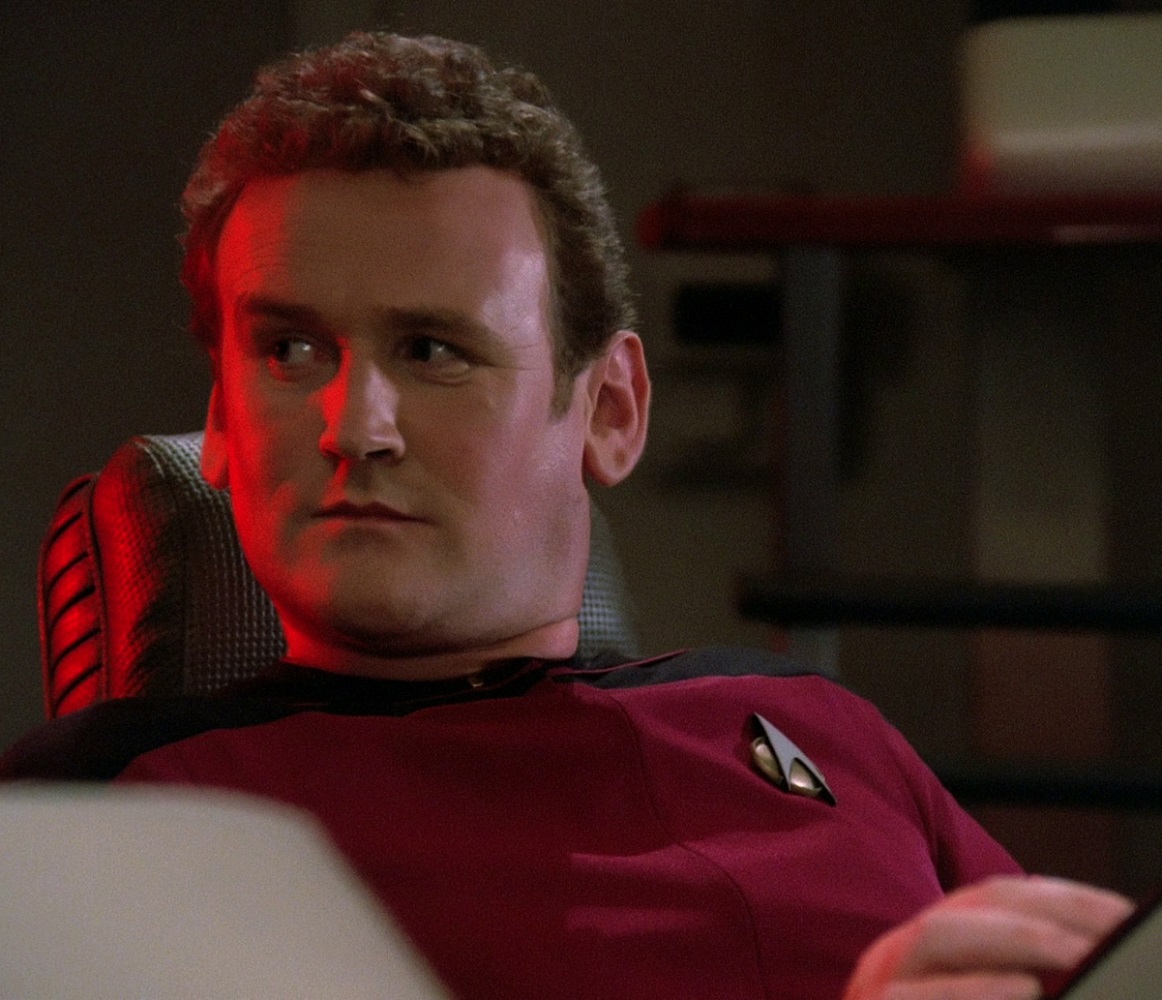
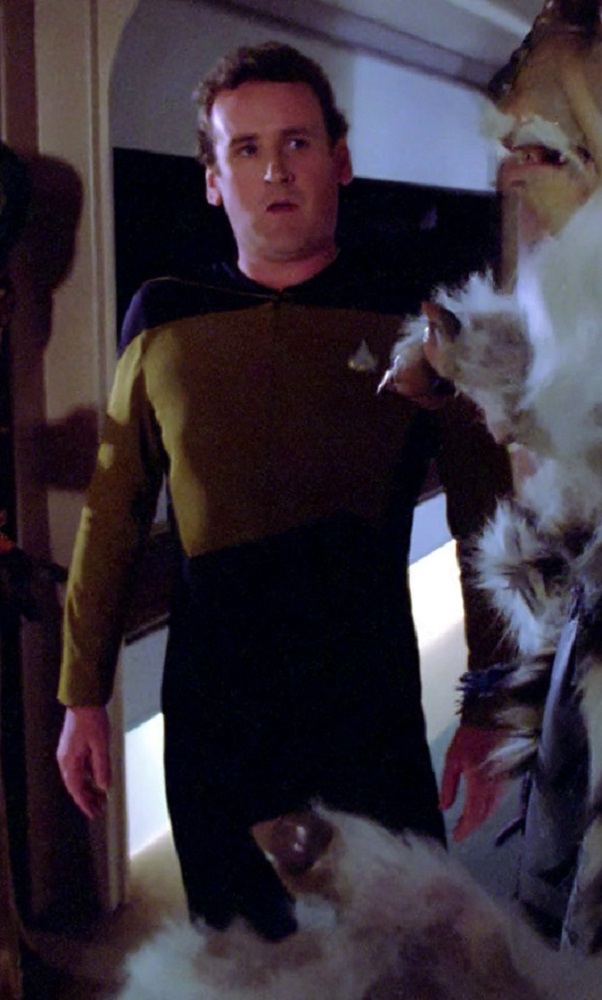
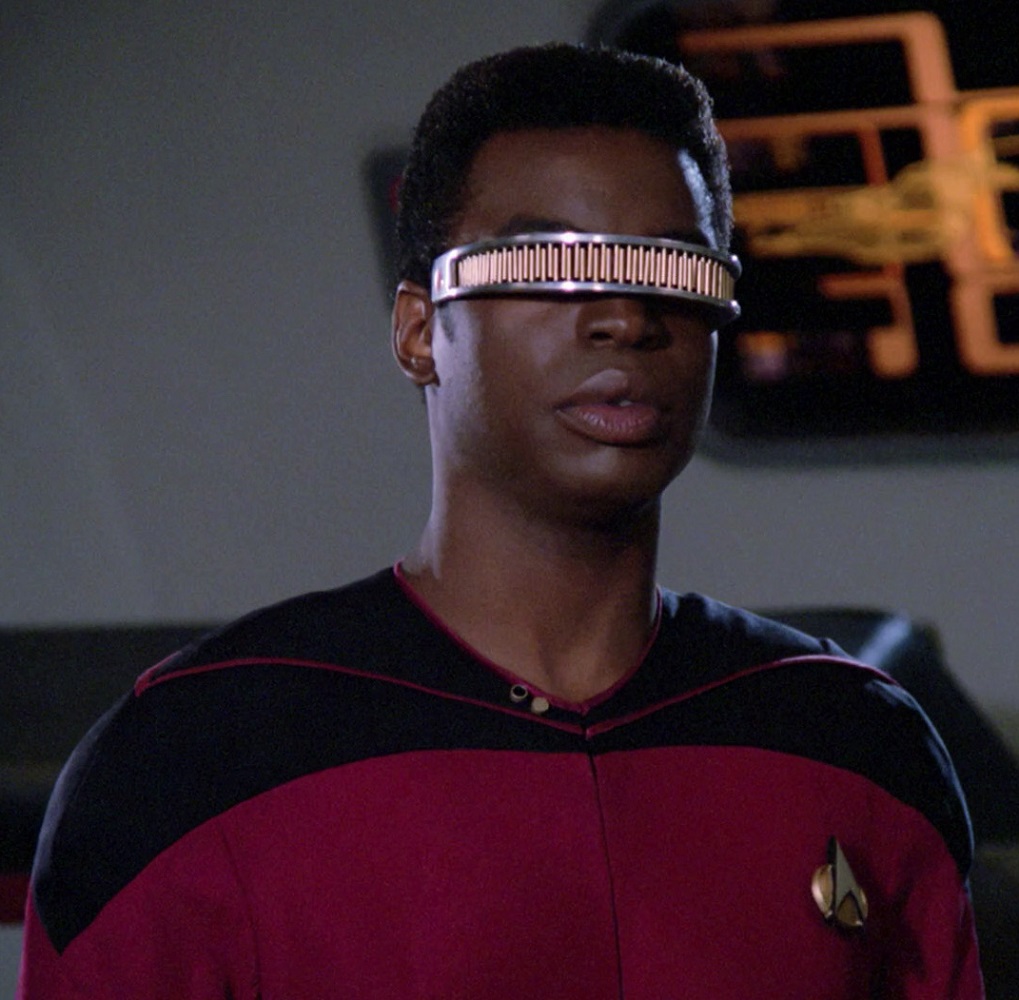
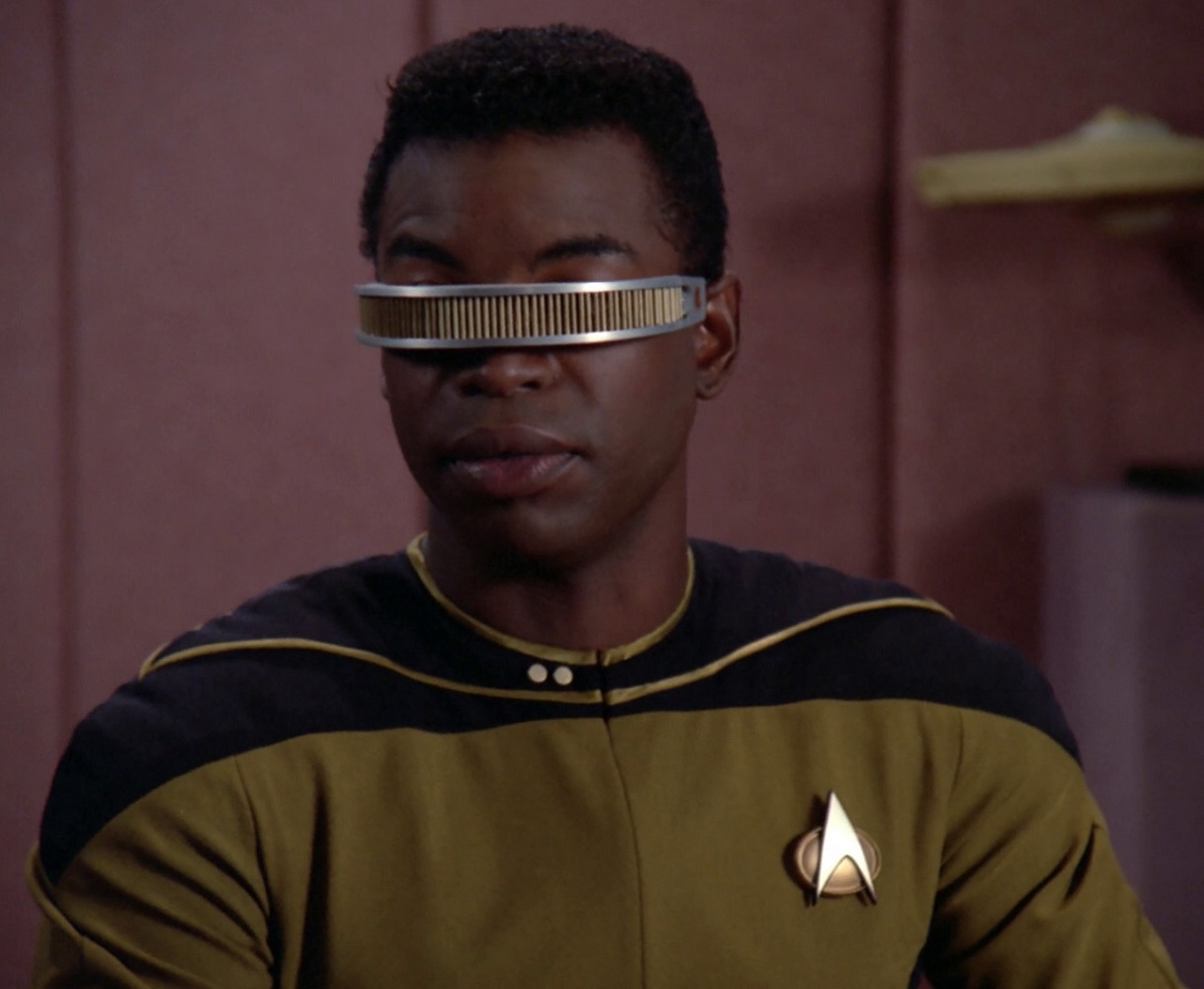
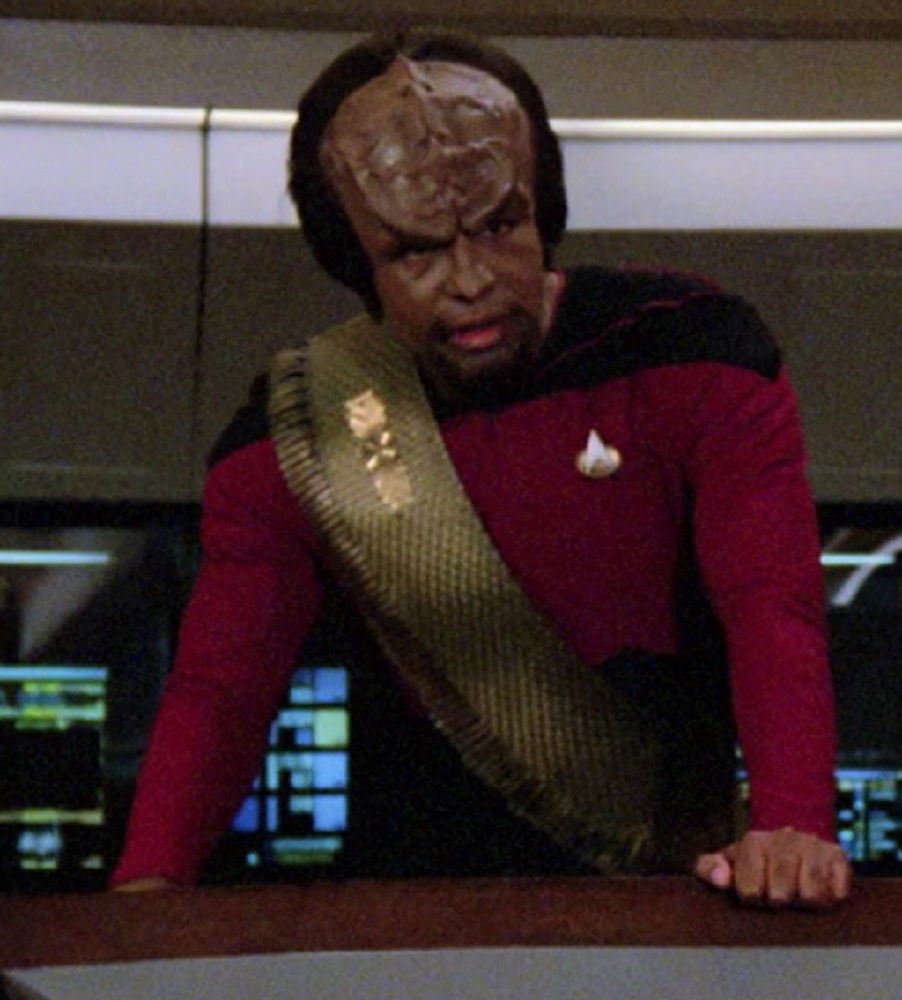
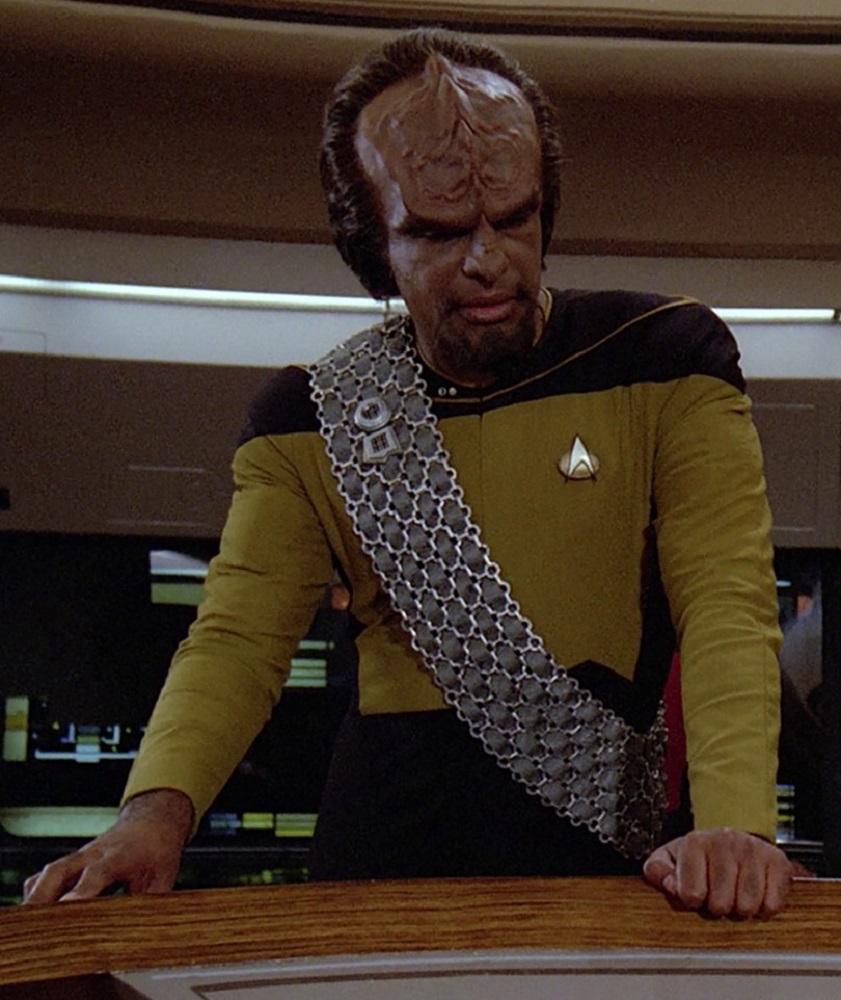
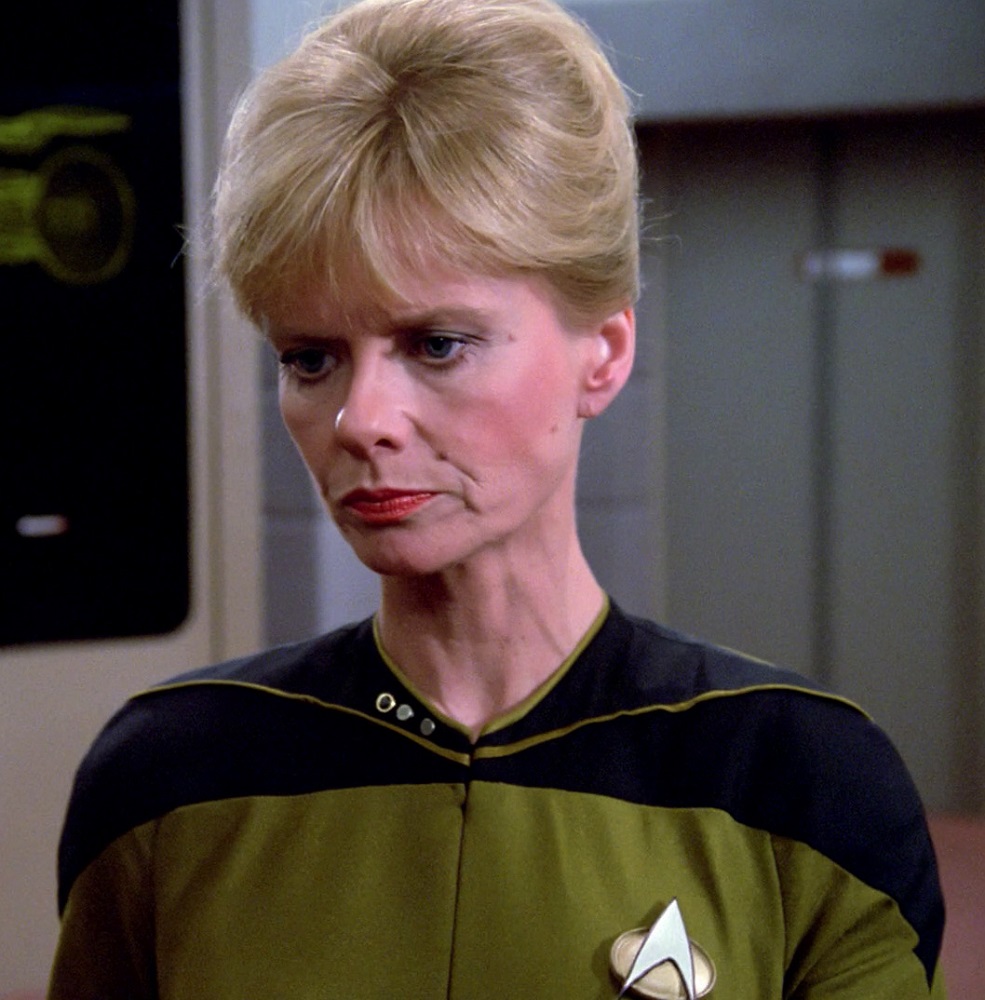
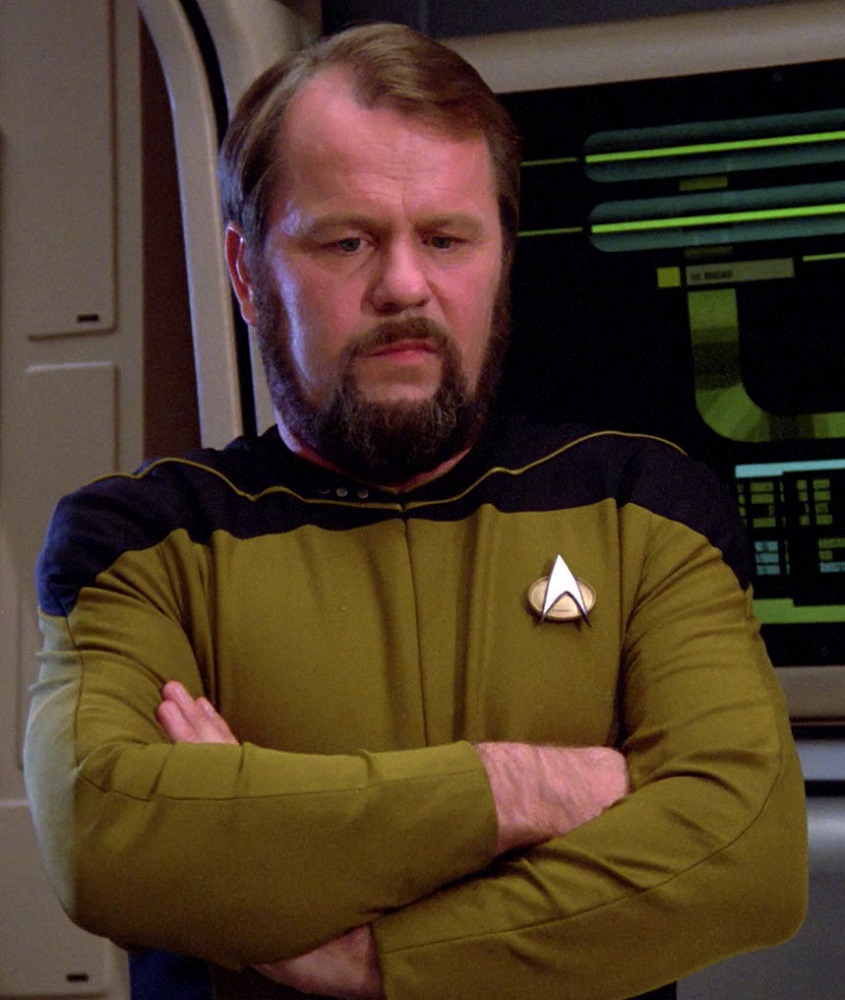
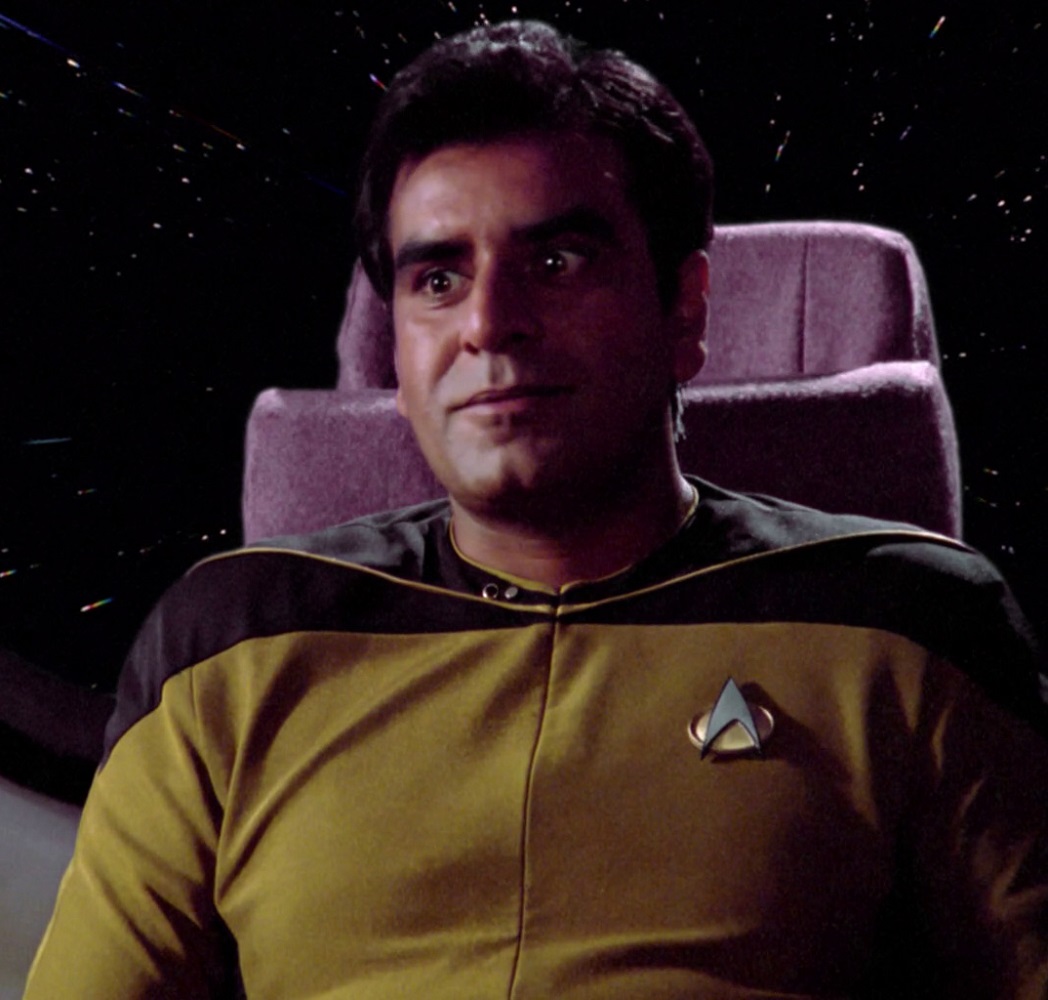
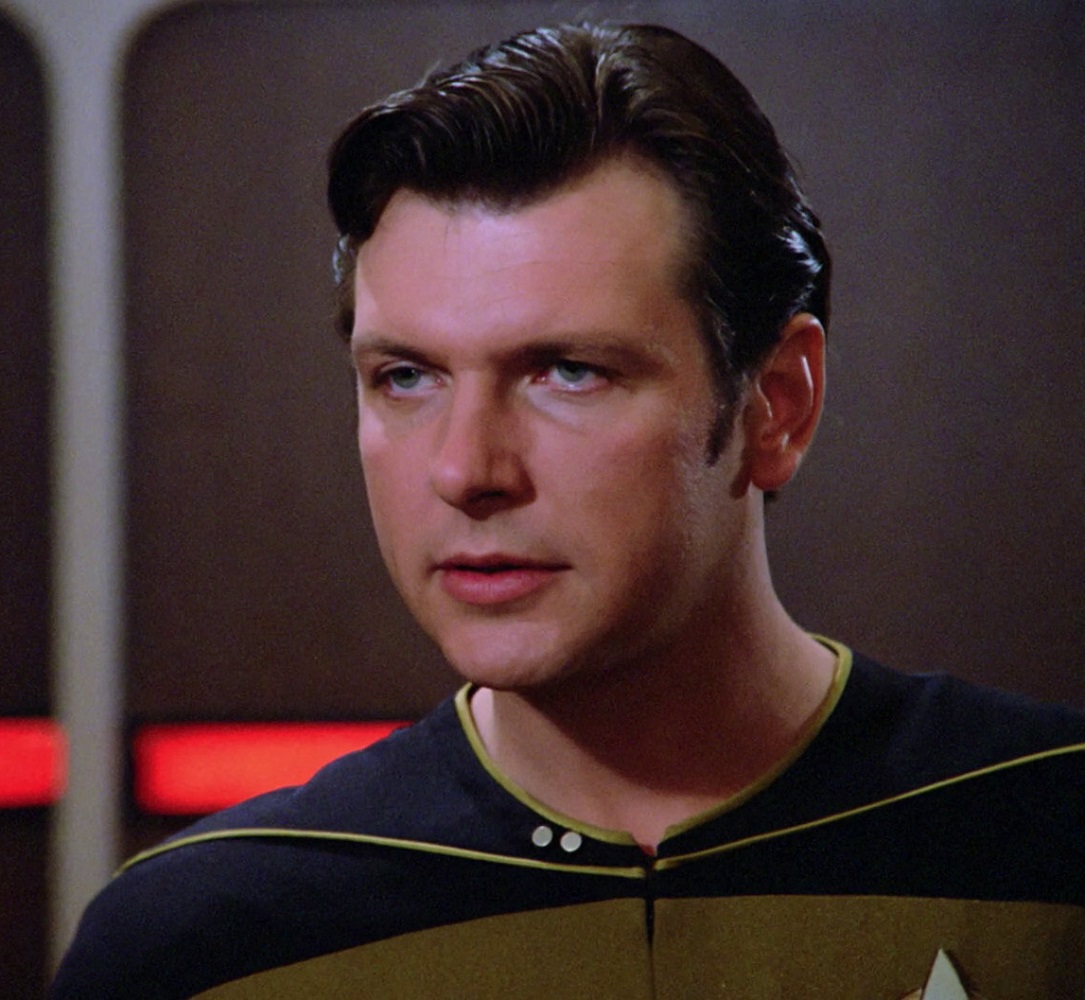
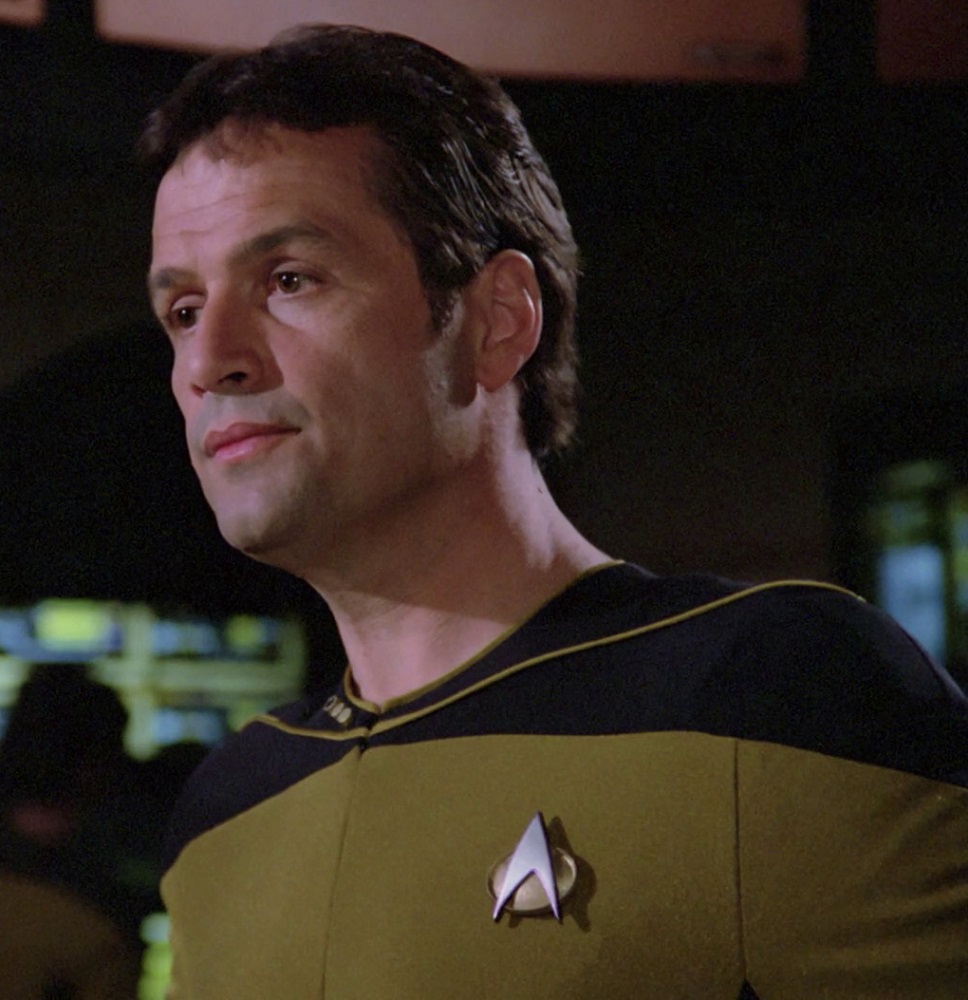
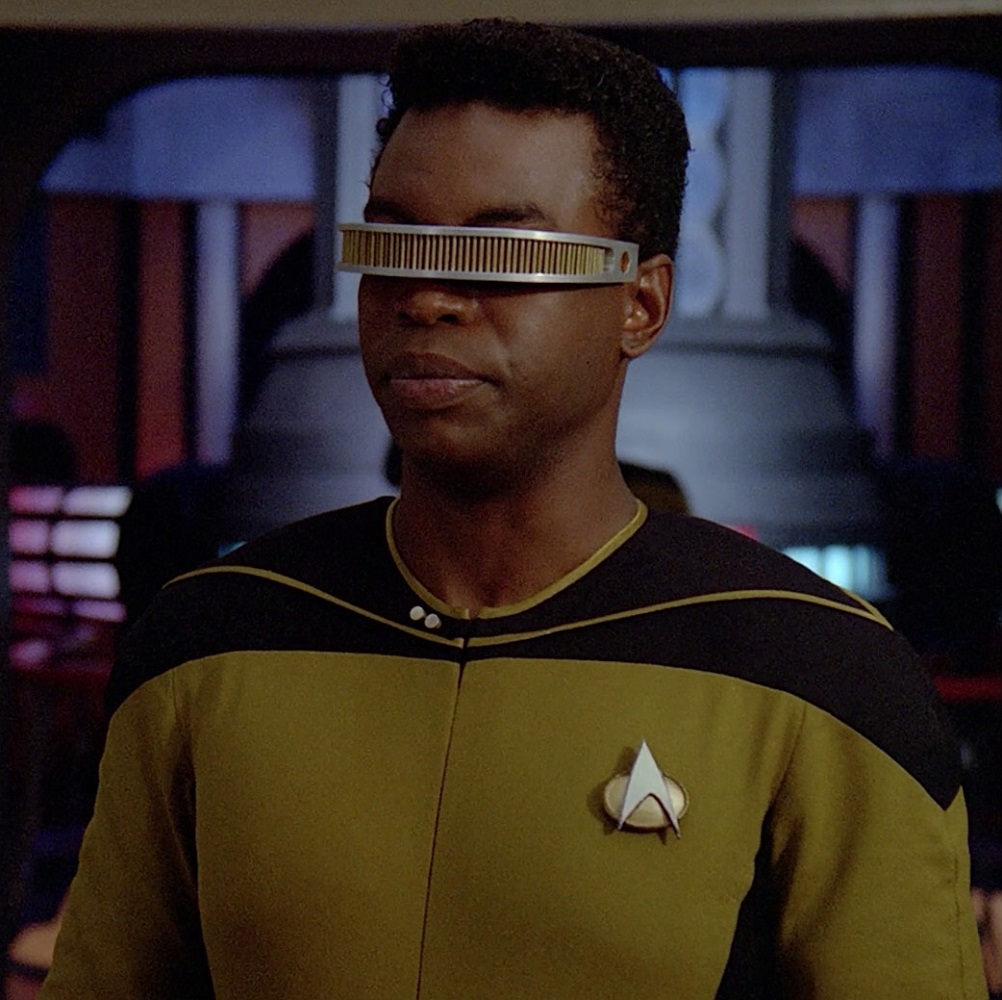

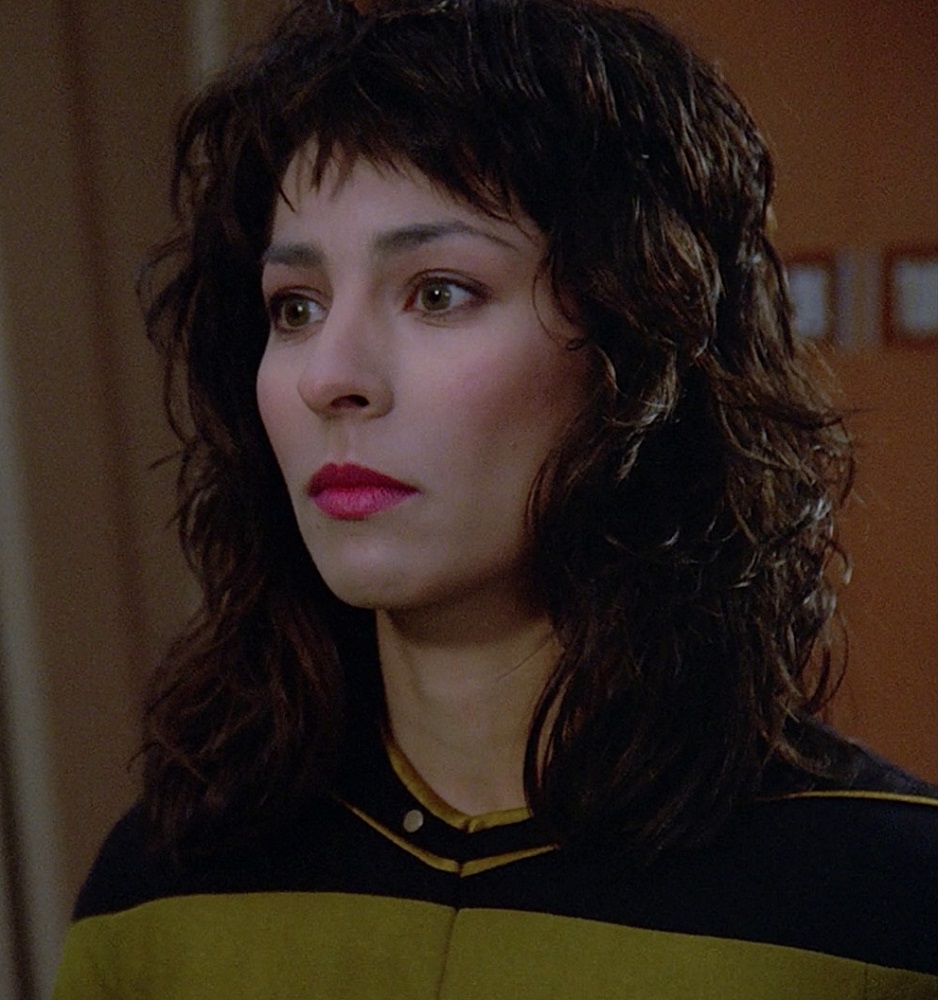
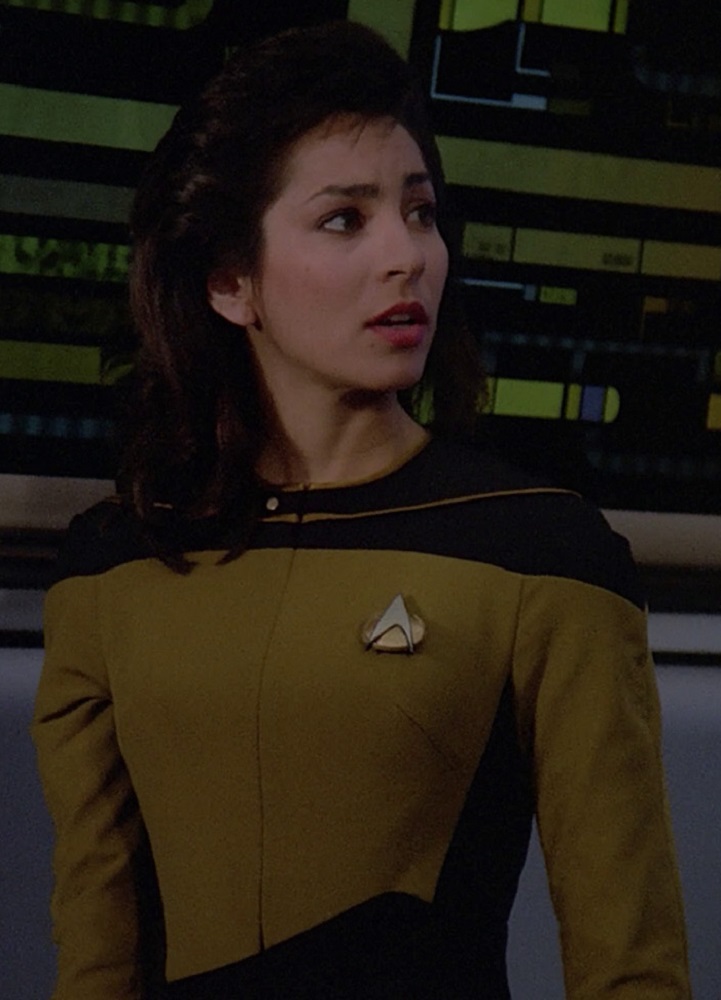
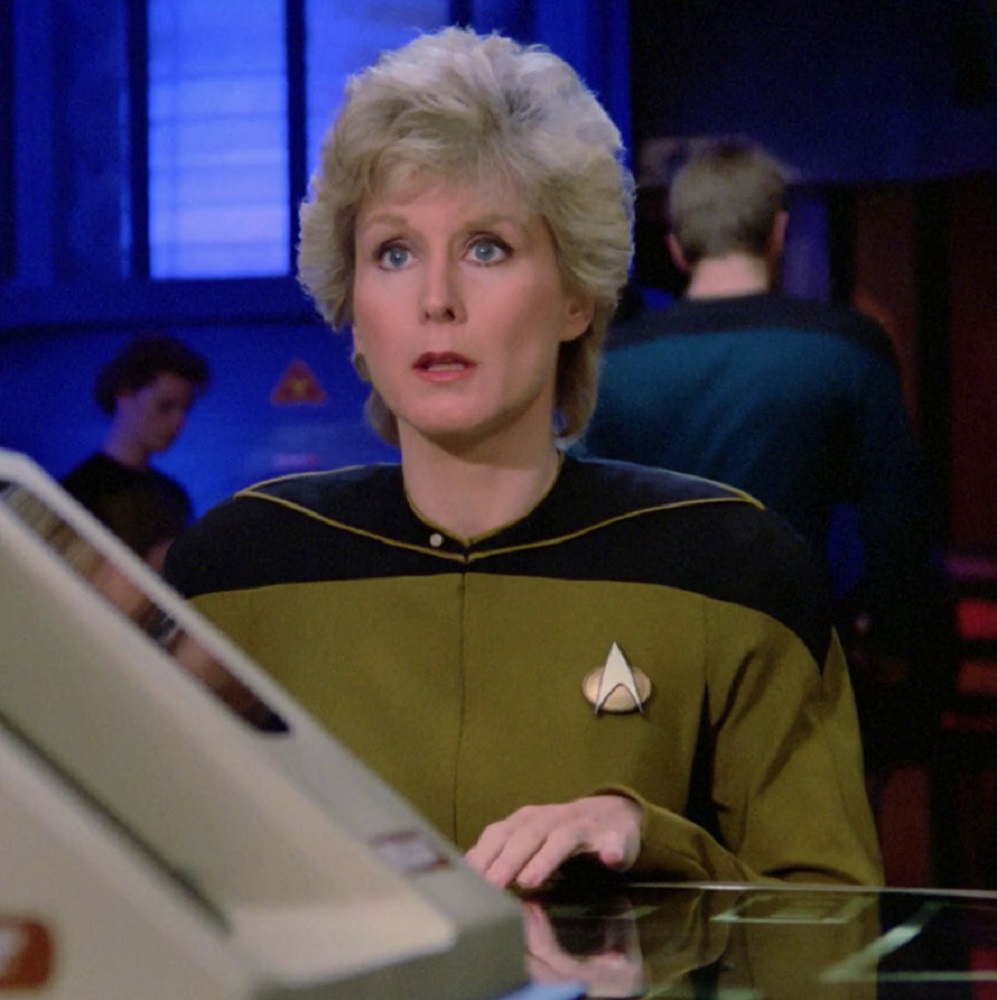
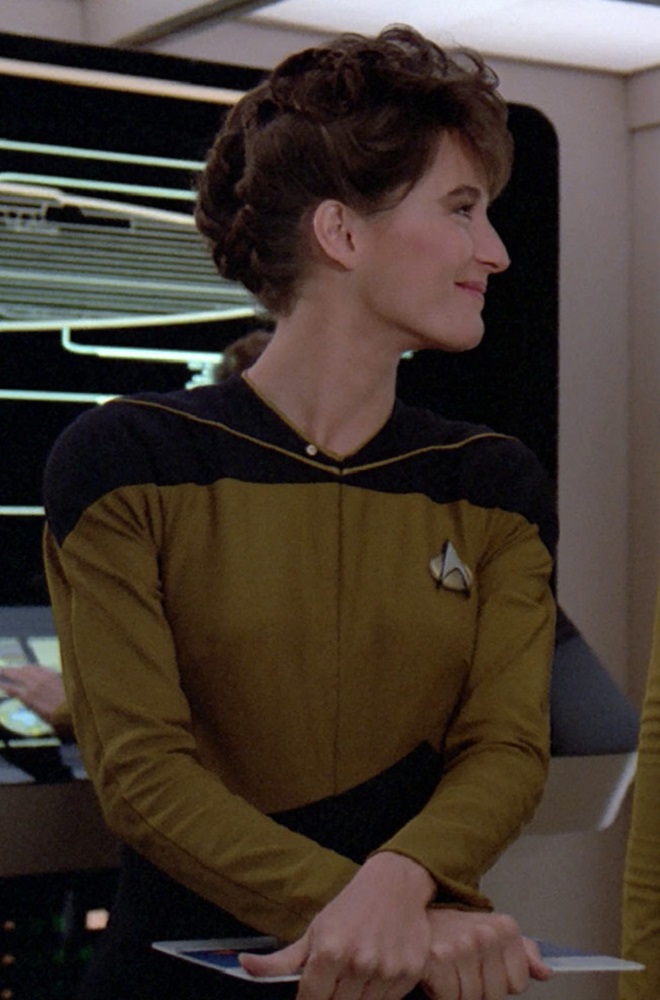
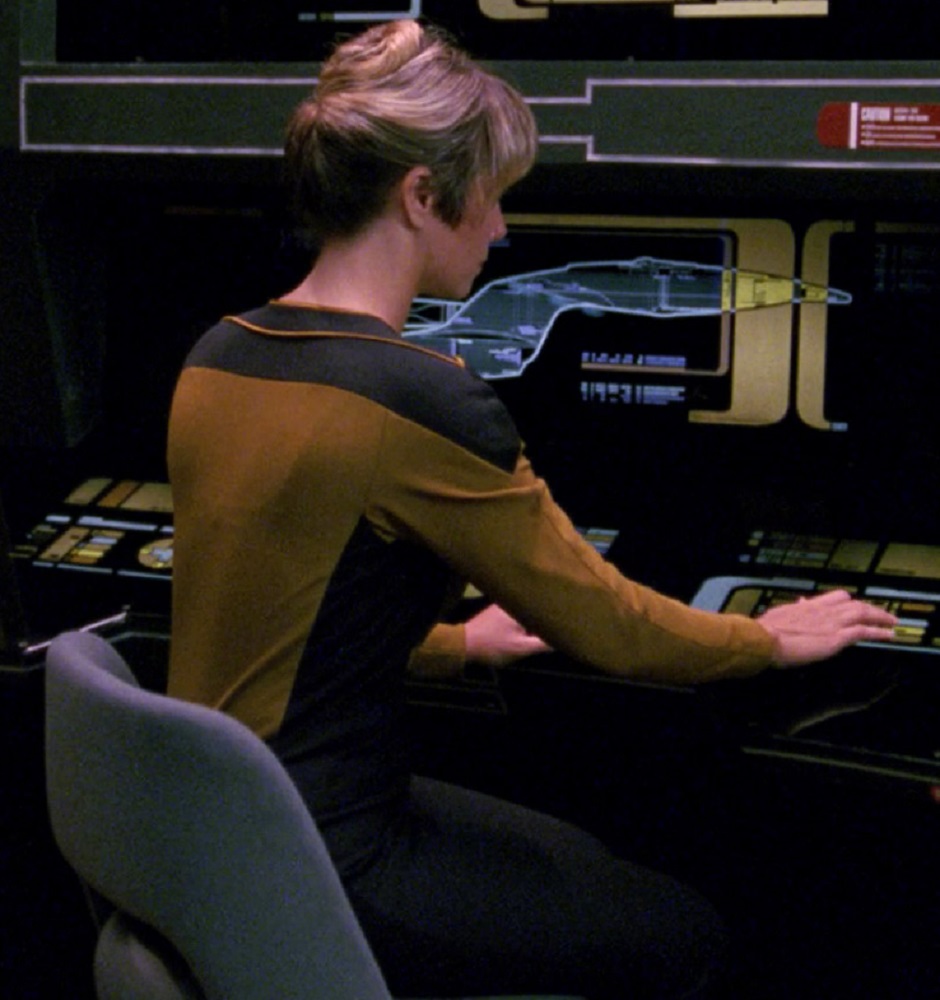
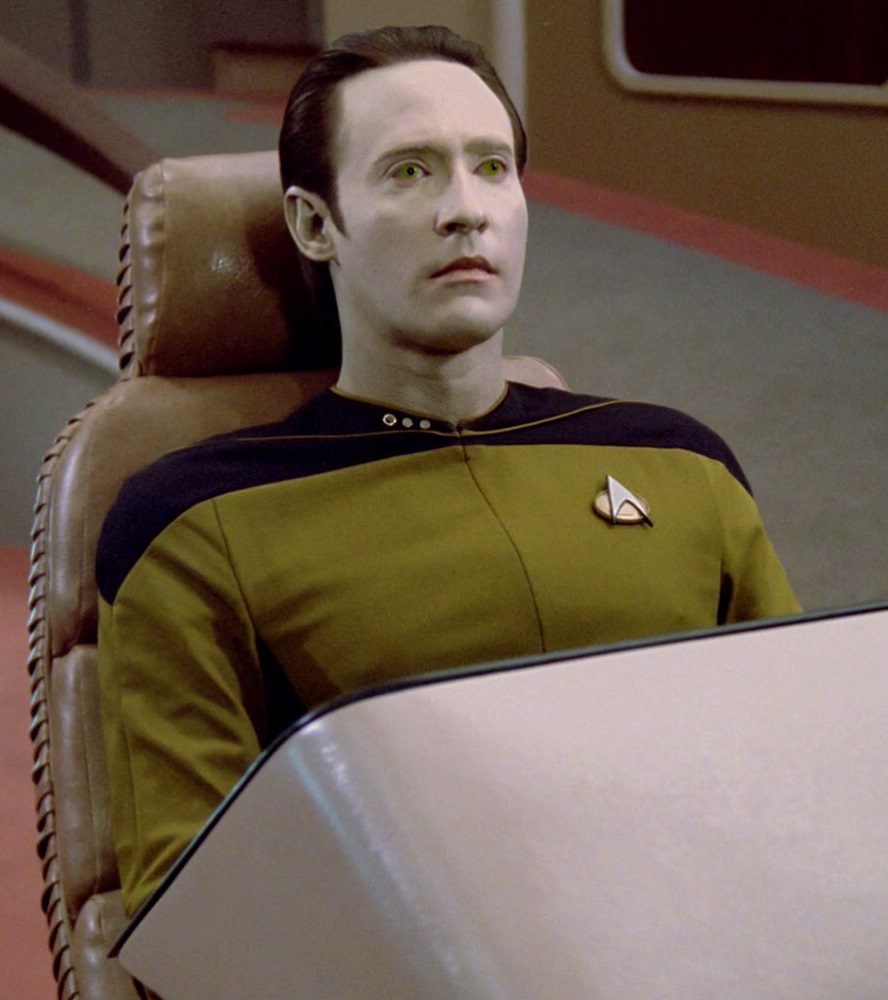
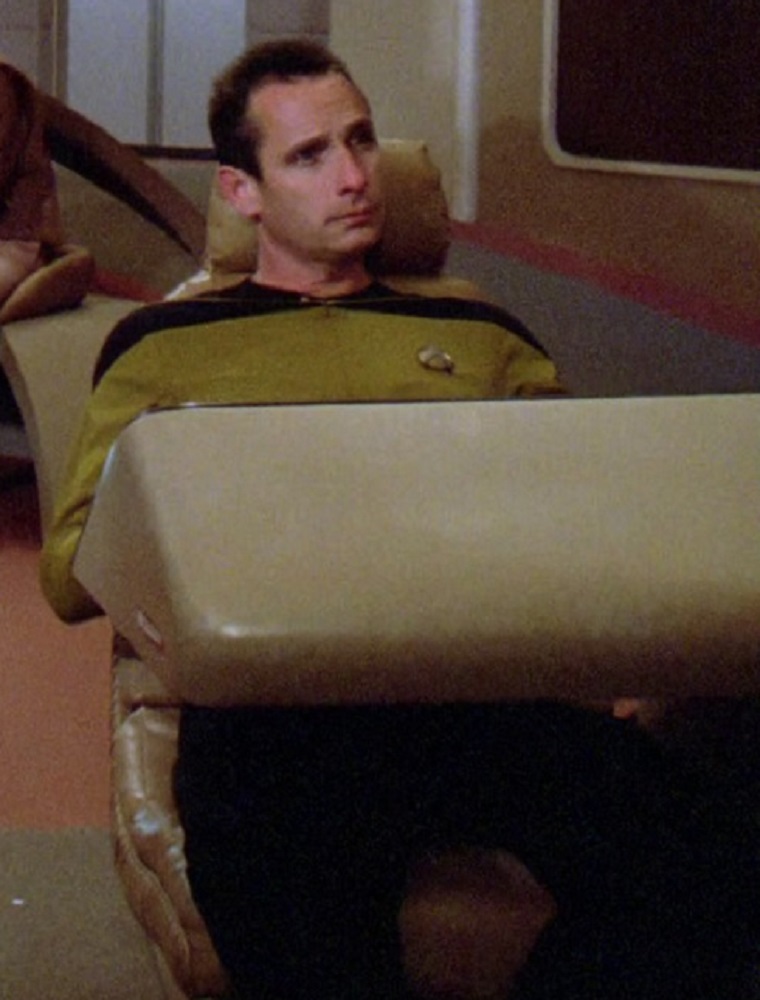
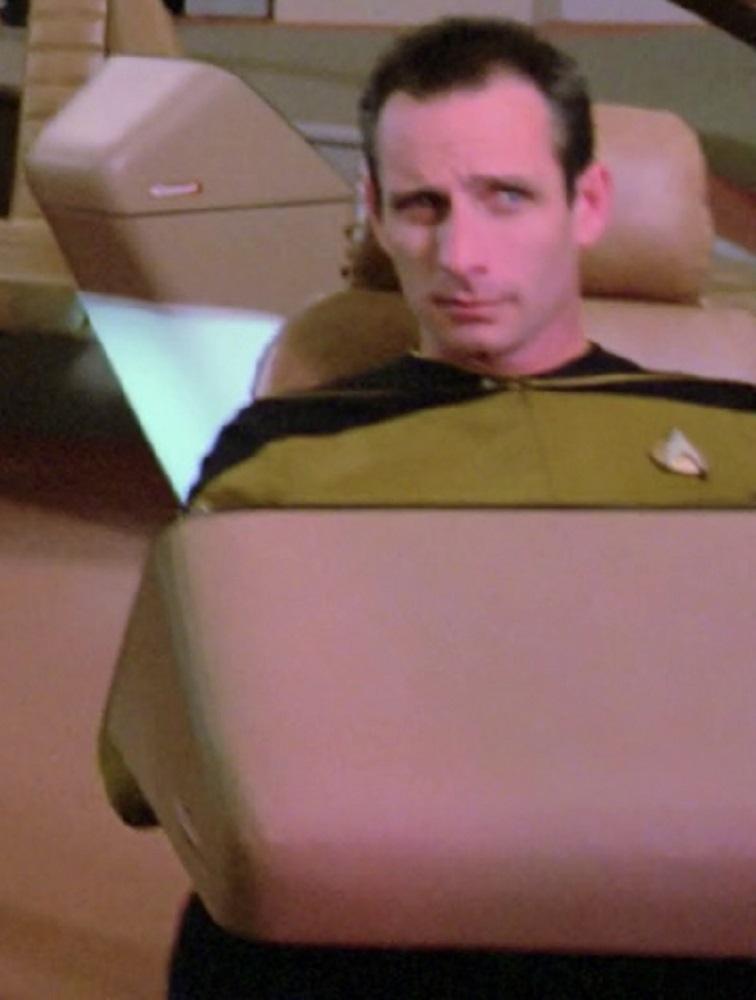
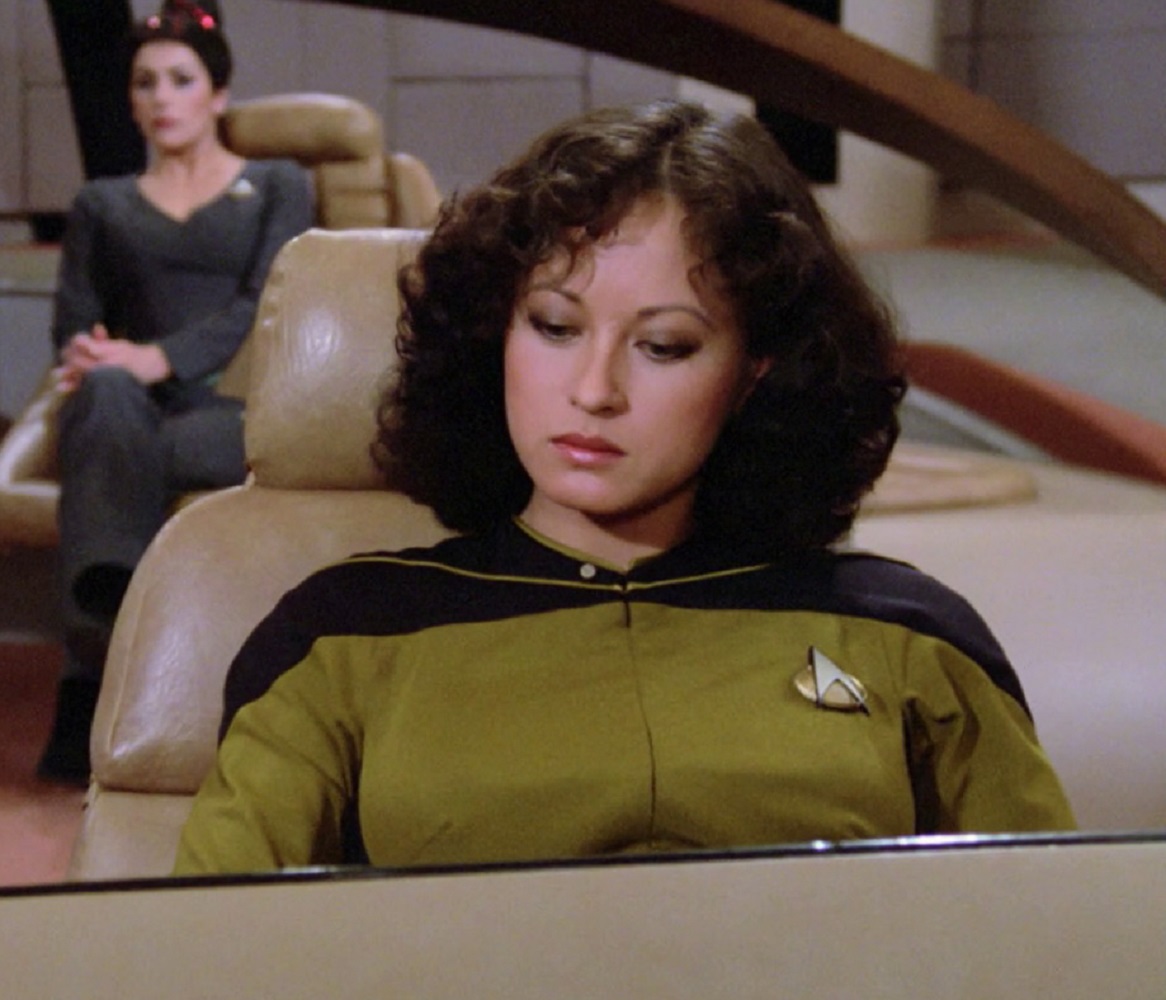
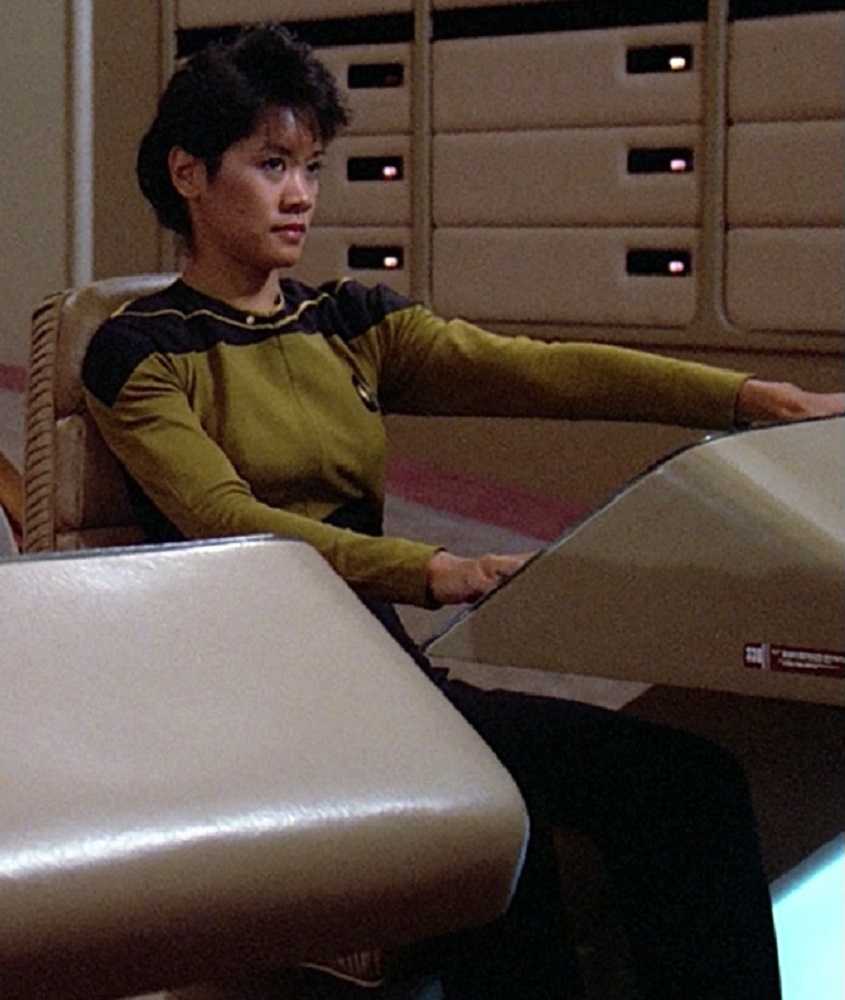
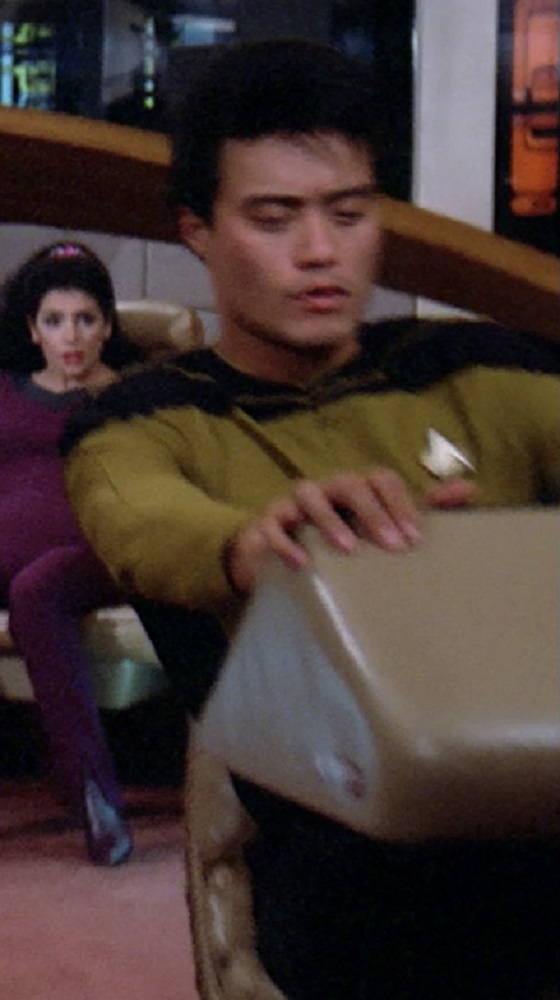
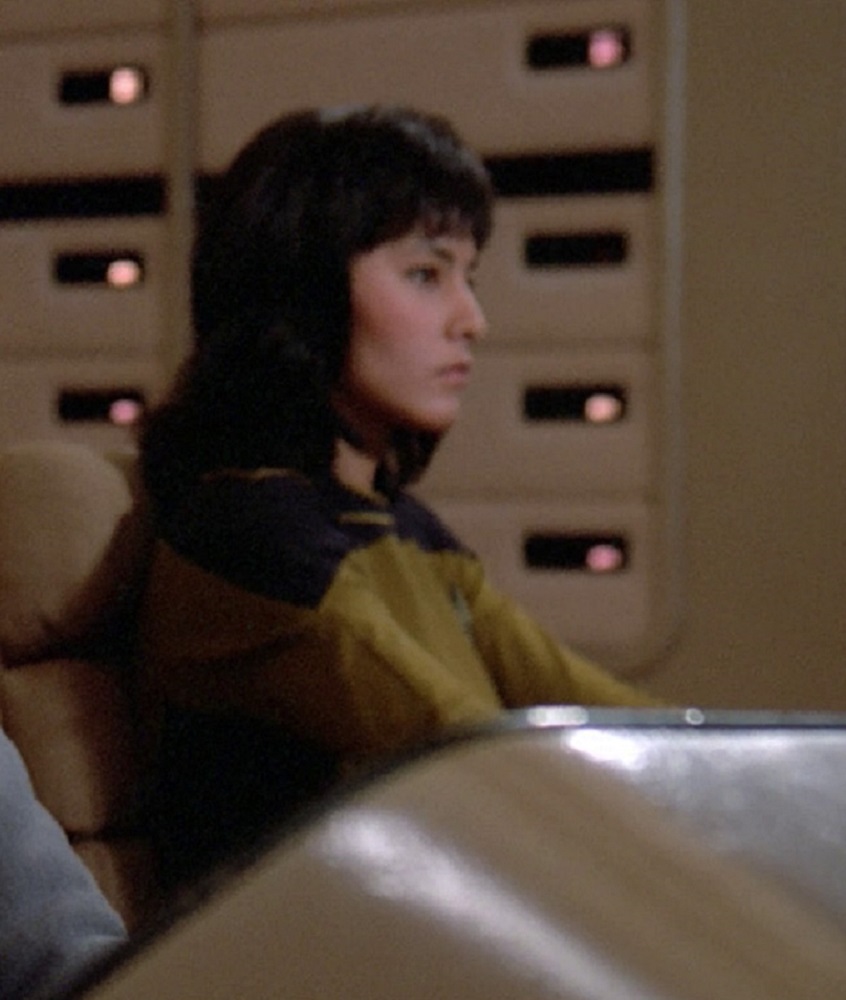
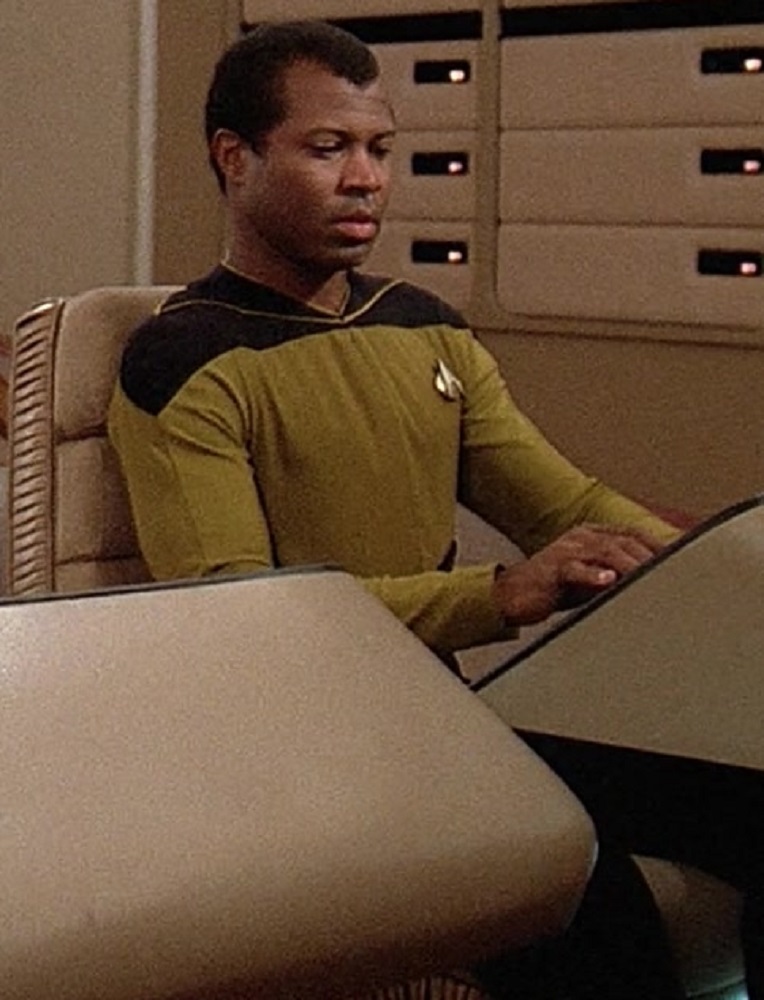
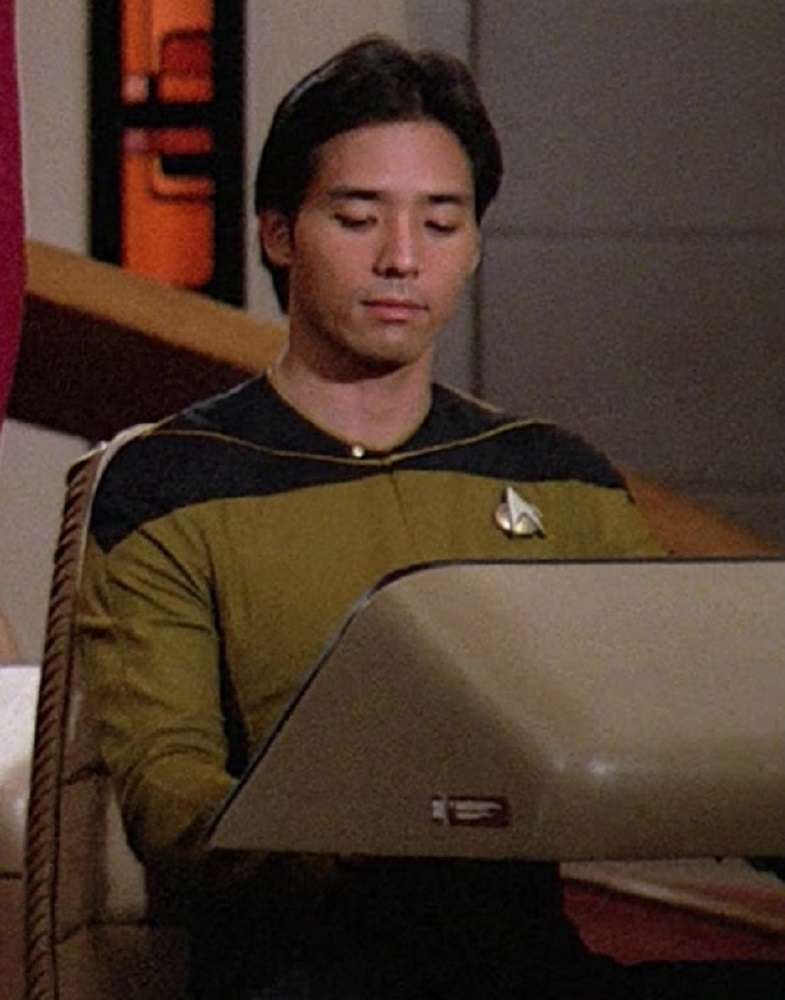
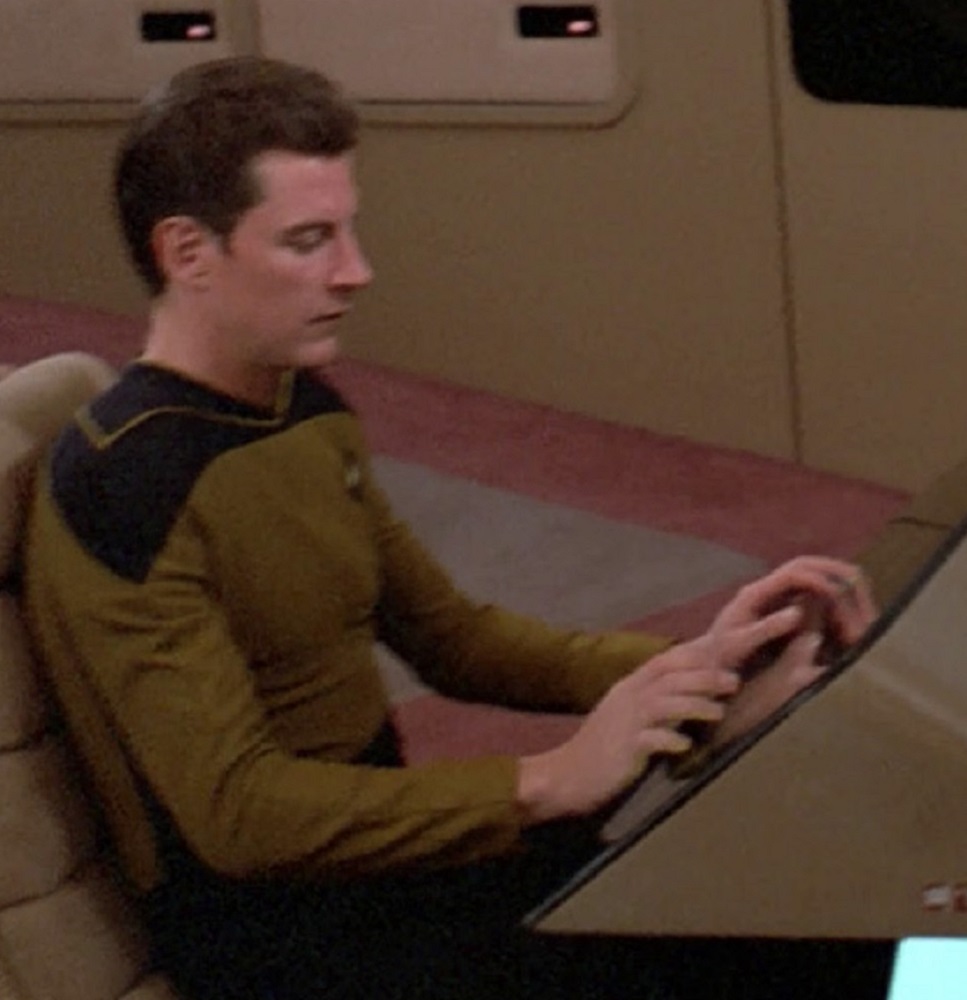
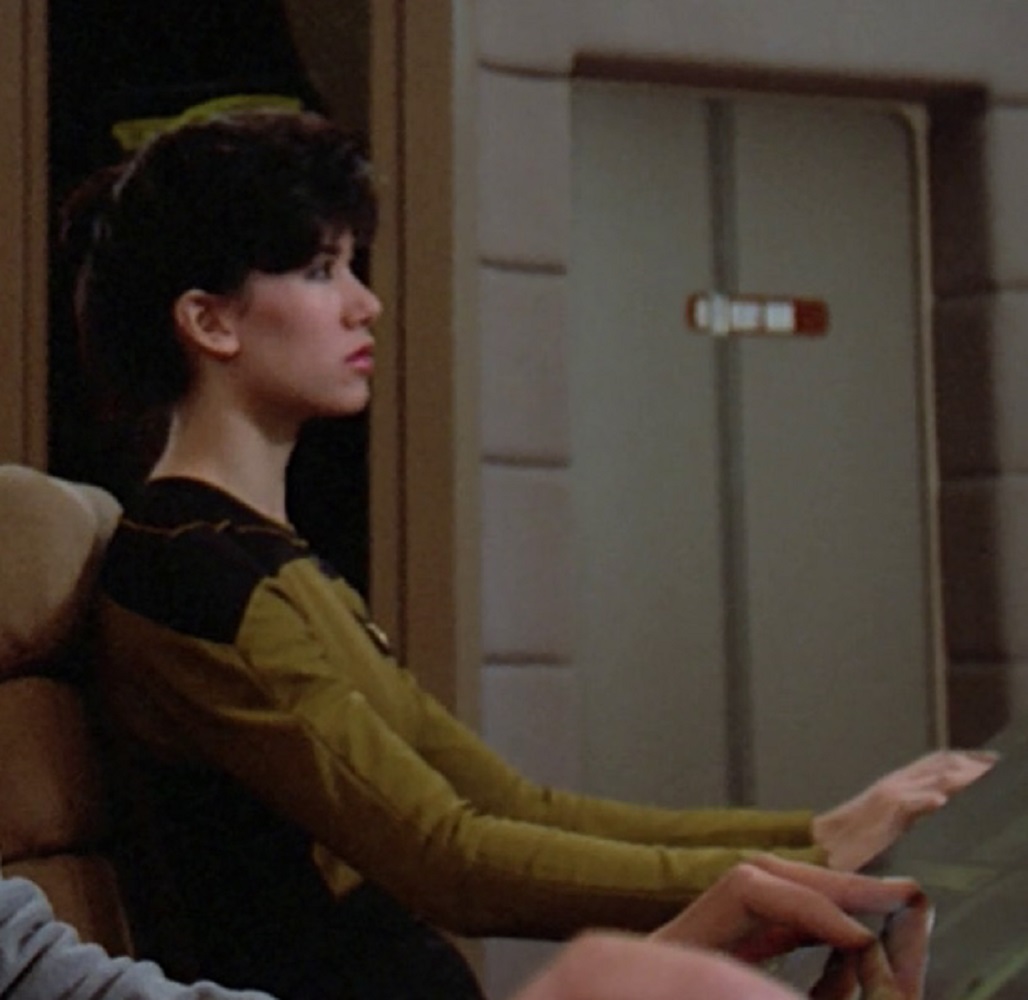
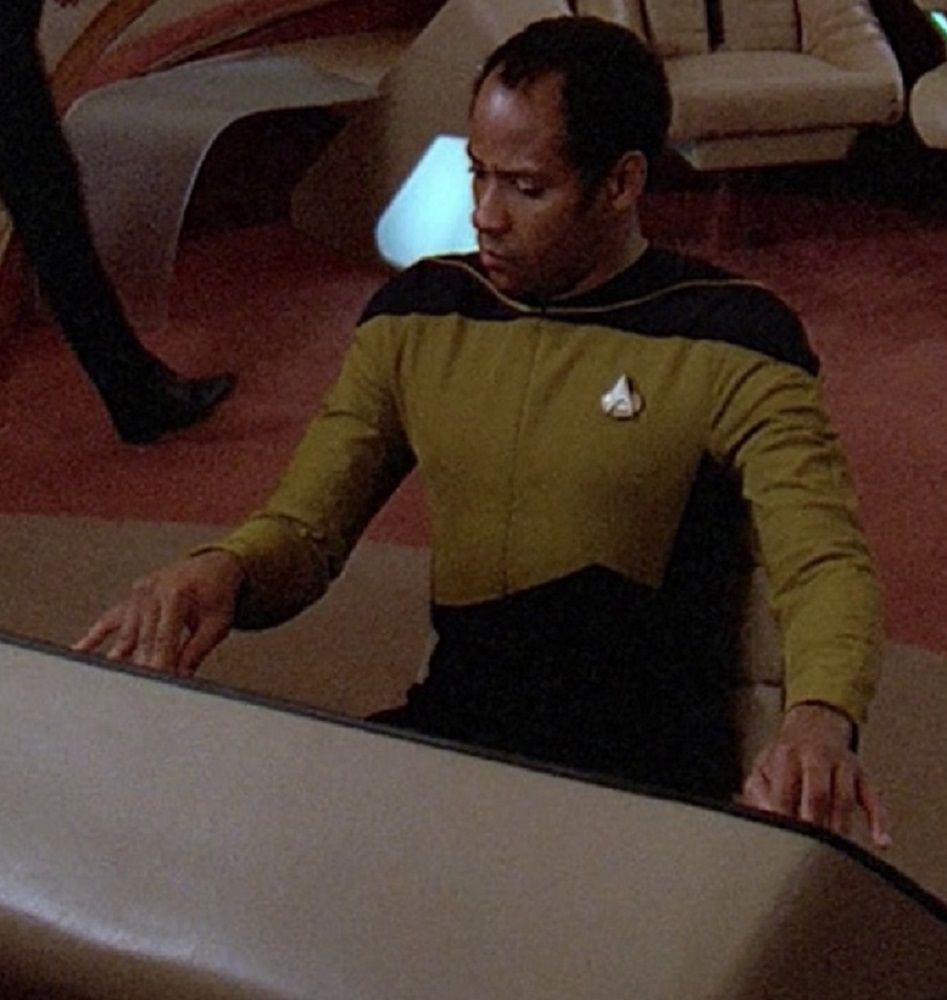
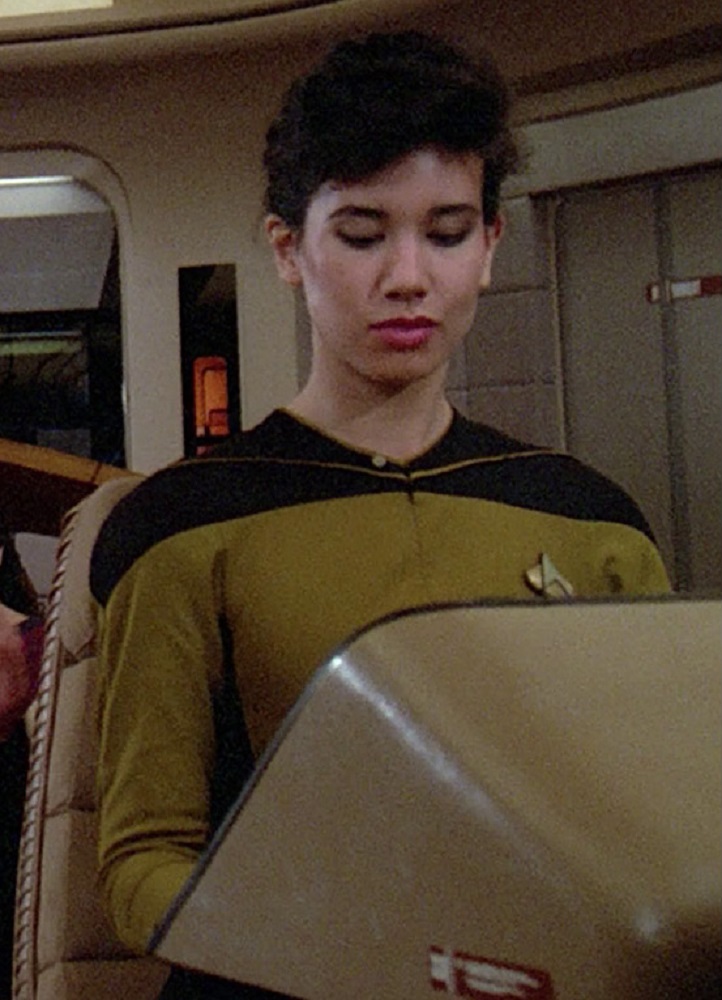
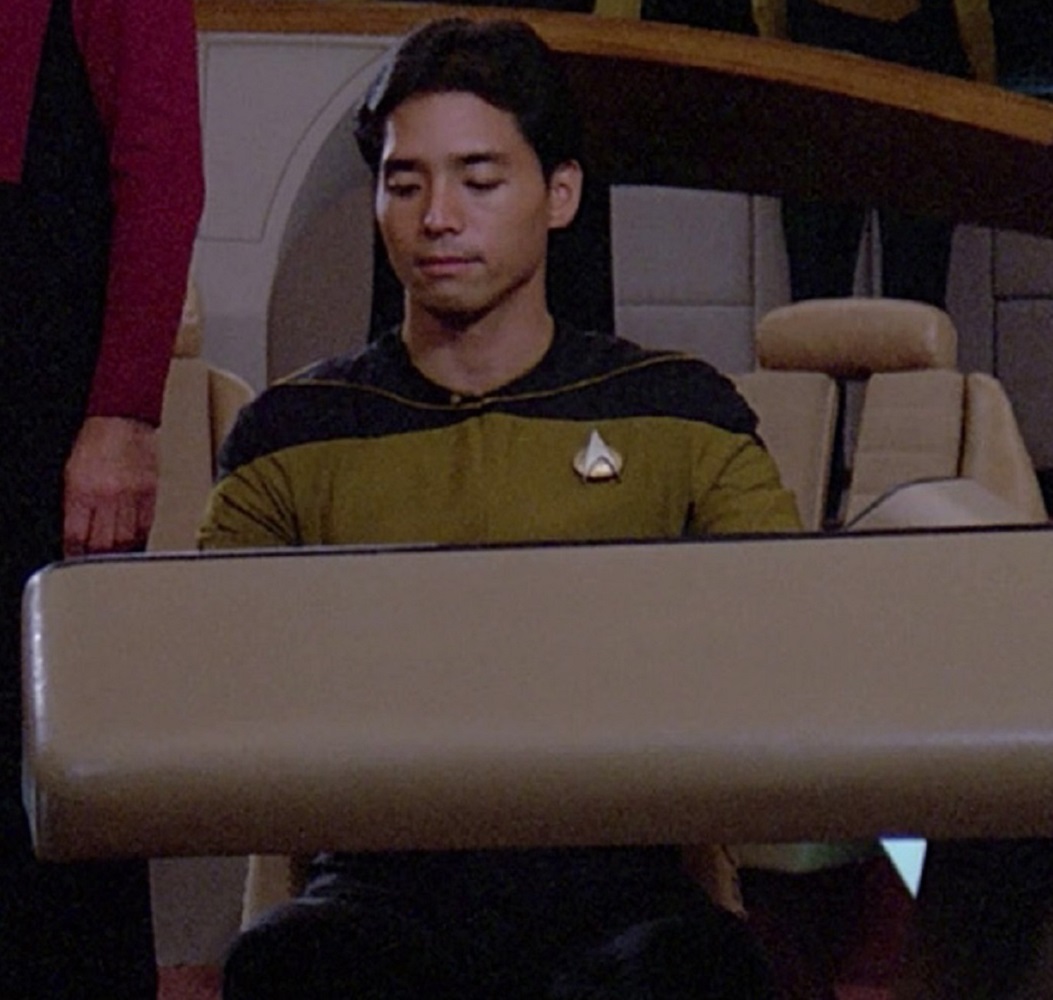
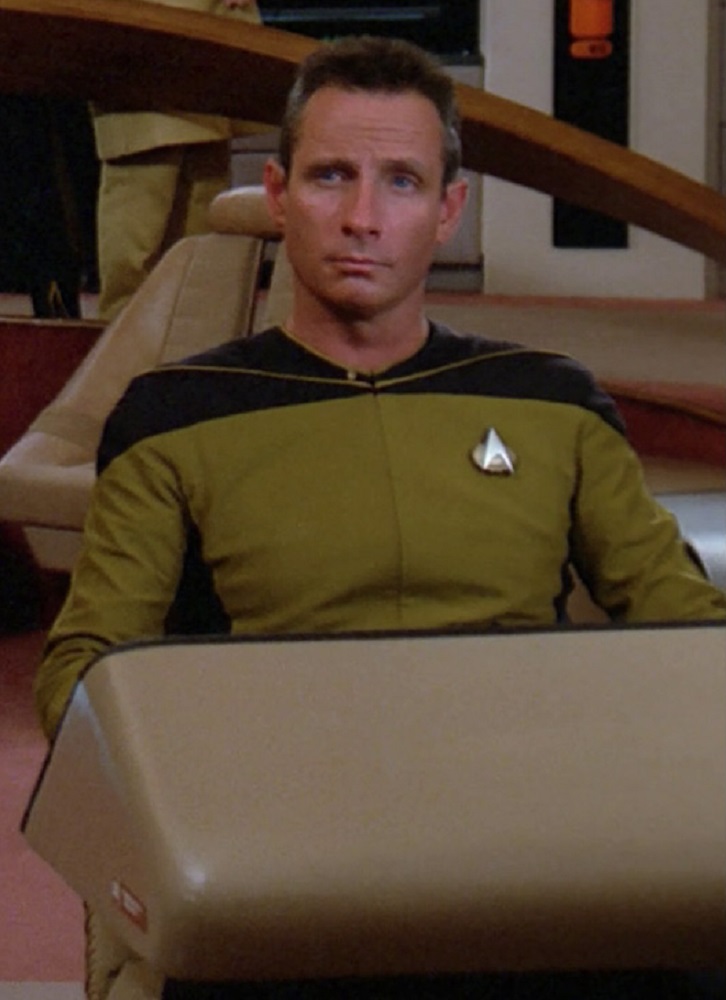
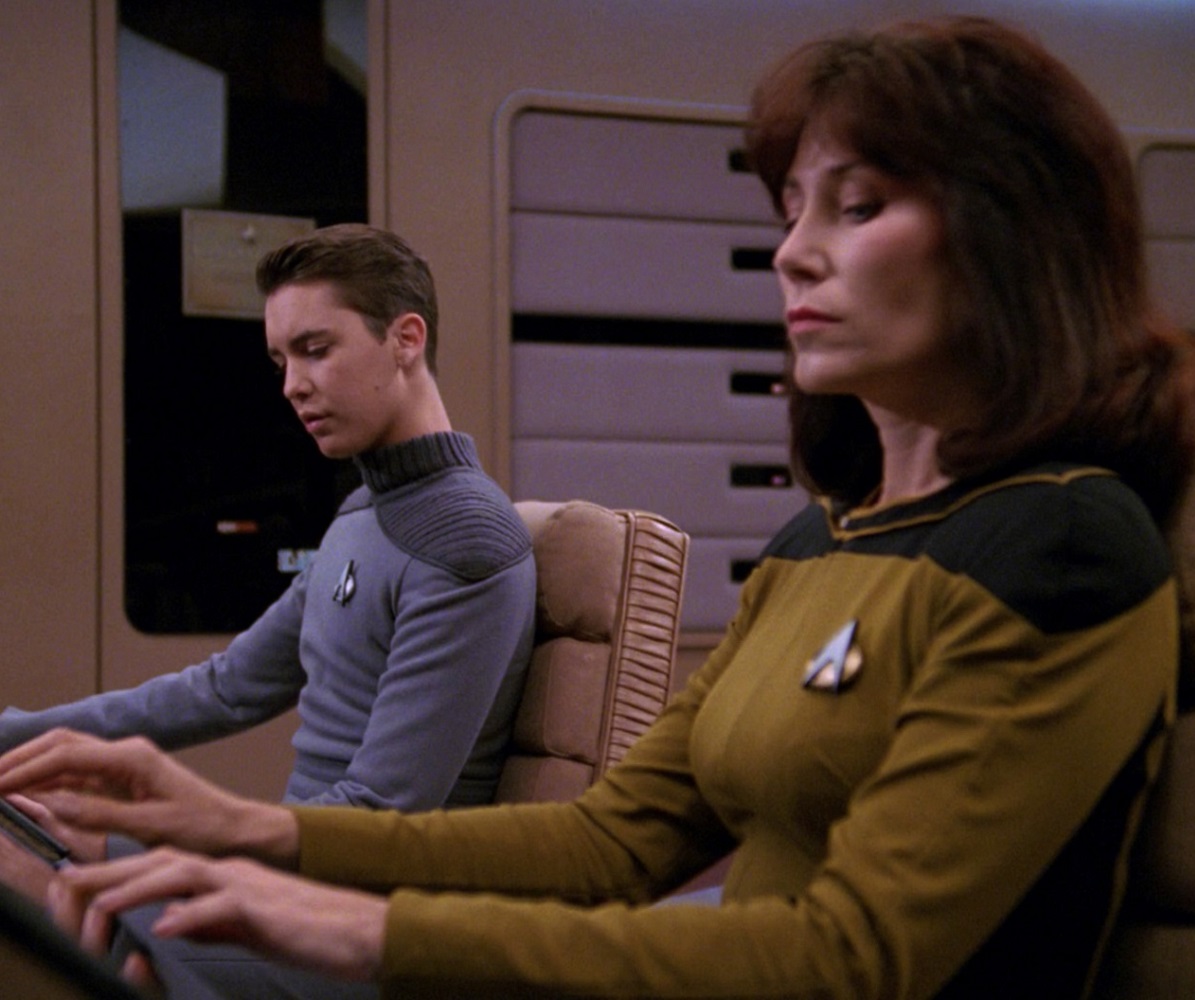
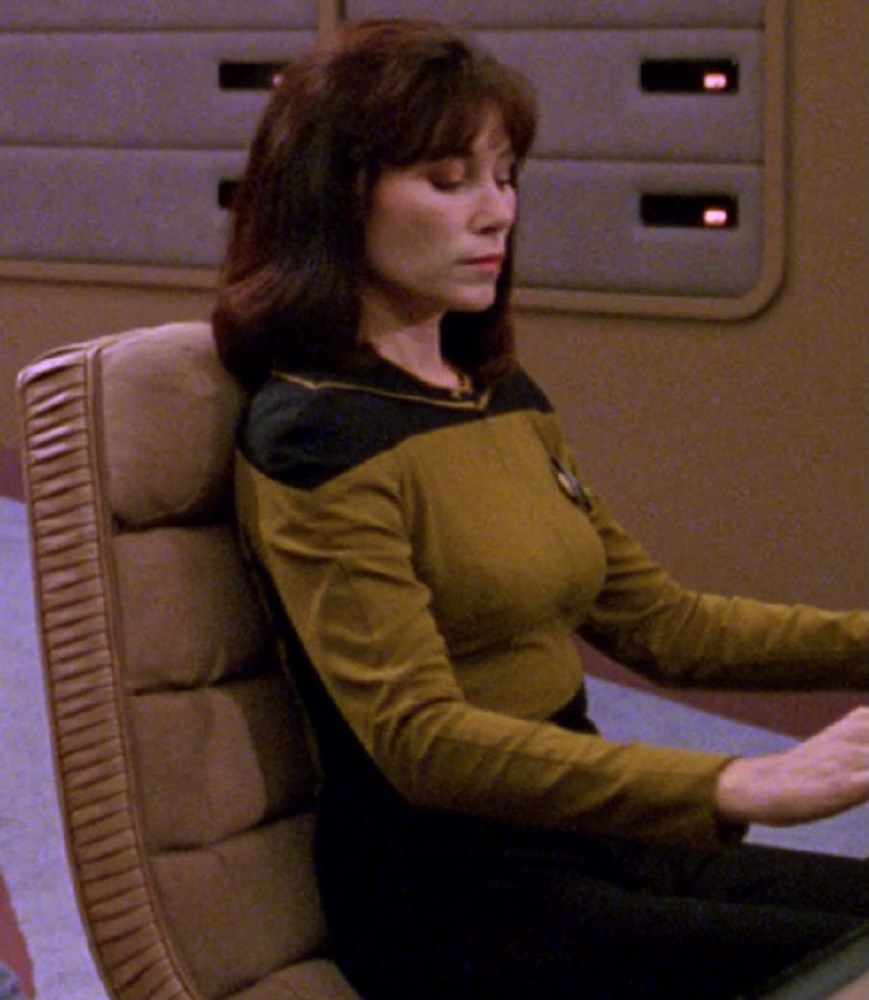
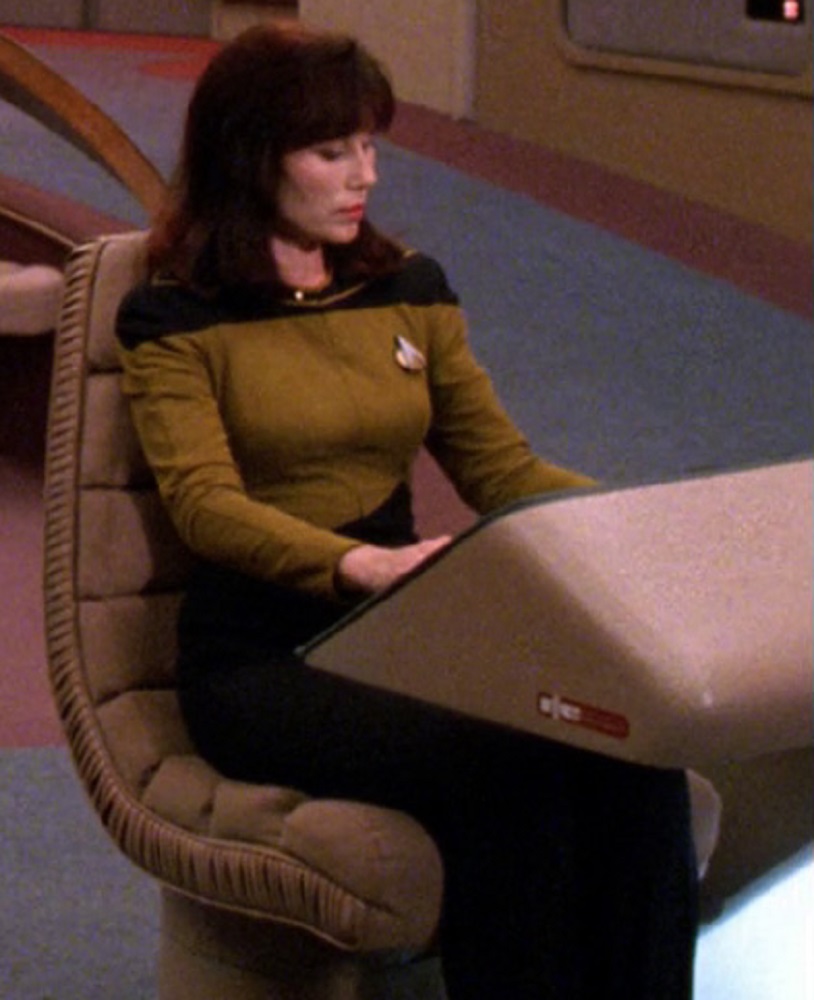
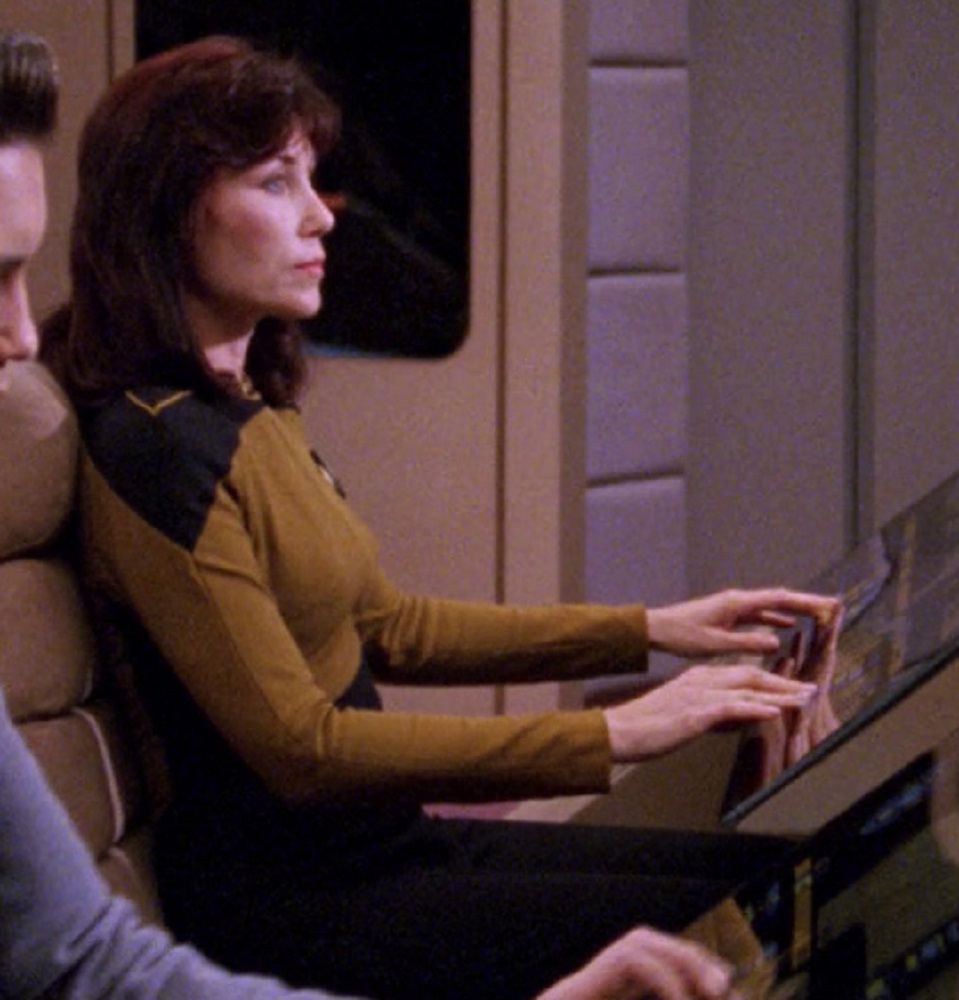
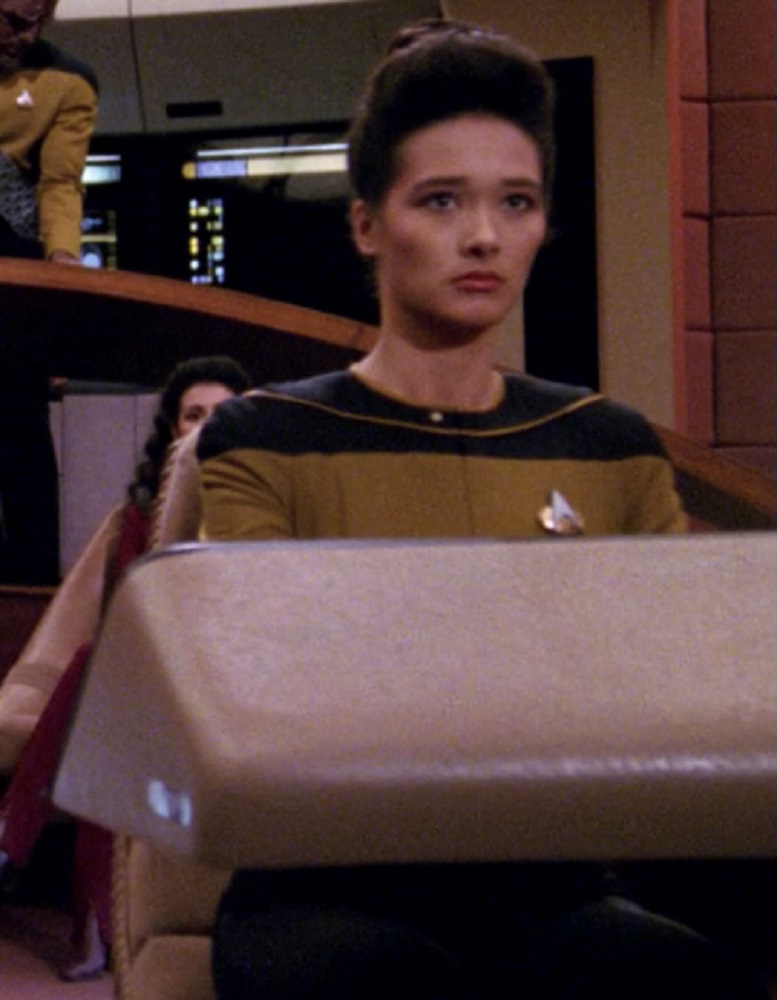
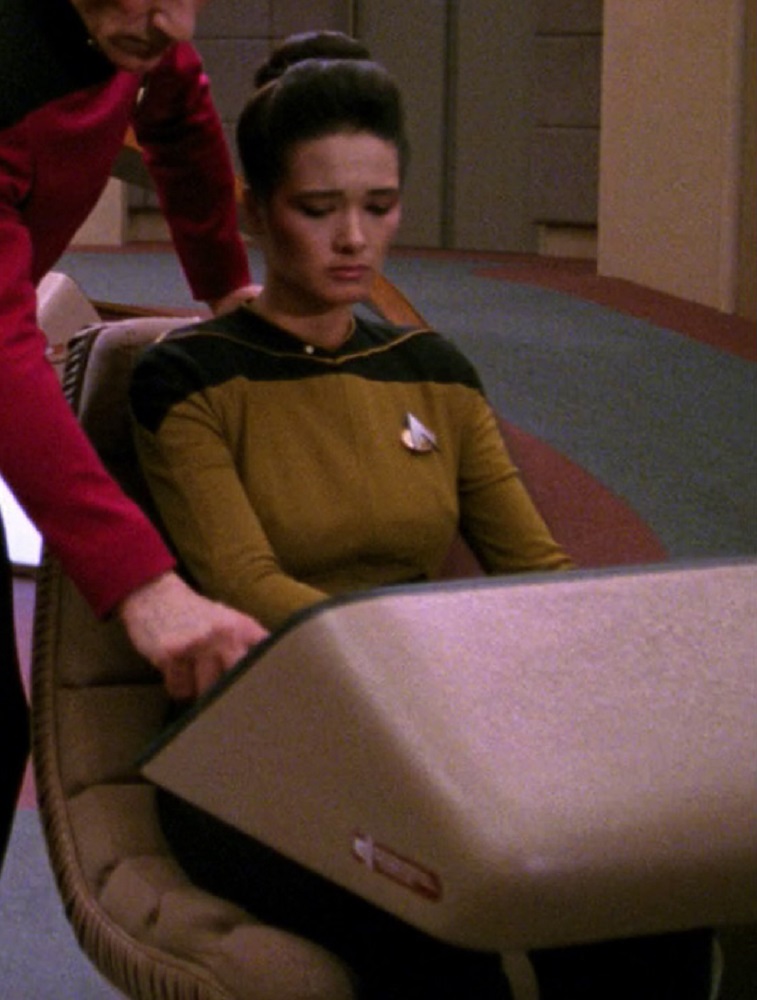
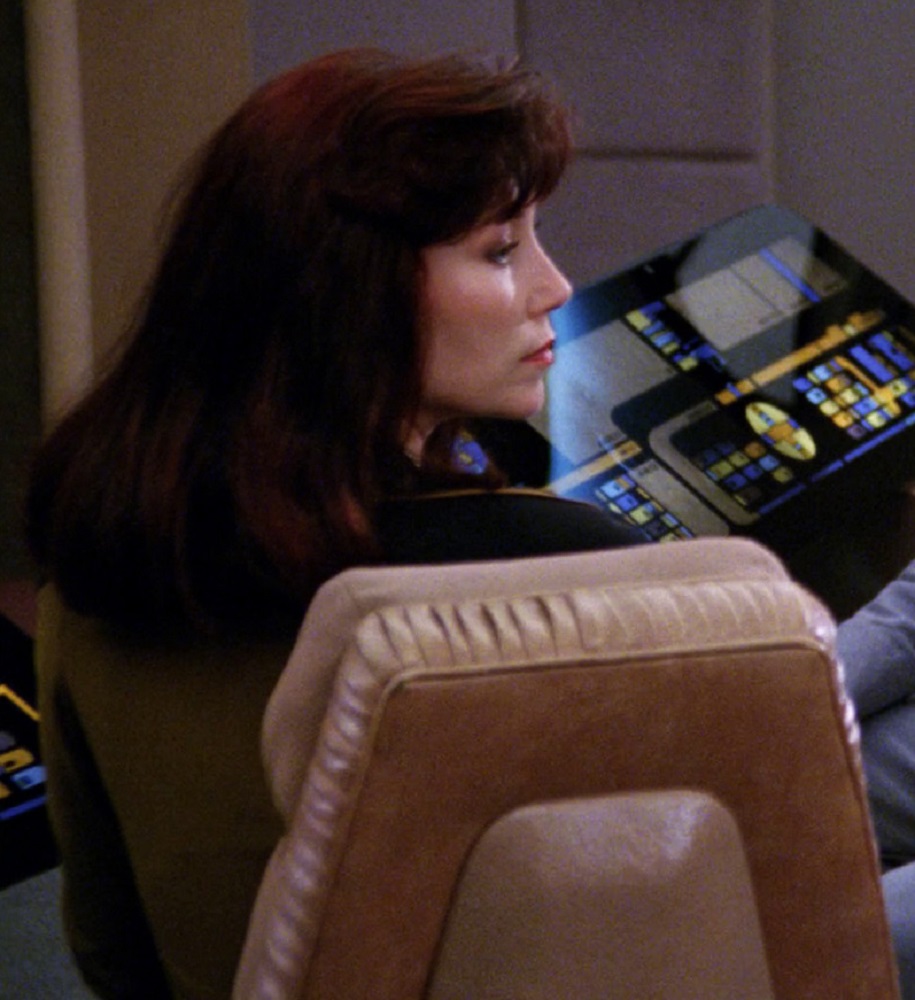
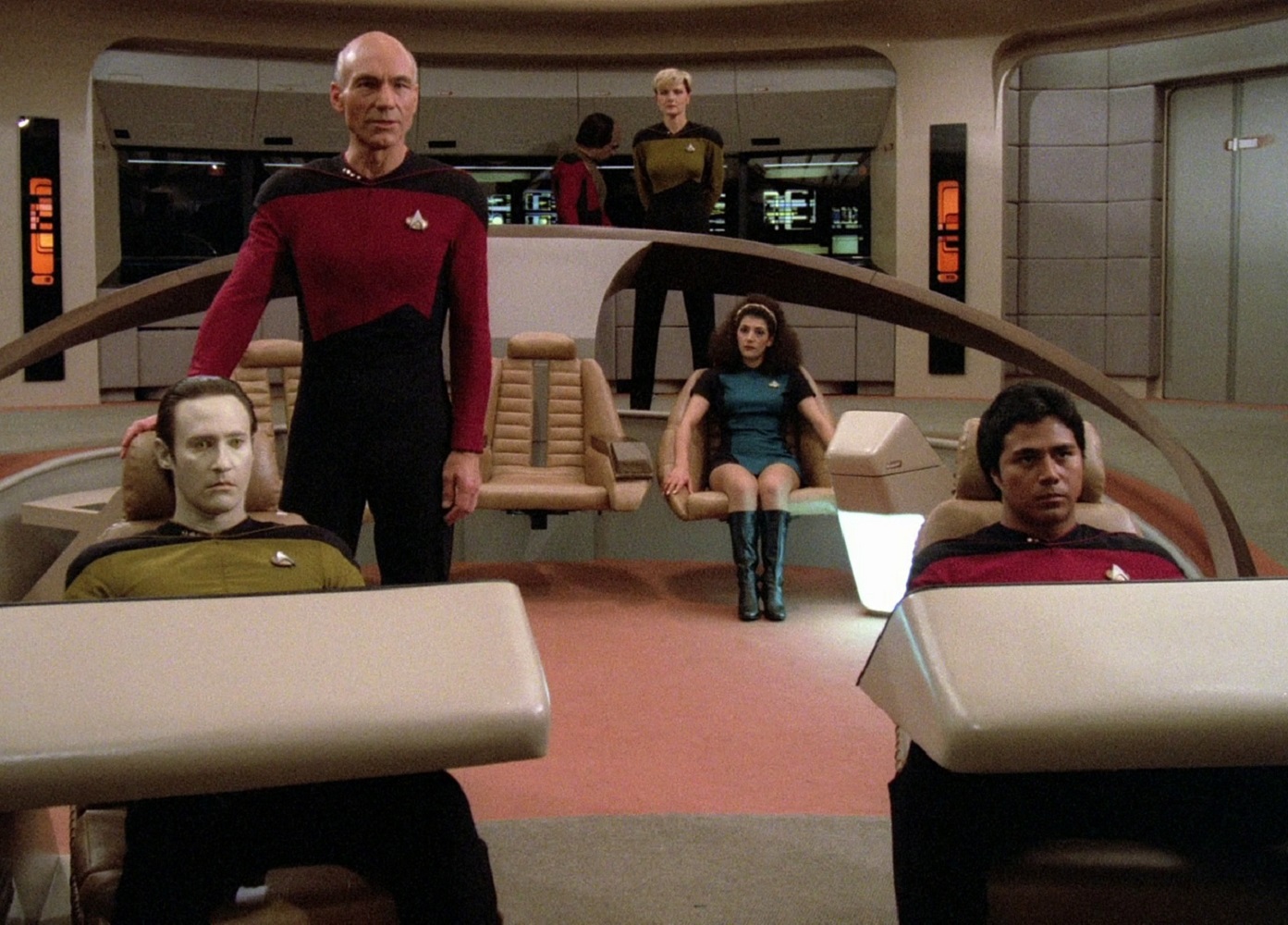
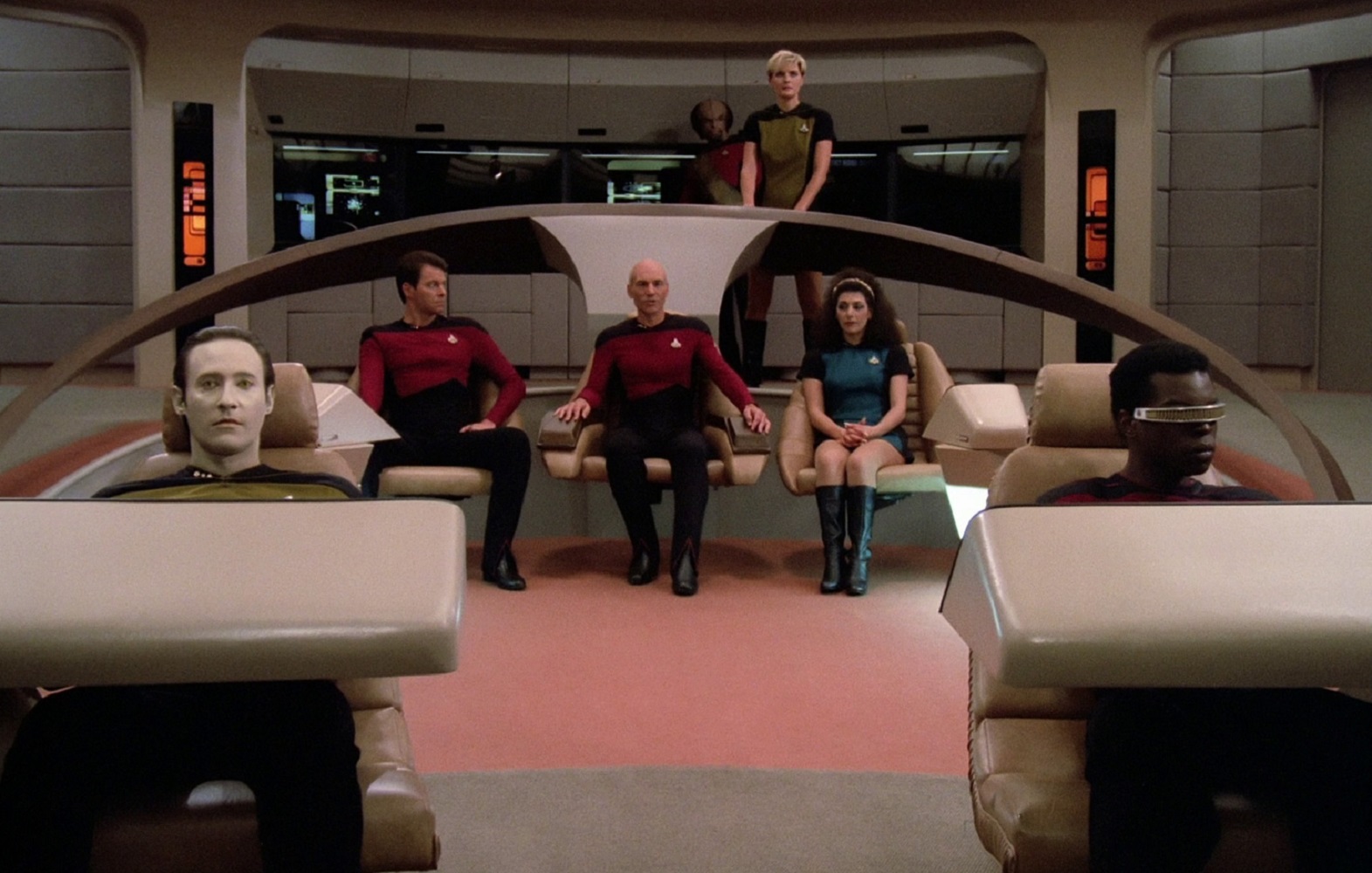
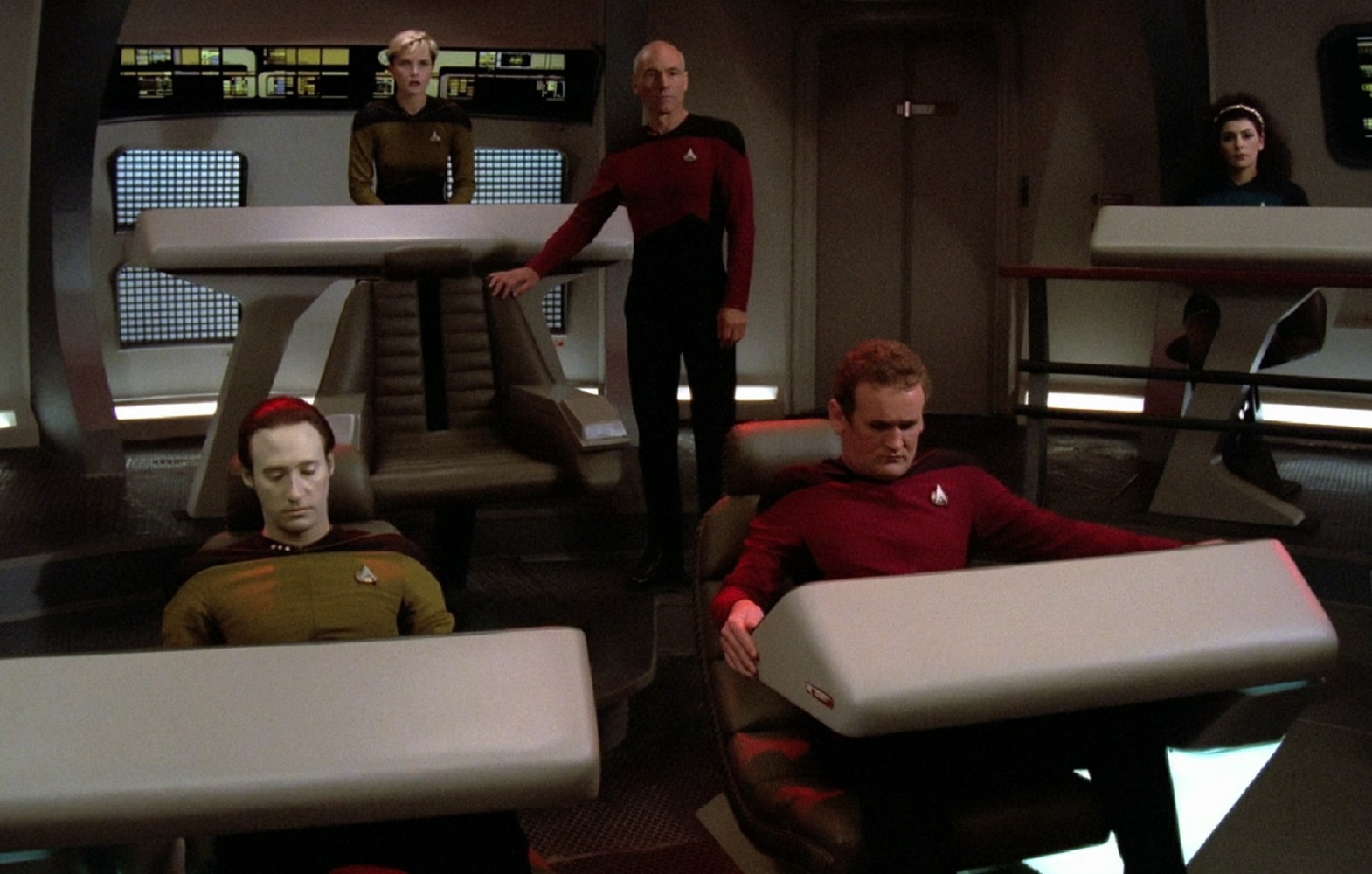
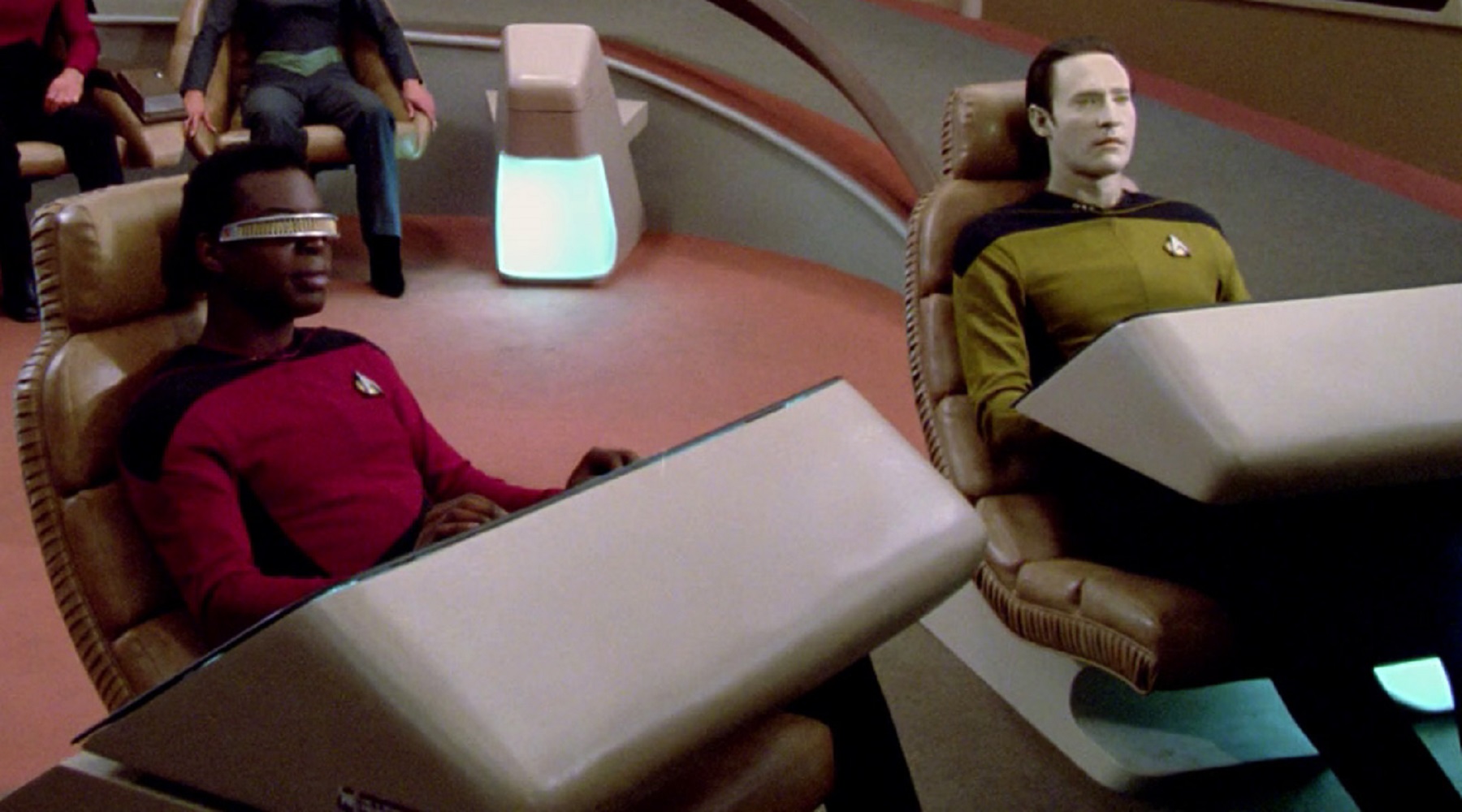
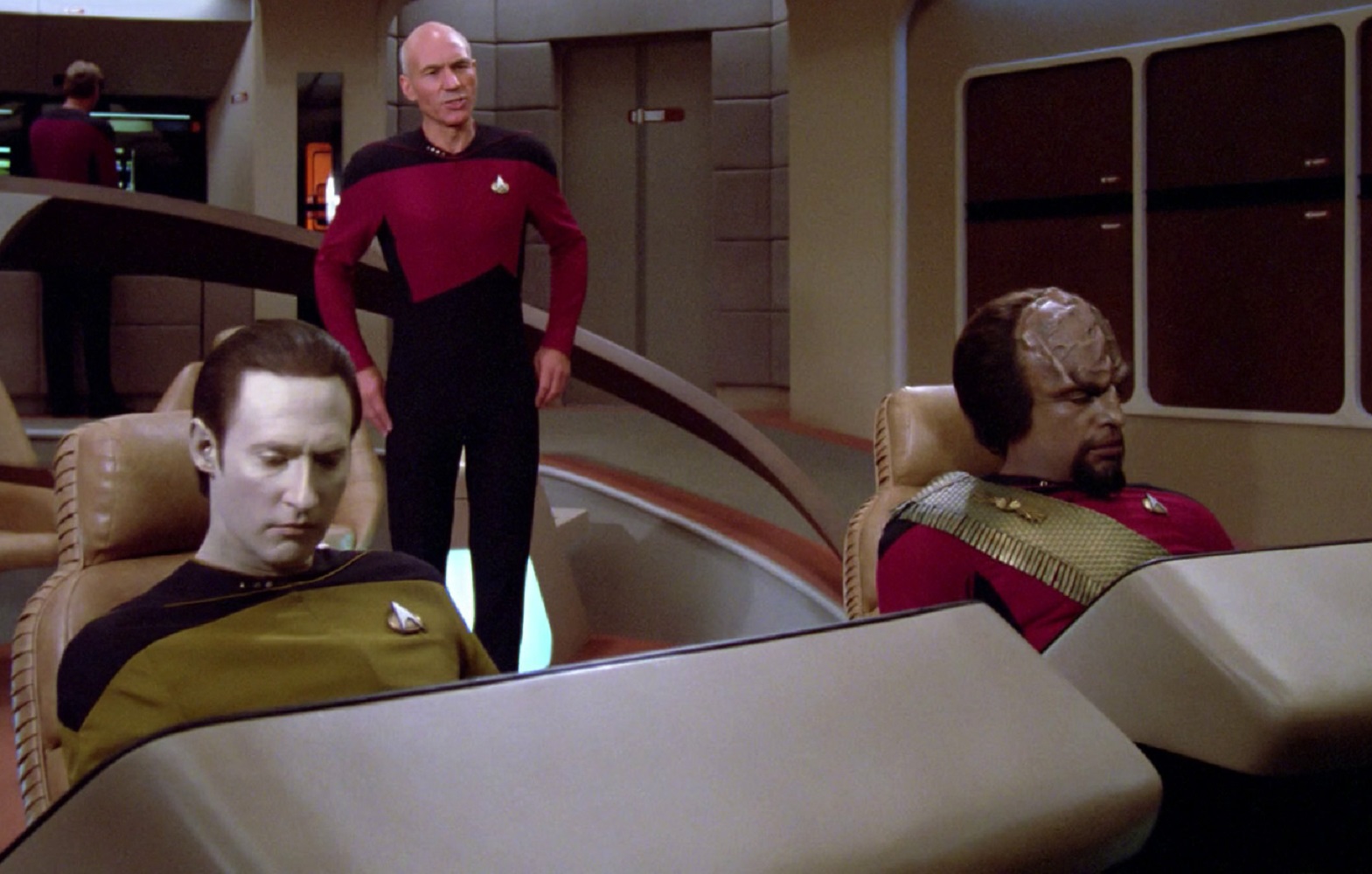
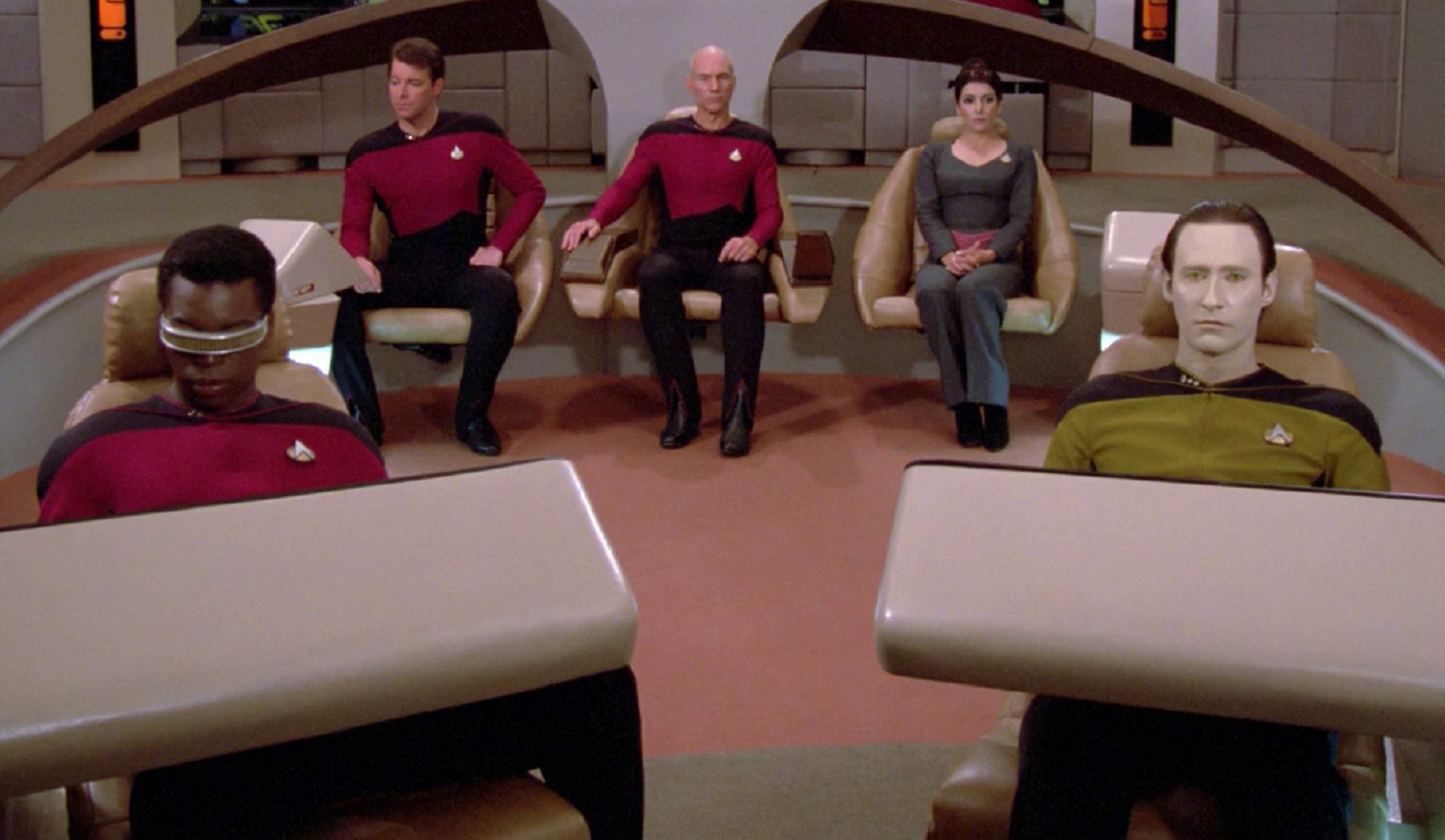
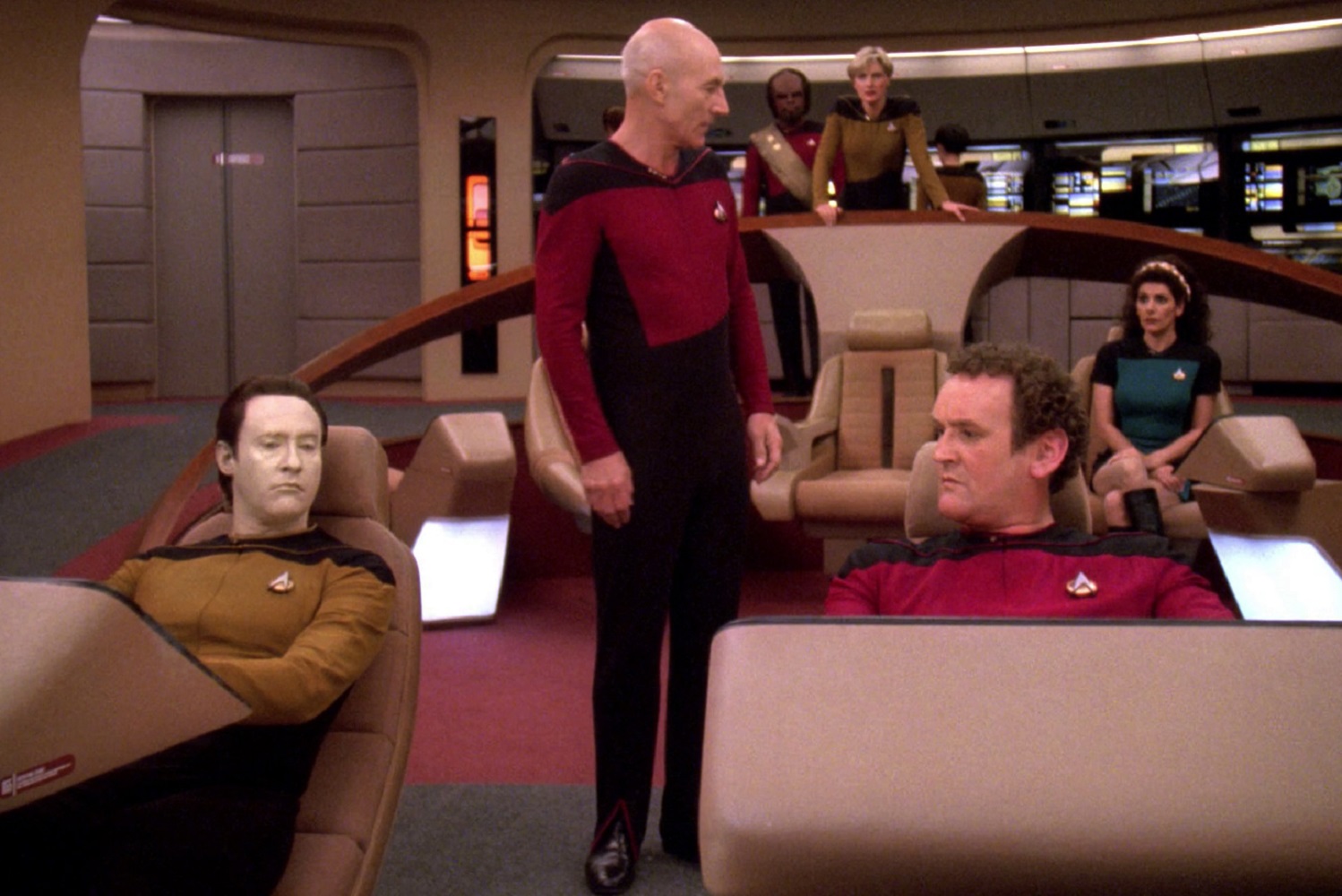
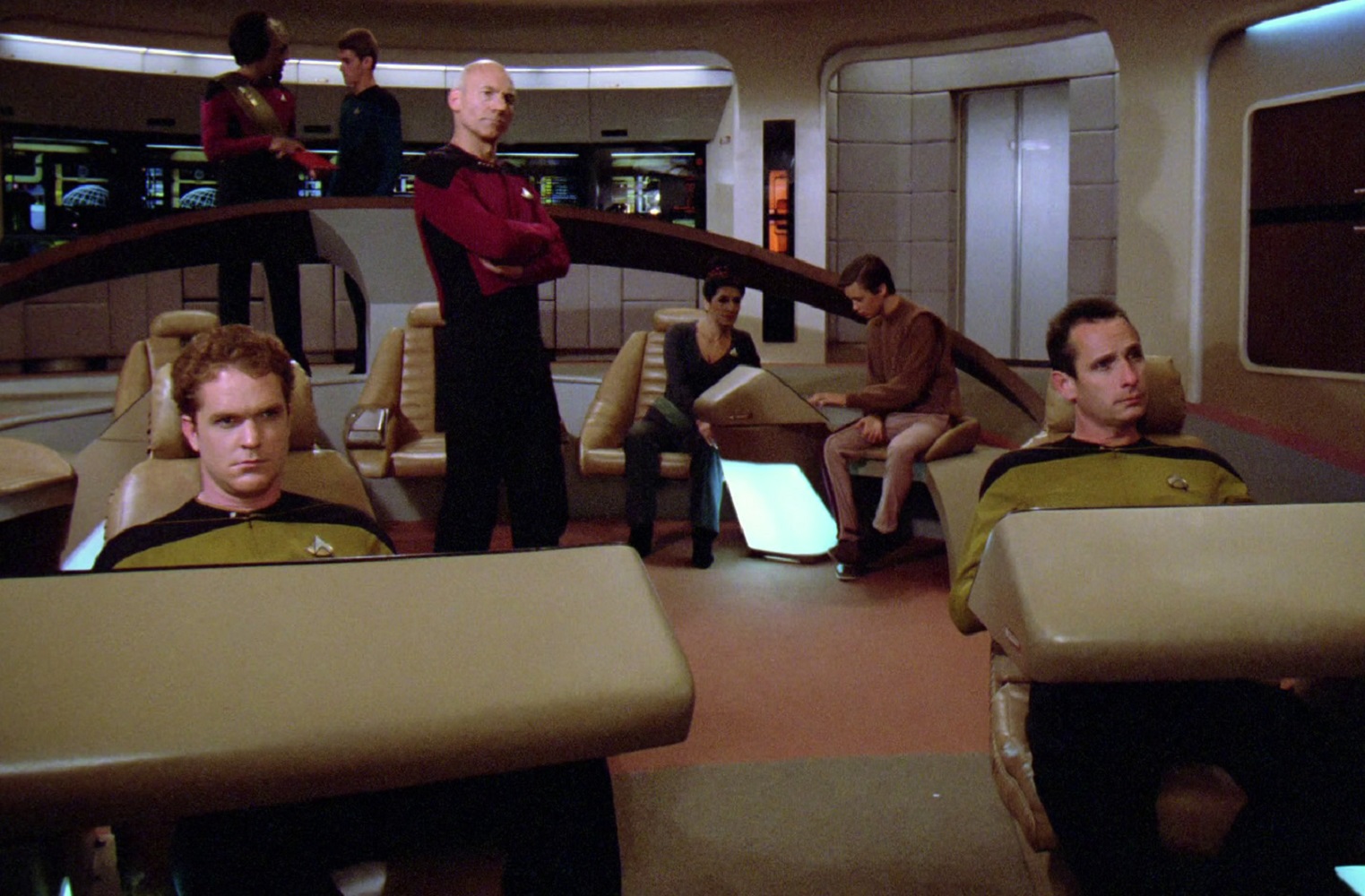
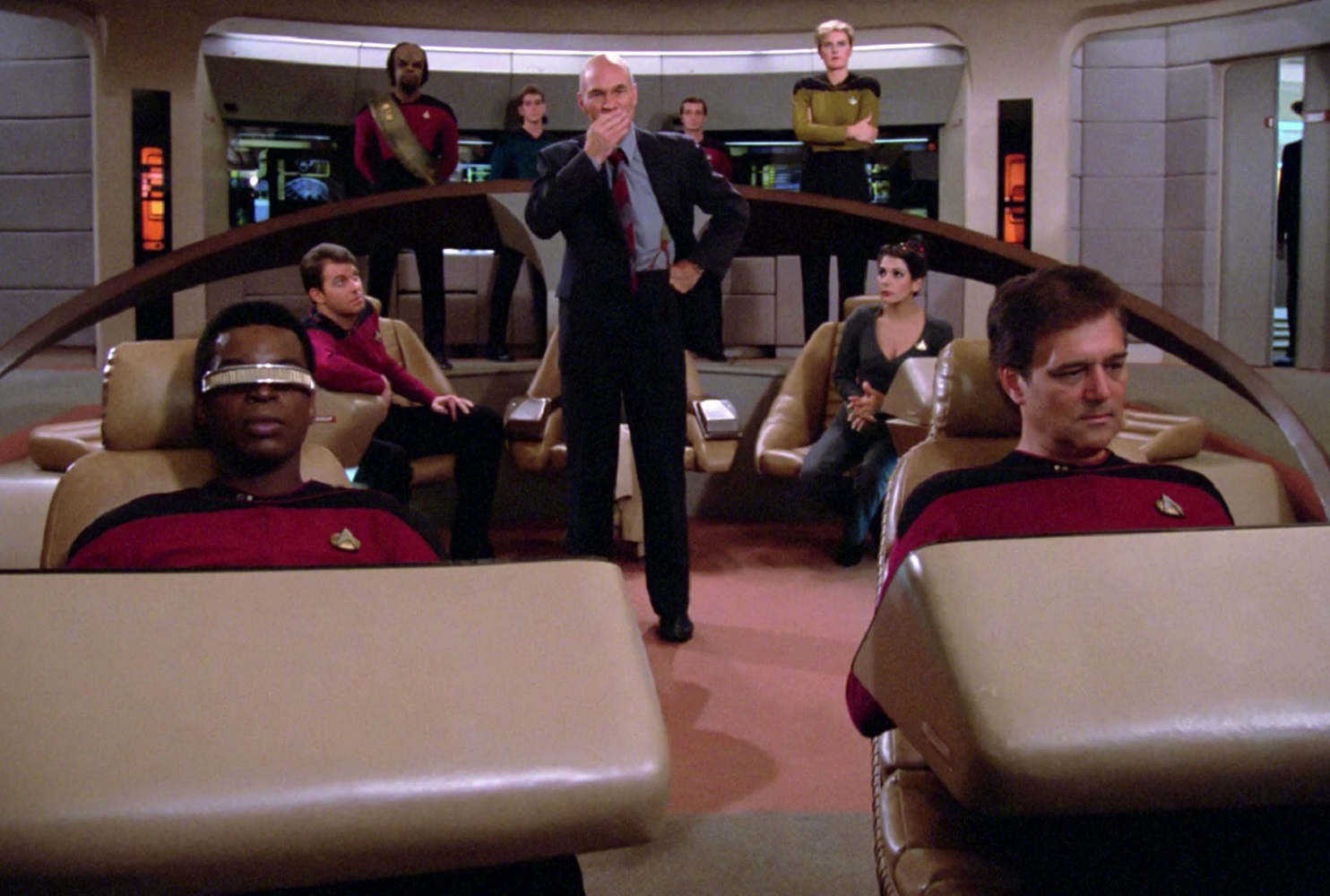
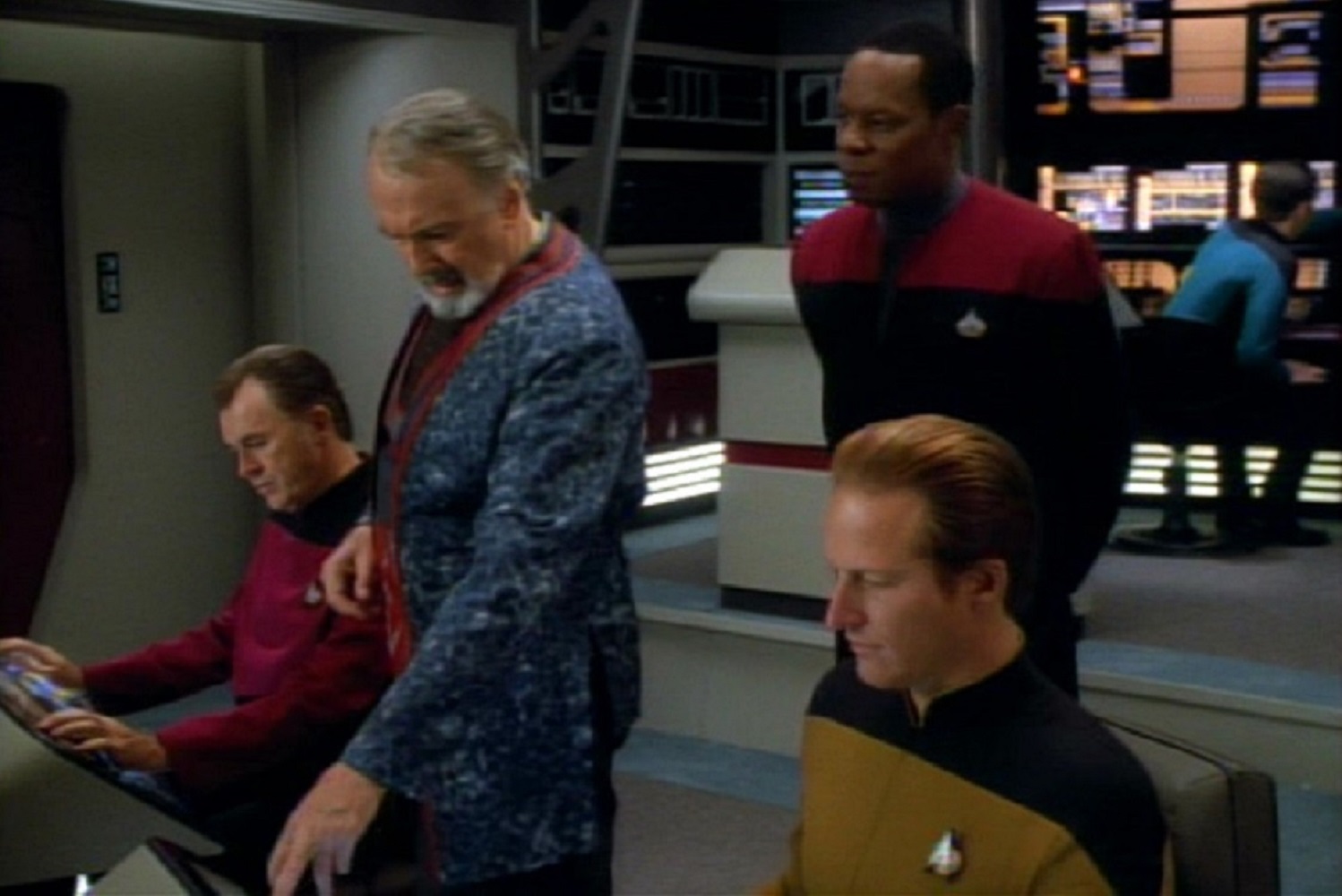
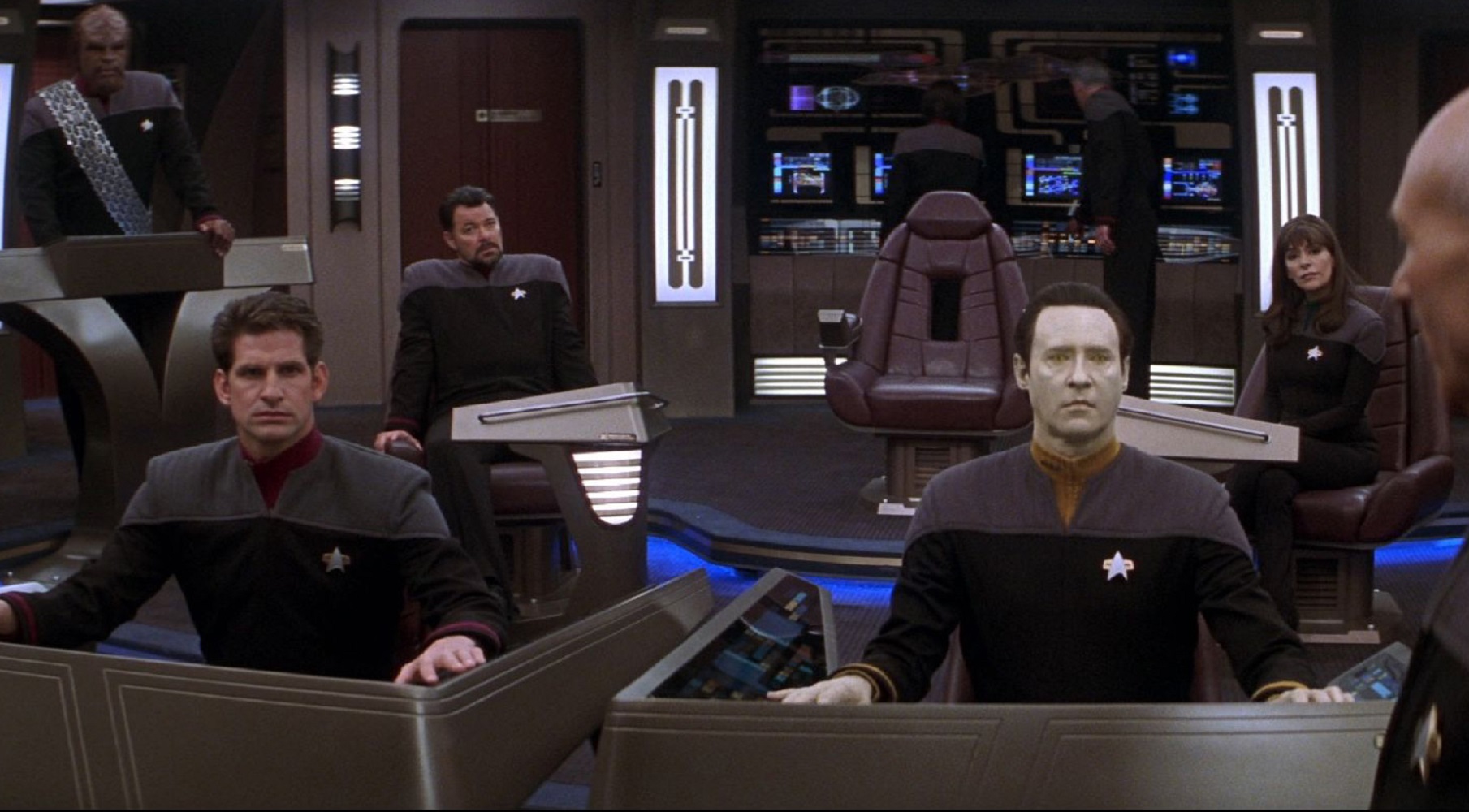
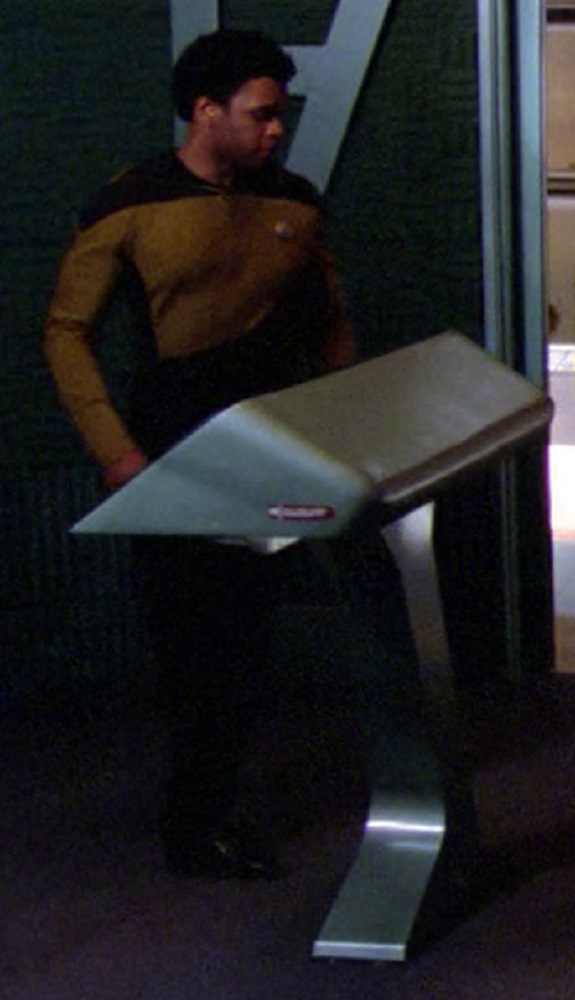
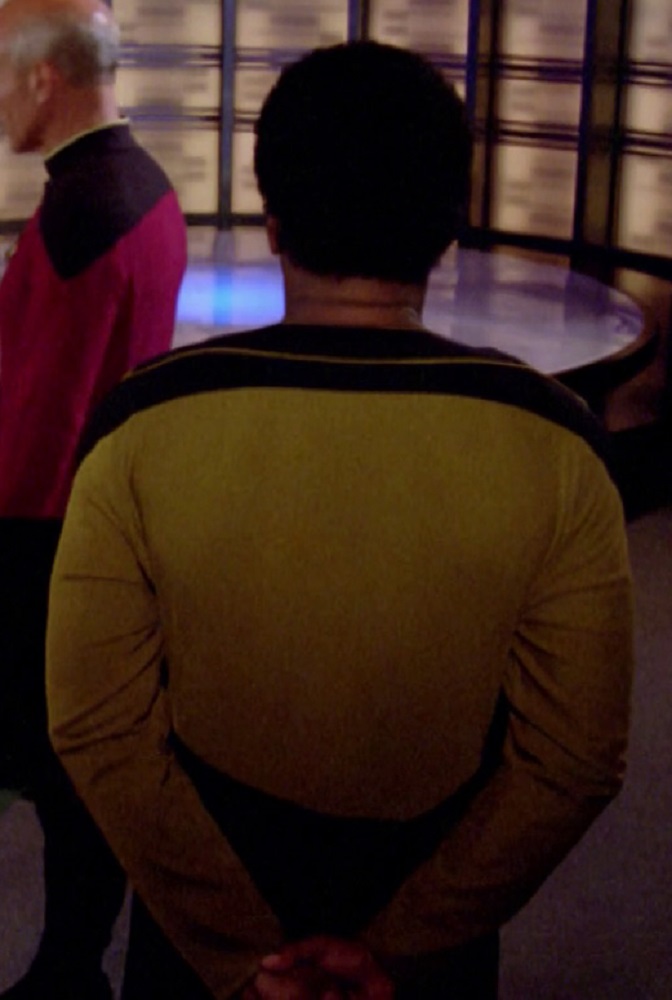
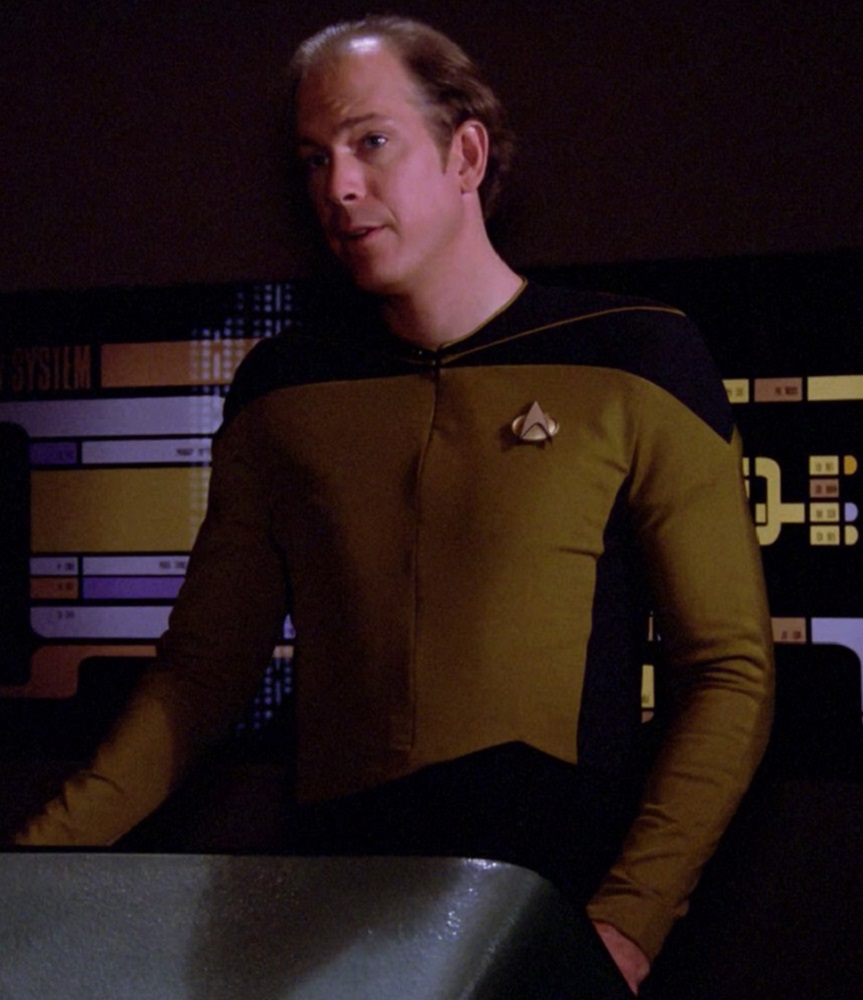
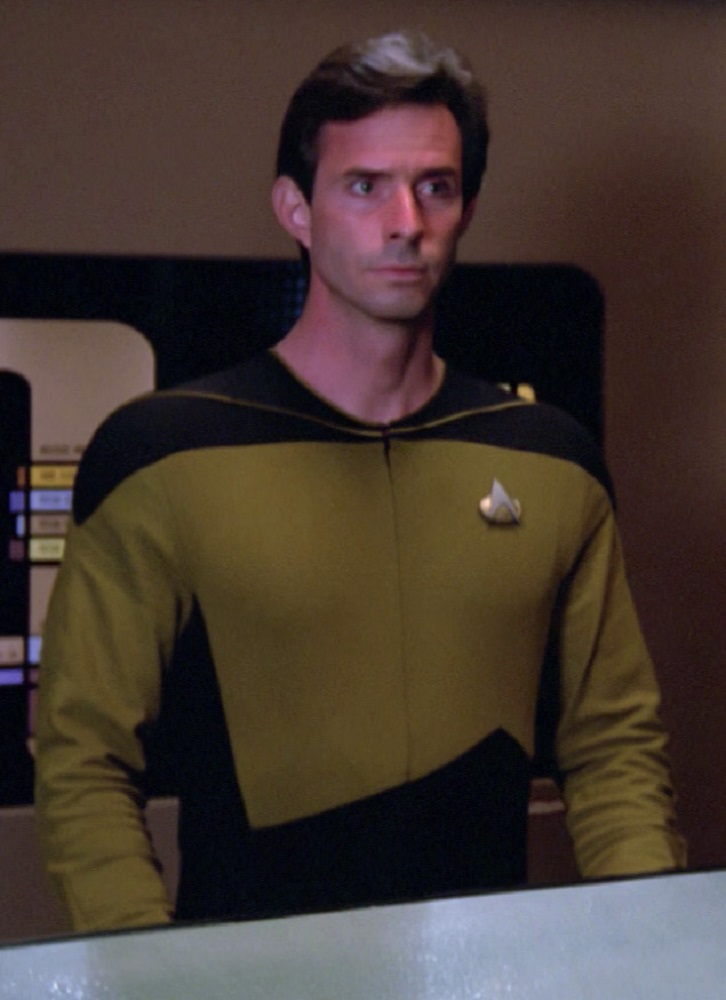
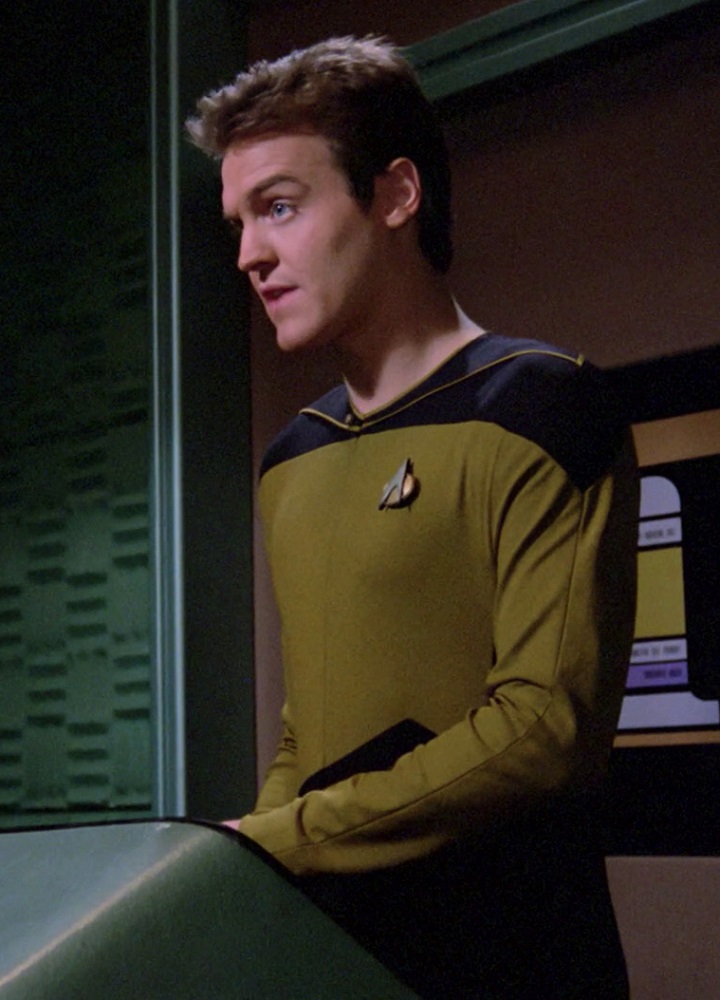
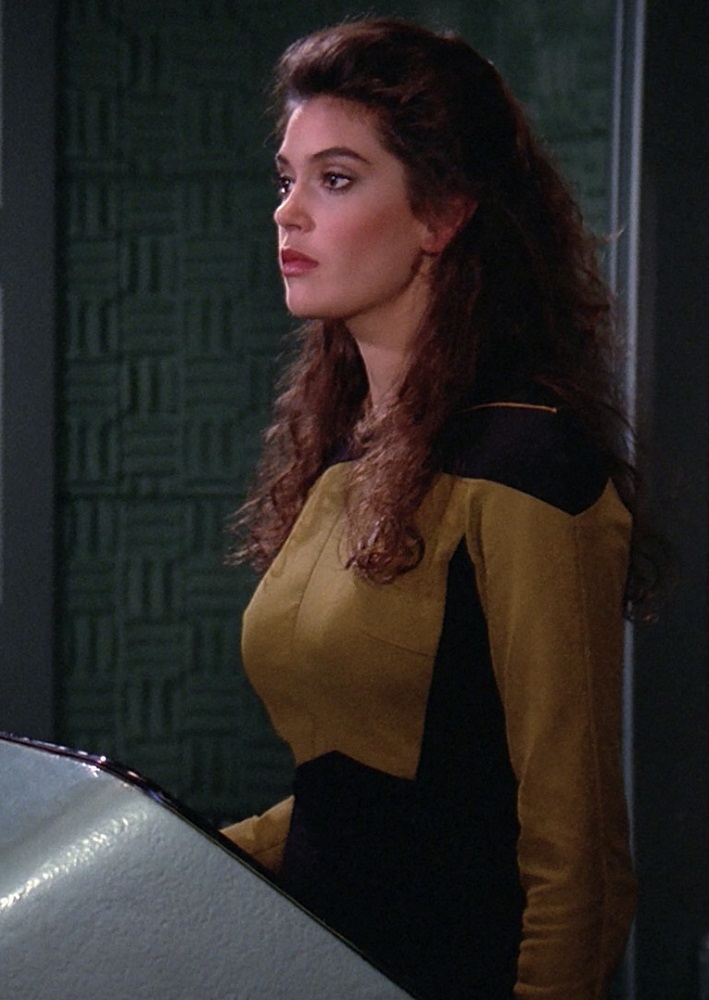
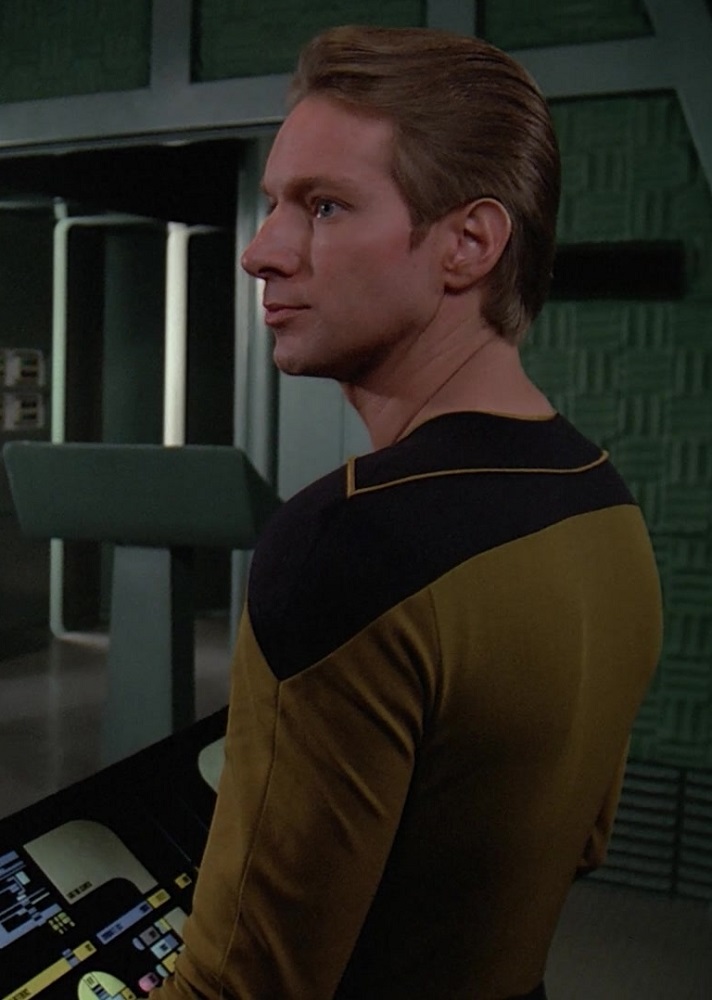
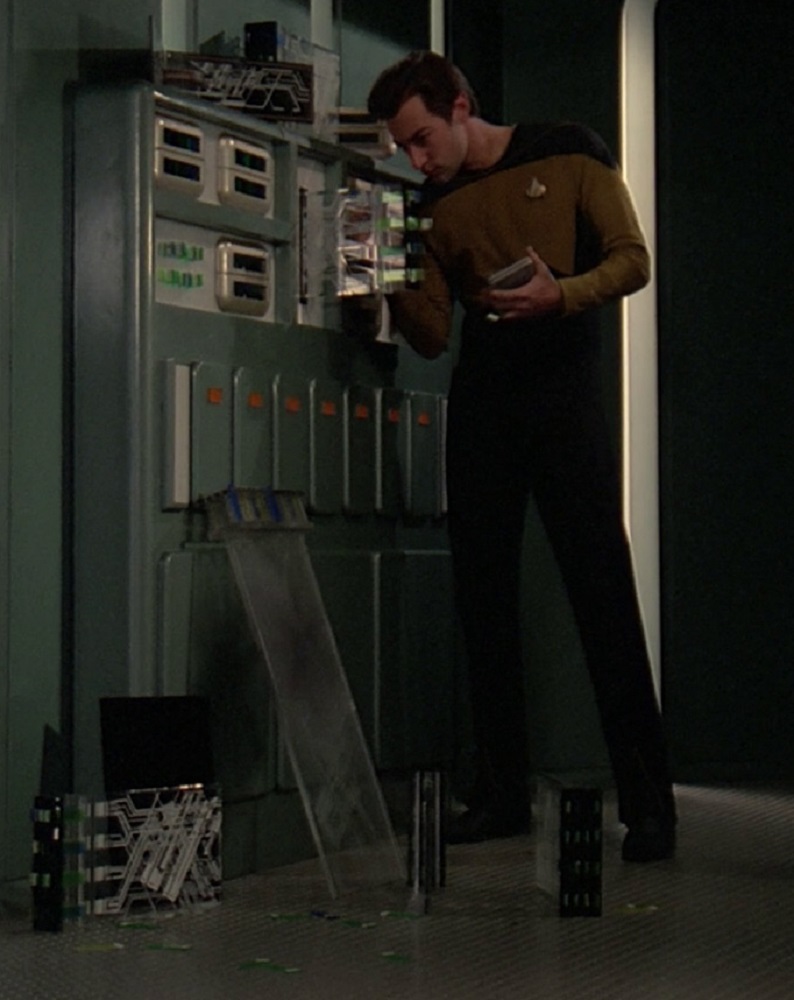
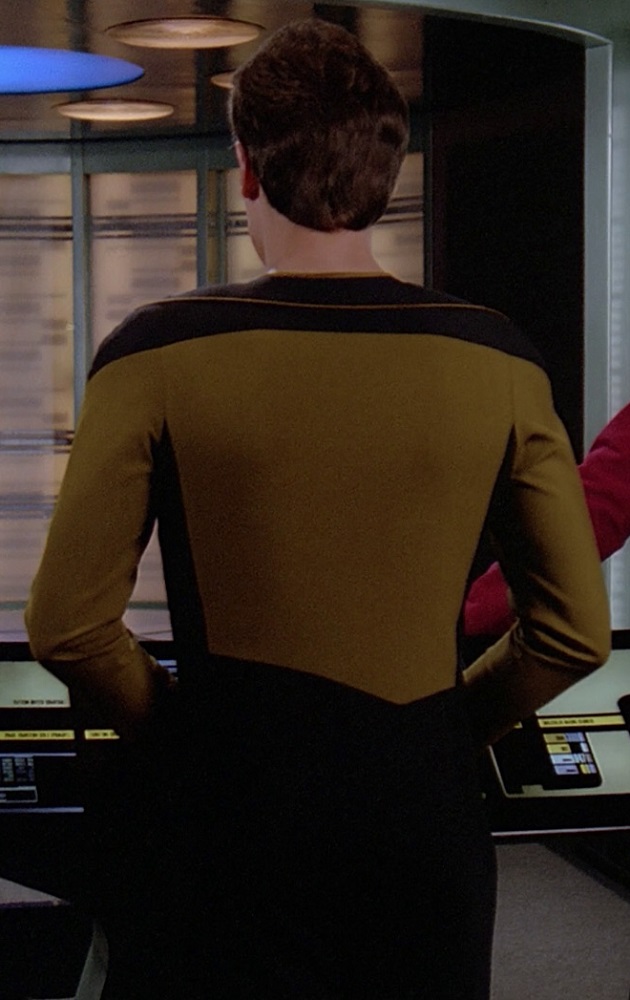
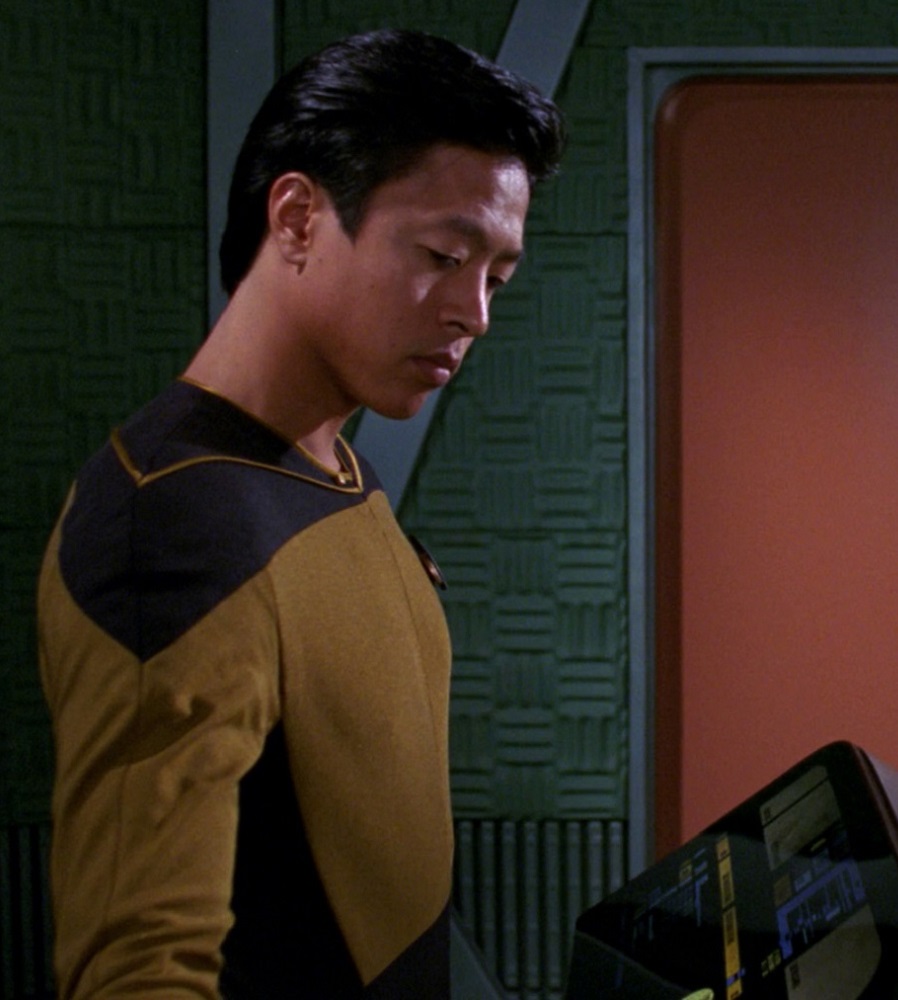
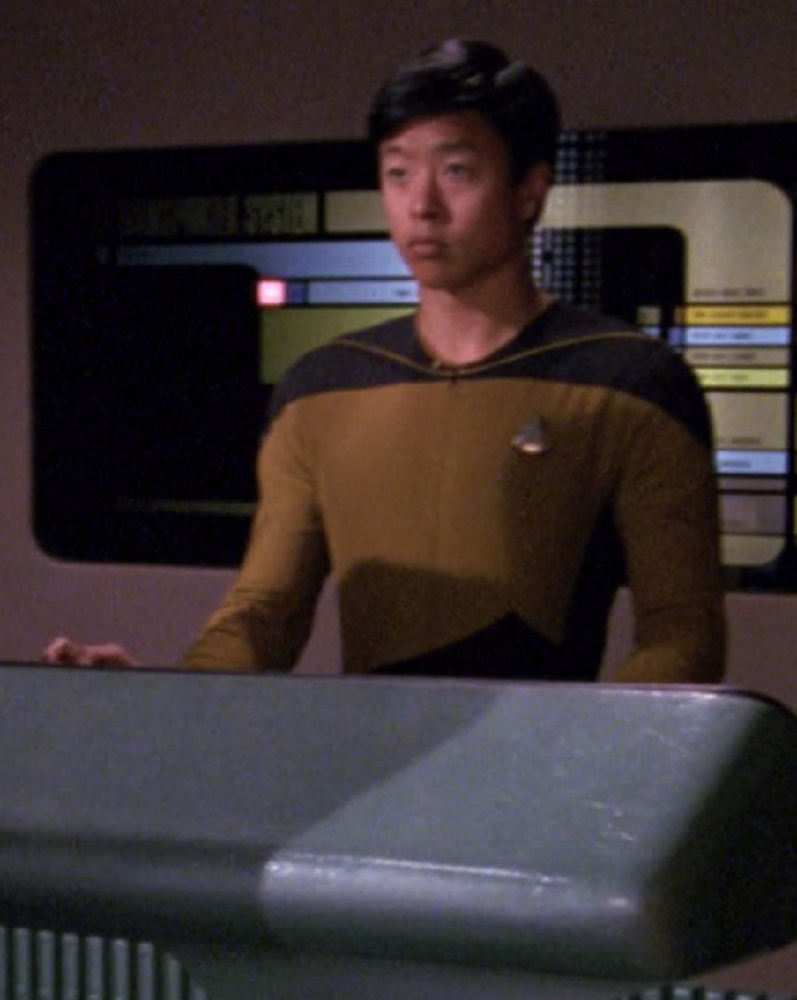
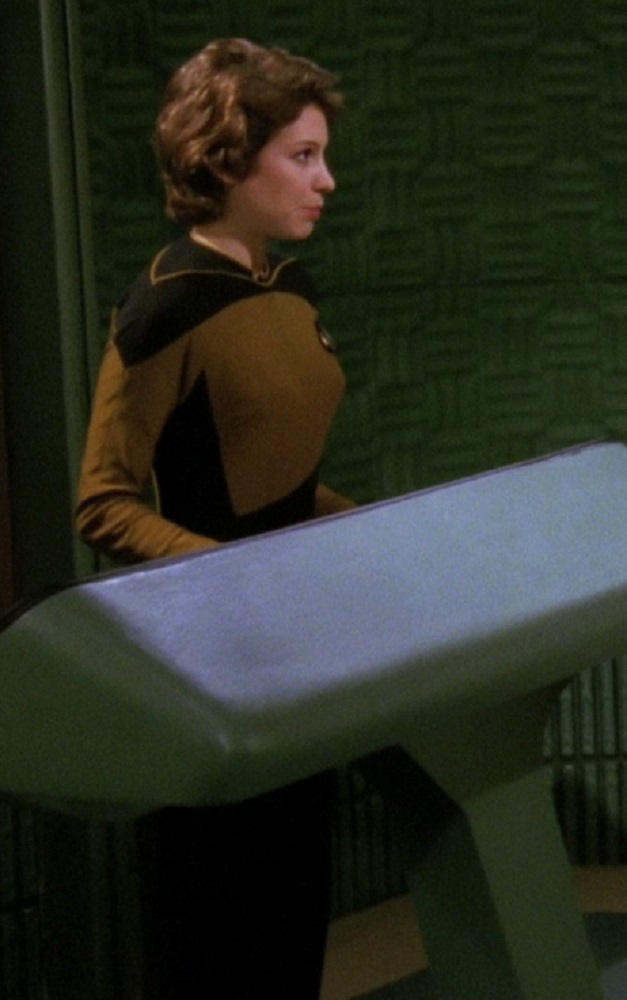
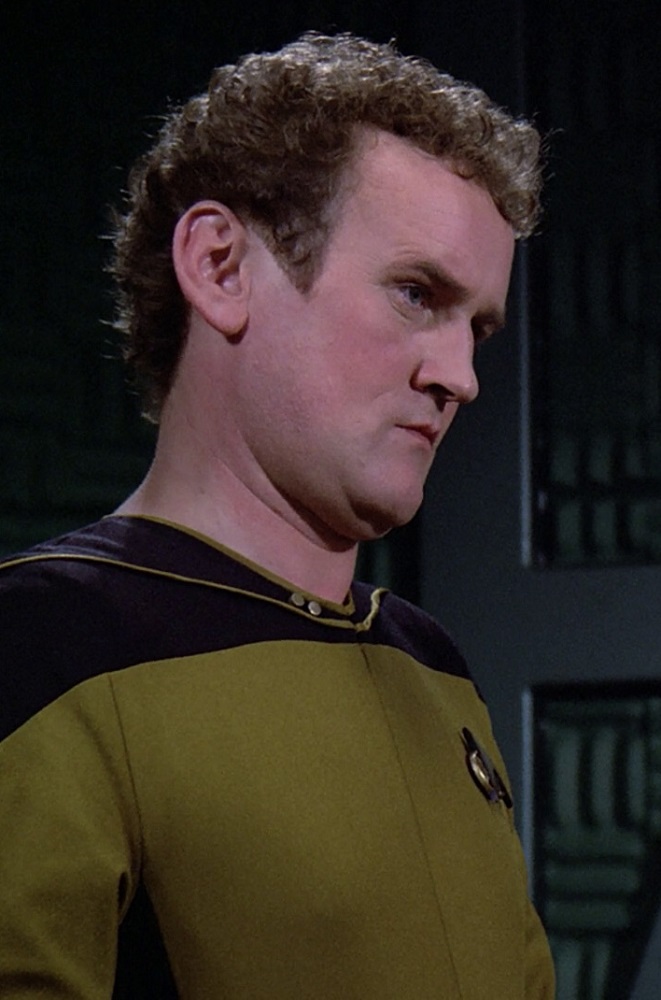
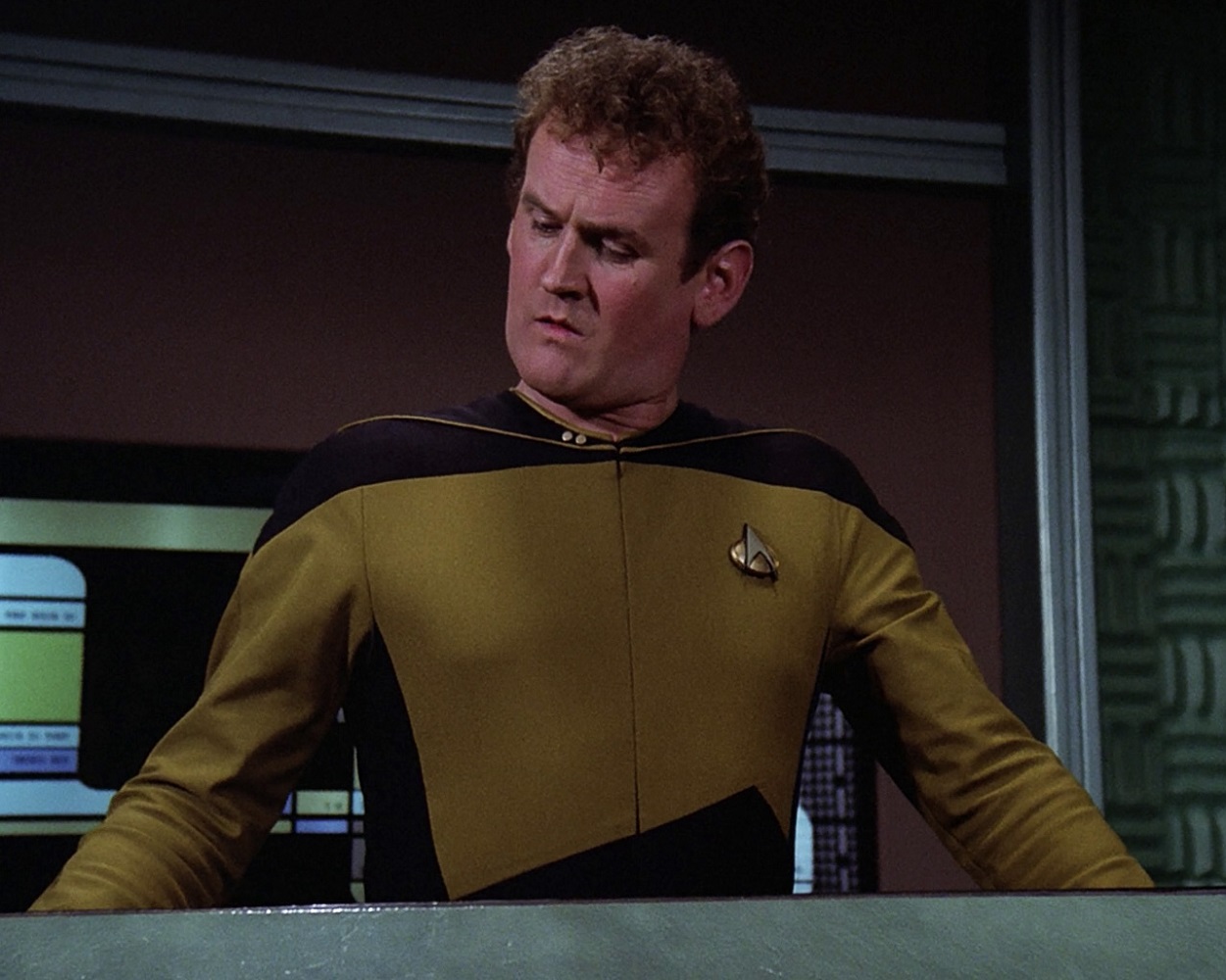
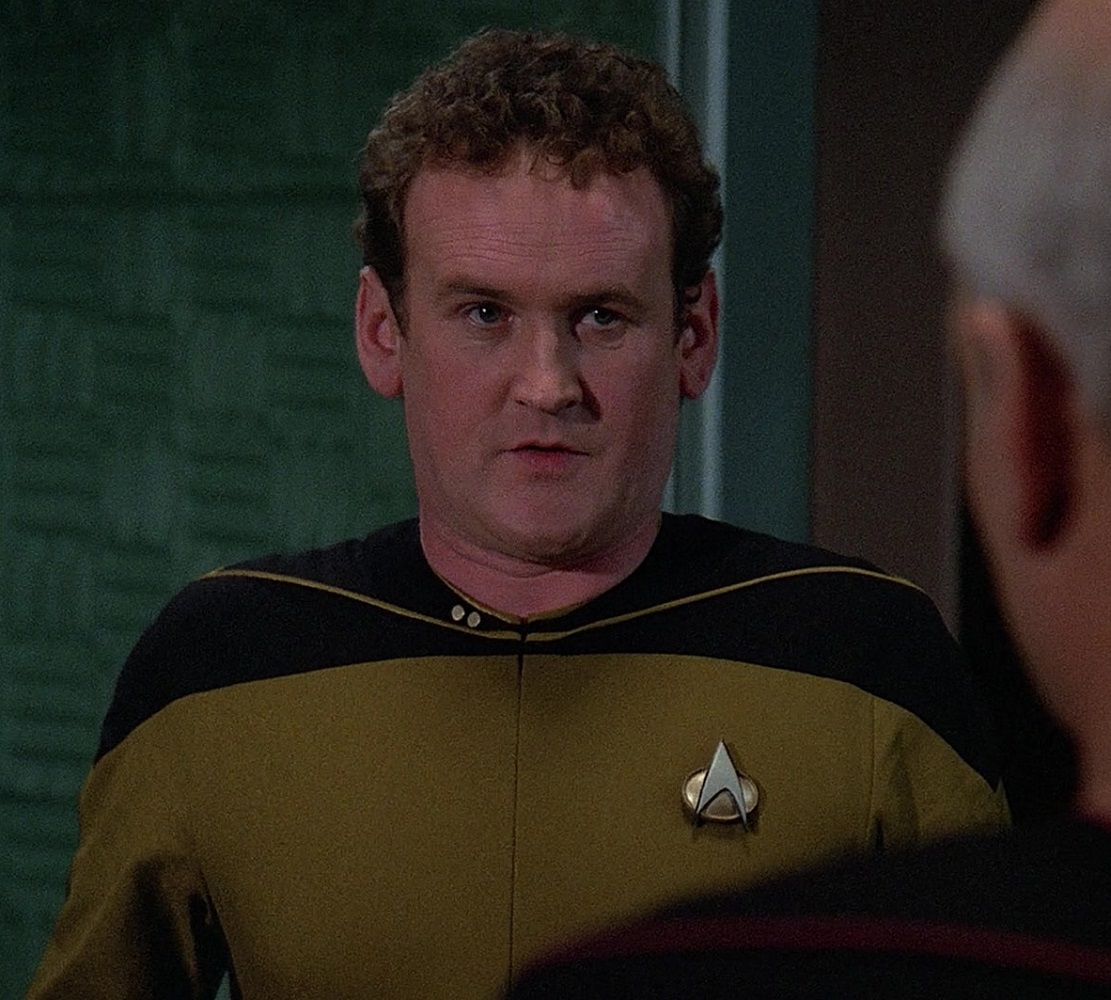
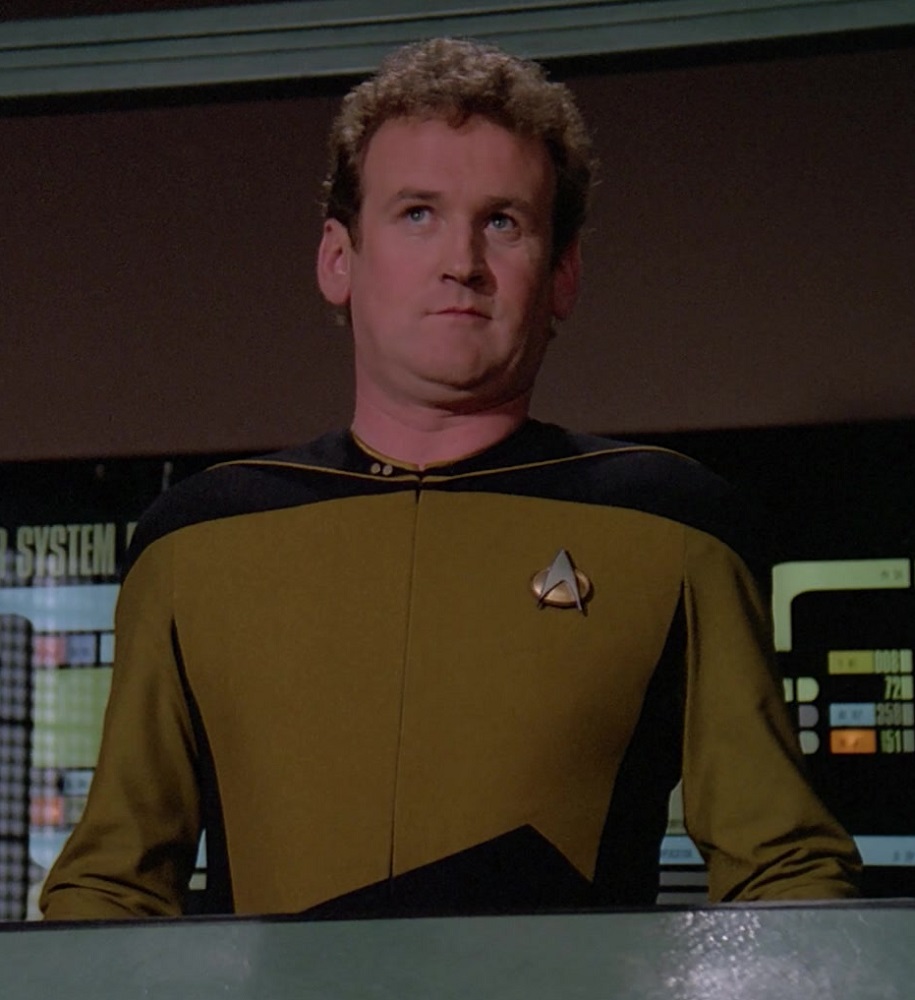
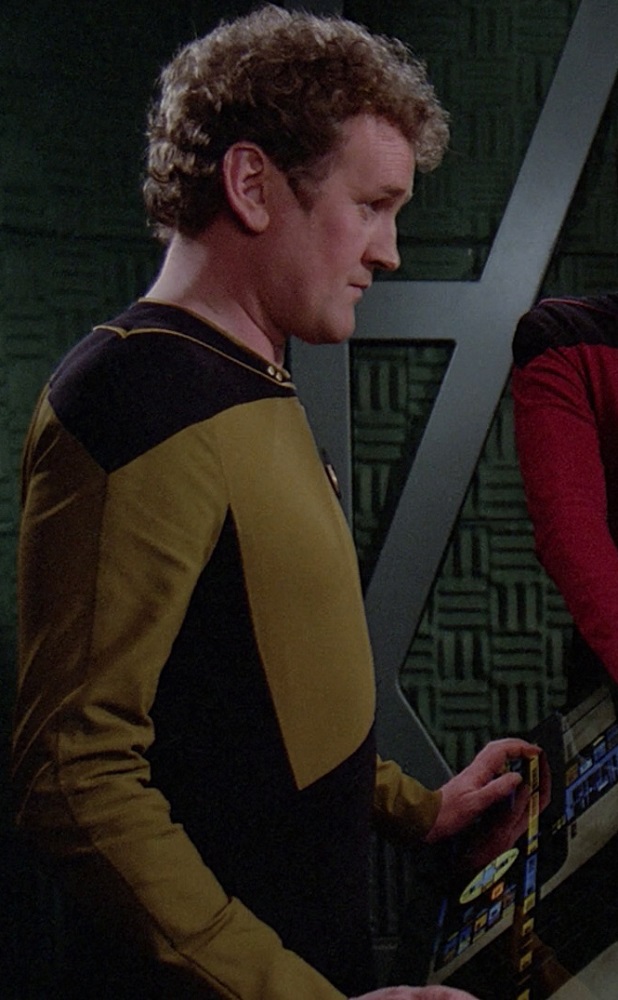
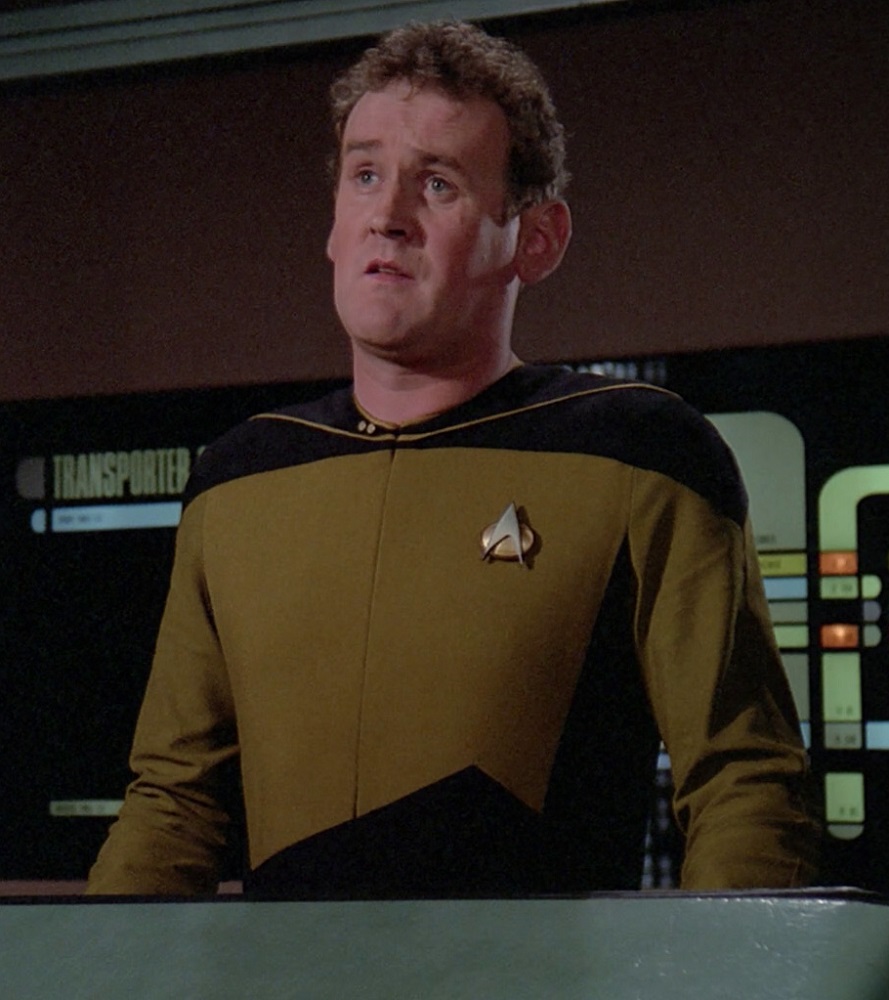
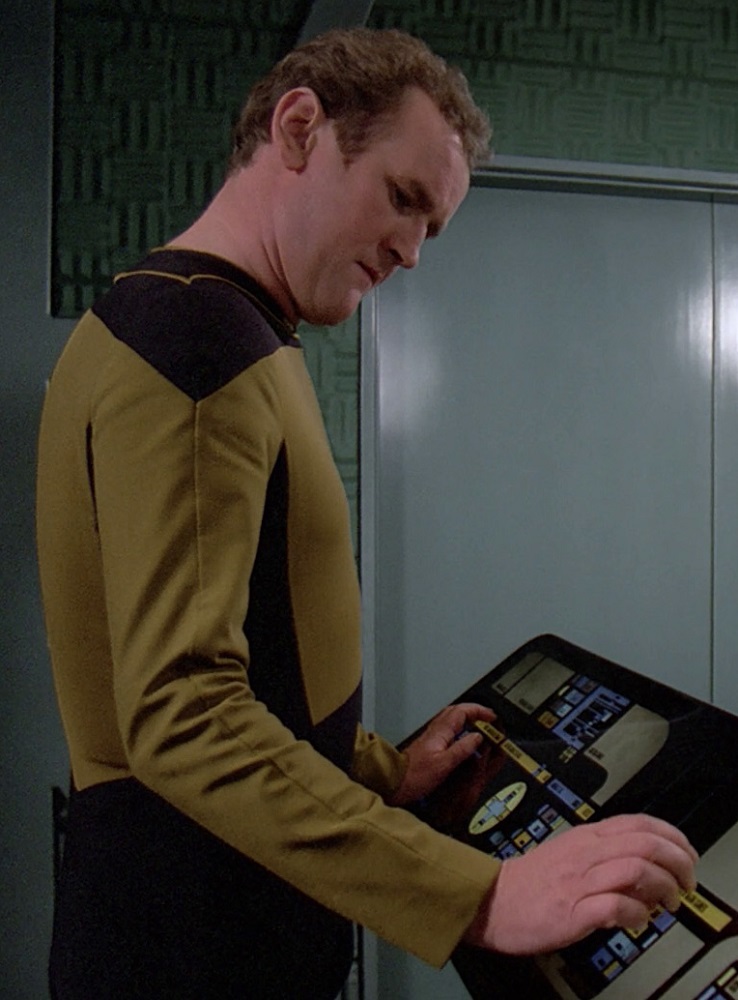
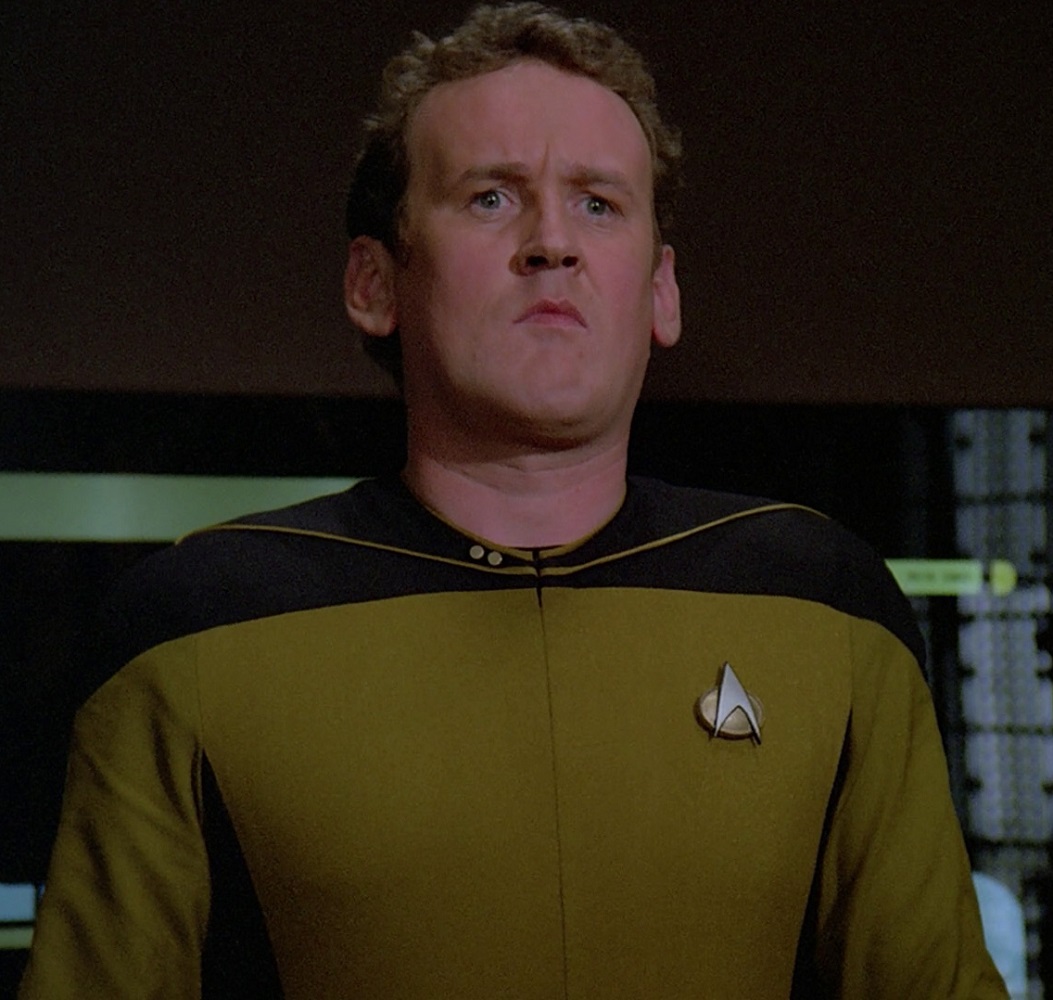
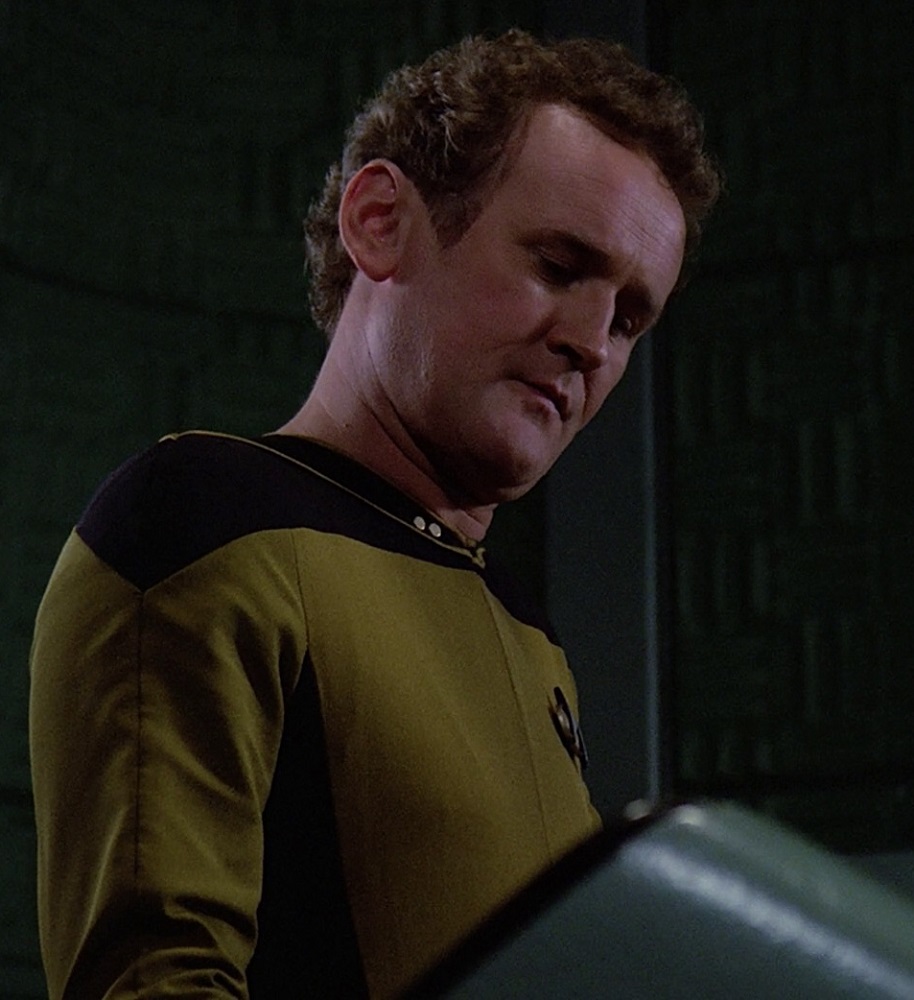
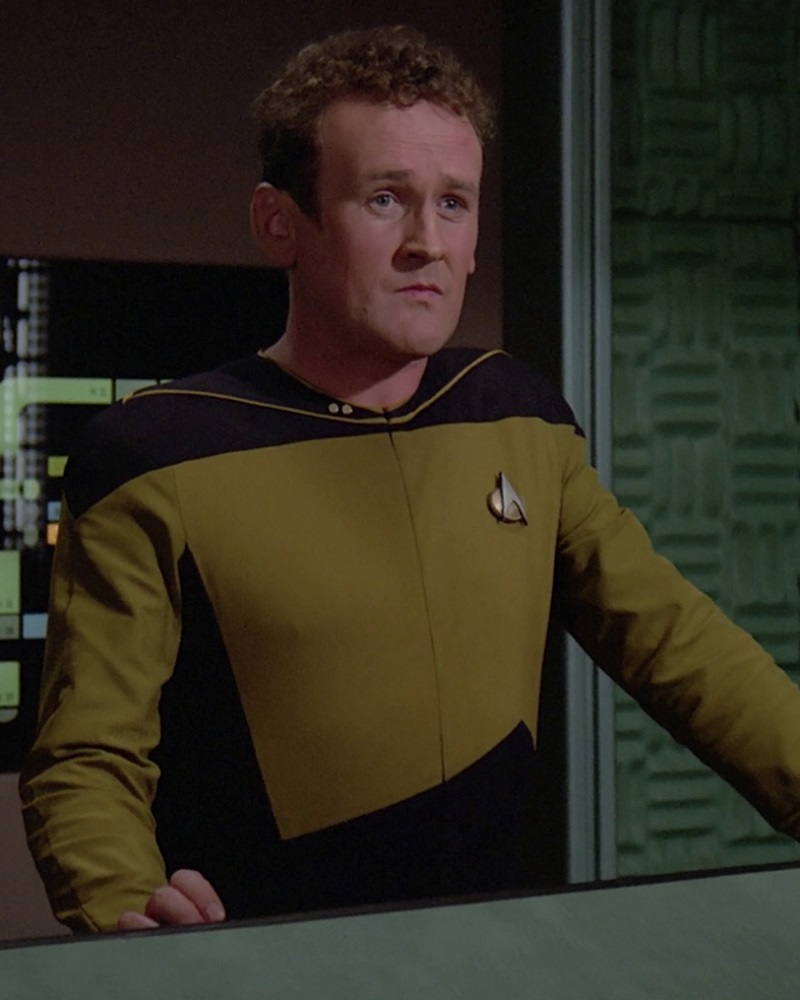
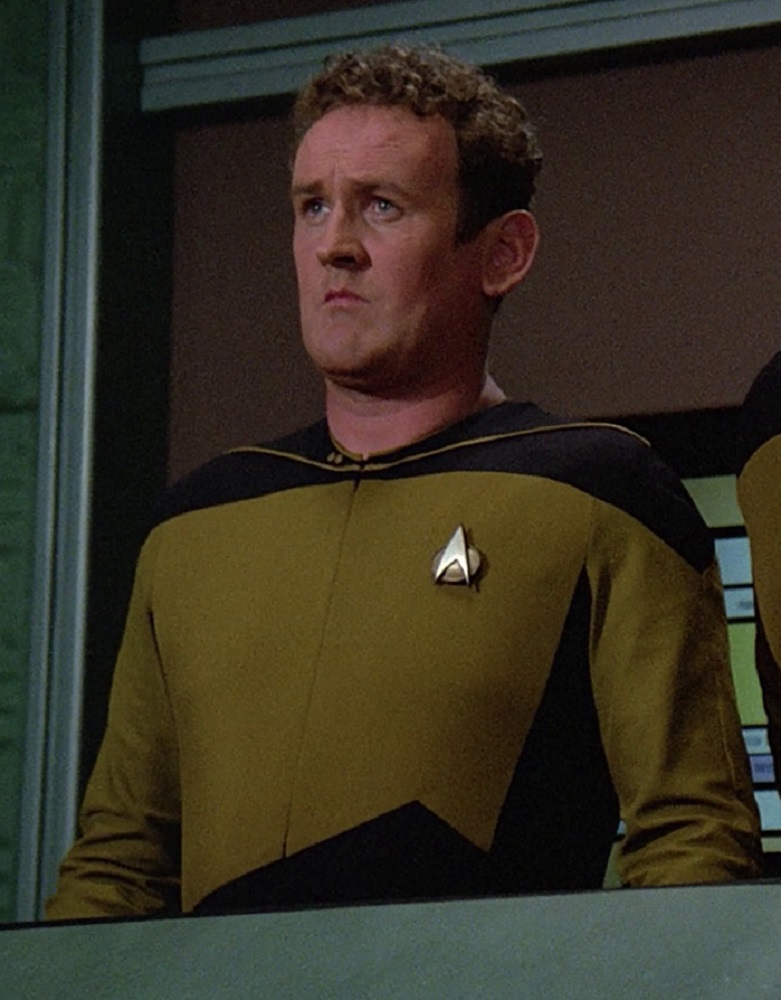
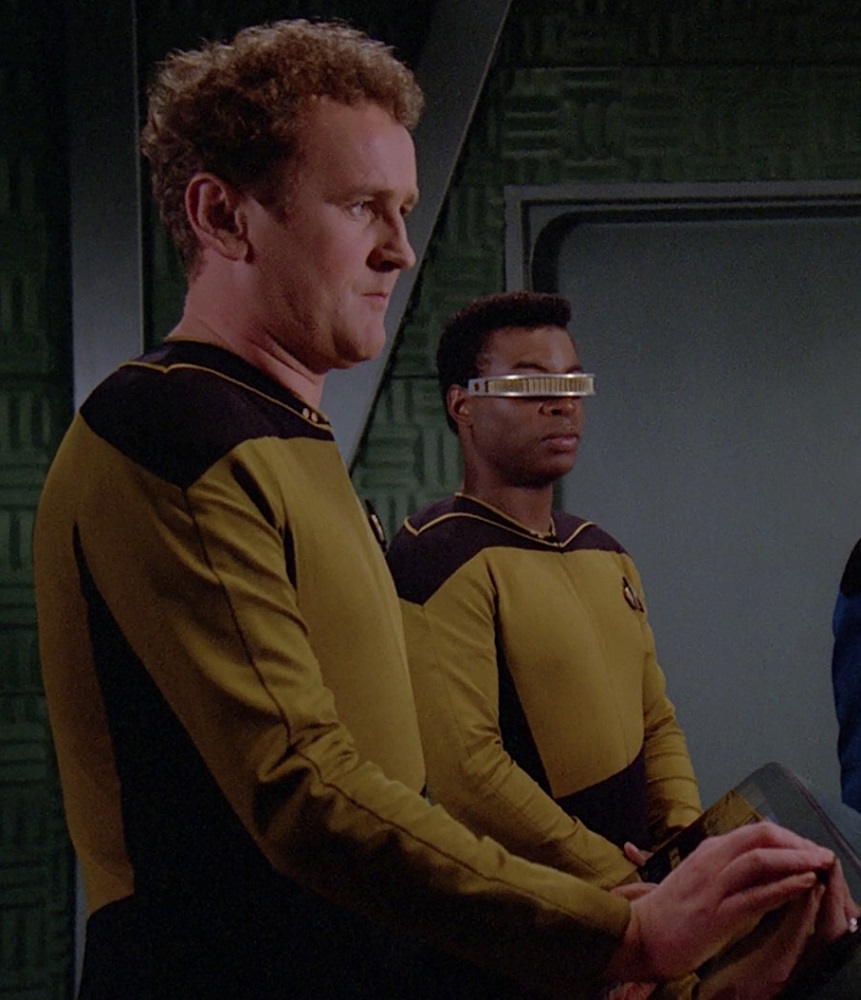
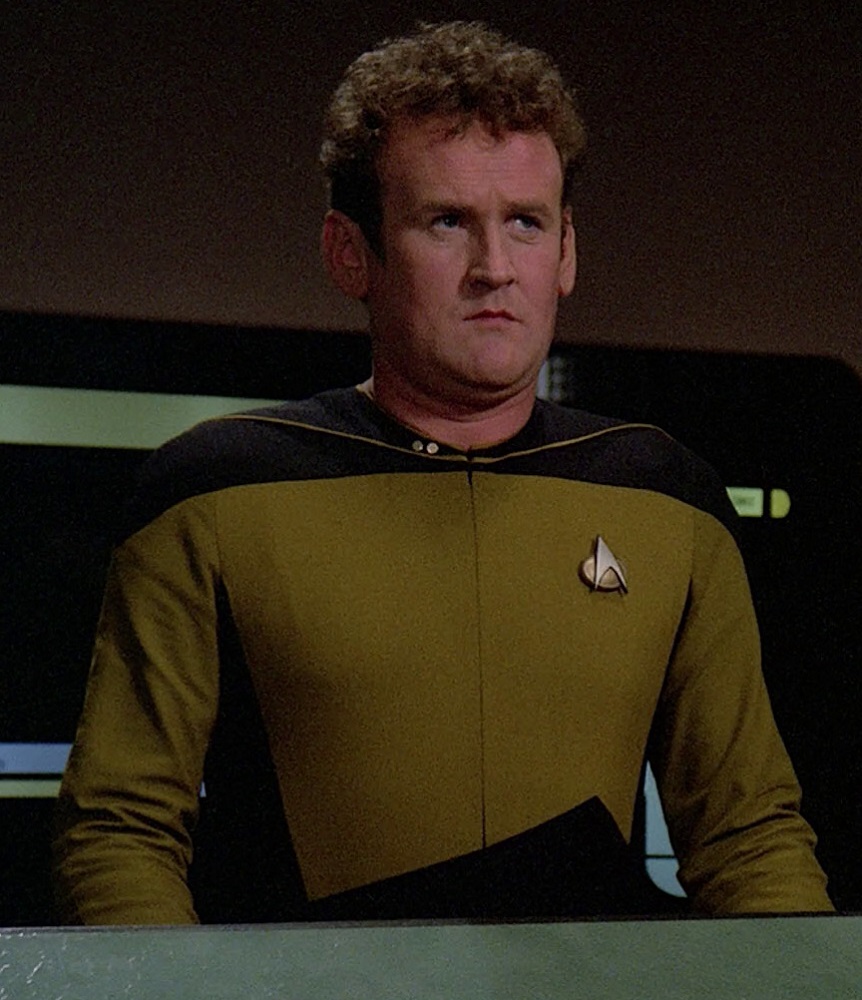
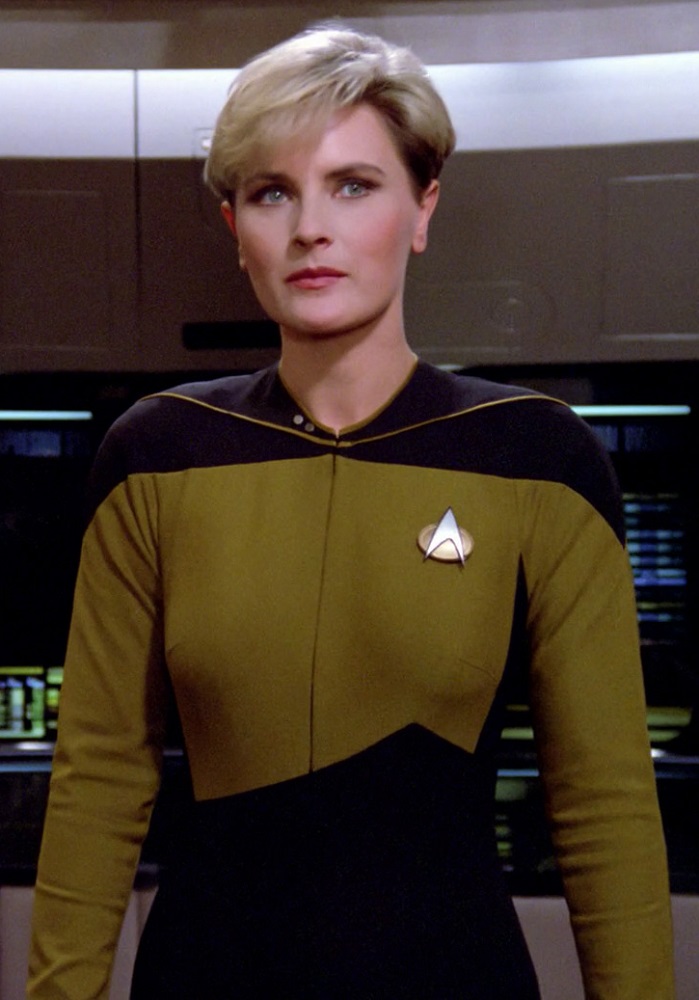
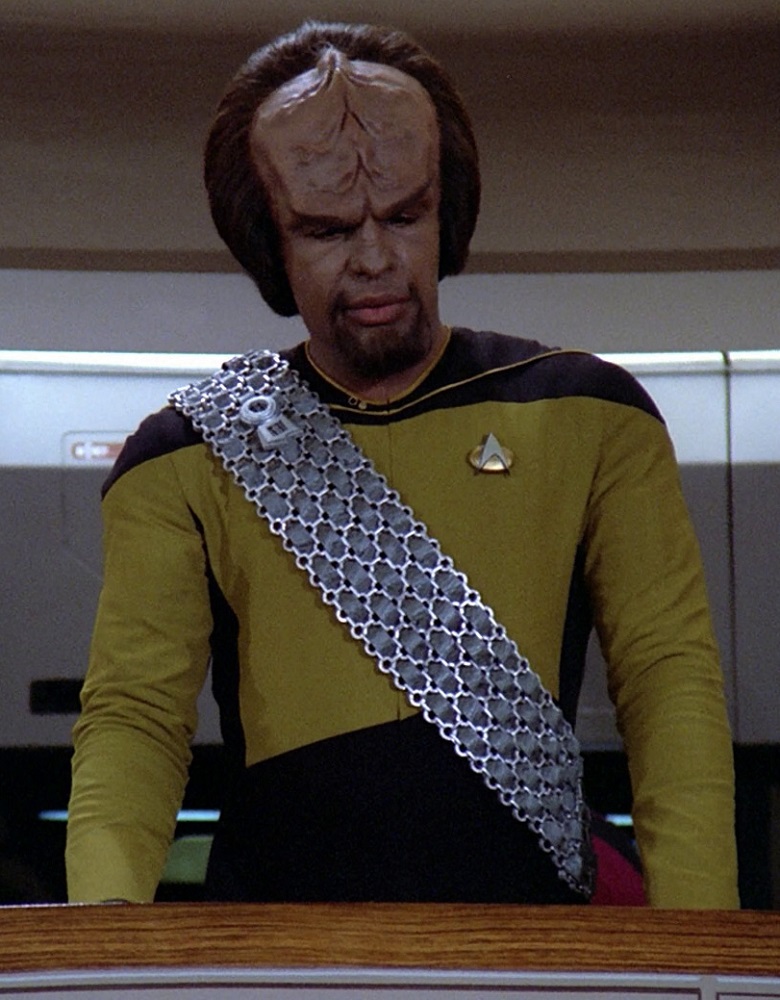
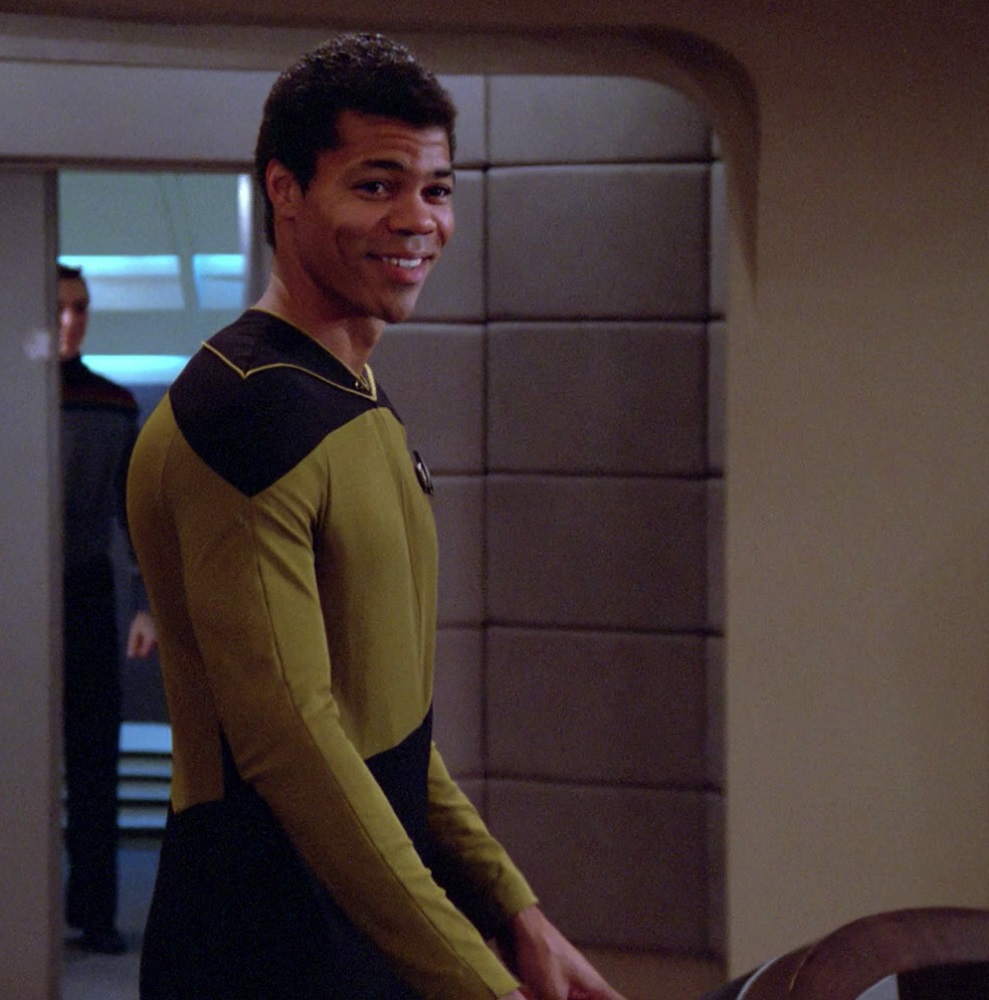
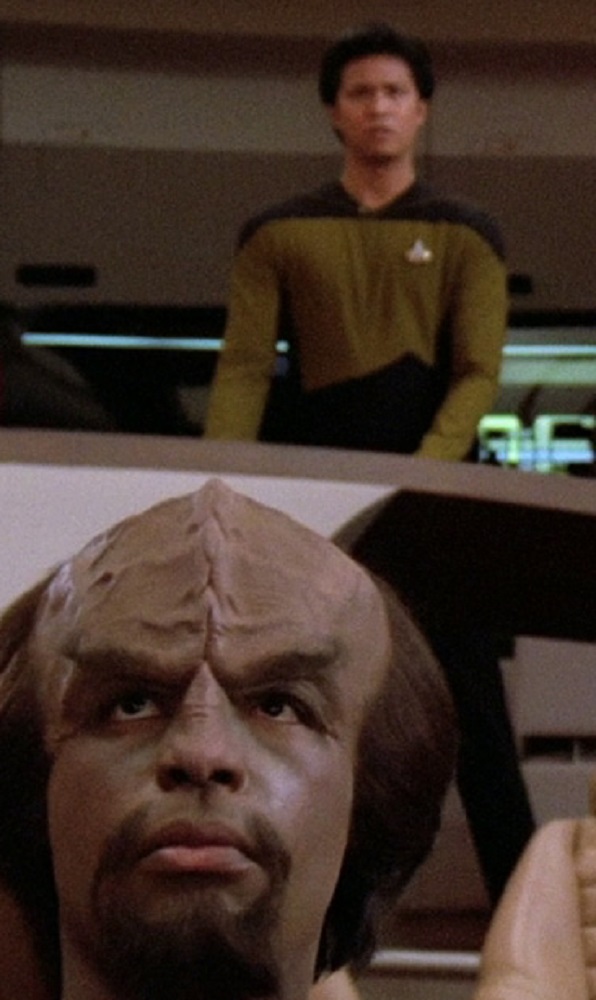
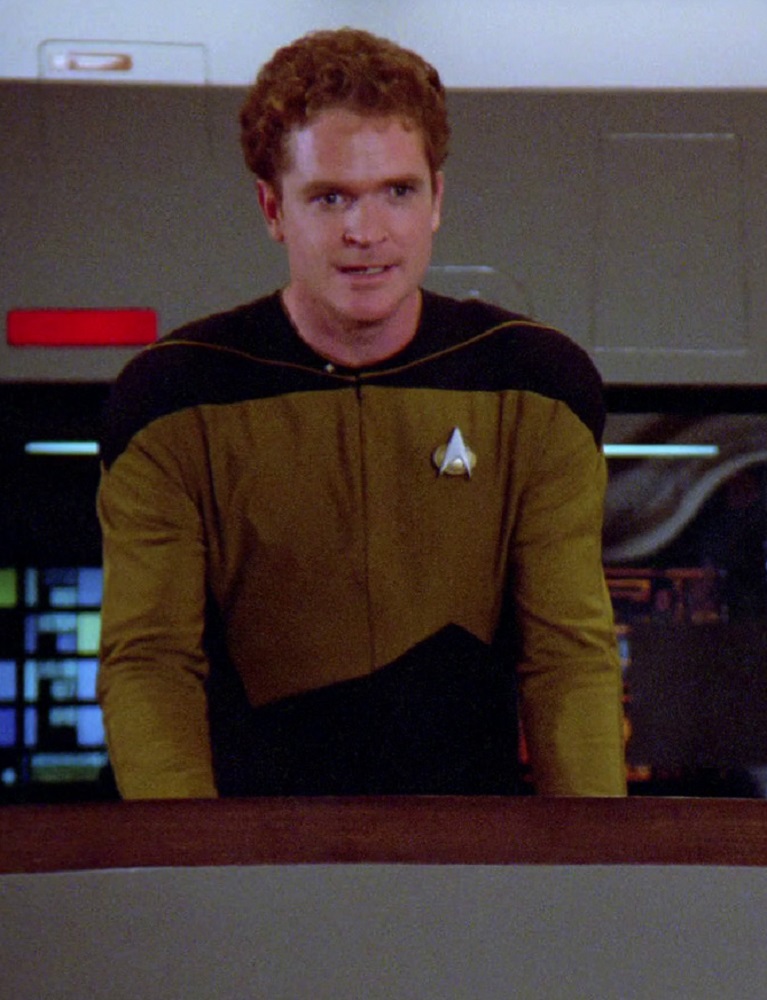
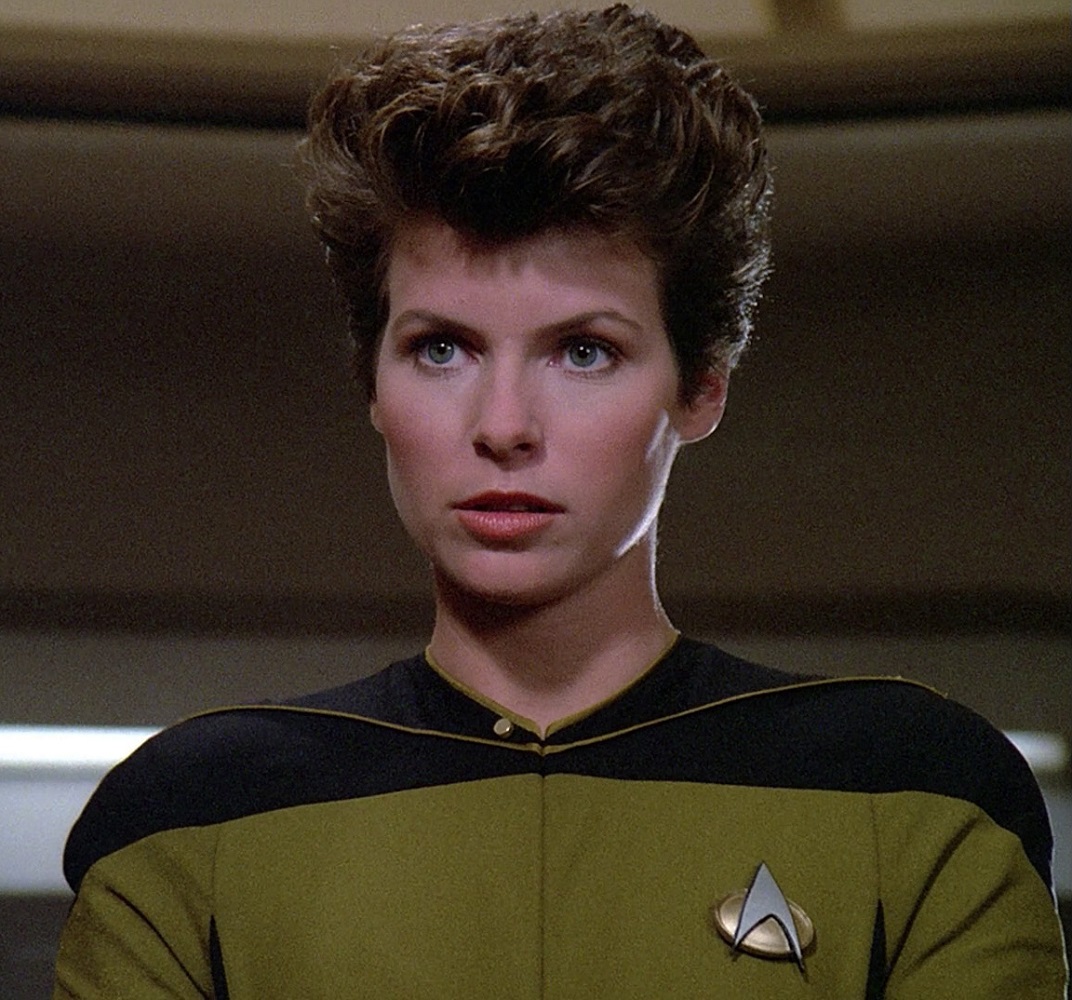
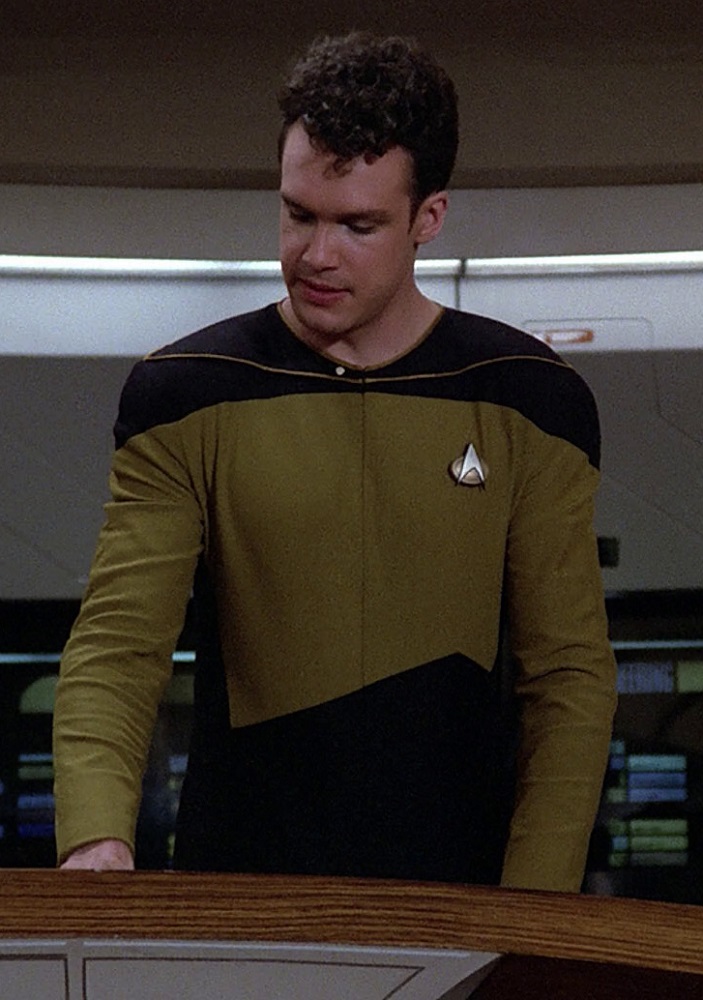
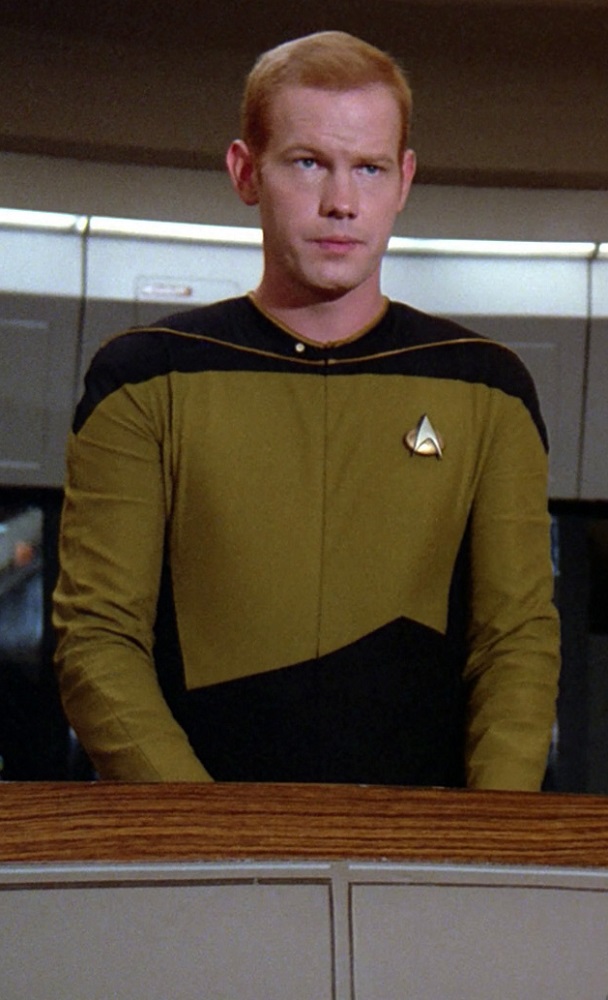
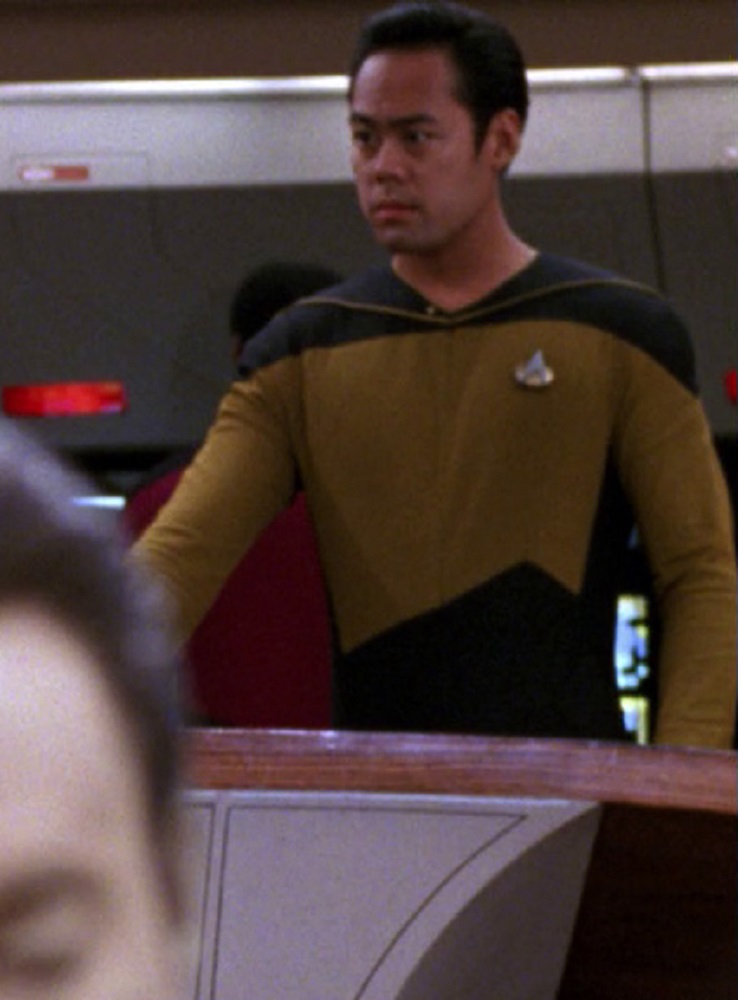
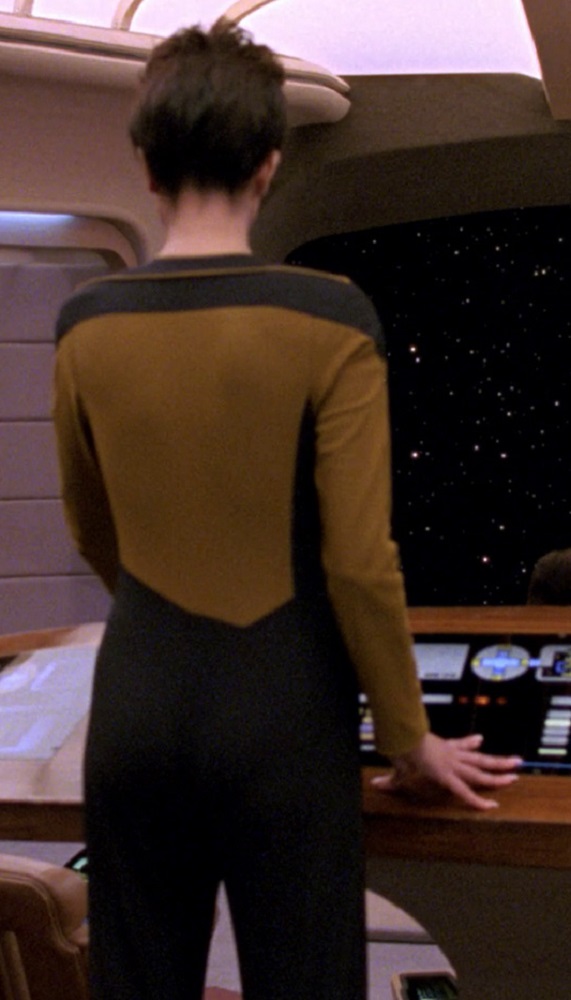
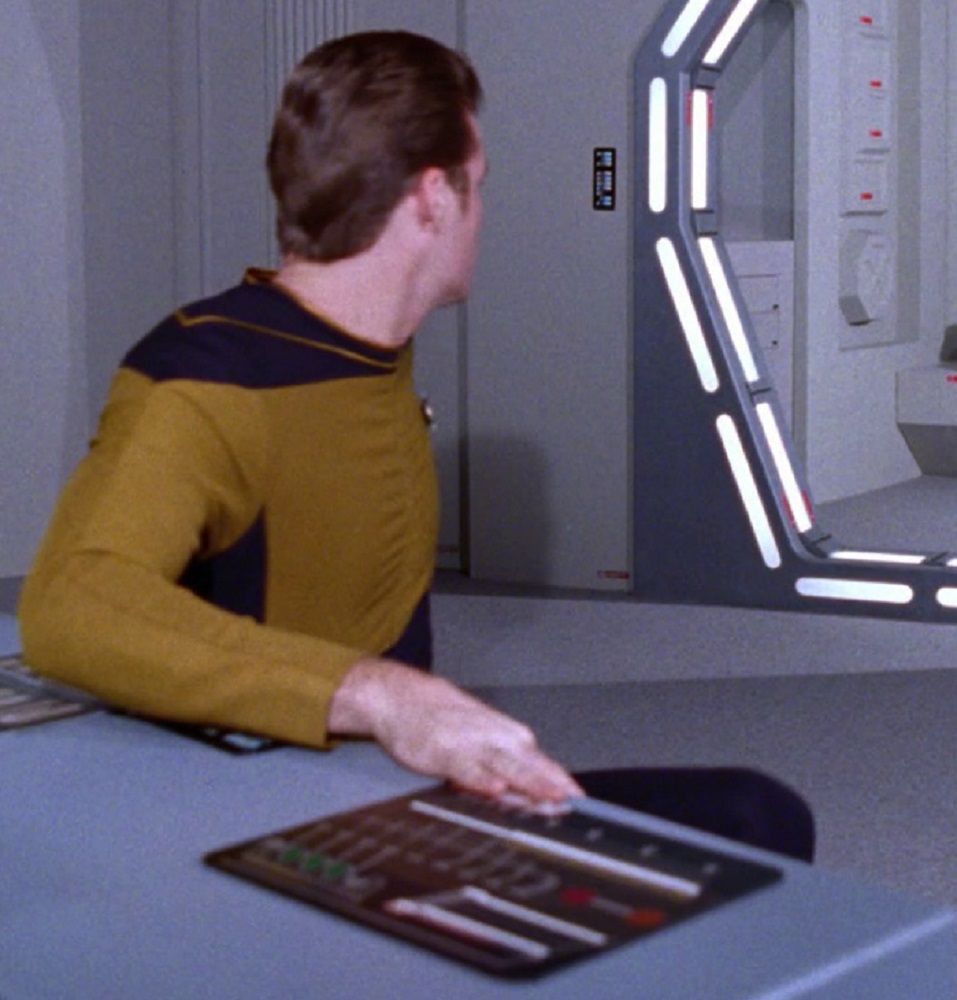
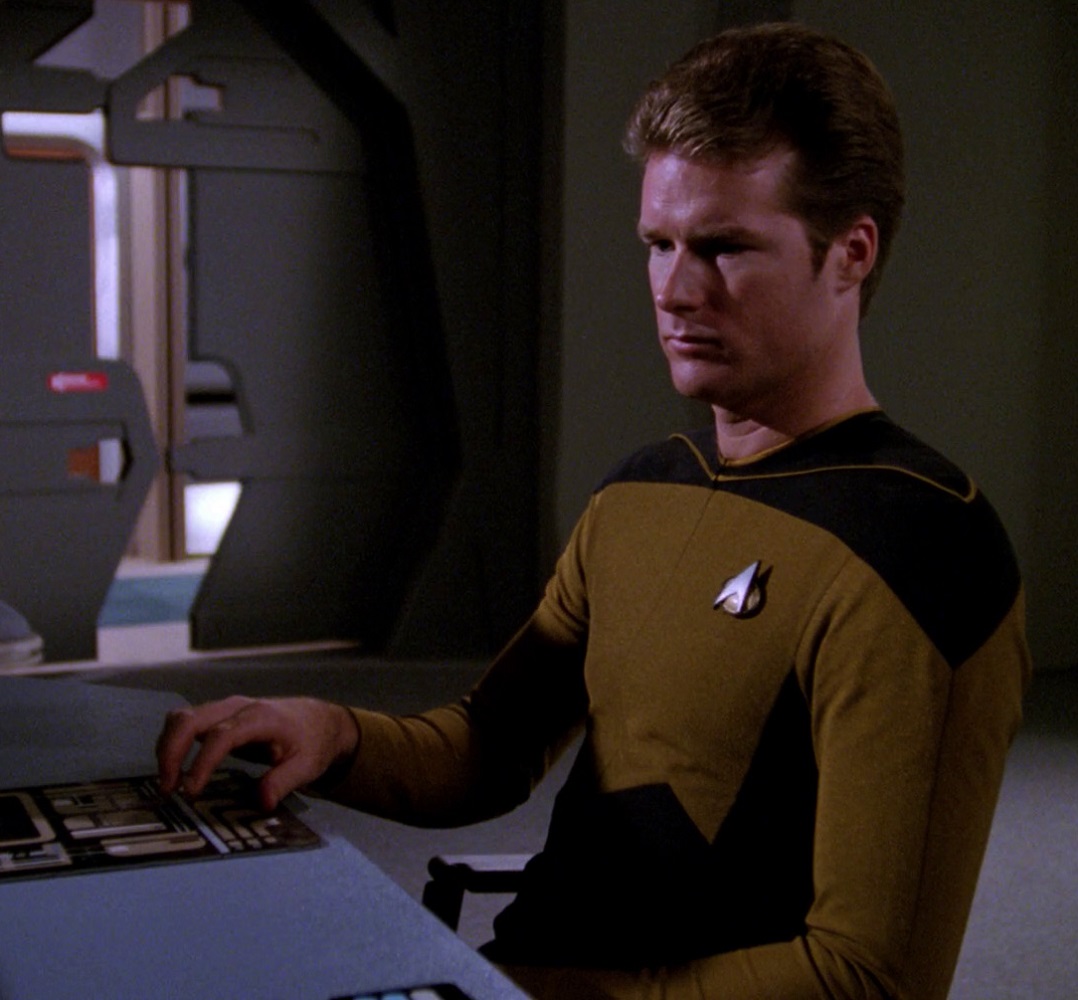
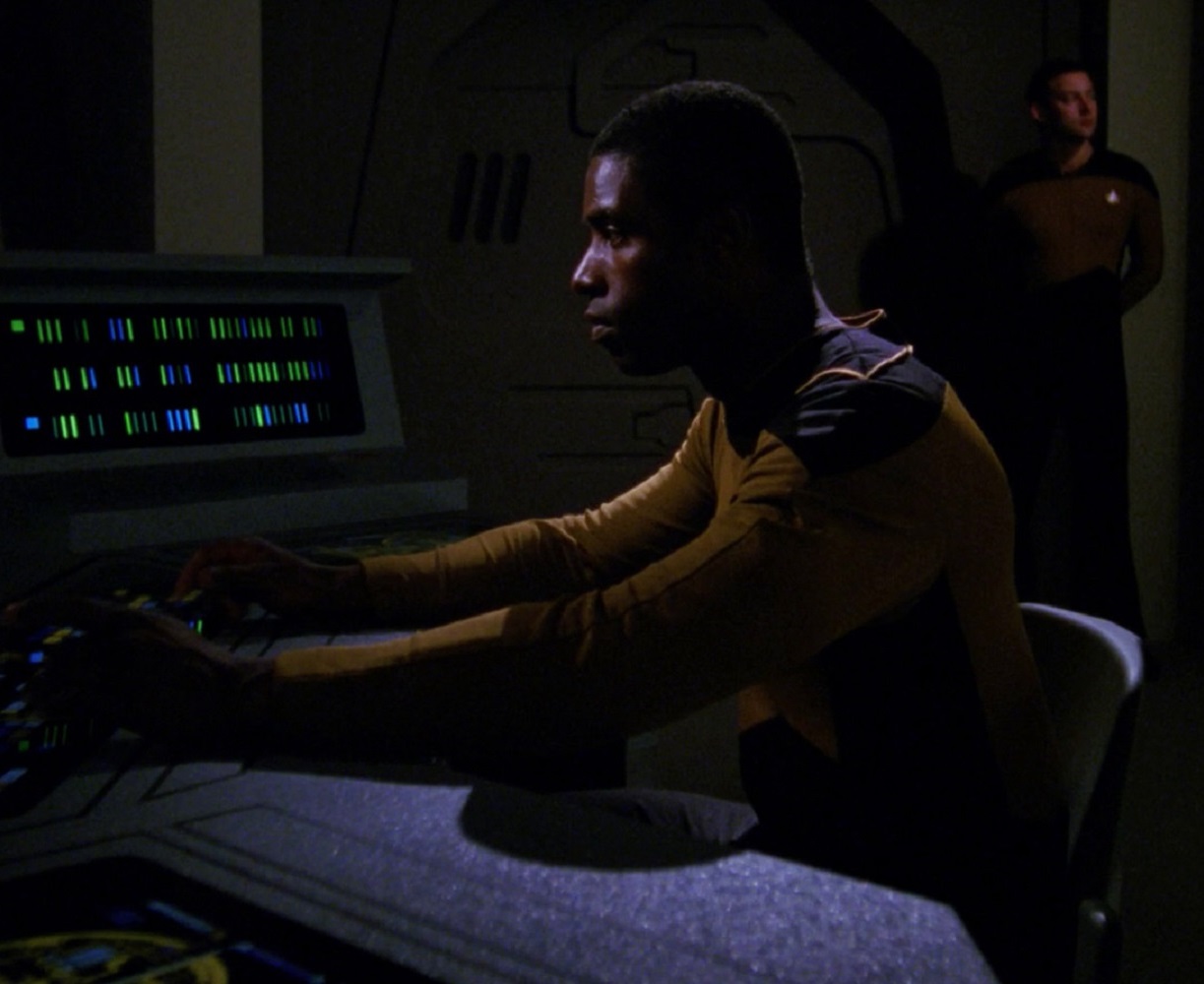
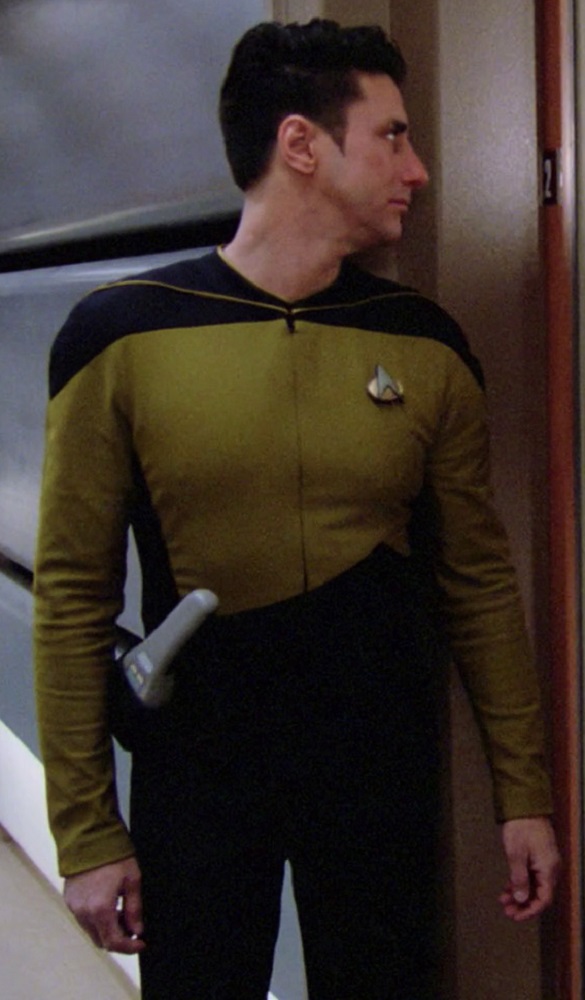
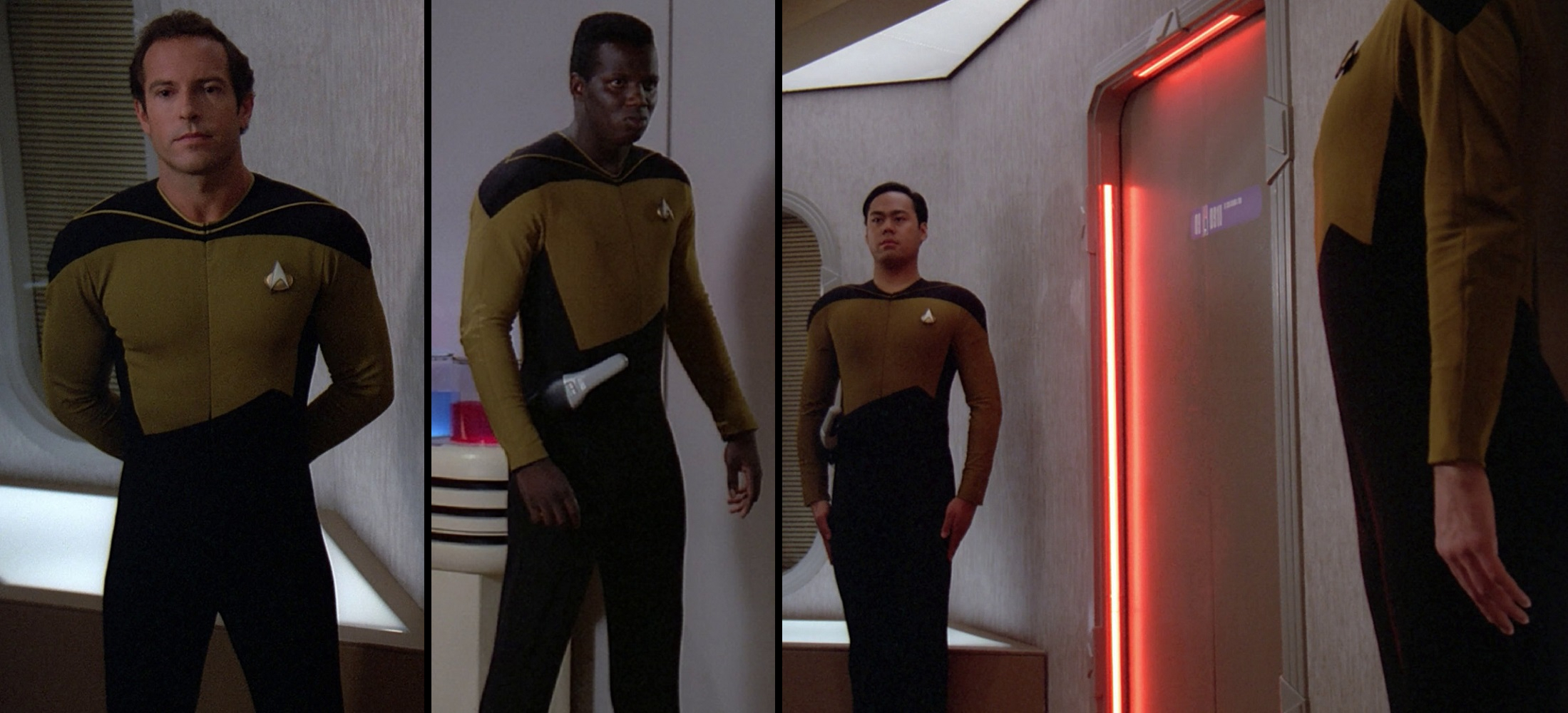
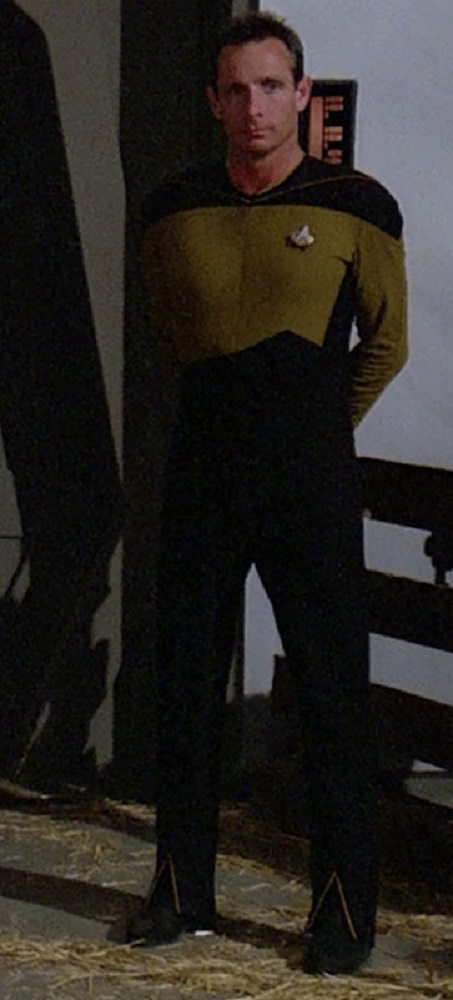
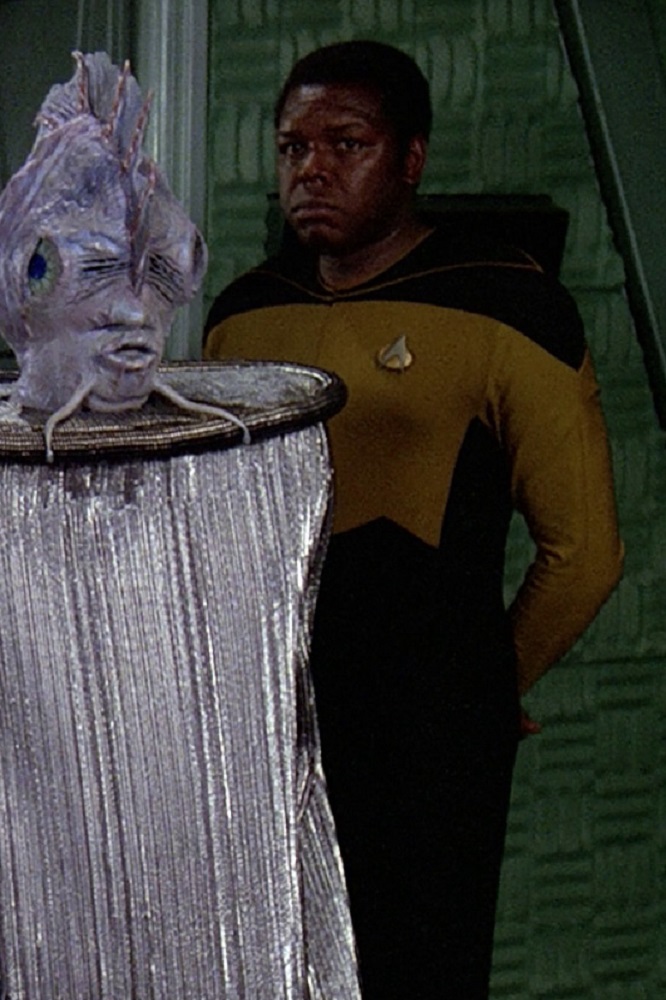
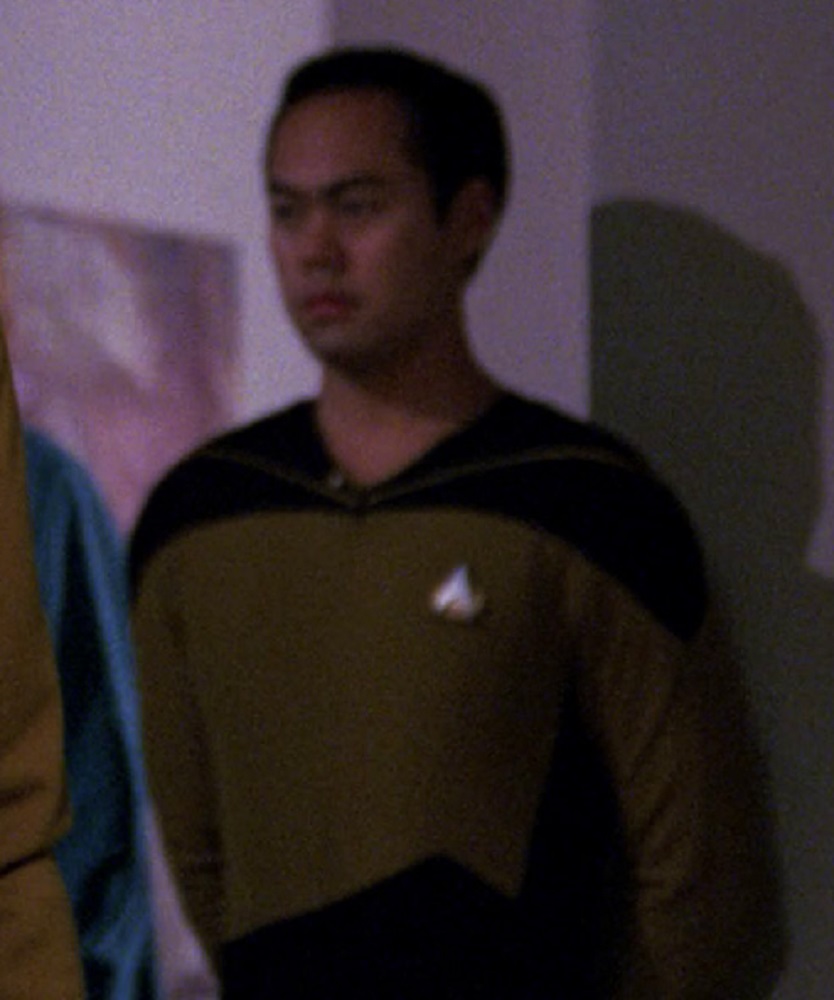
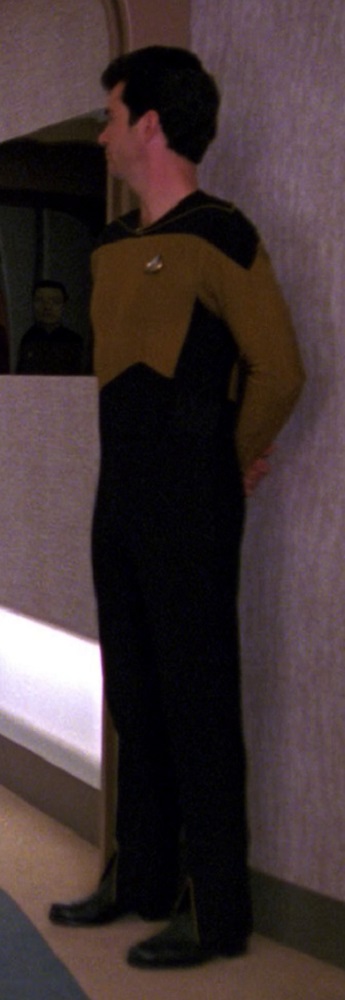
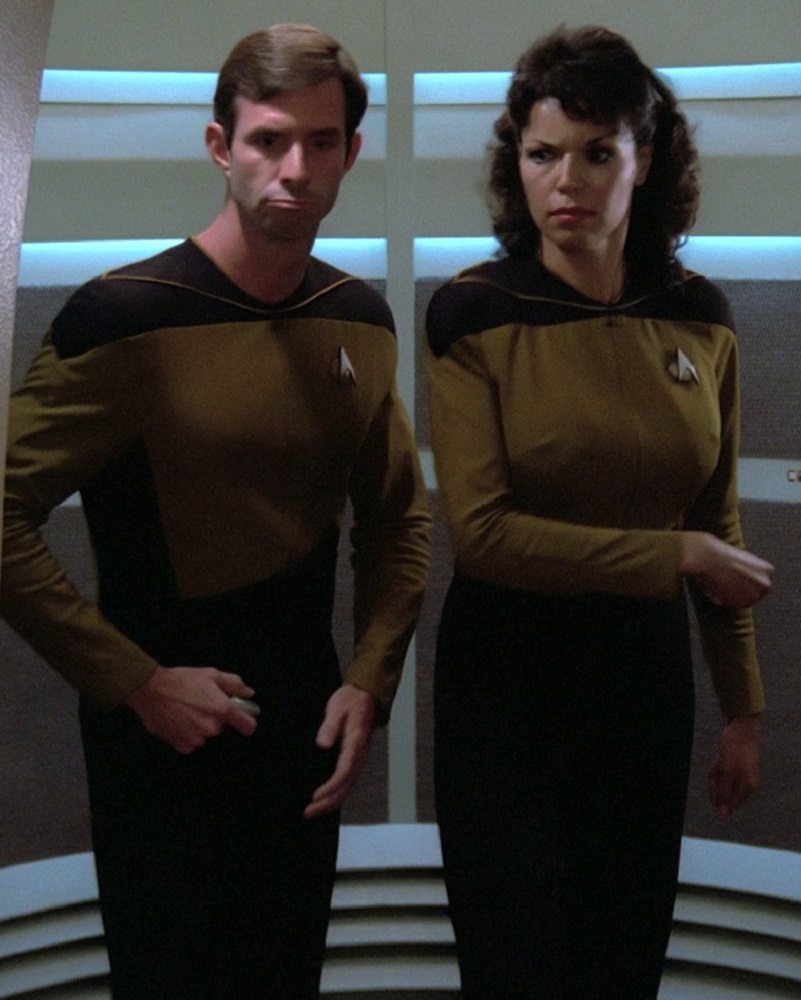
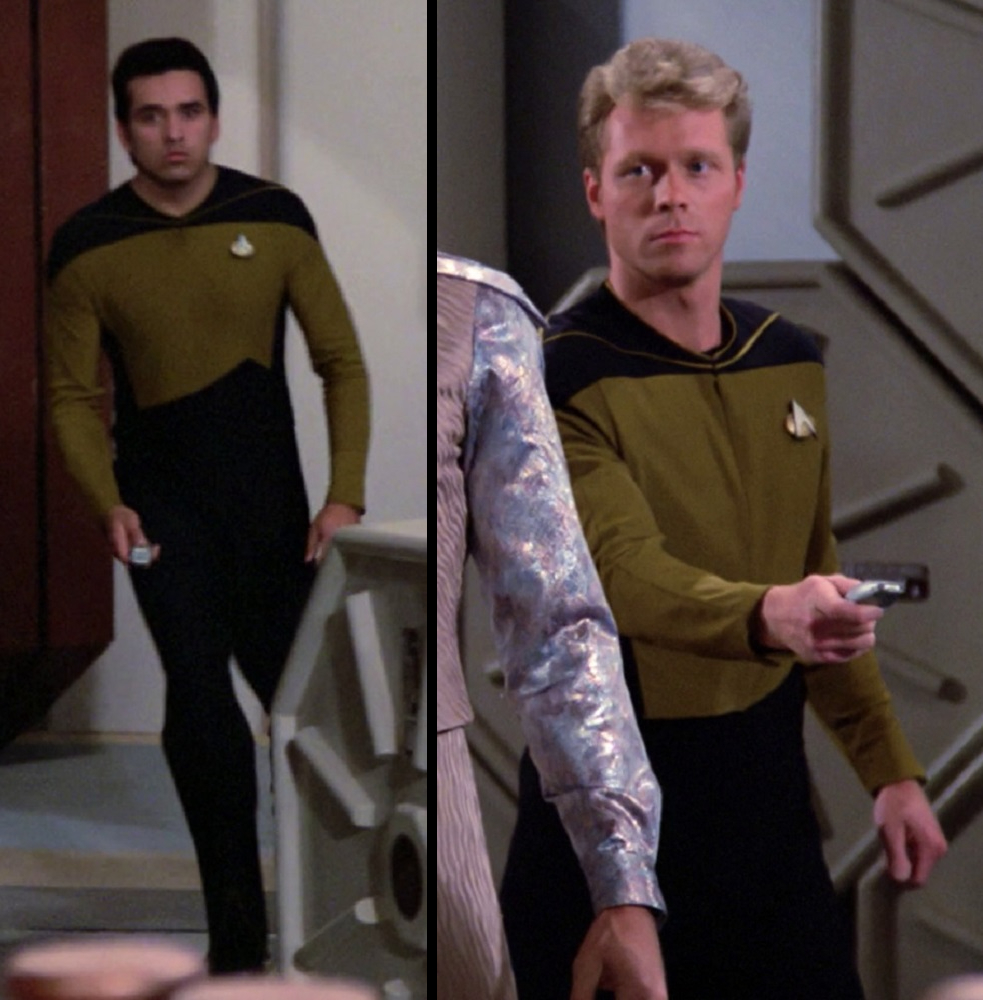
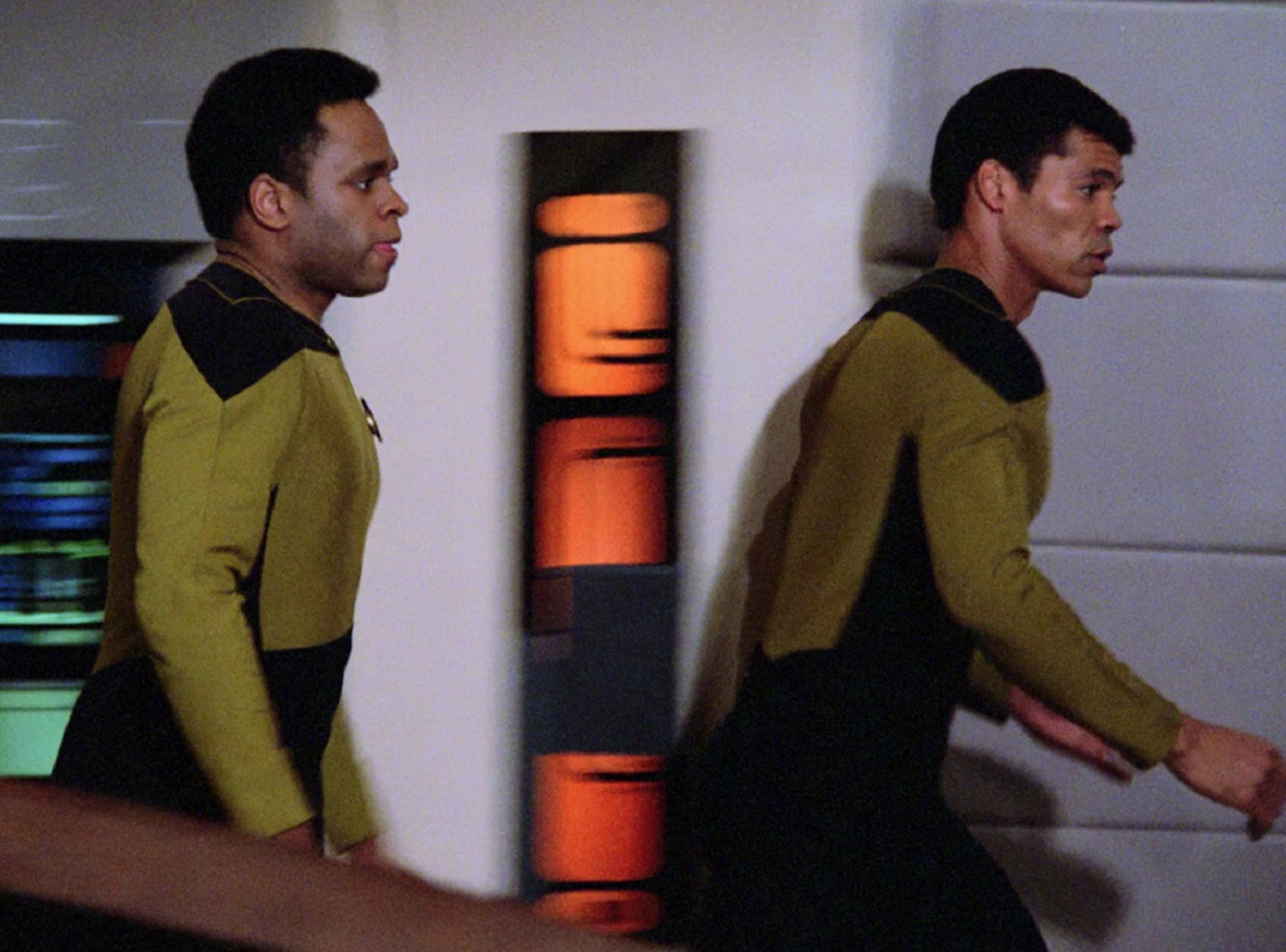
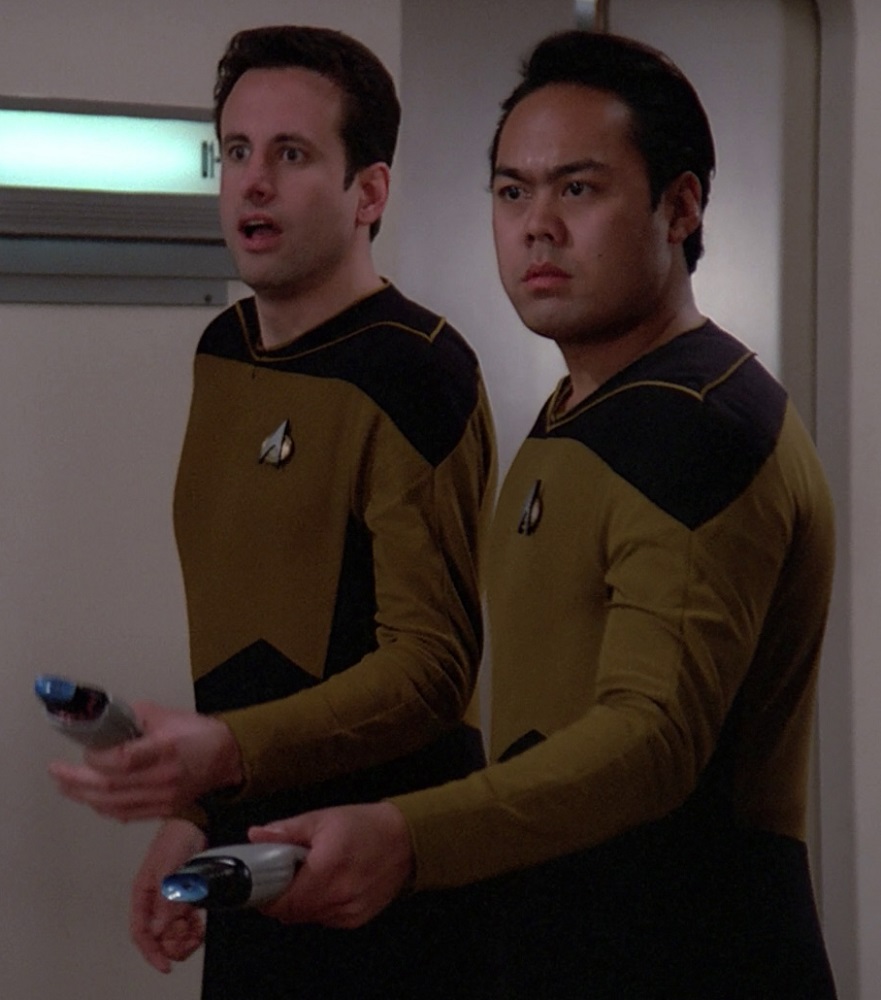
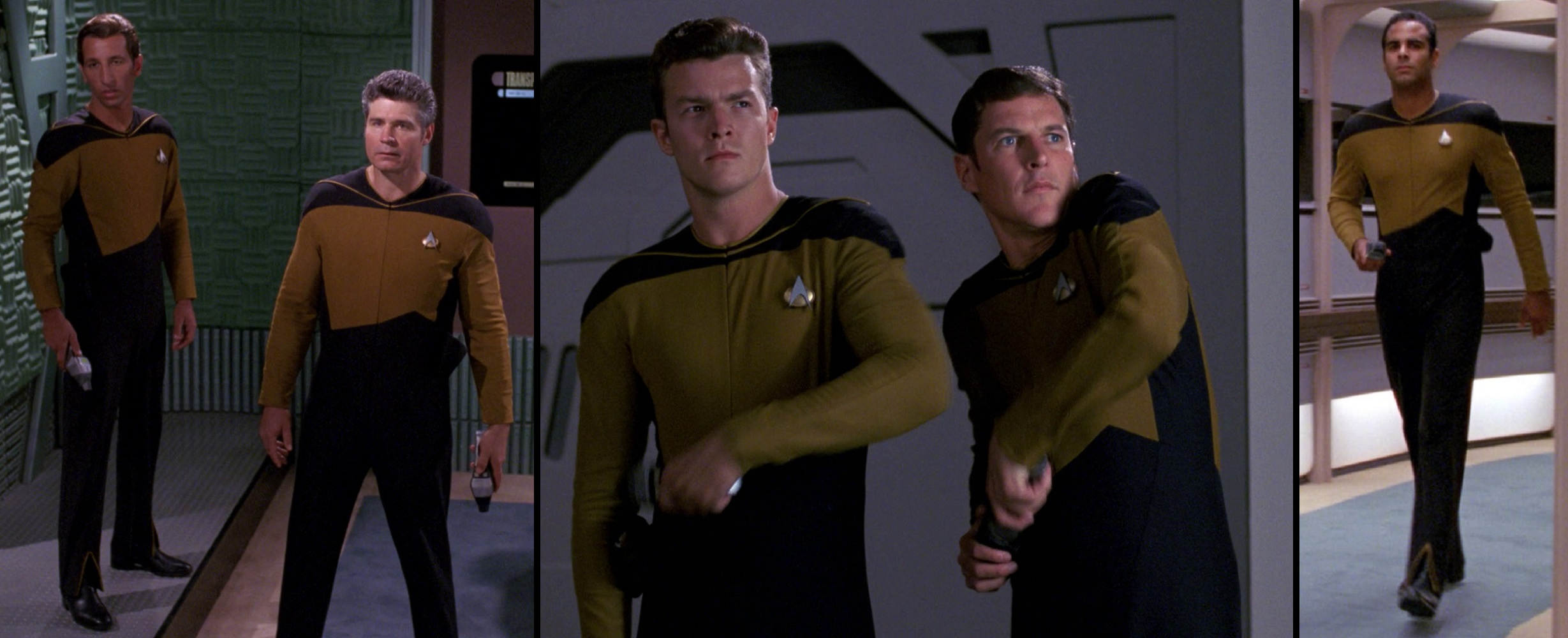
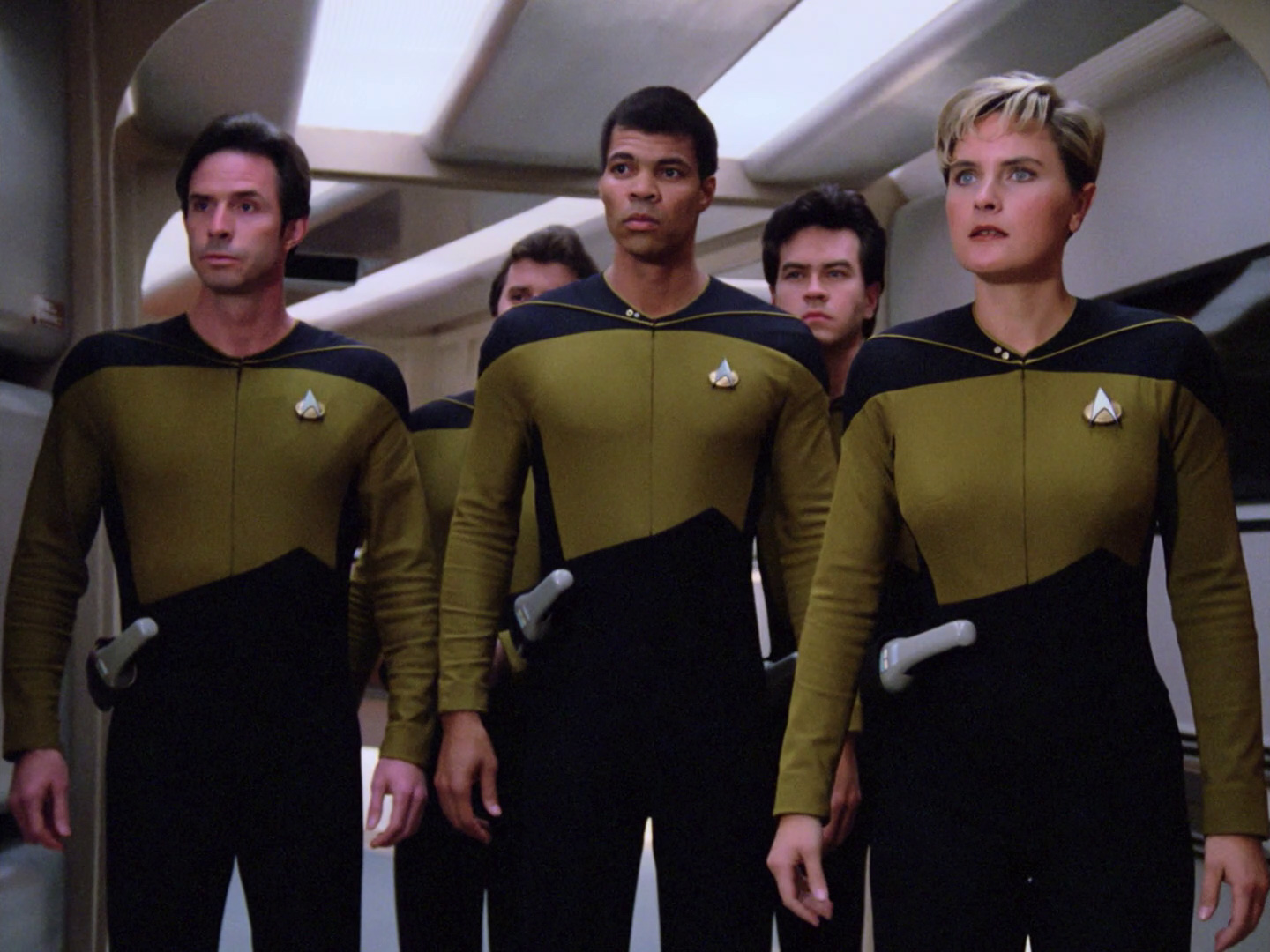
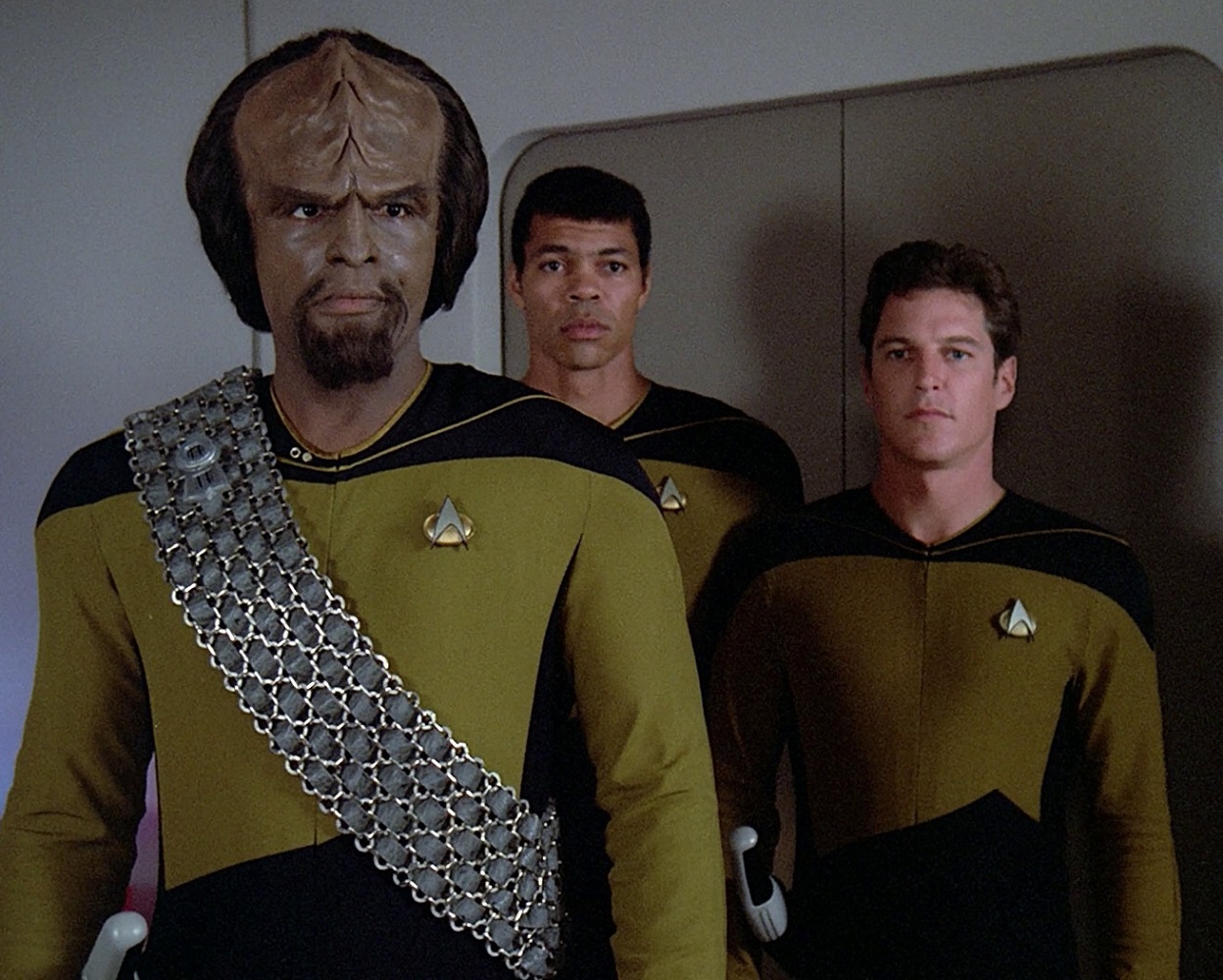
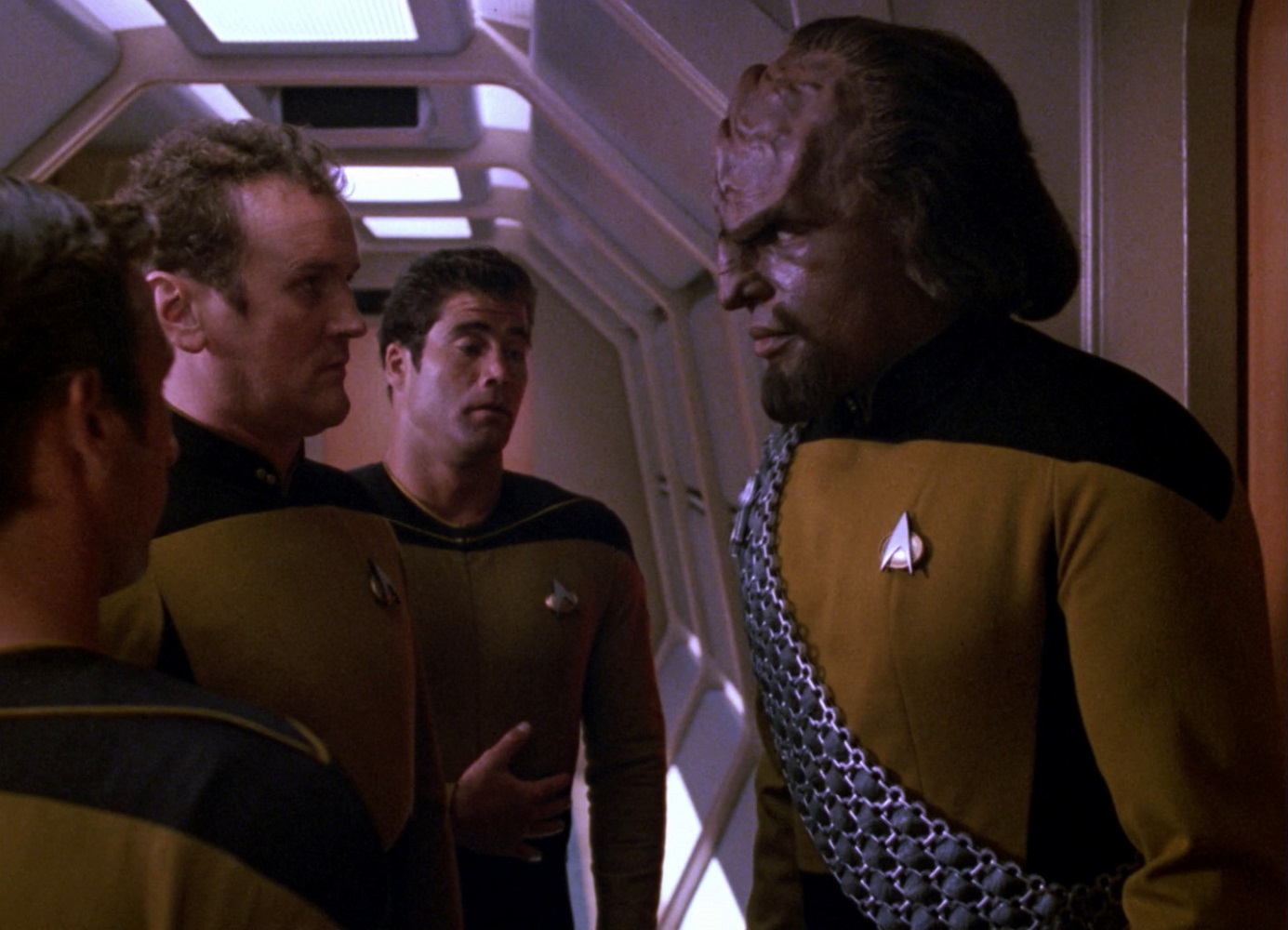
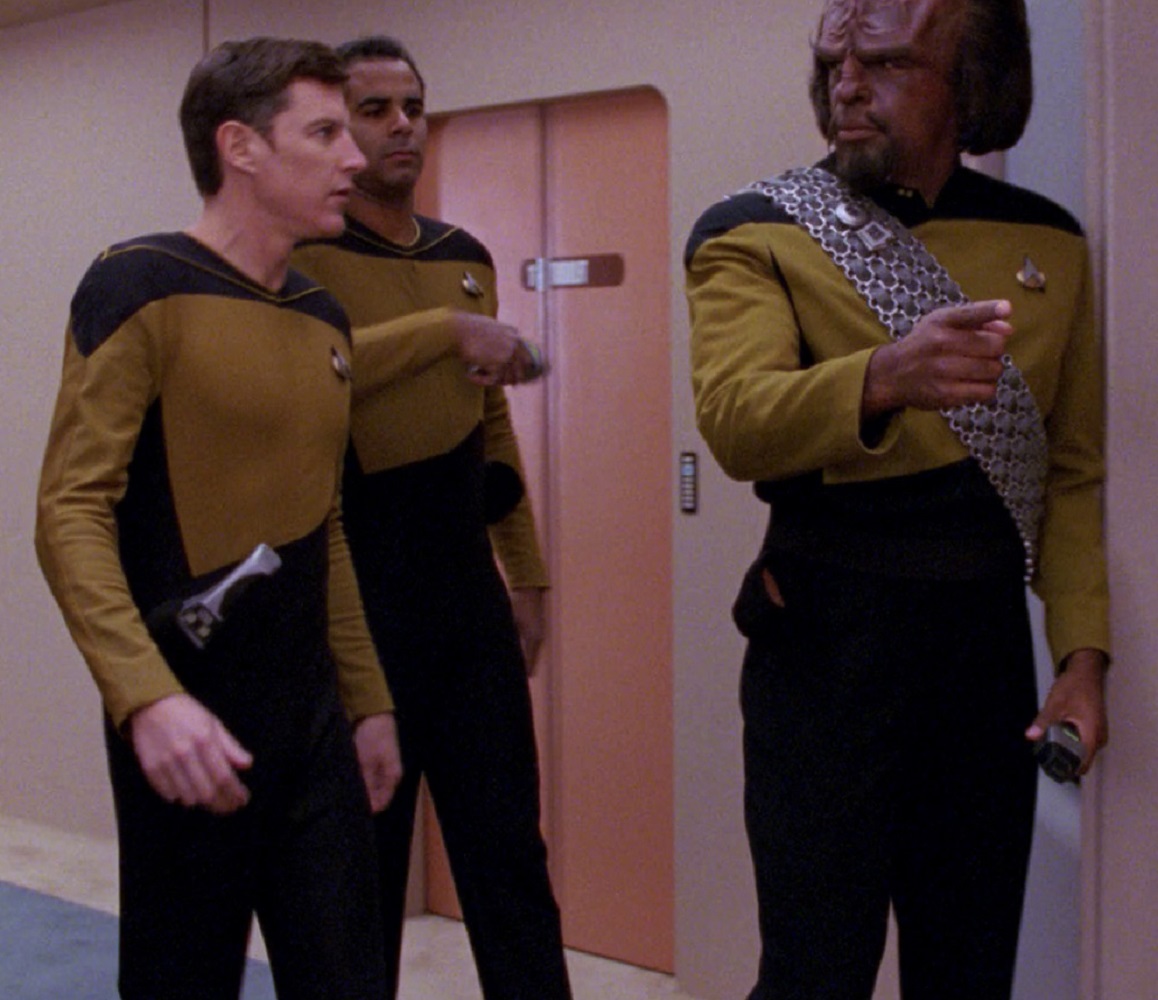
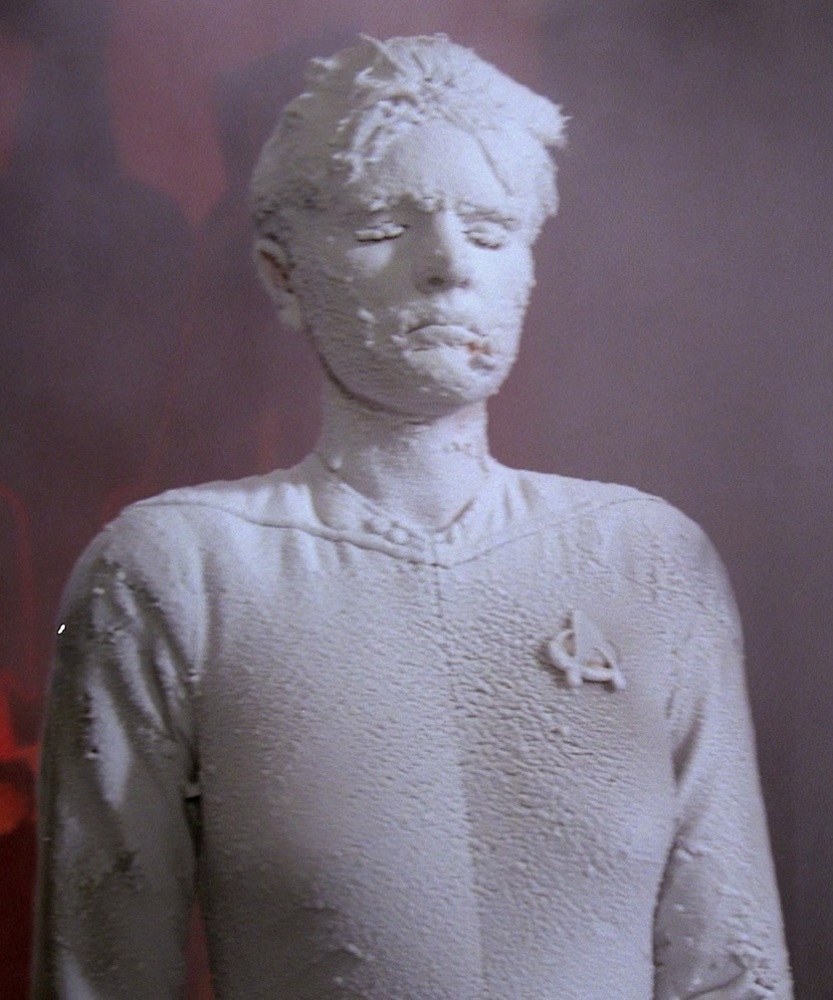
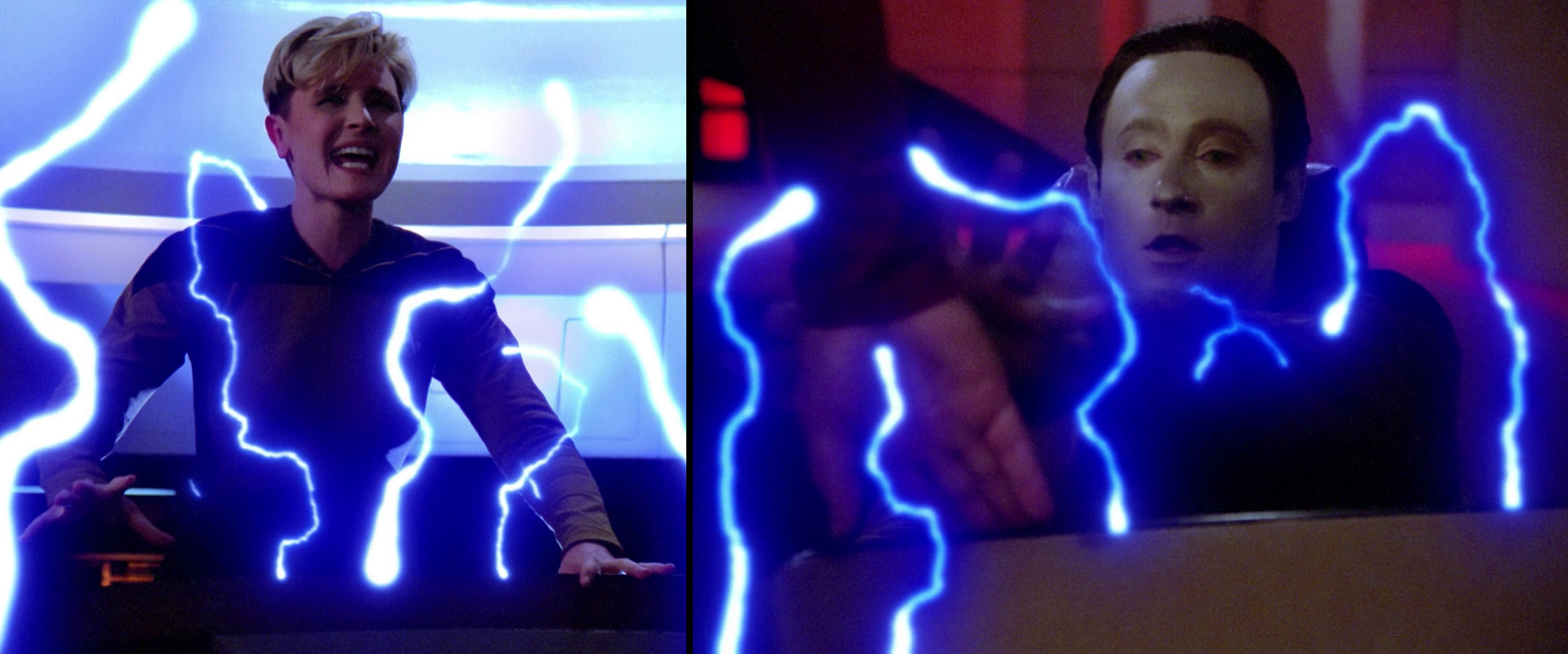
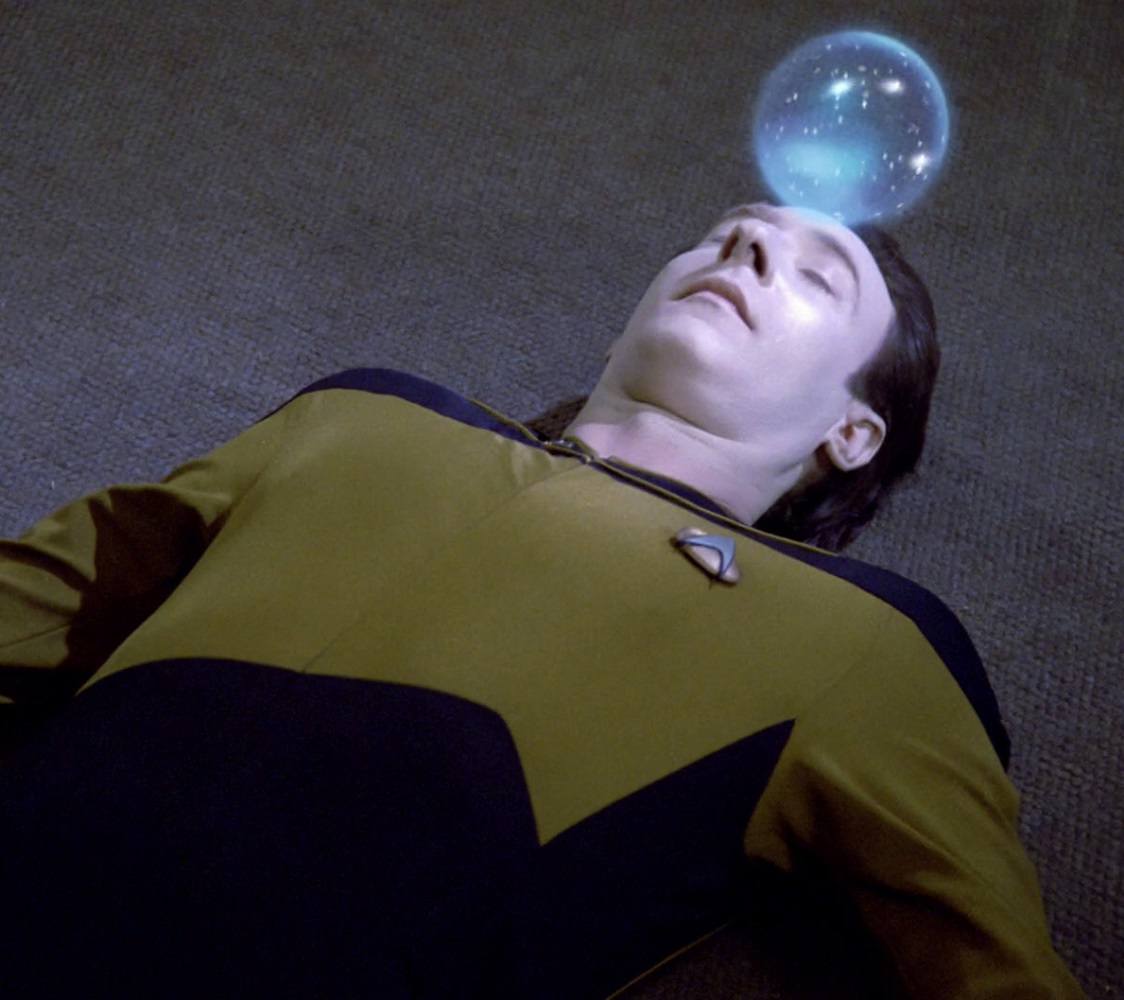
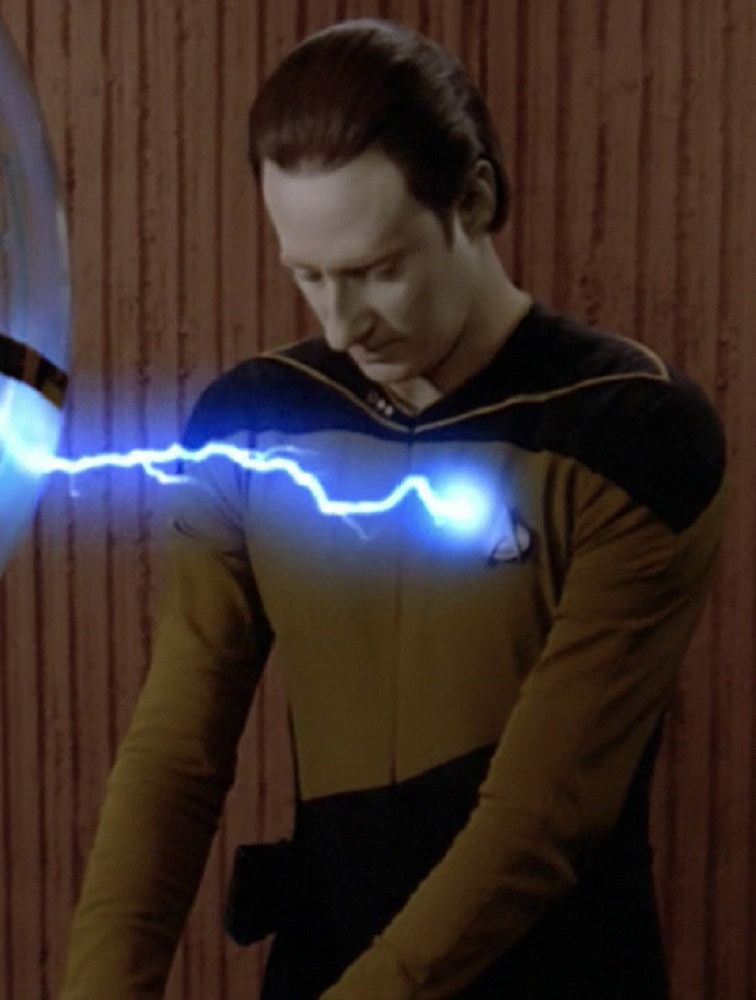
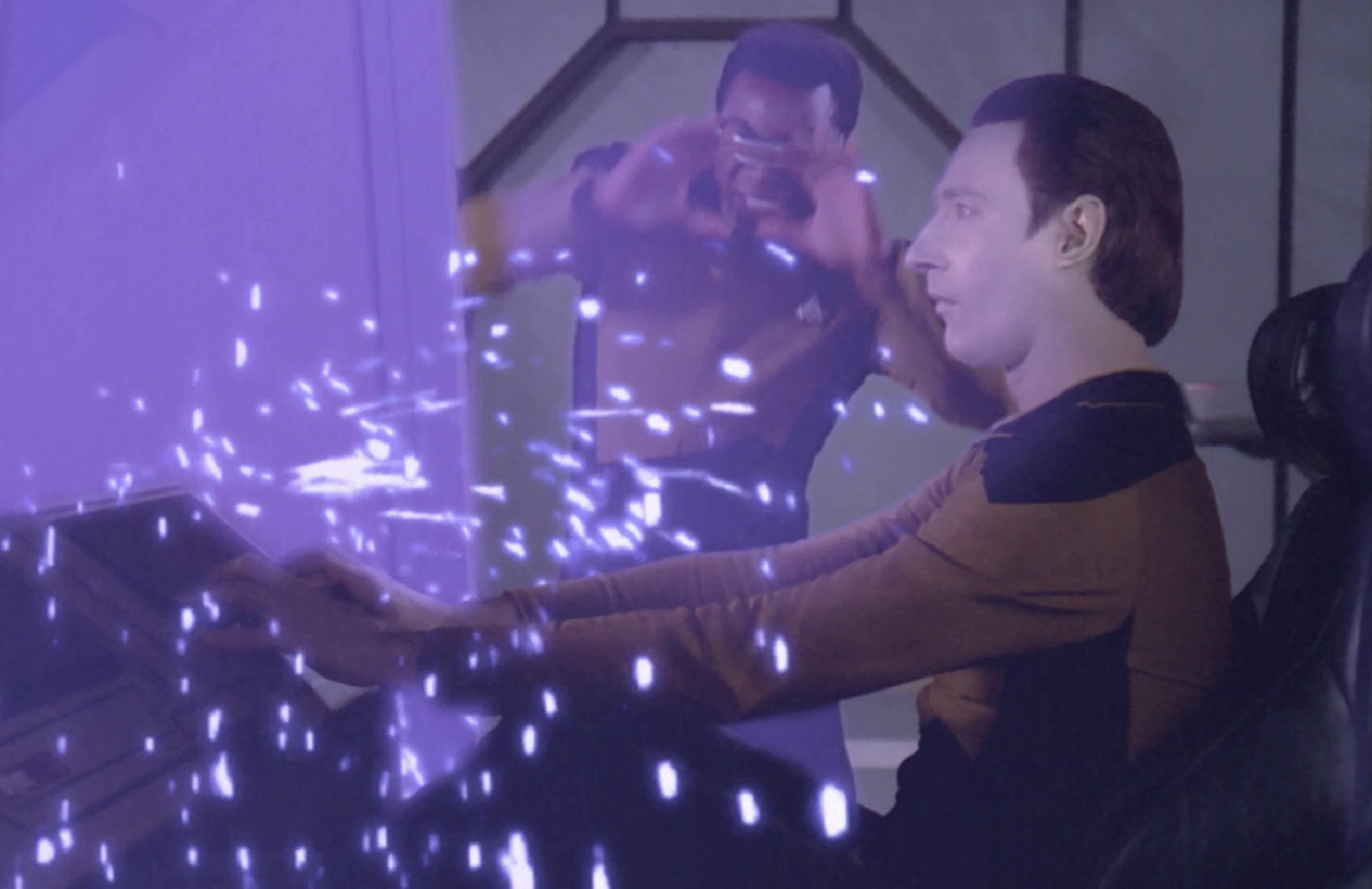
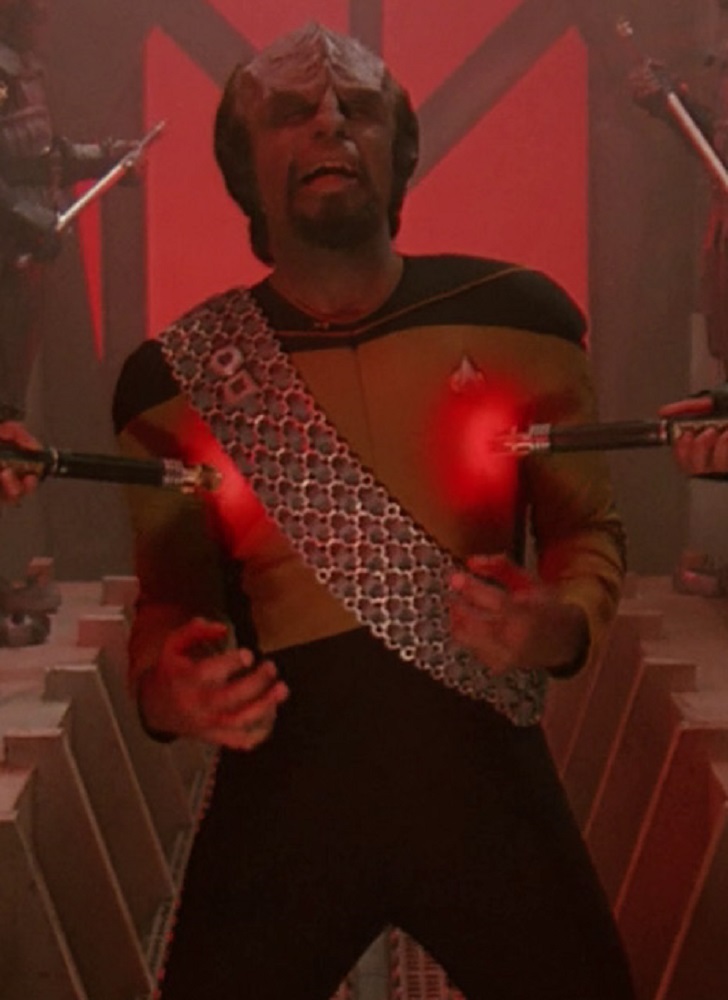
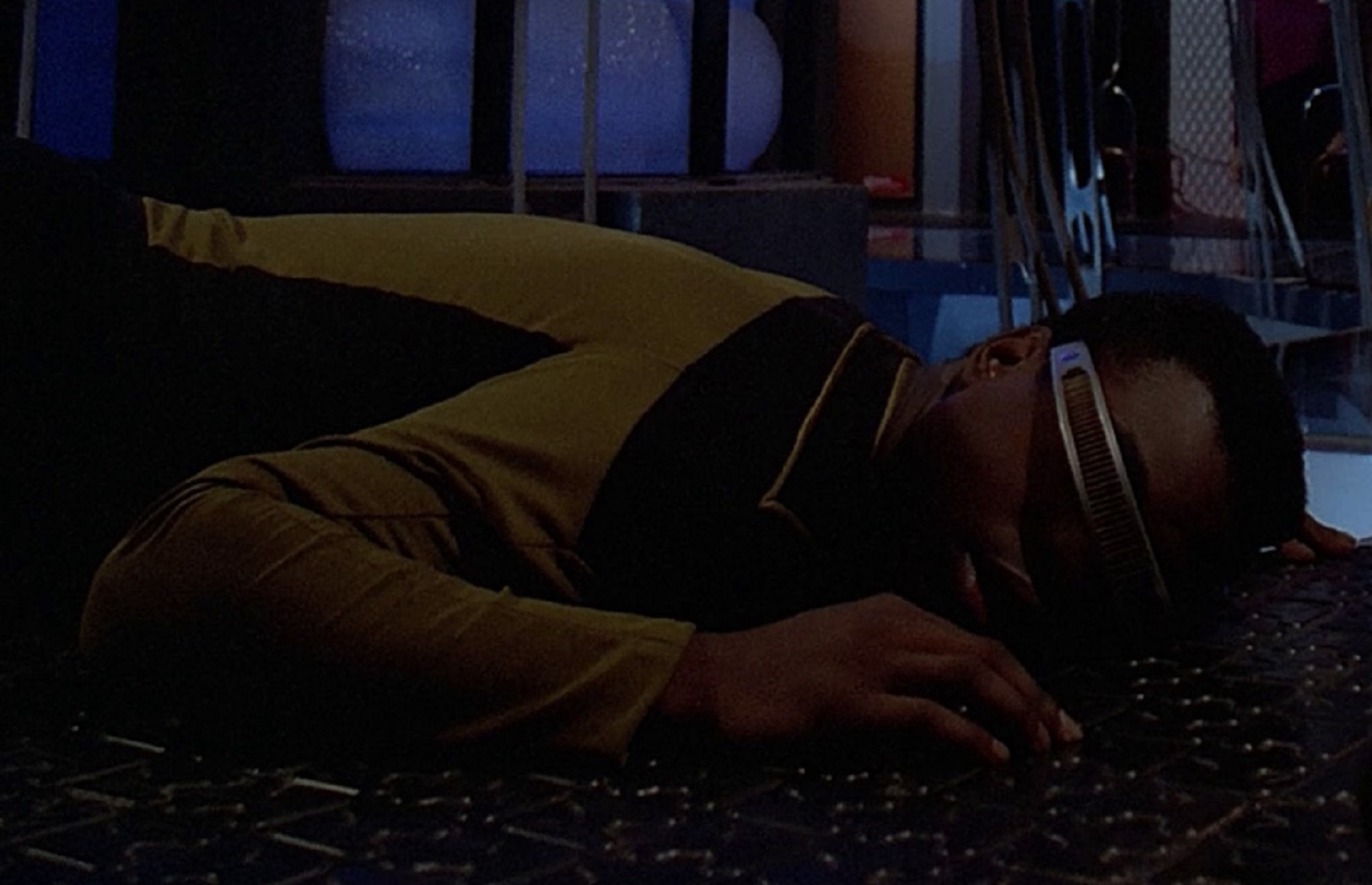
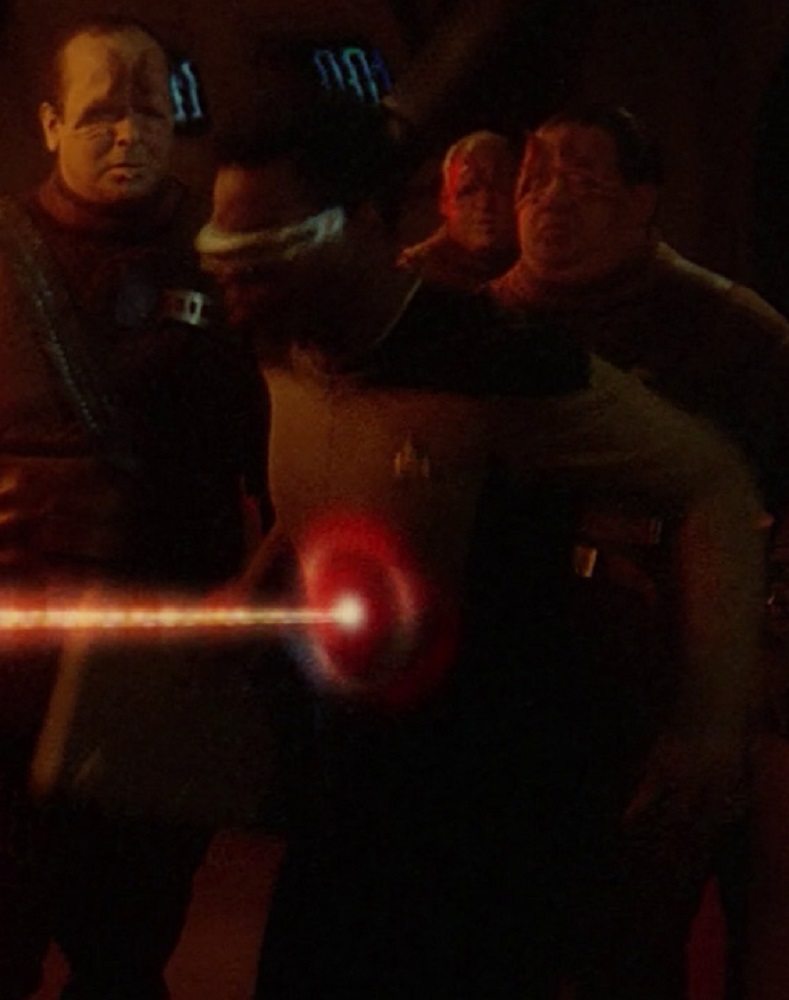
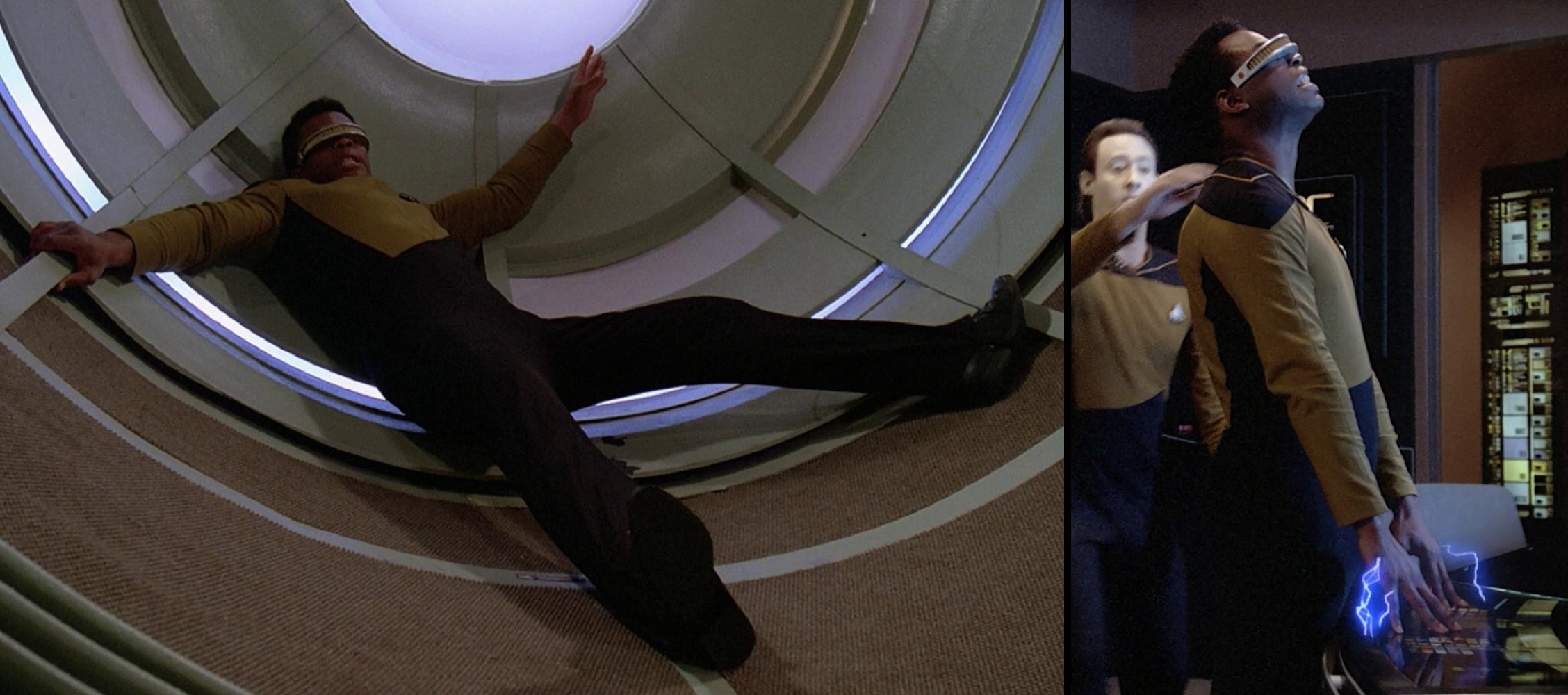
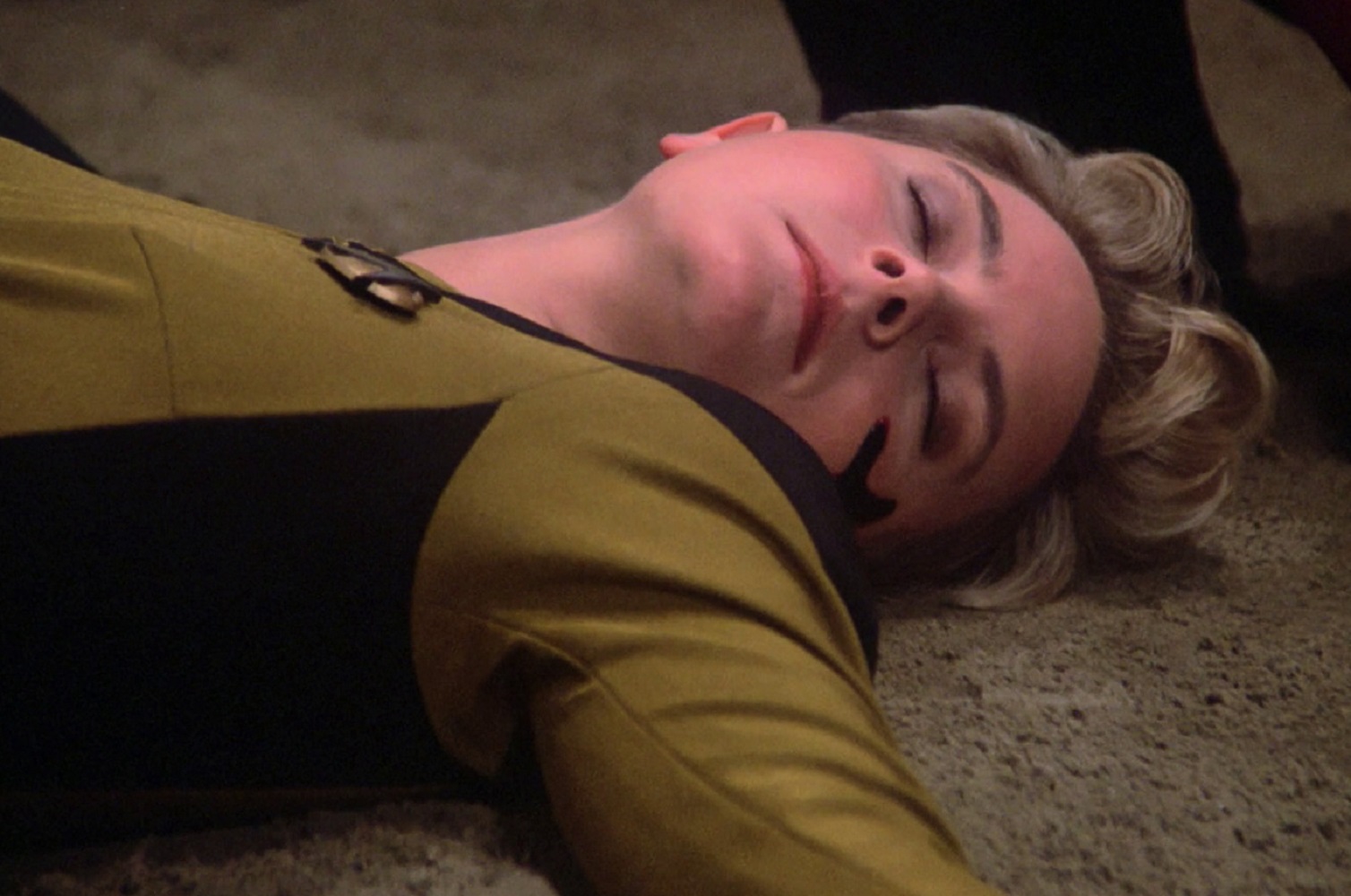
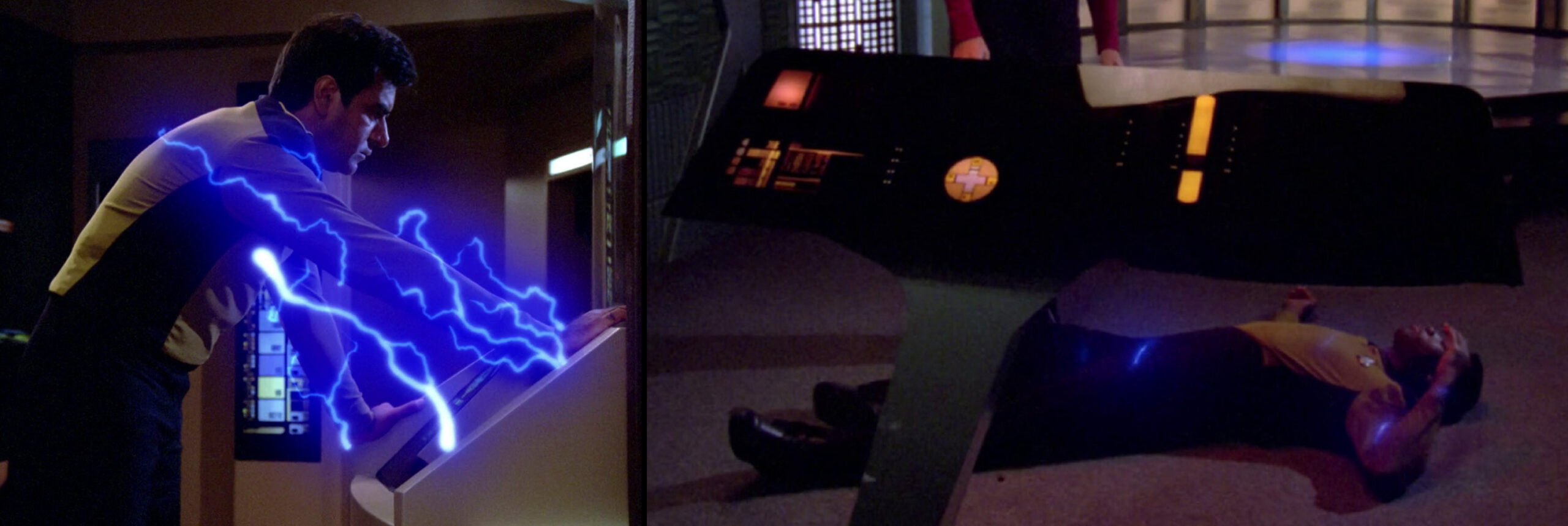
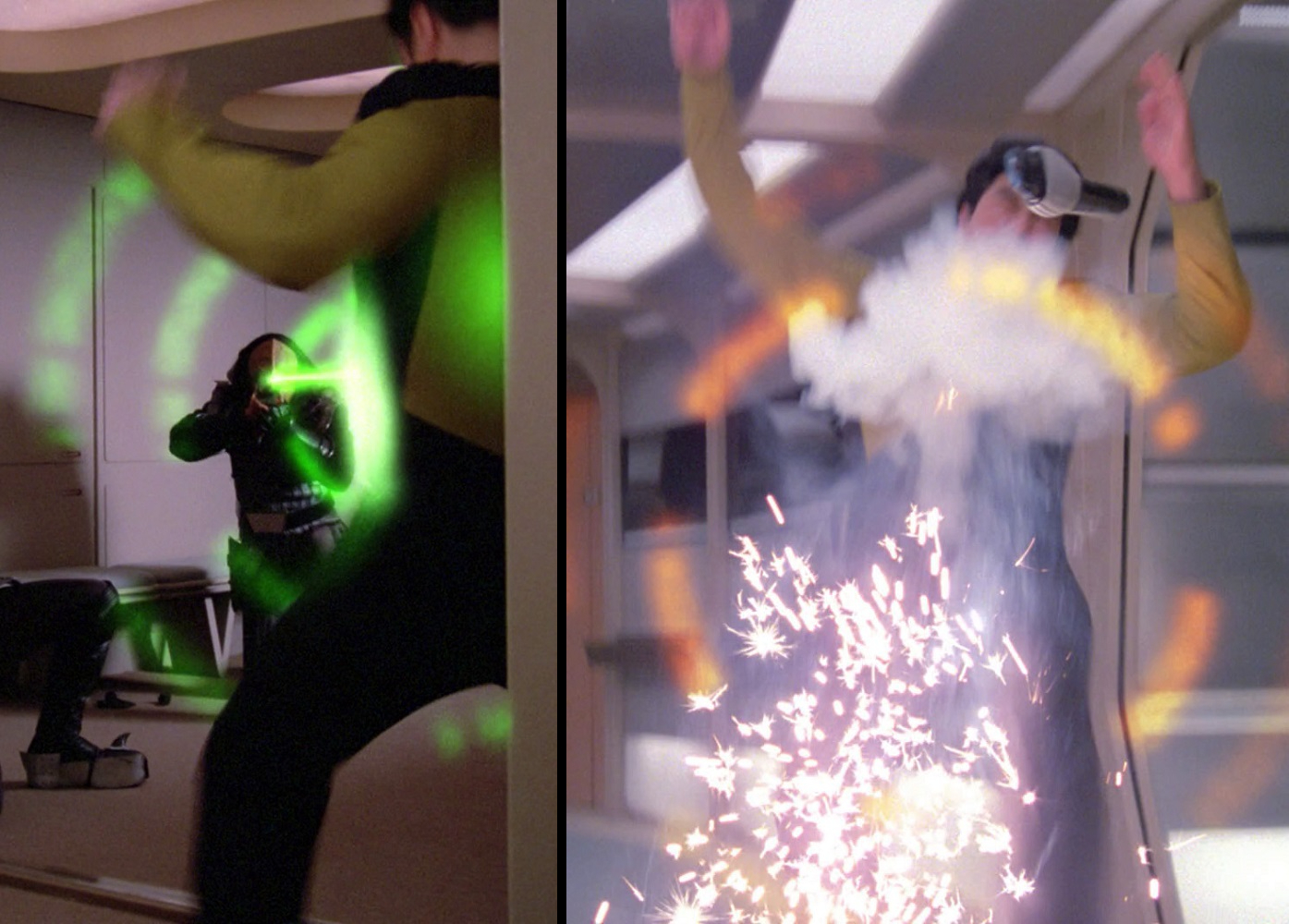
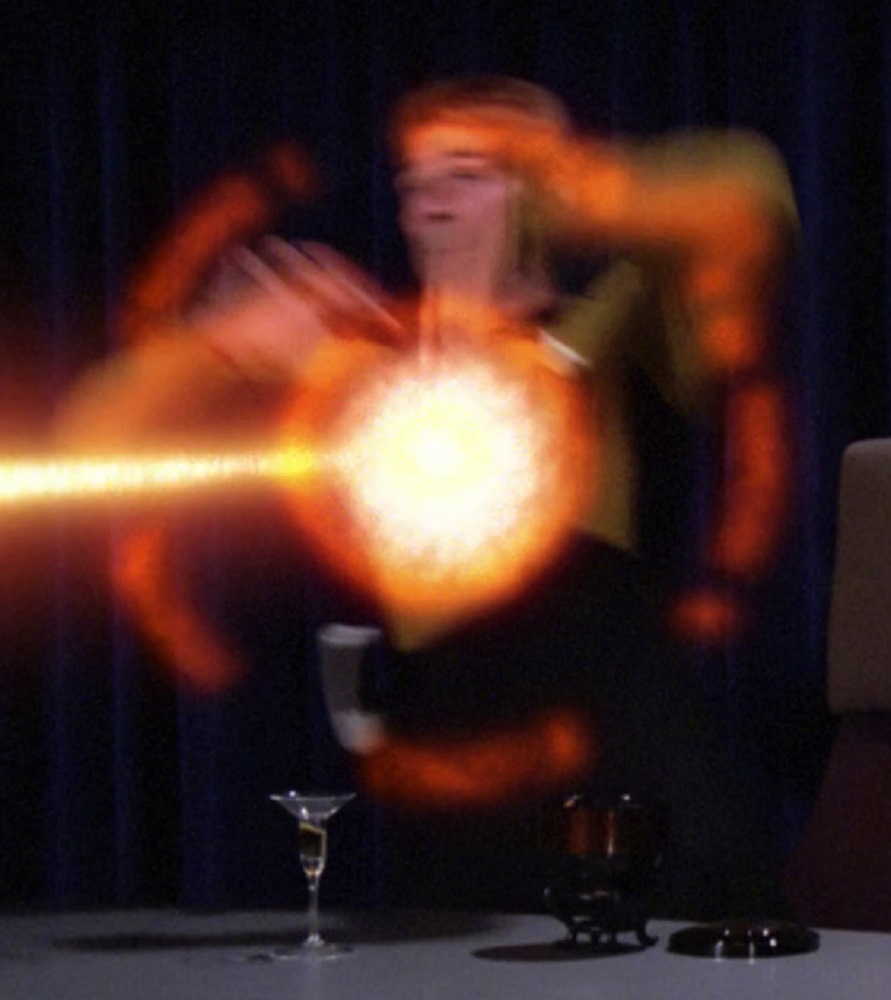
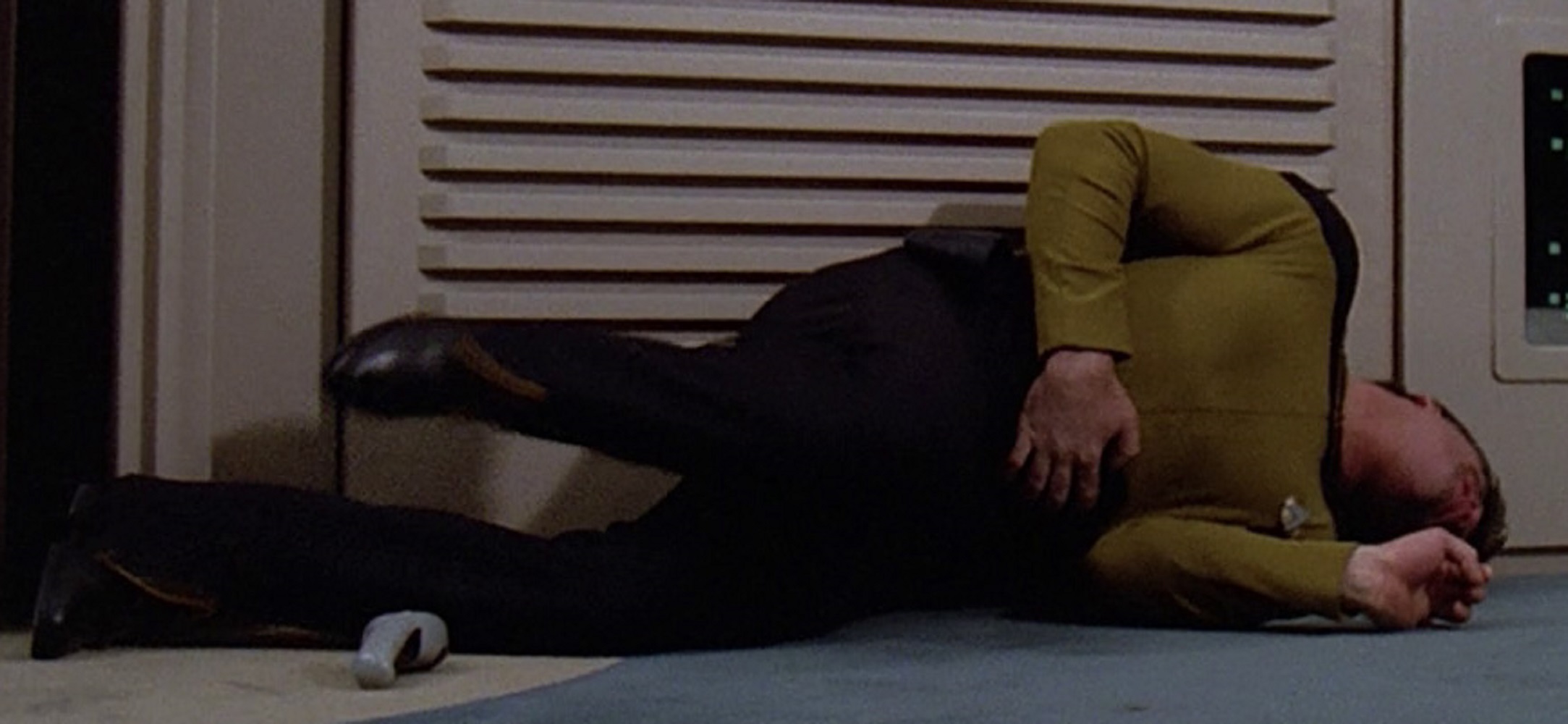
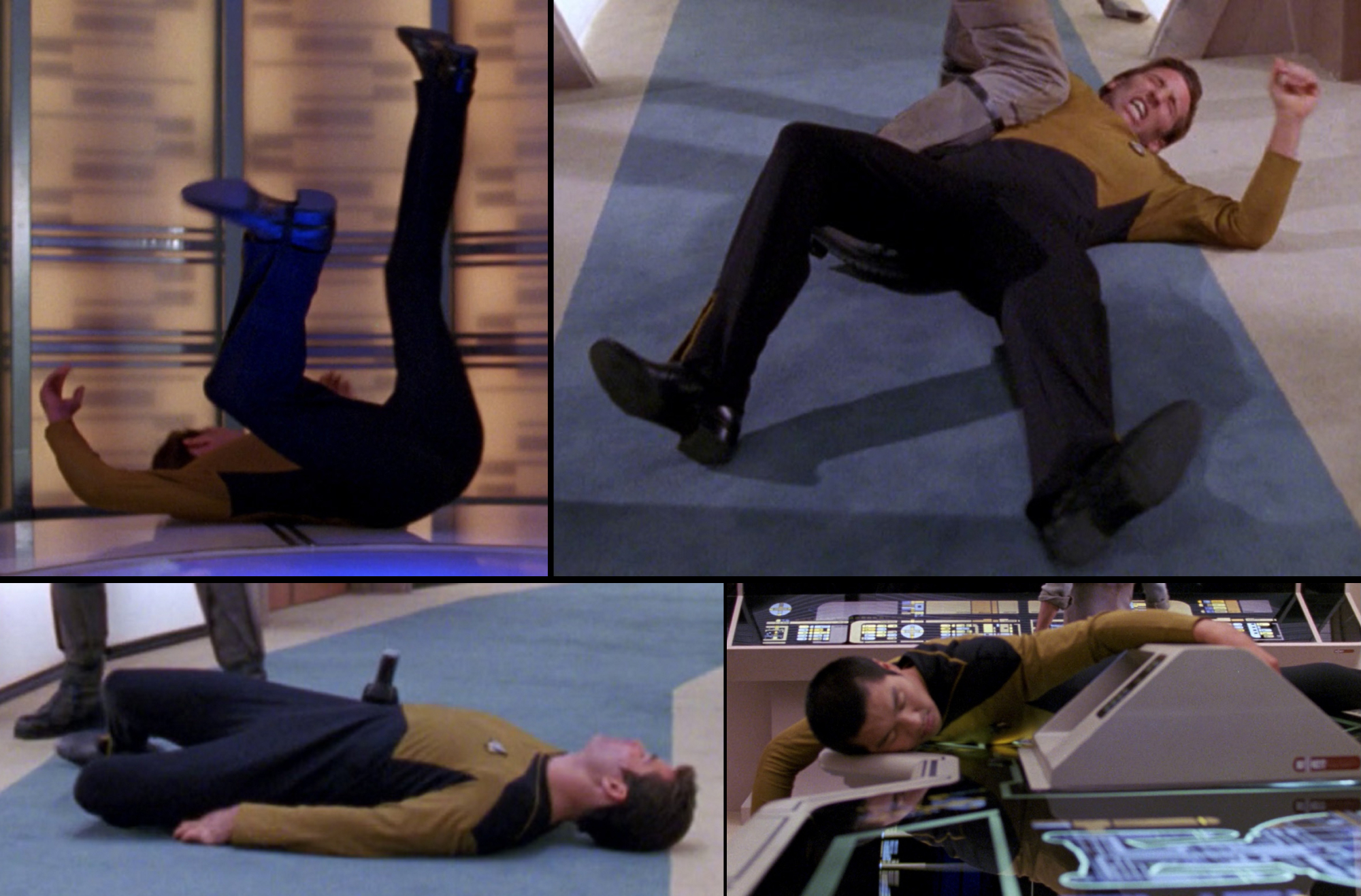
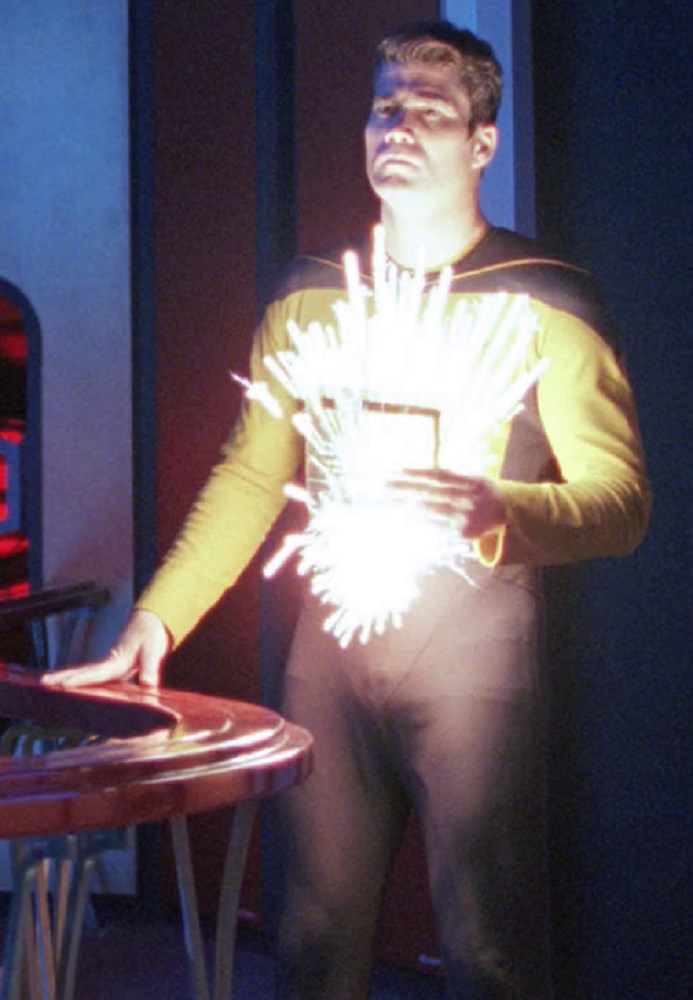
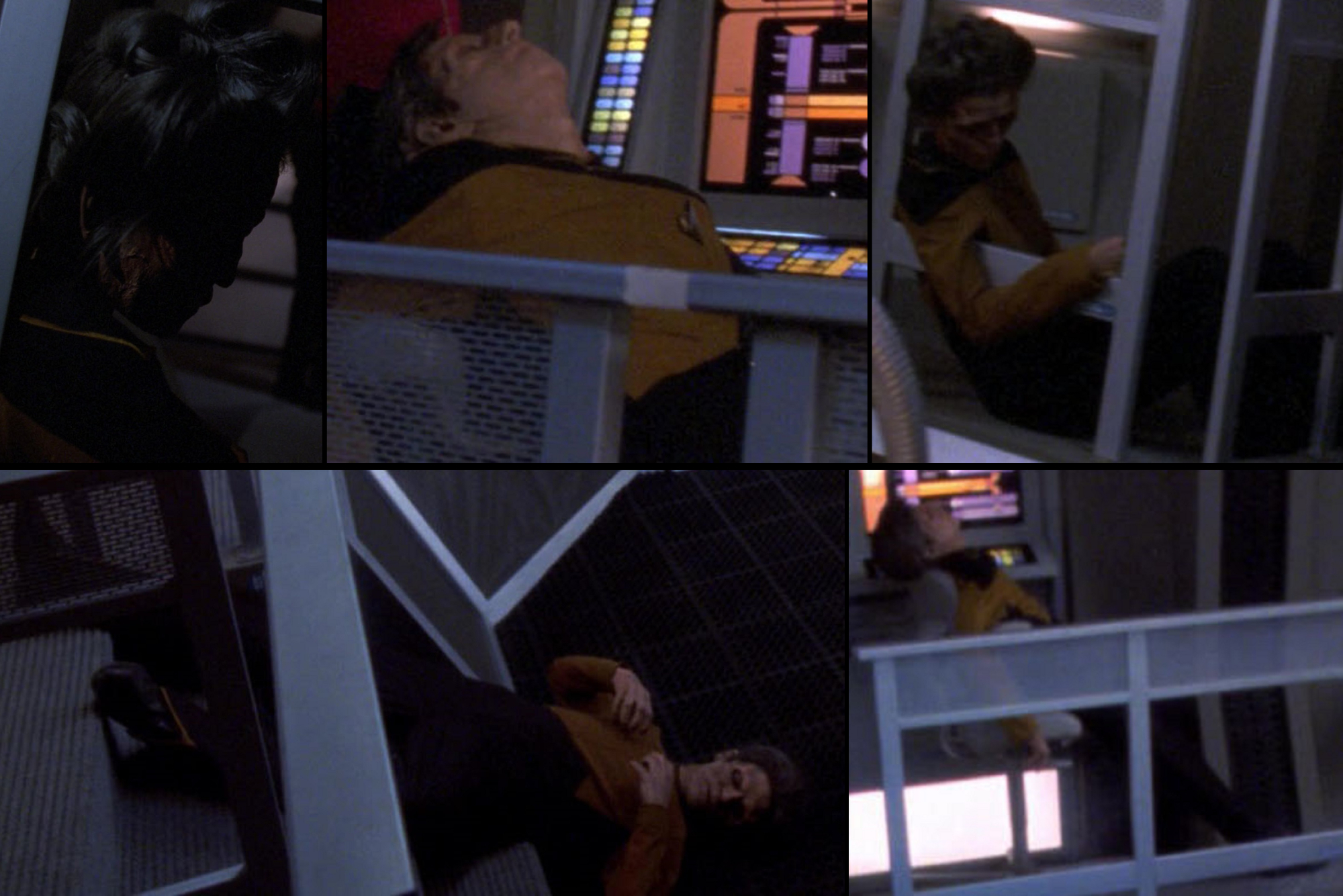
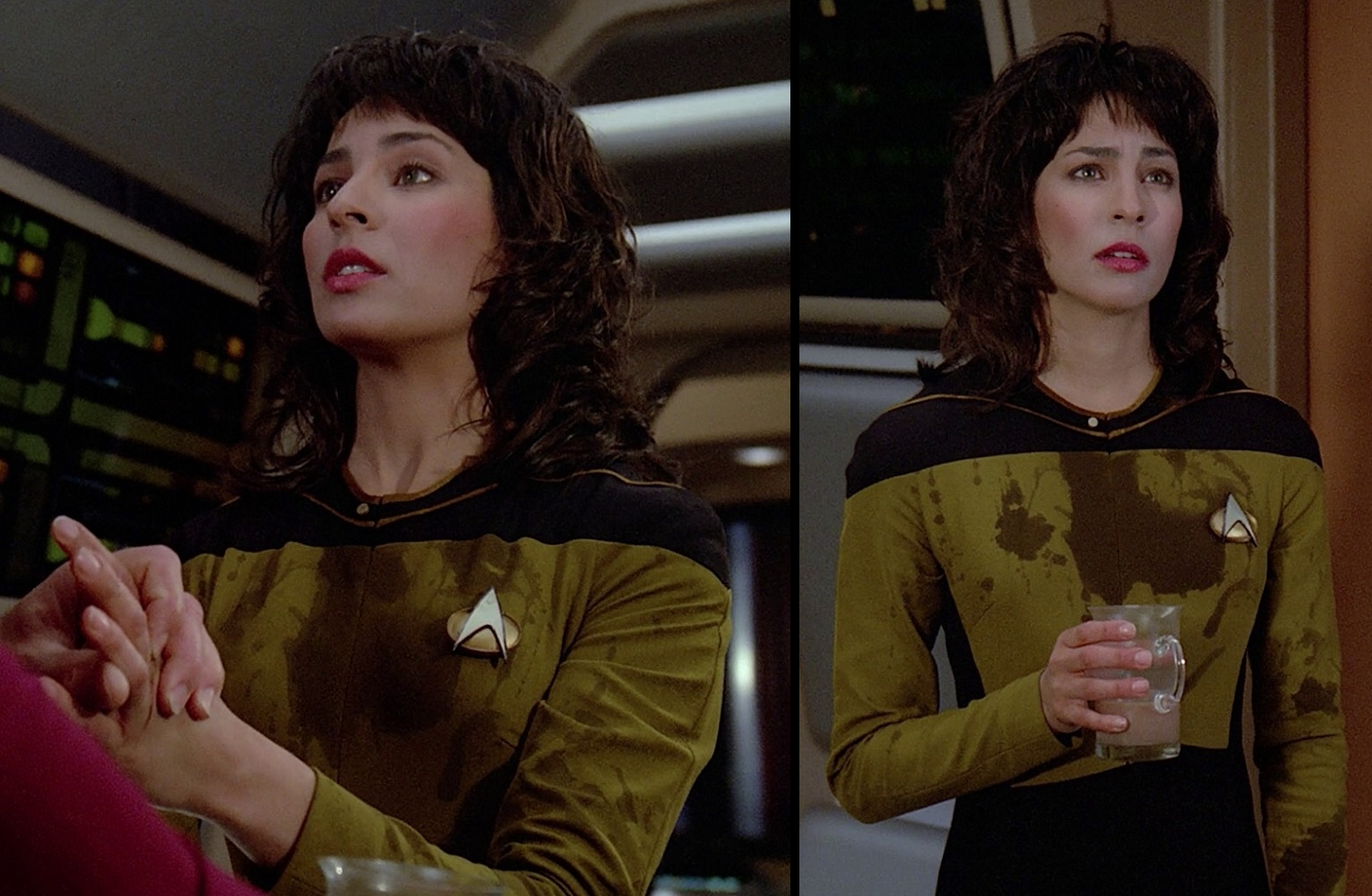
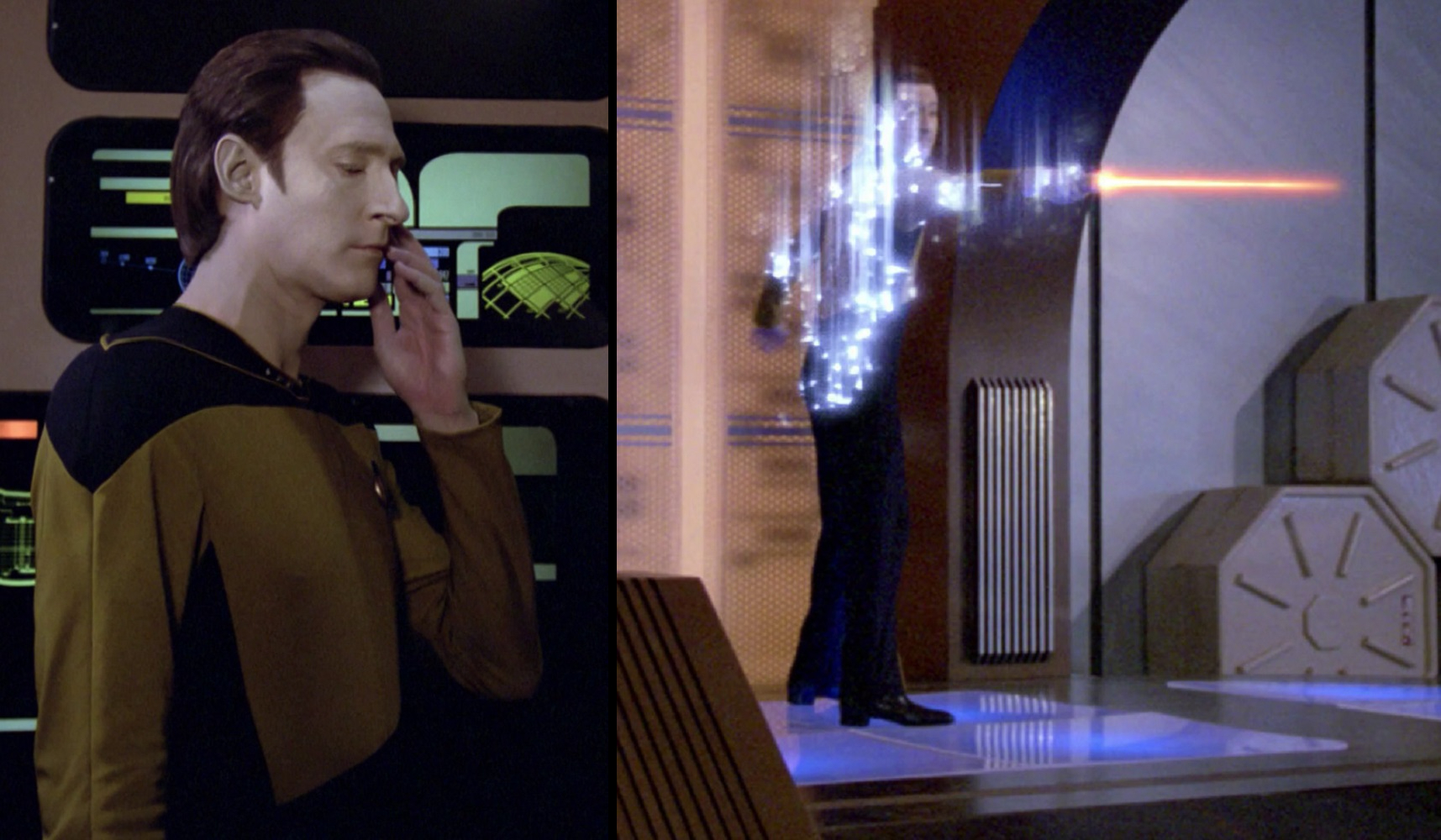
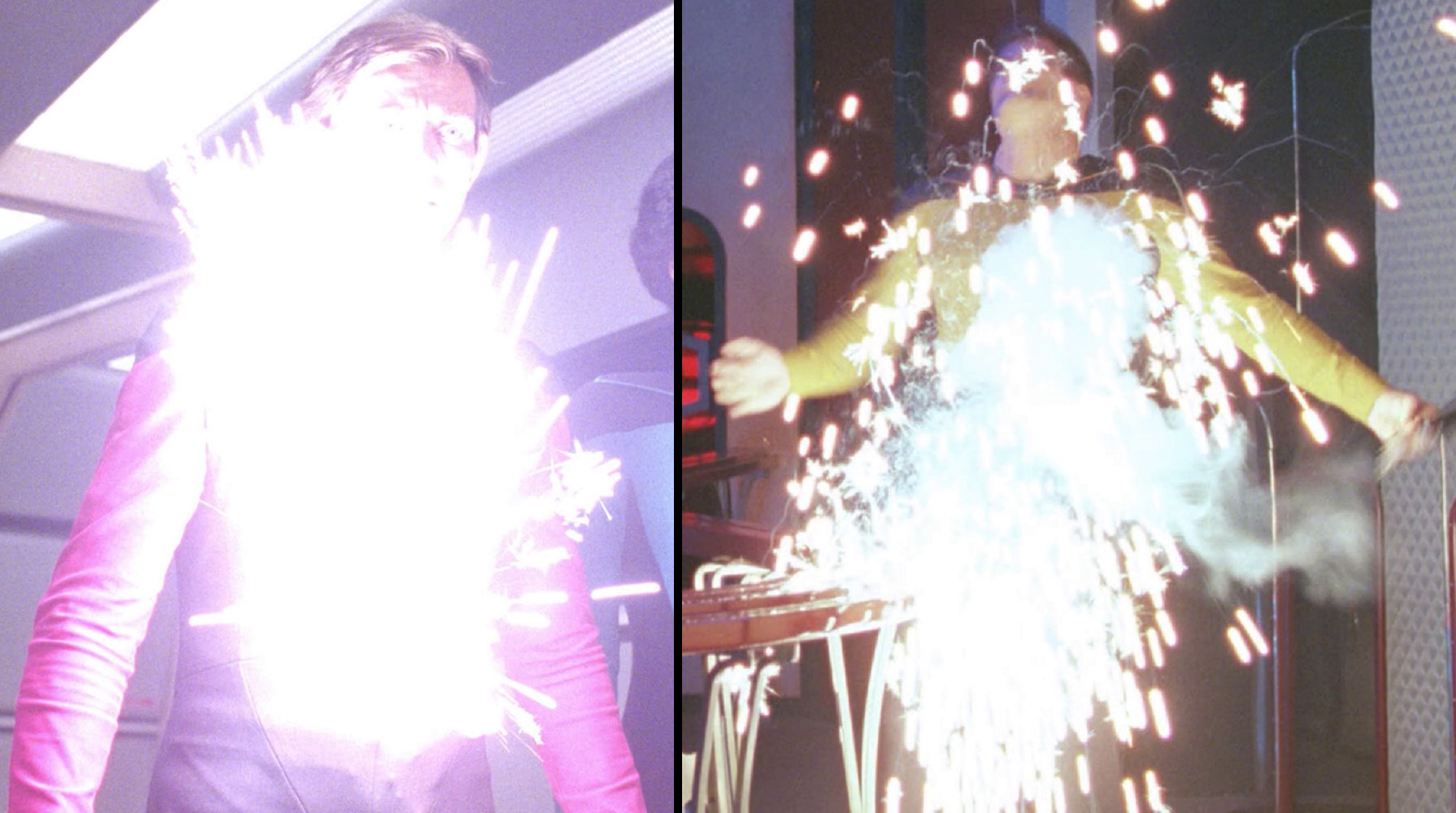
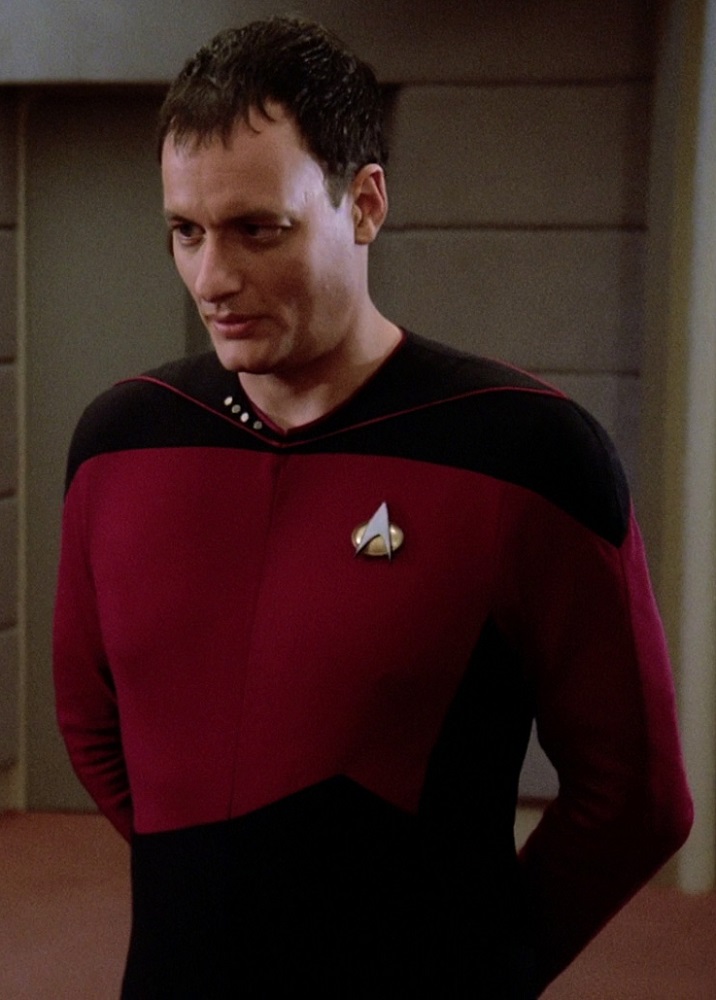
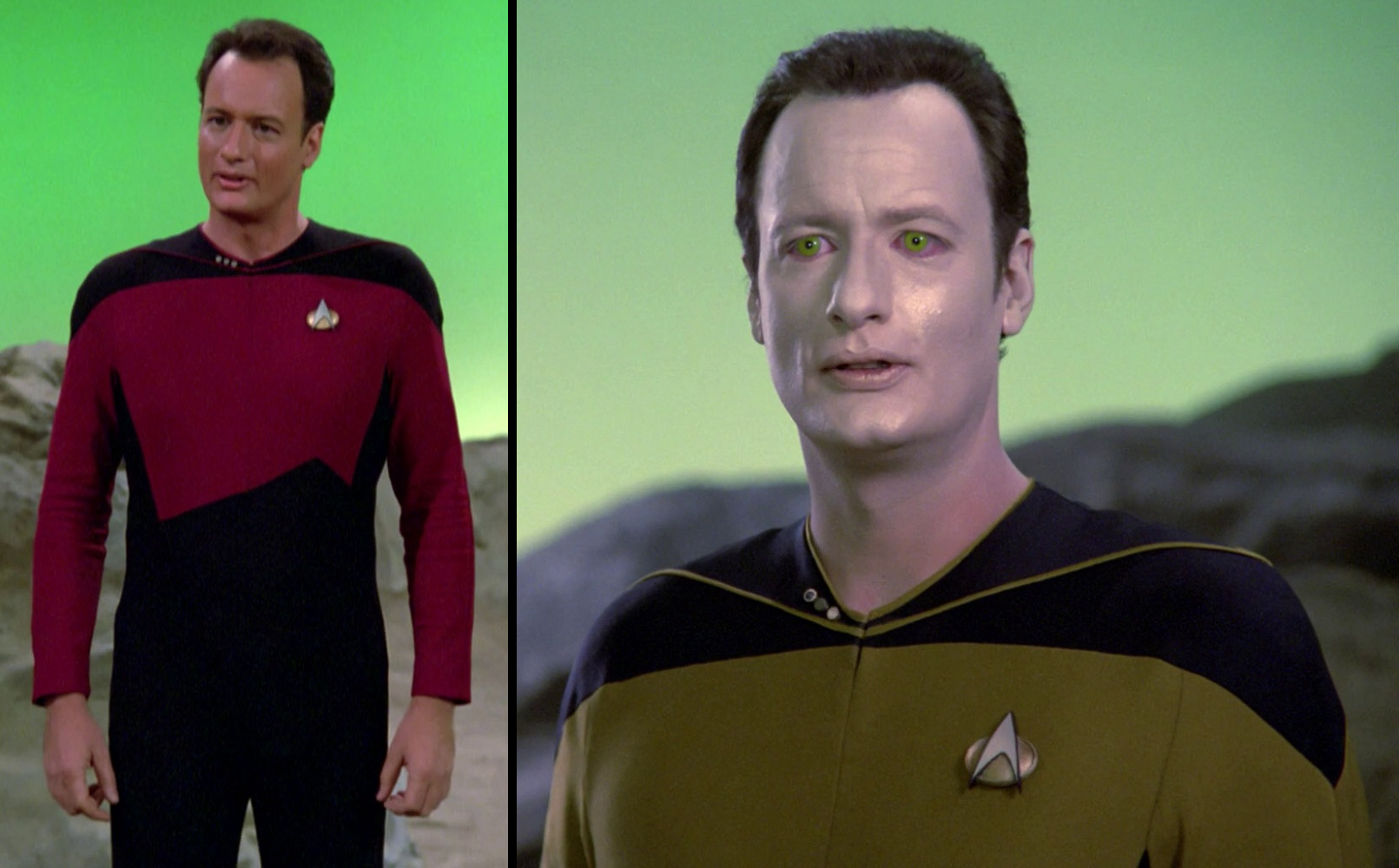
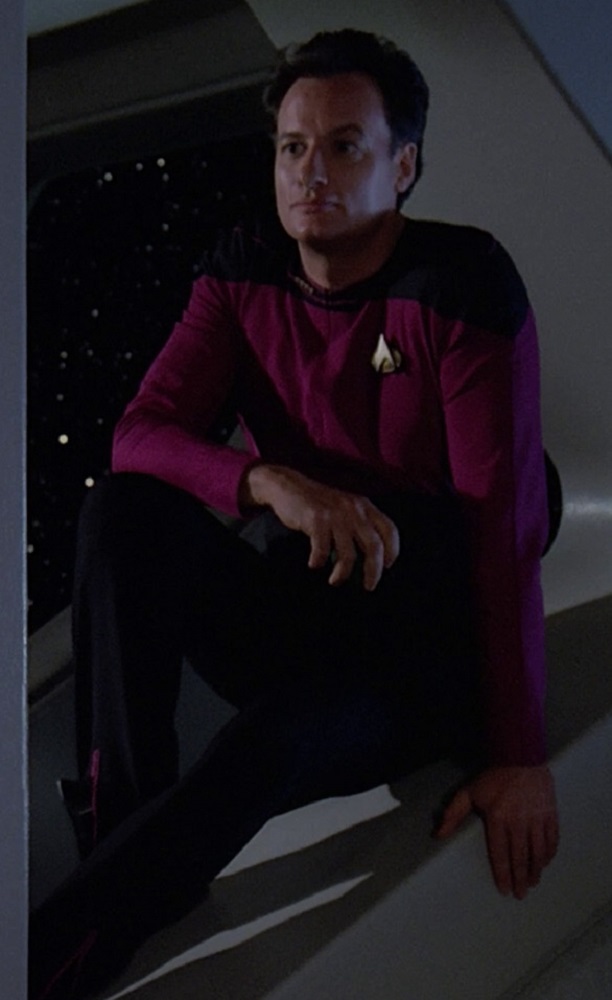

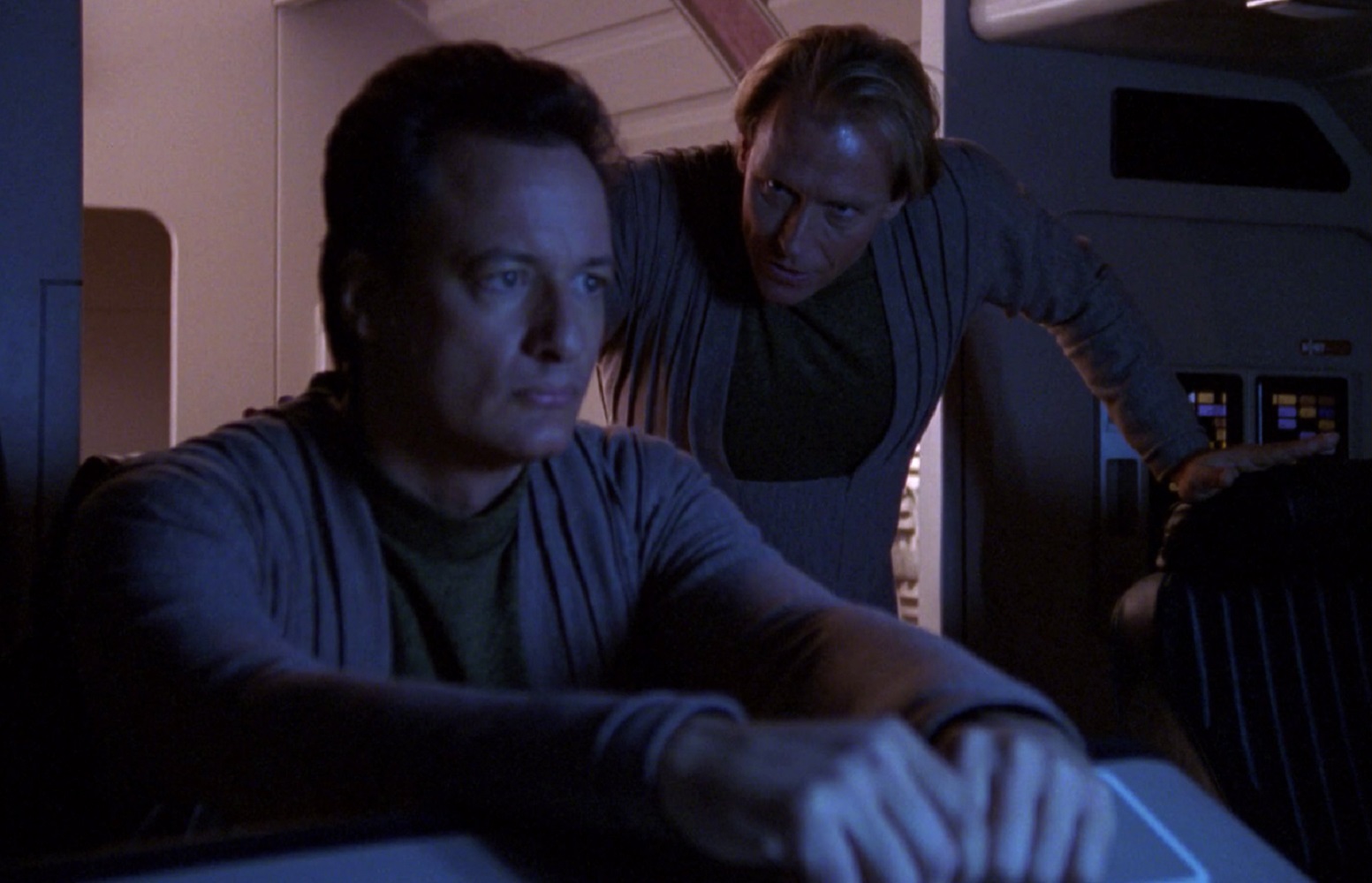
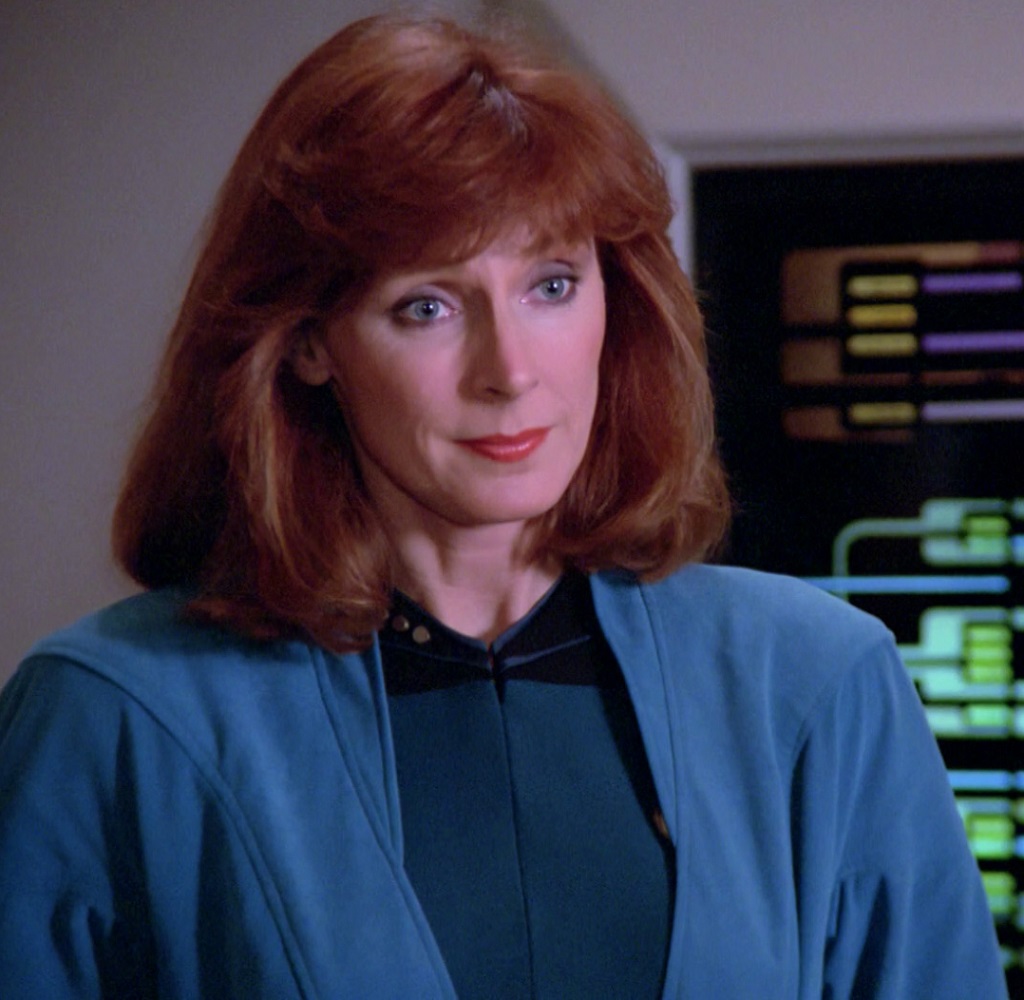
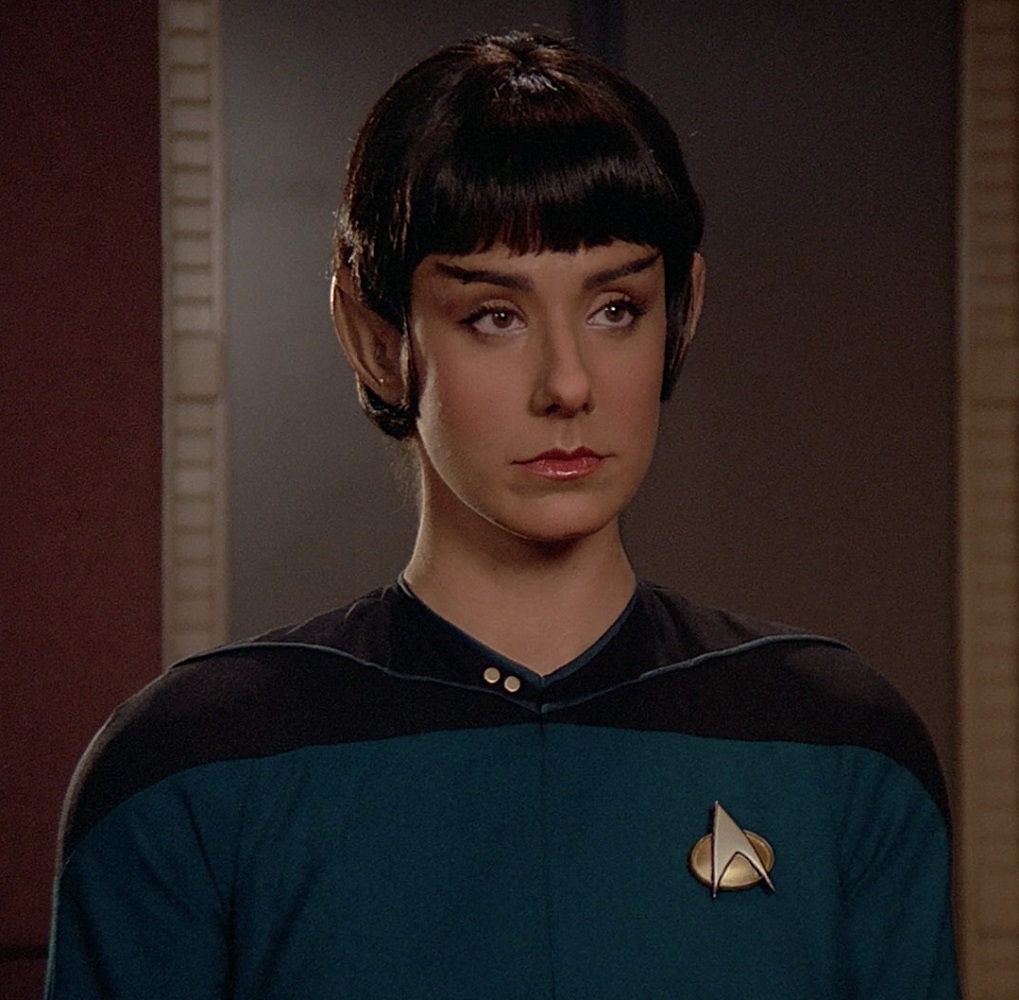
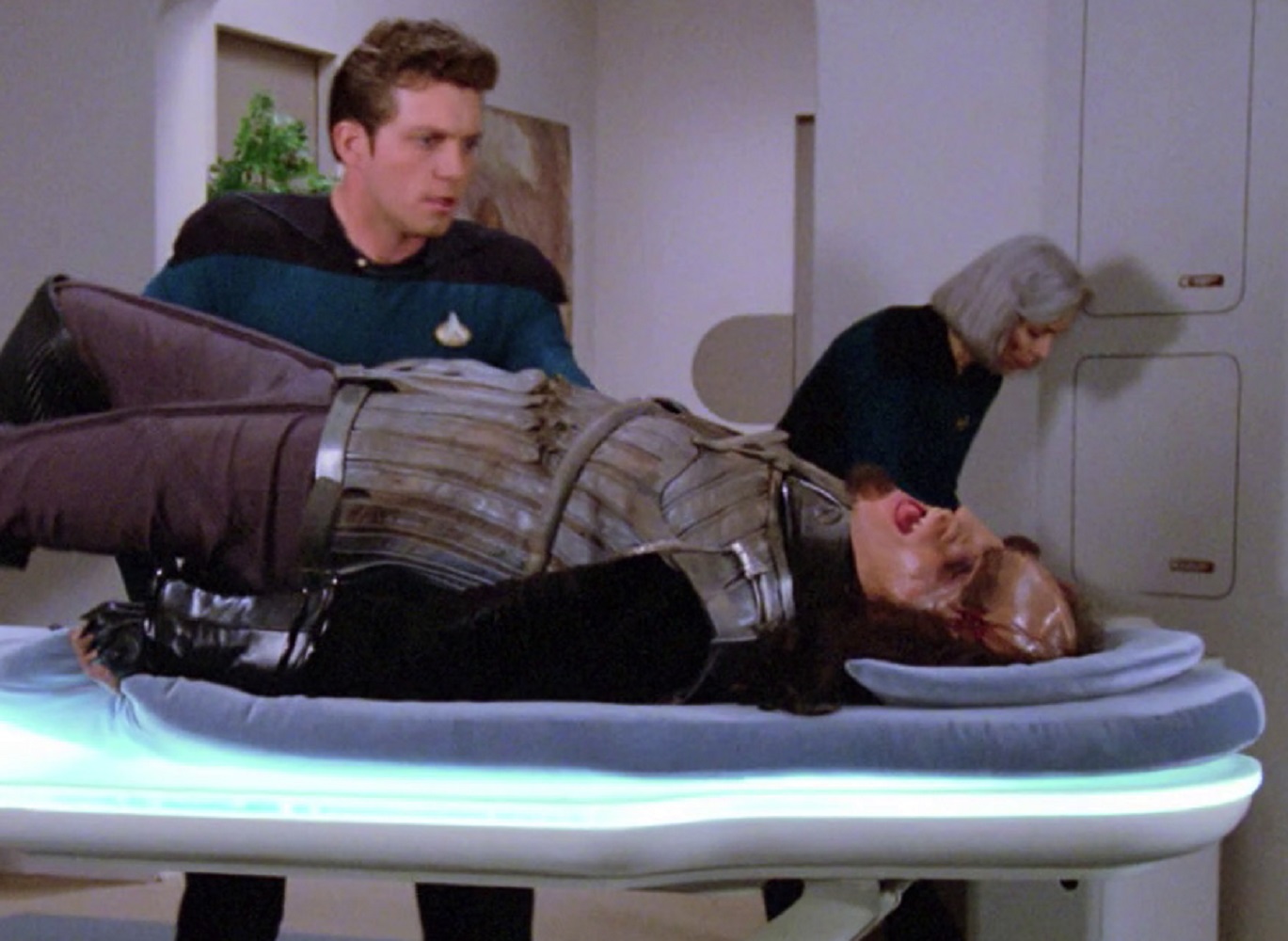
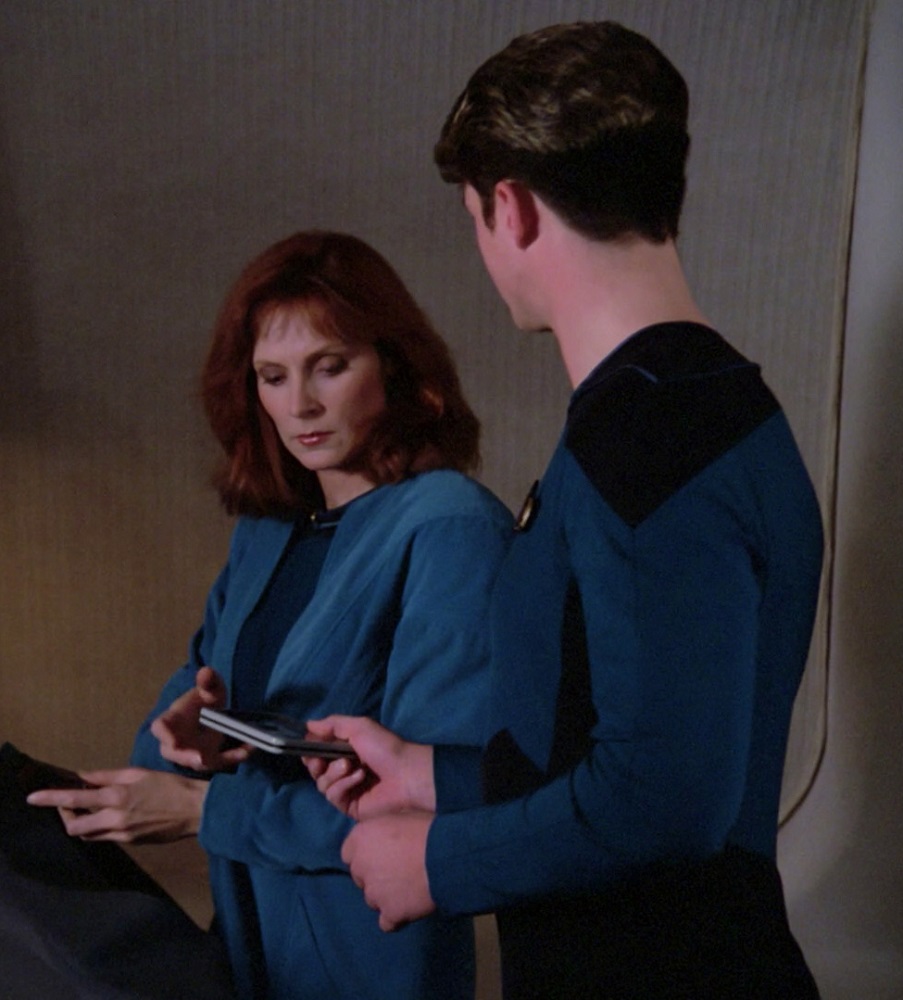
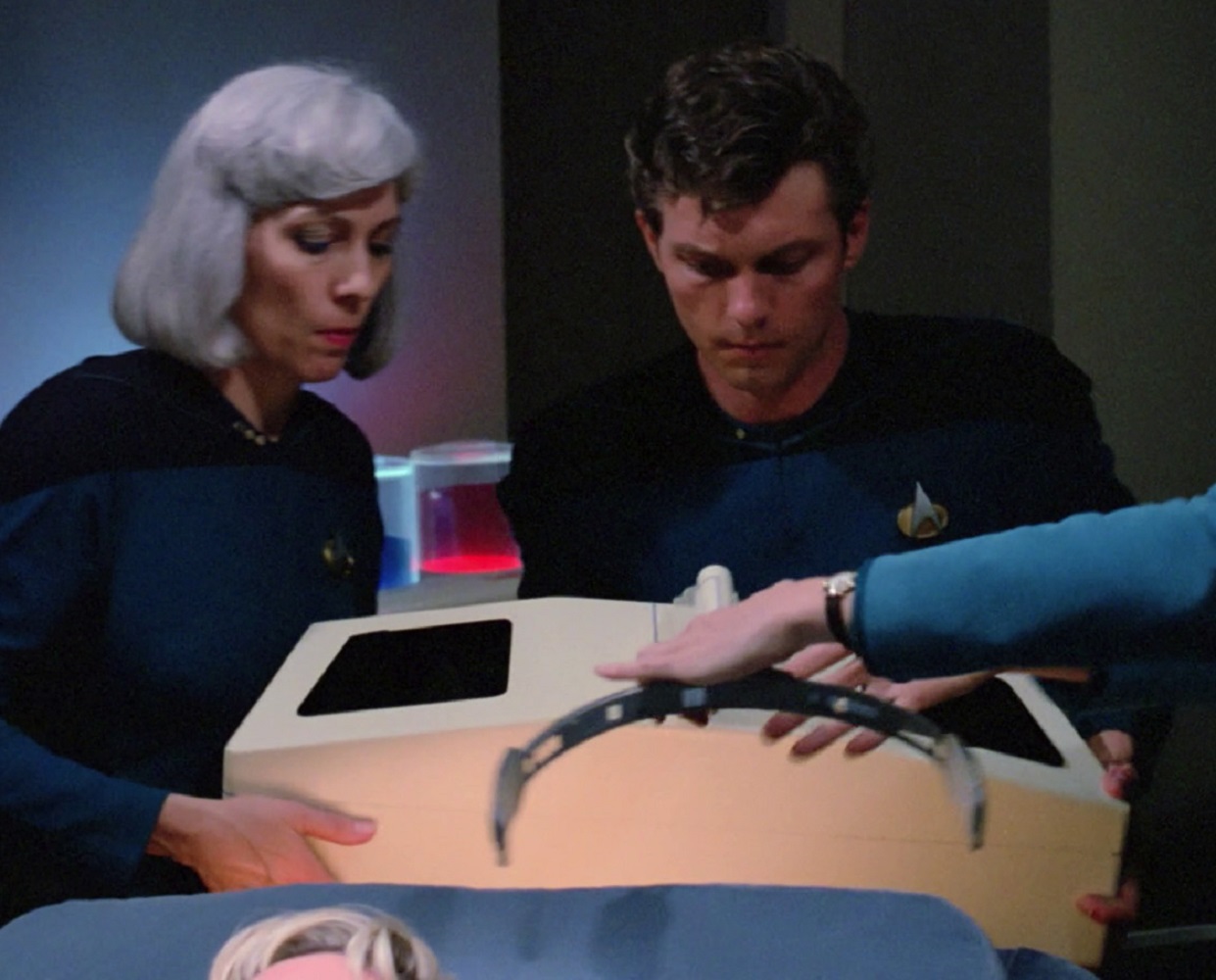
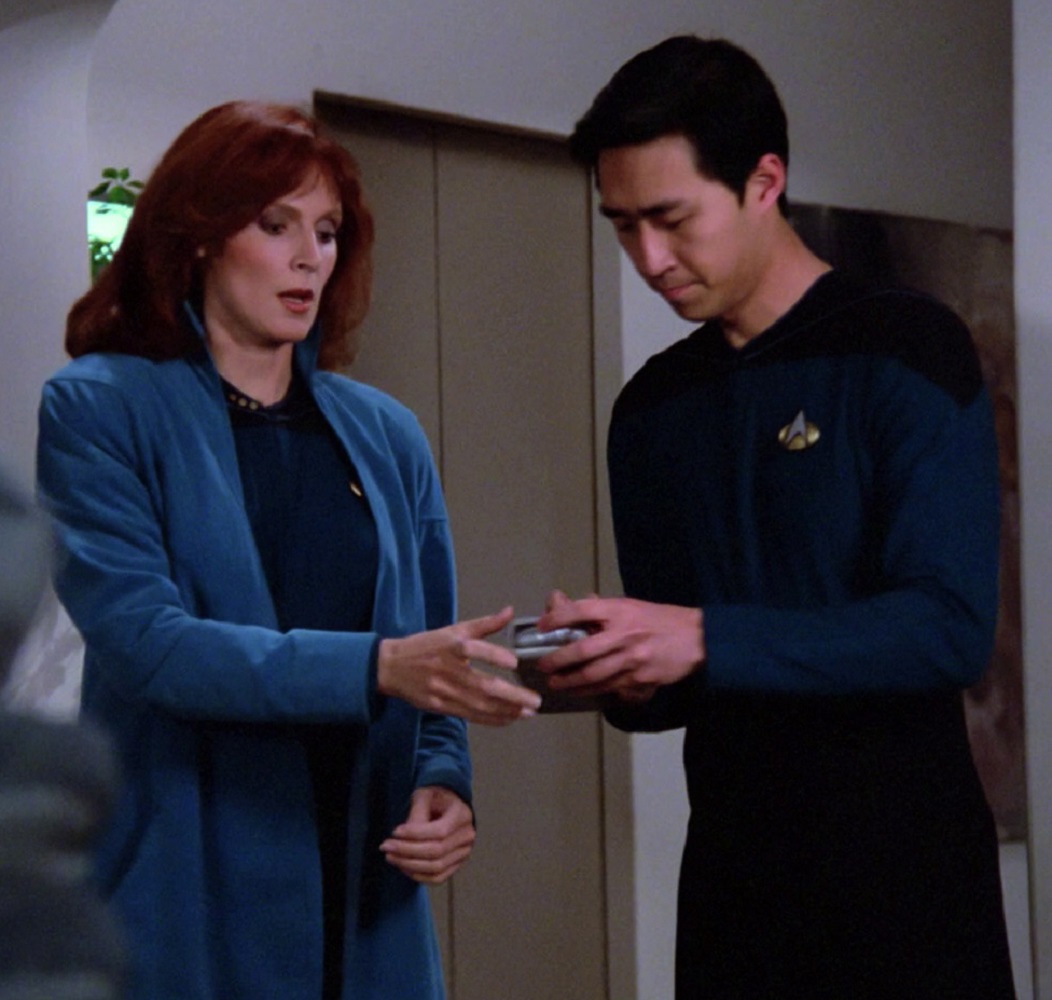
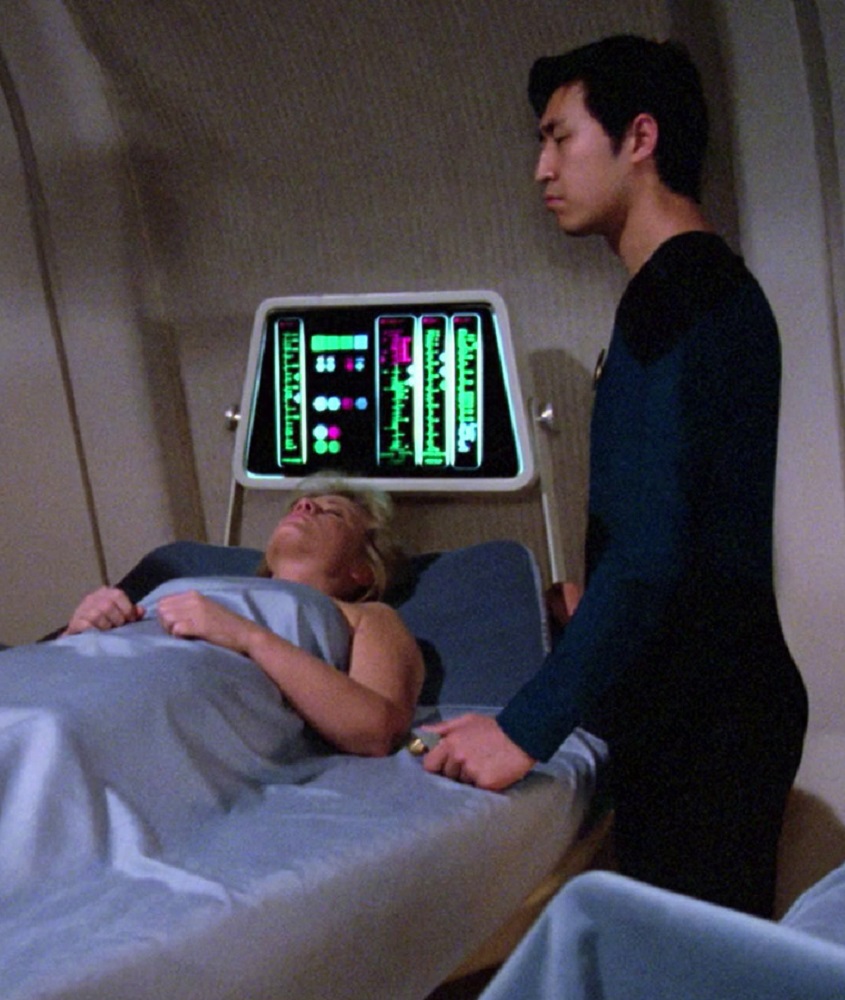
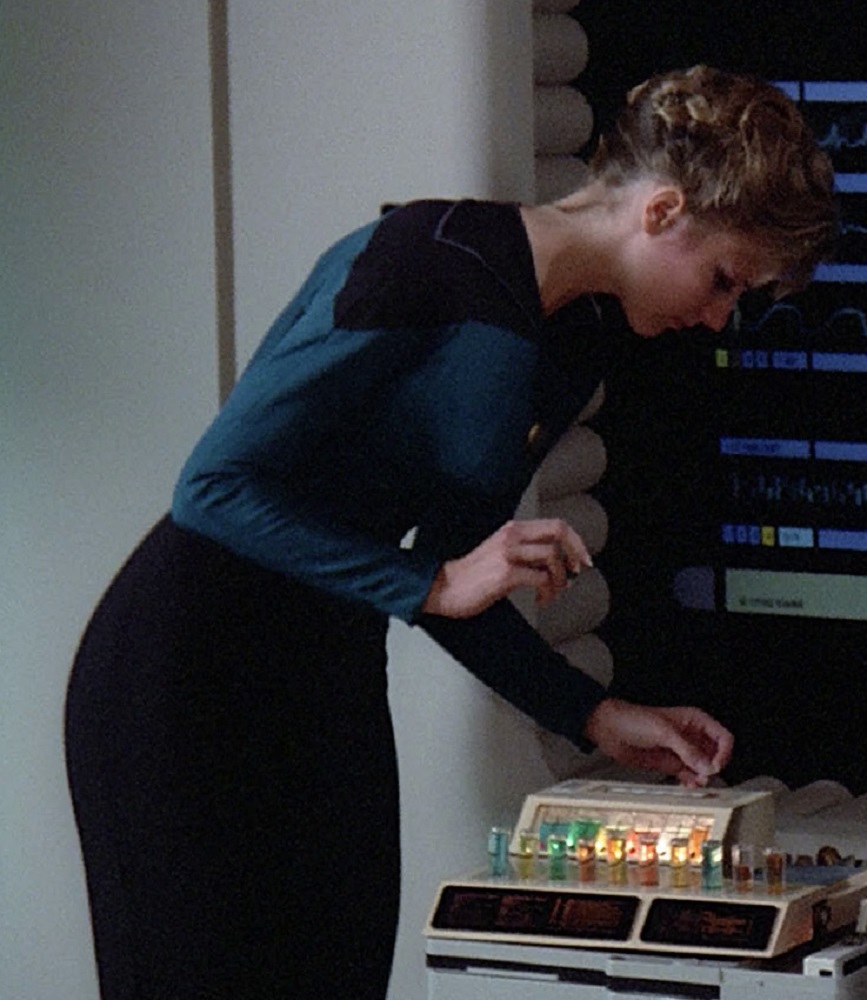
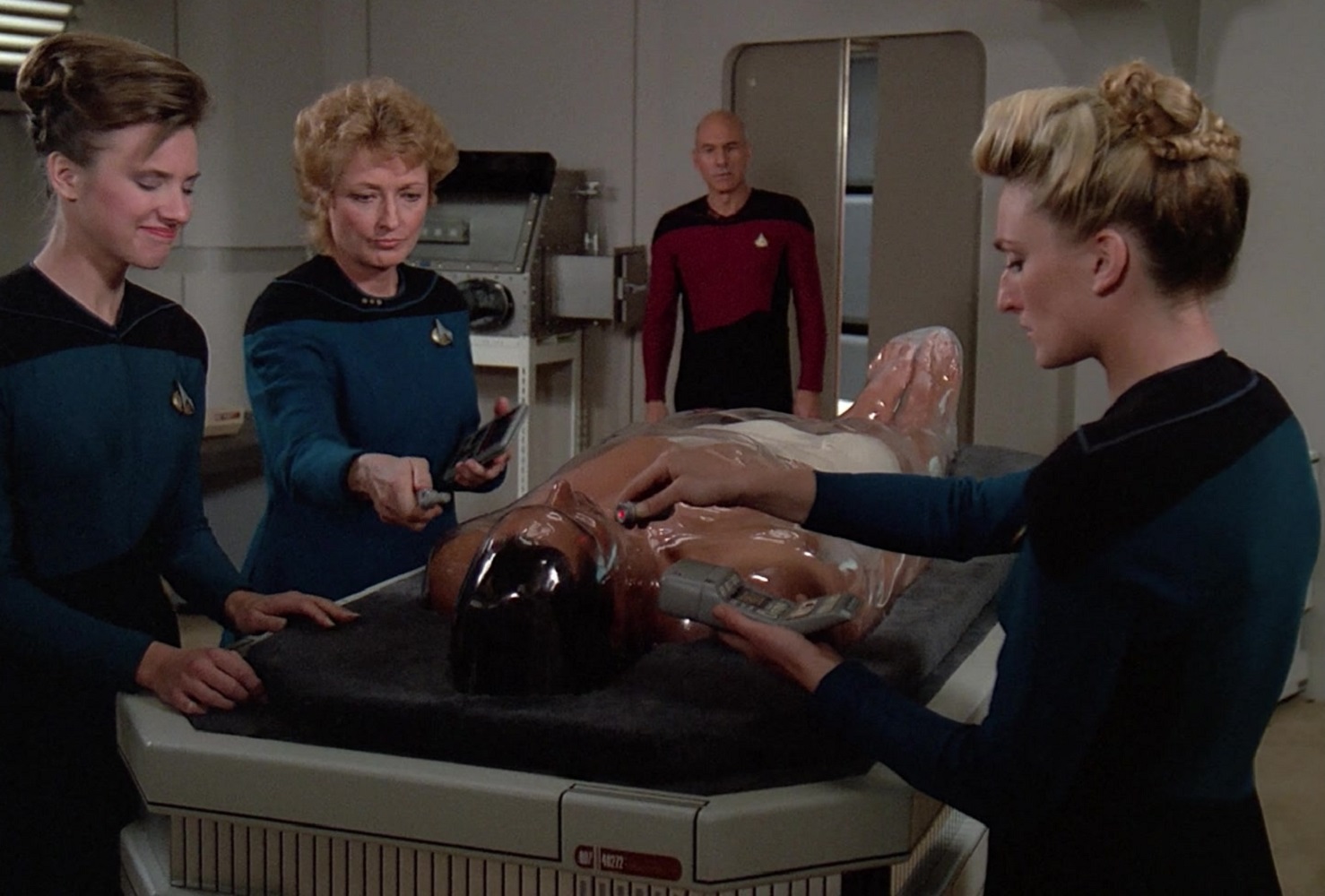
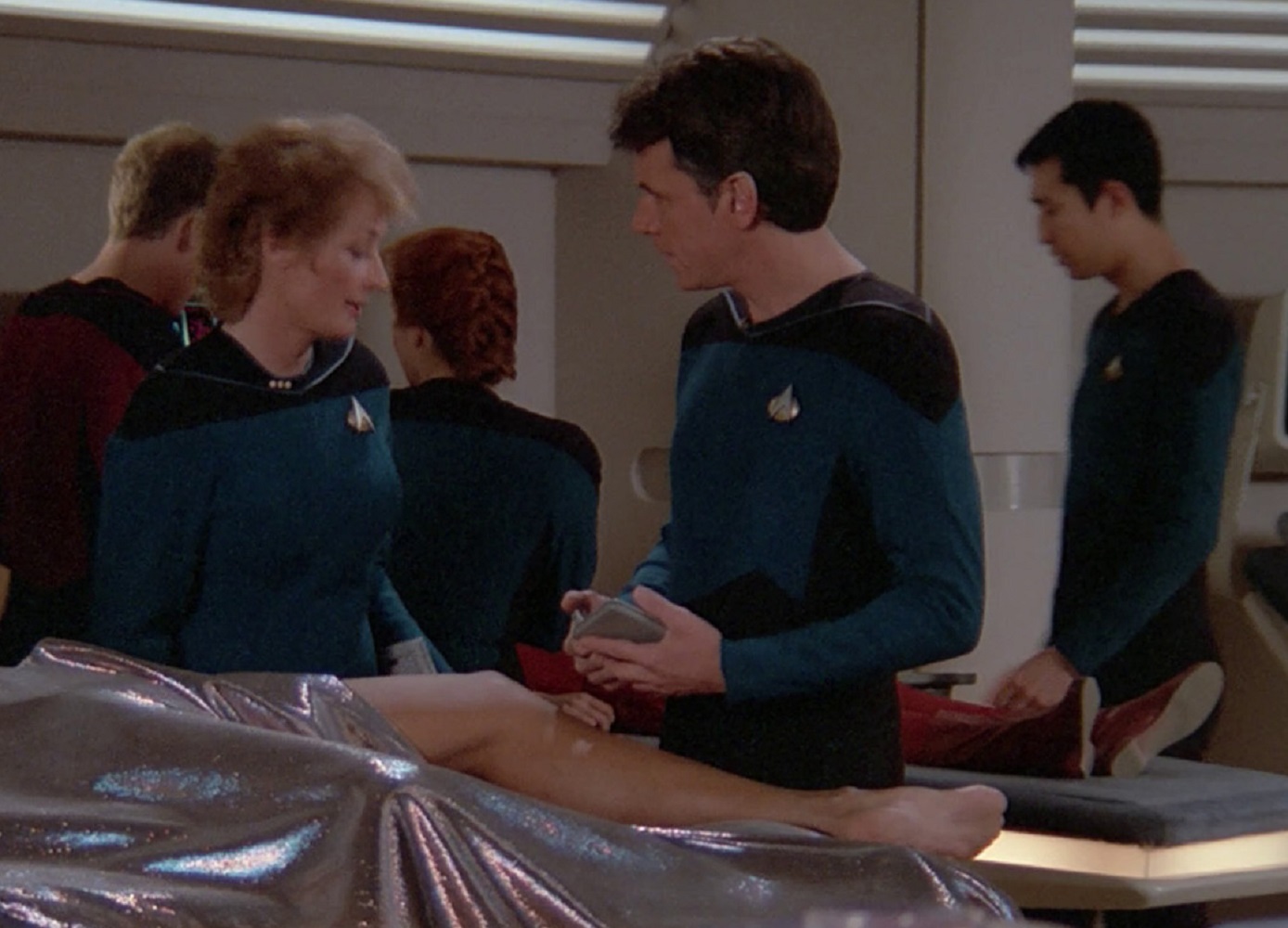
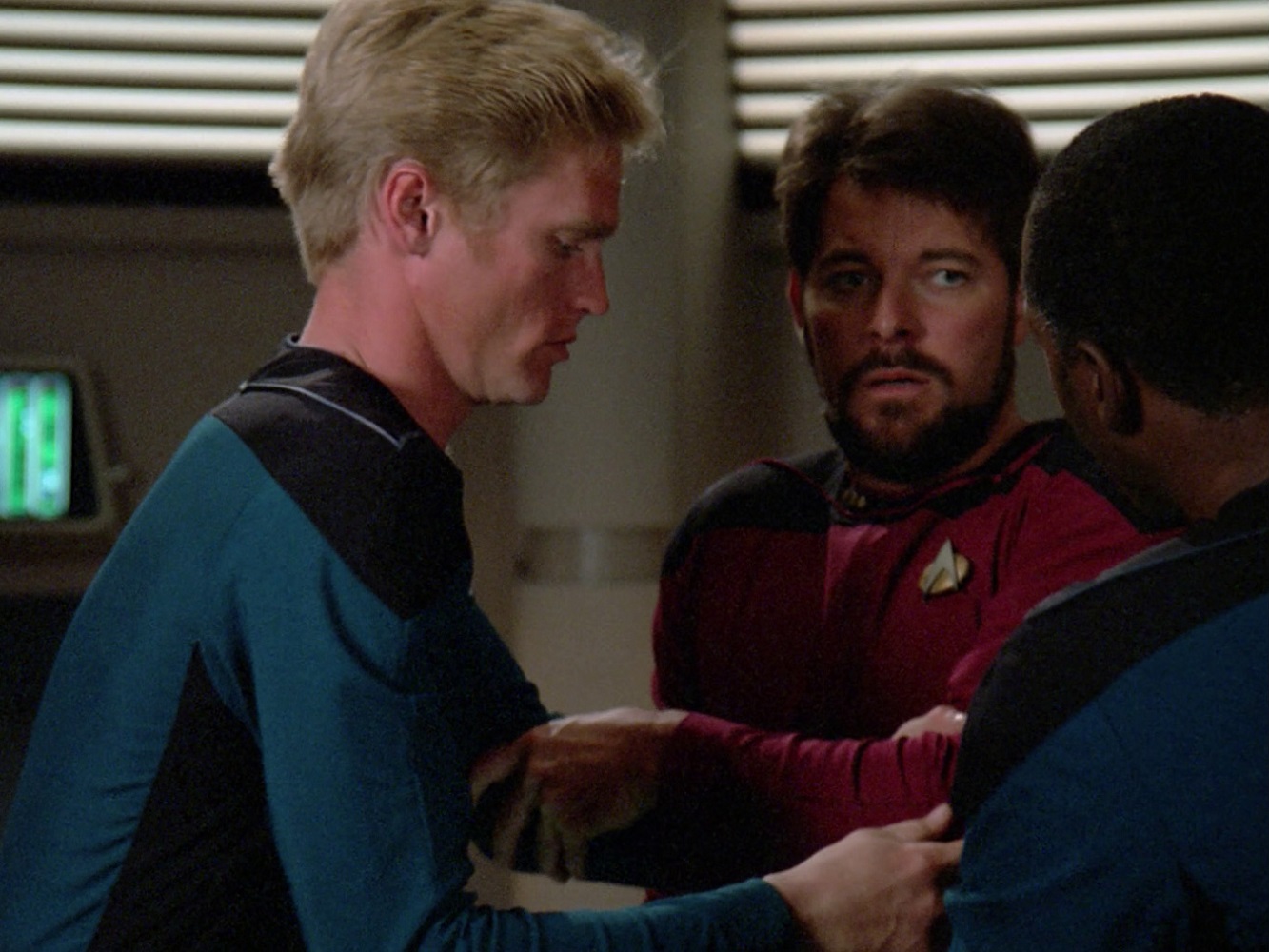
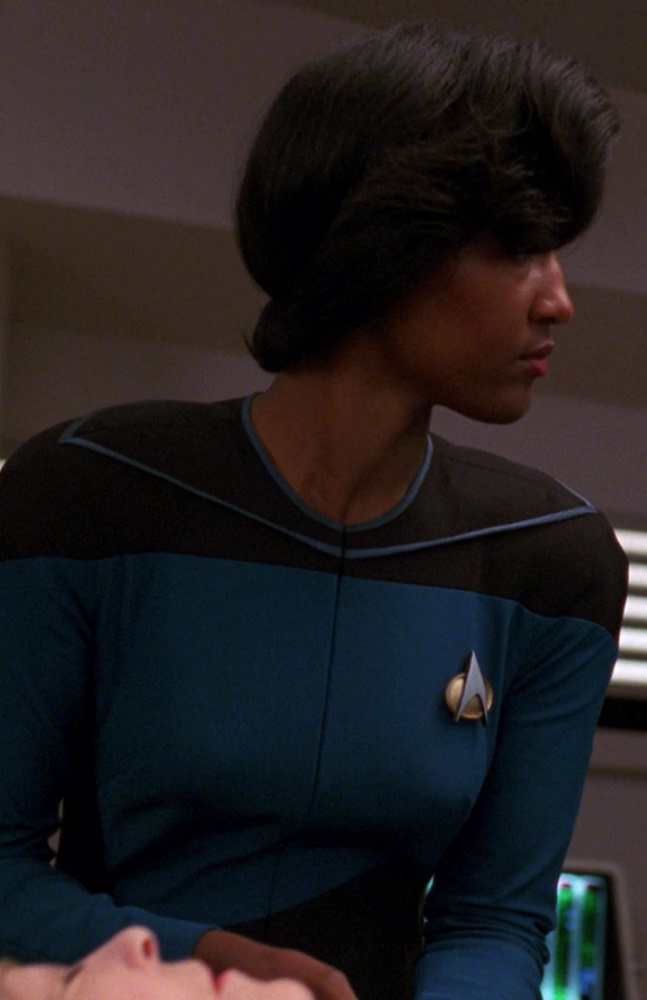
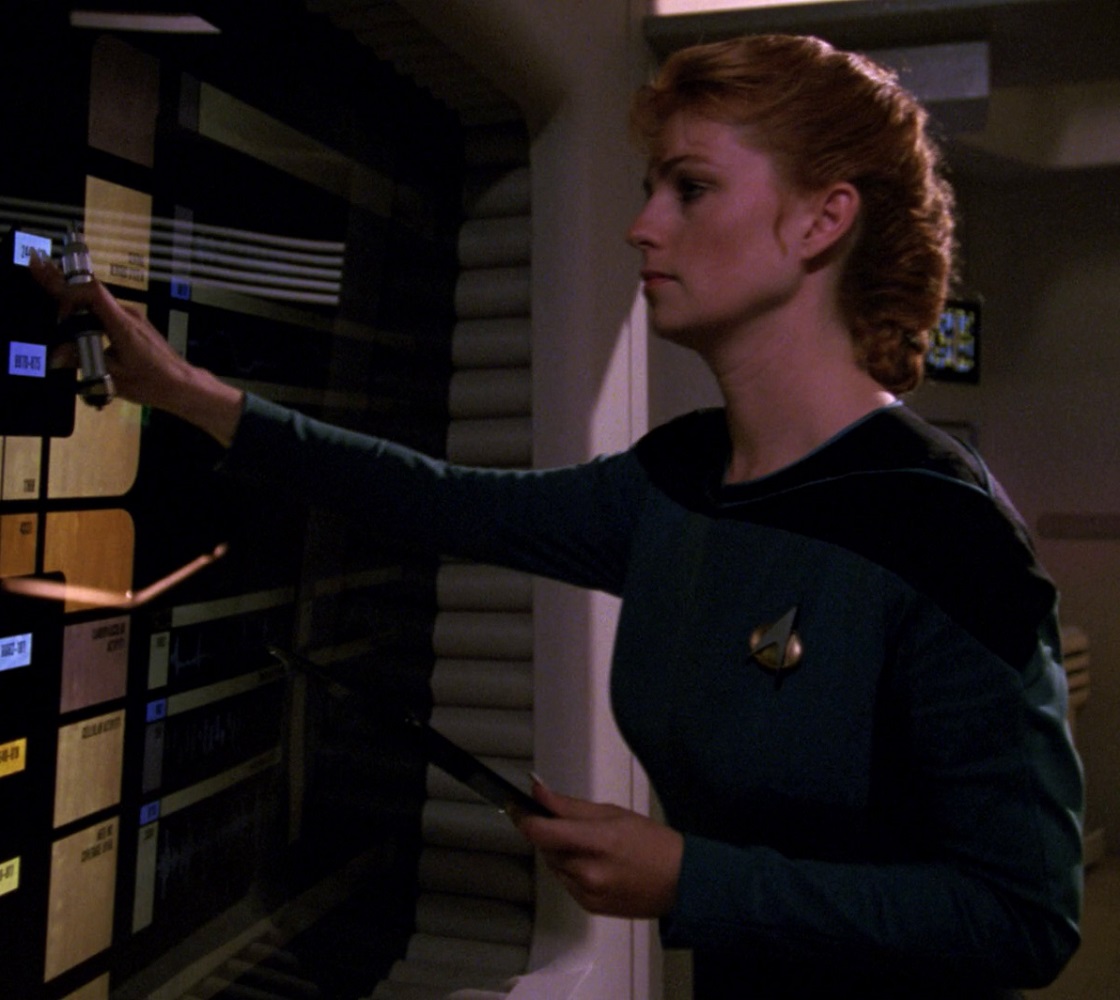
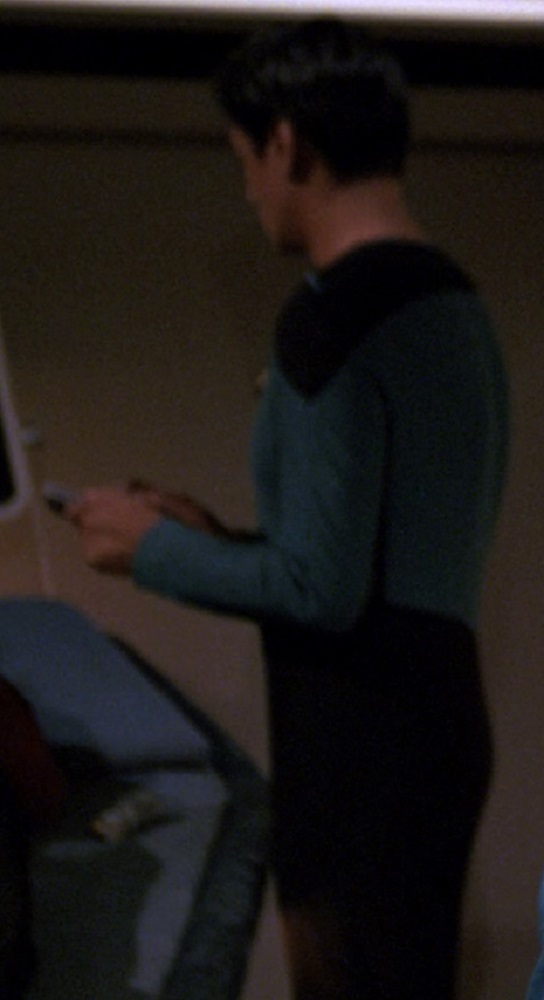
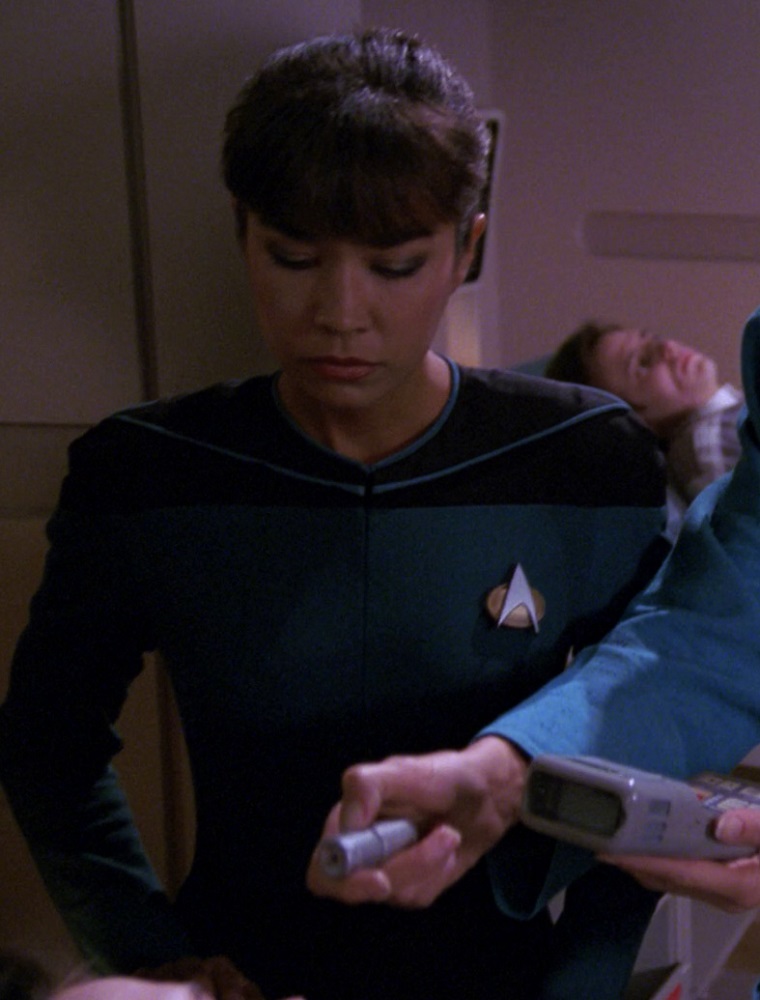
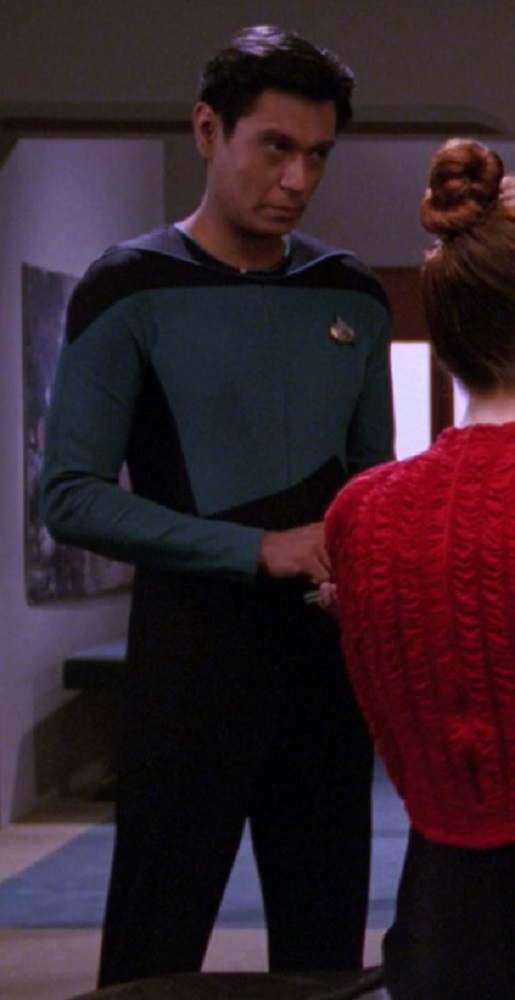
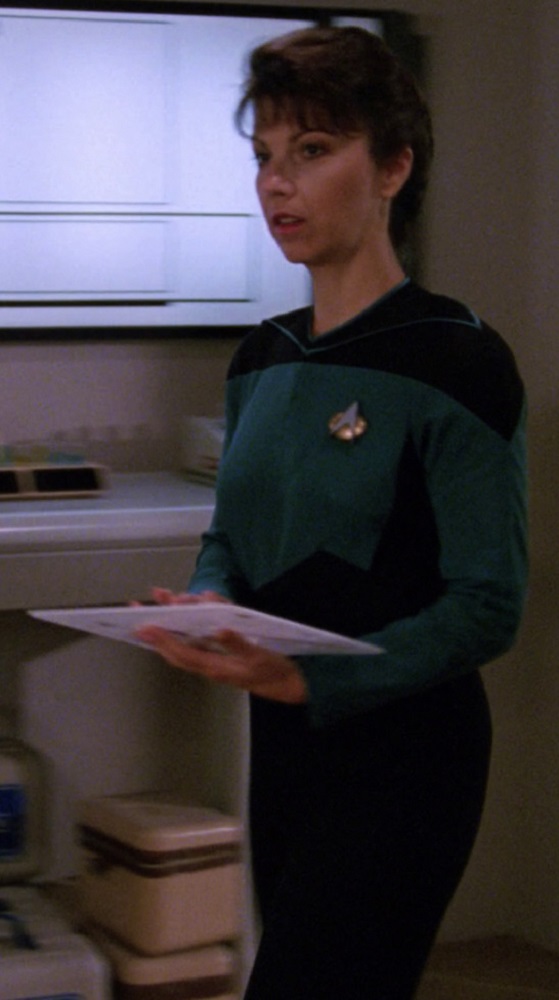
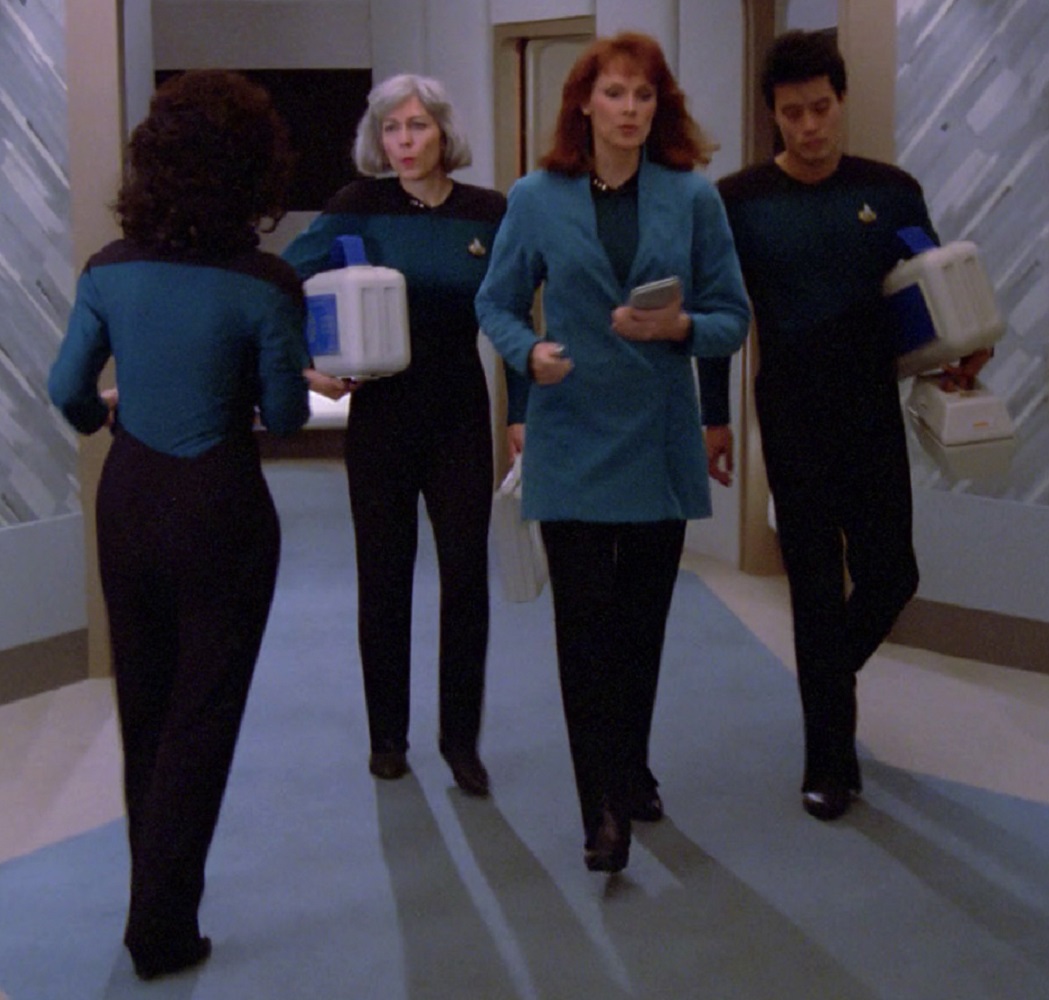
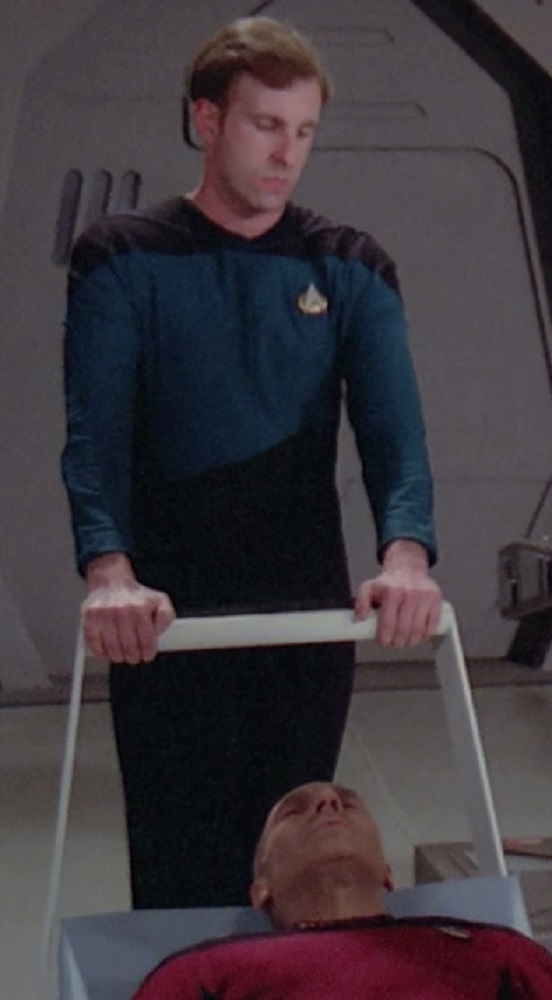
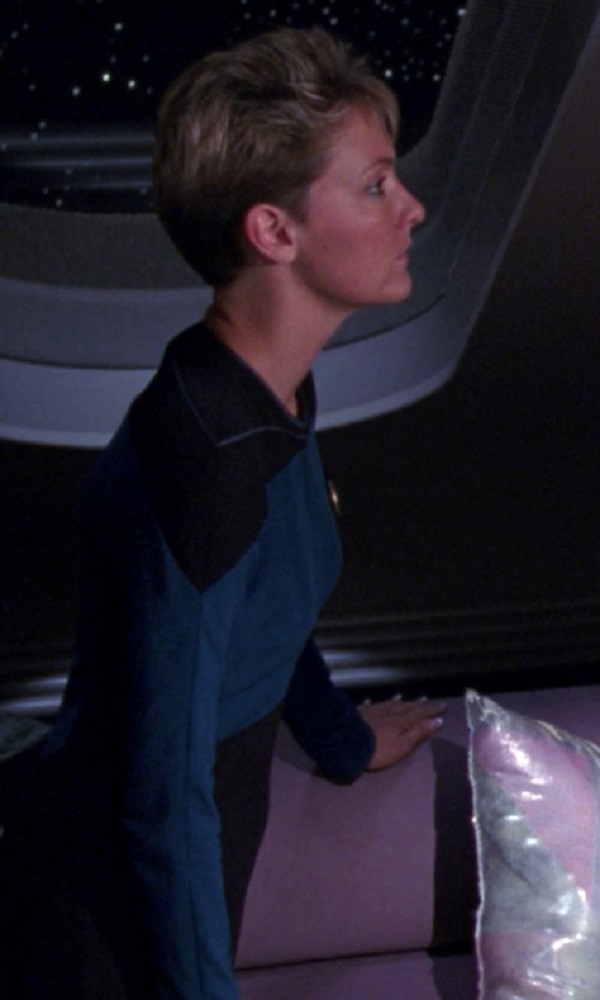
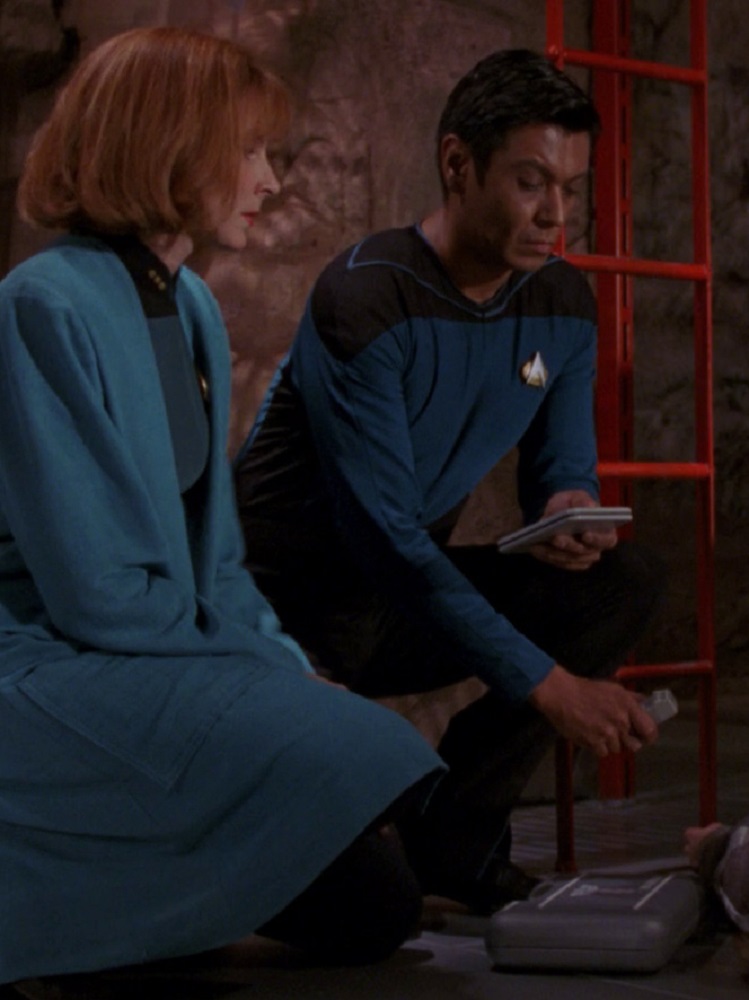
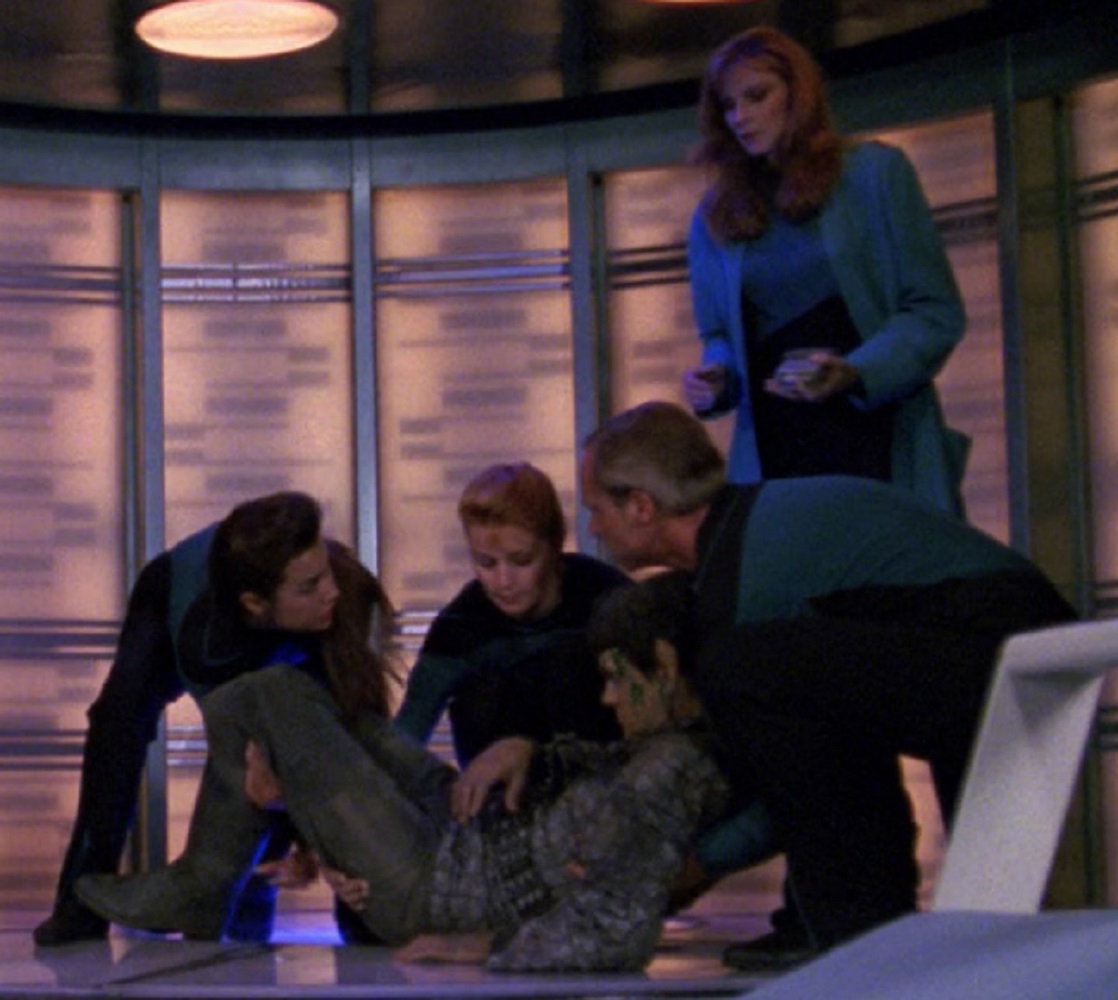
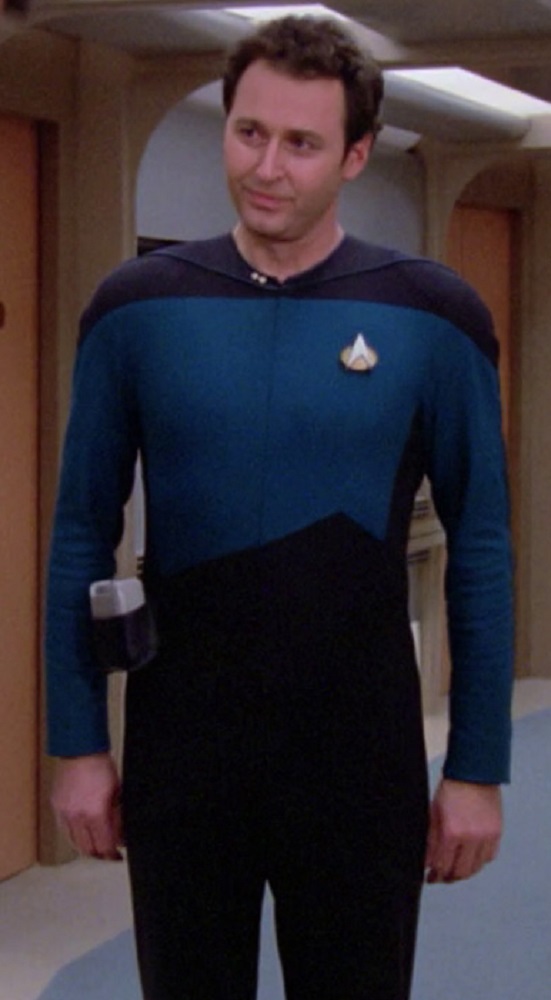
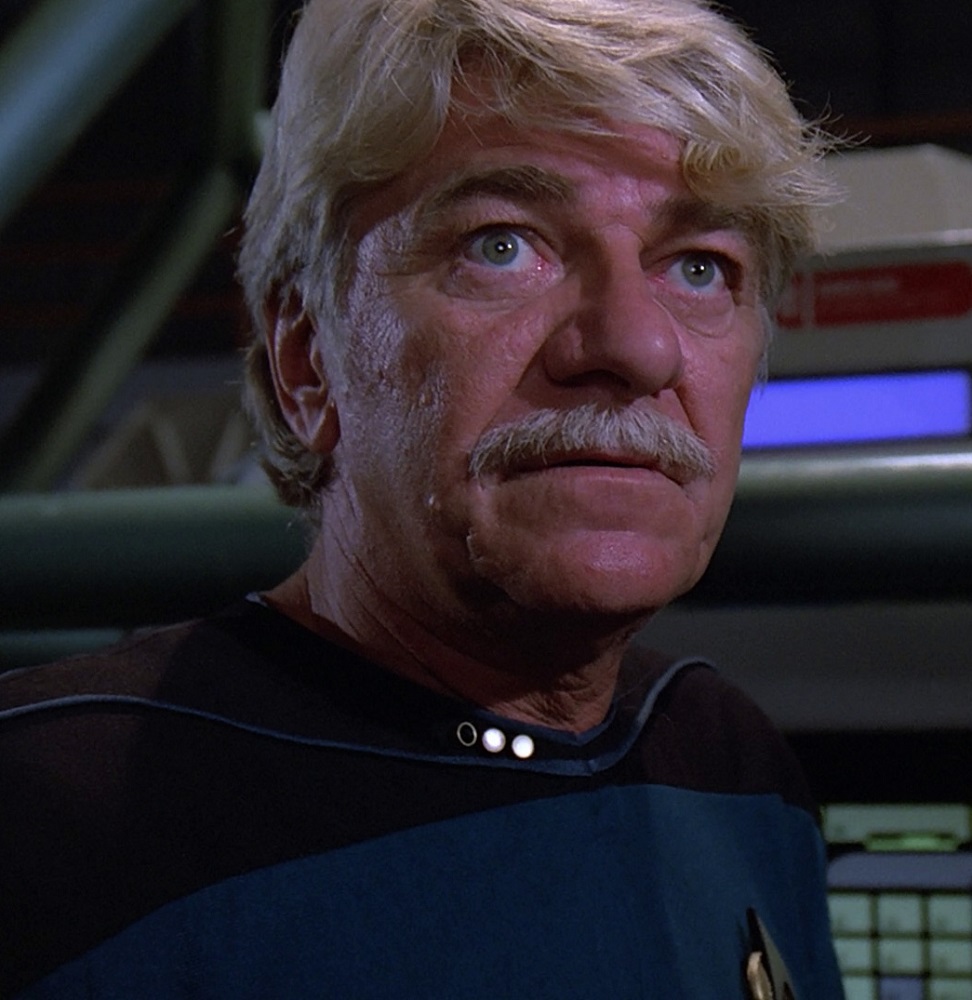
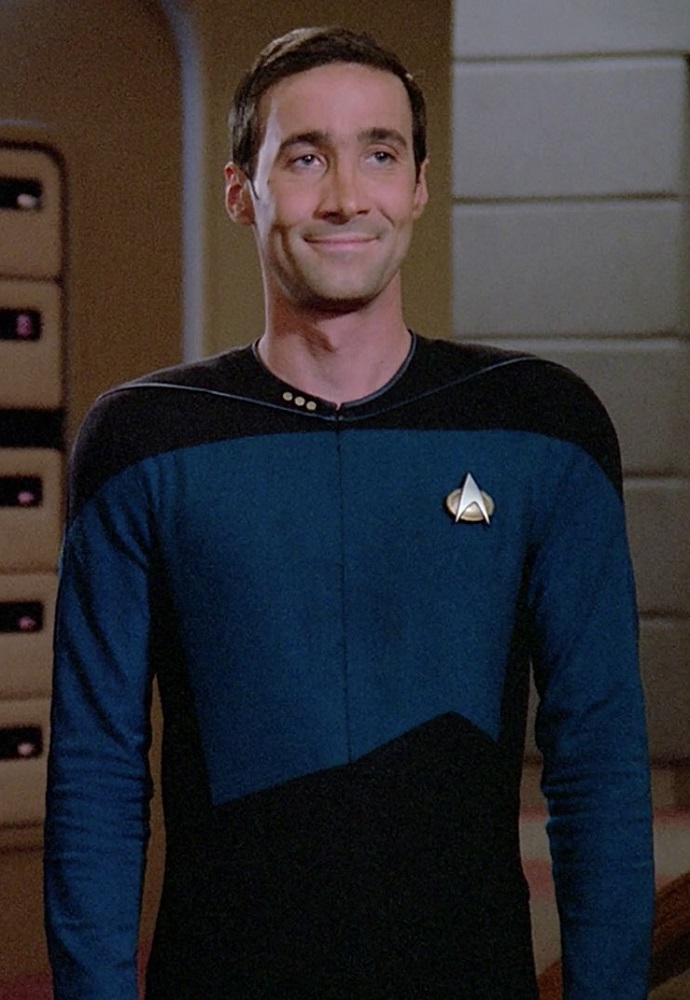
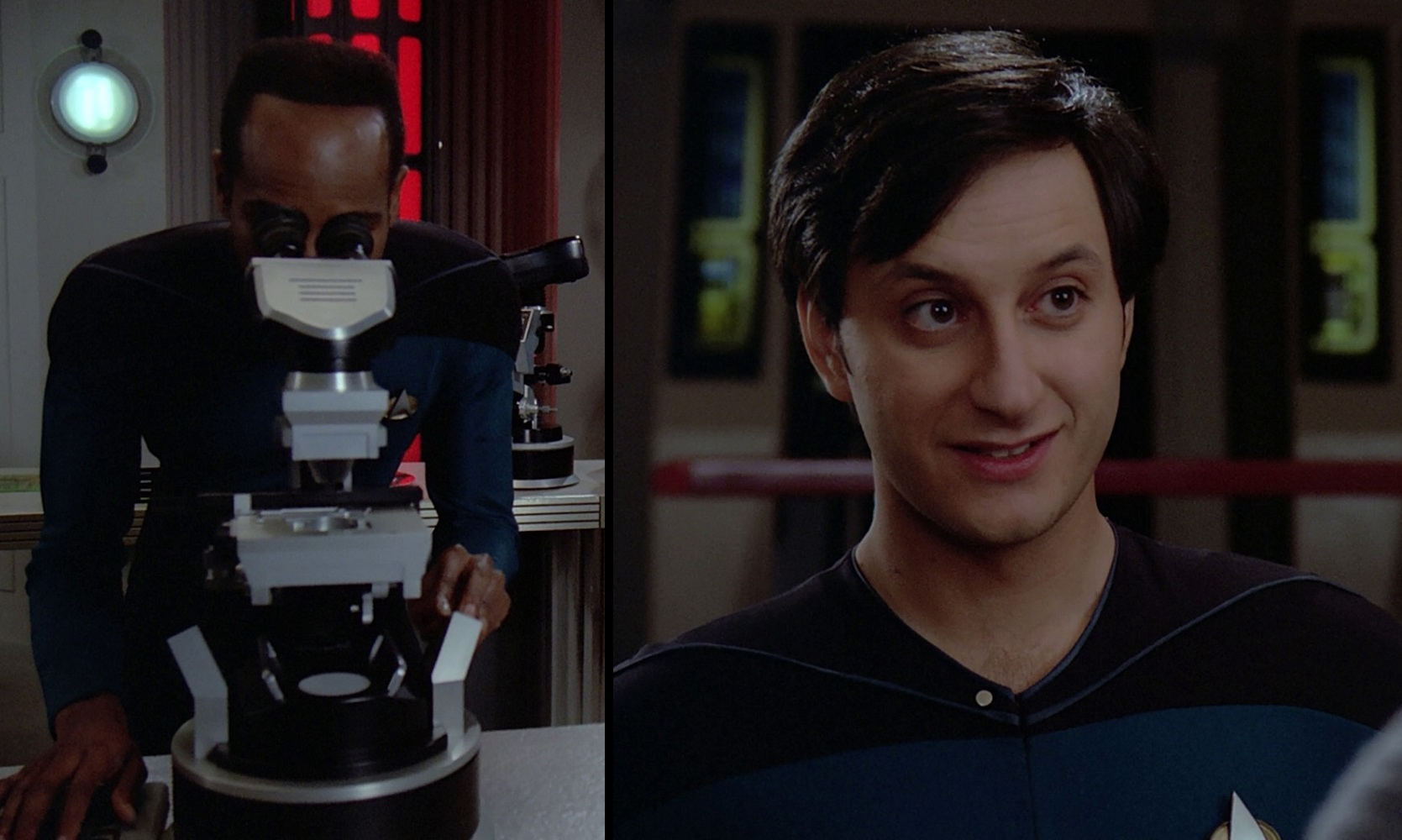
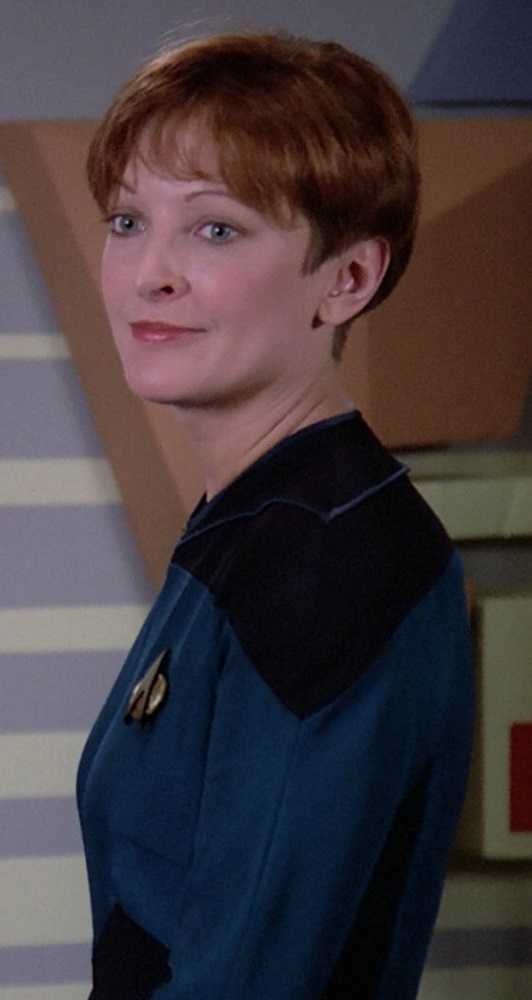
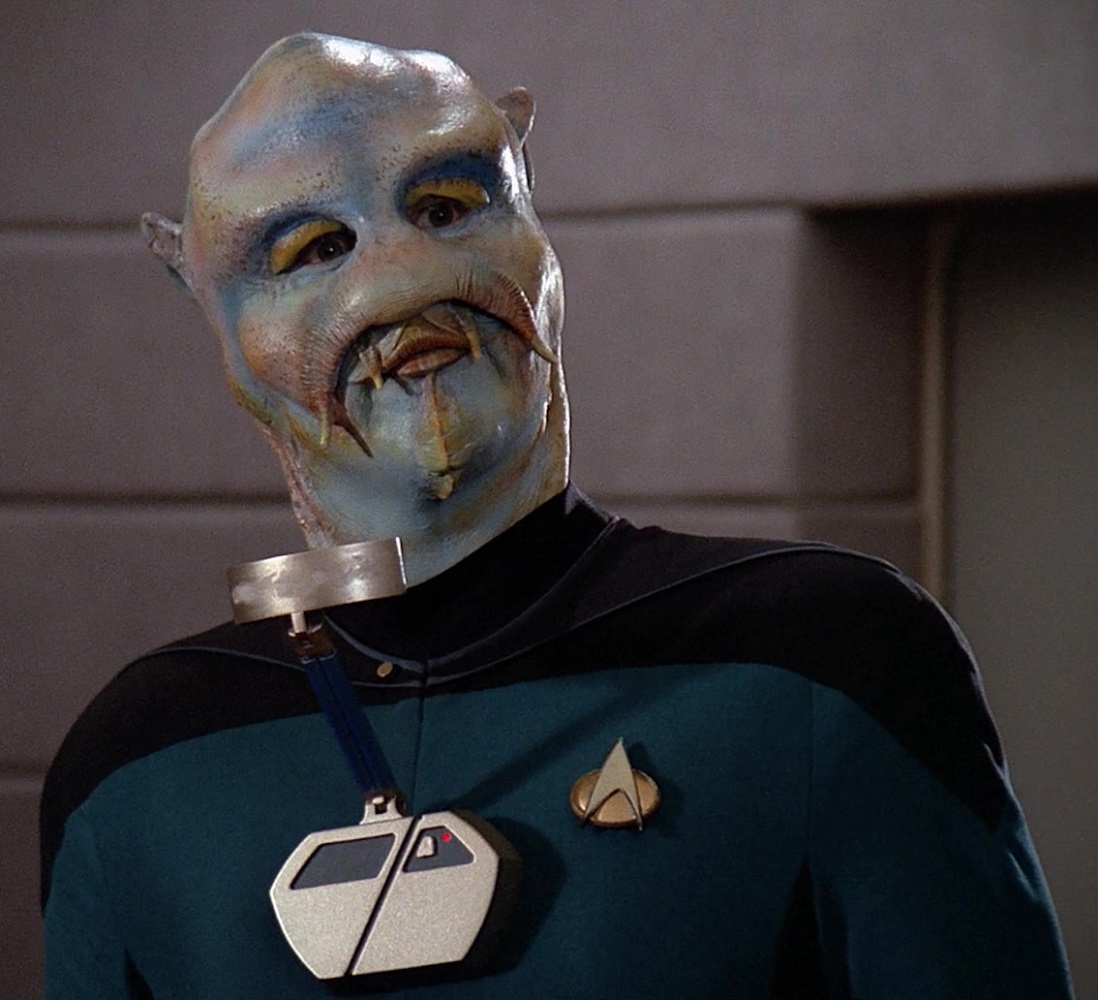
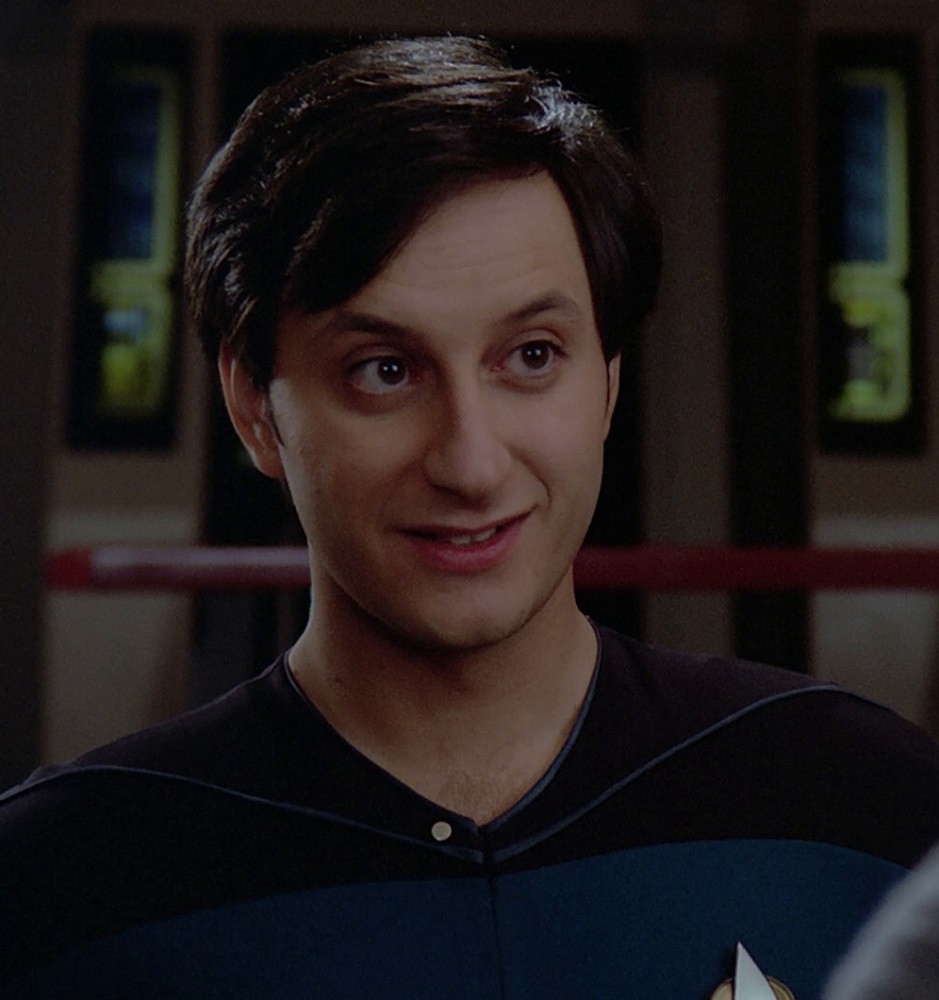
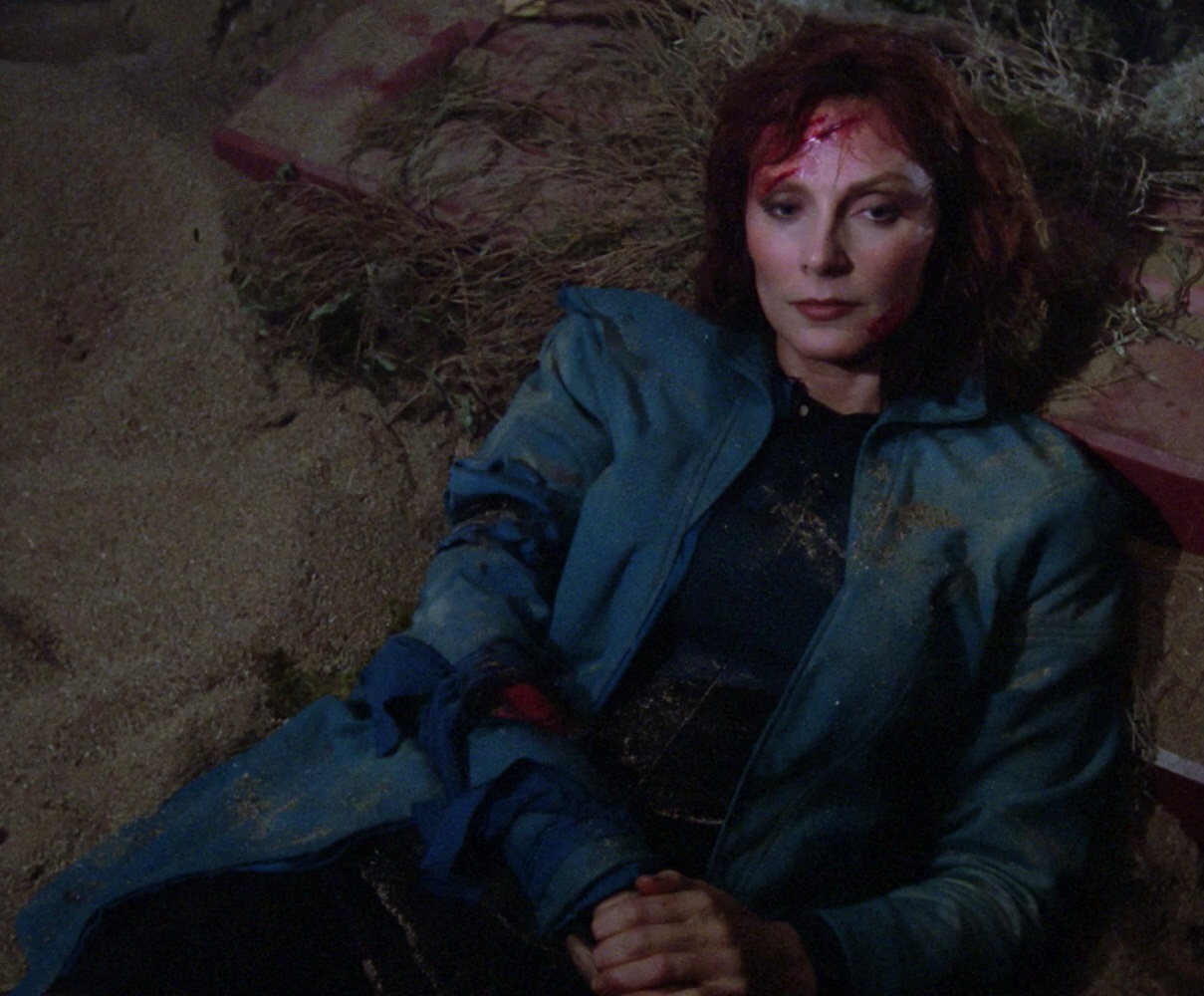
There was a memo by Mary Sadeghy dated October 28 1987, stating Bill Theiss' Pantone colours.
Wine uniform - 235C
Teal Uniform - 316C
Mustard Uniform - 140C
Medical Coat - 314C
Troi: jumpsuit - 433C, sash 582 w/small blank lines, hairbeads - 199C
Wesley's new sweater: Lt. Grey - 431C, Dk. Grey - 433C, Wine Stripe - 235C, Teal Stripe - 316C, Mustard Stripe - 140C
Worf's sash - 871C
Hope this helps
Interesting - thanks for sharing! I've seen a couple other, similar guides (with Pantones) too. But we should keep in mind that these are how the fabric colors were intended to look in the finished production, as opposed to how they look in-person. (Obviously individual preferences vary.)
- Alex